Carrousel Dreams: Enter the Fantasy
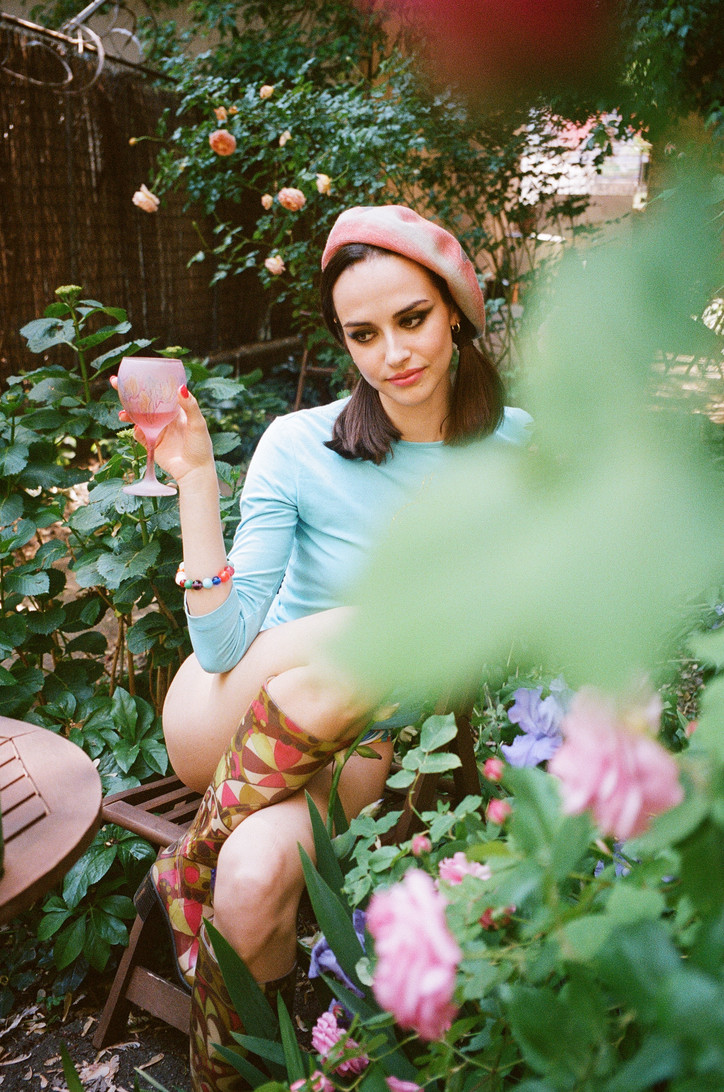

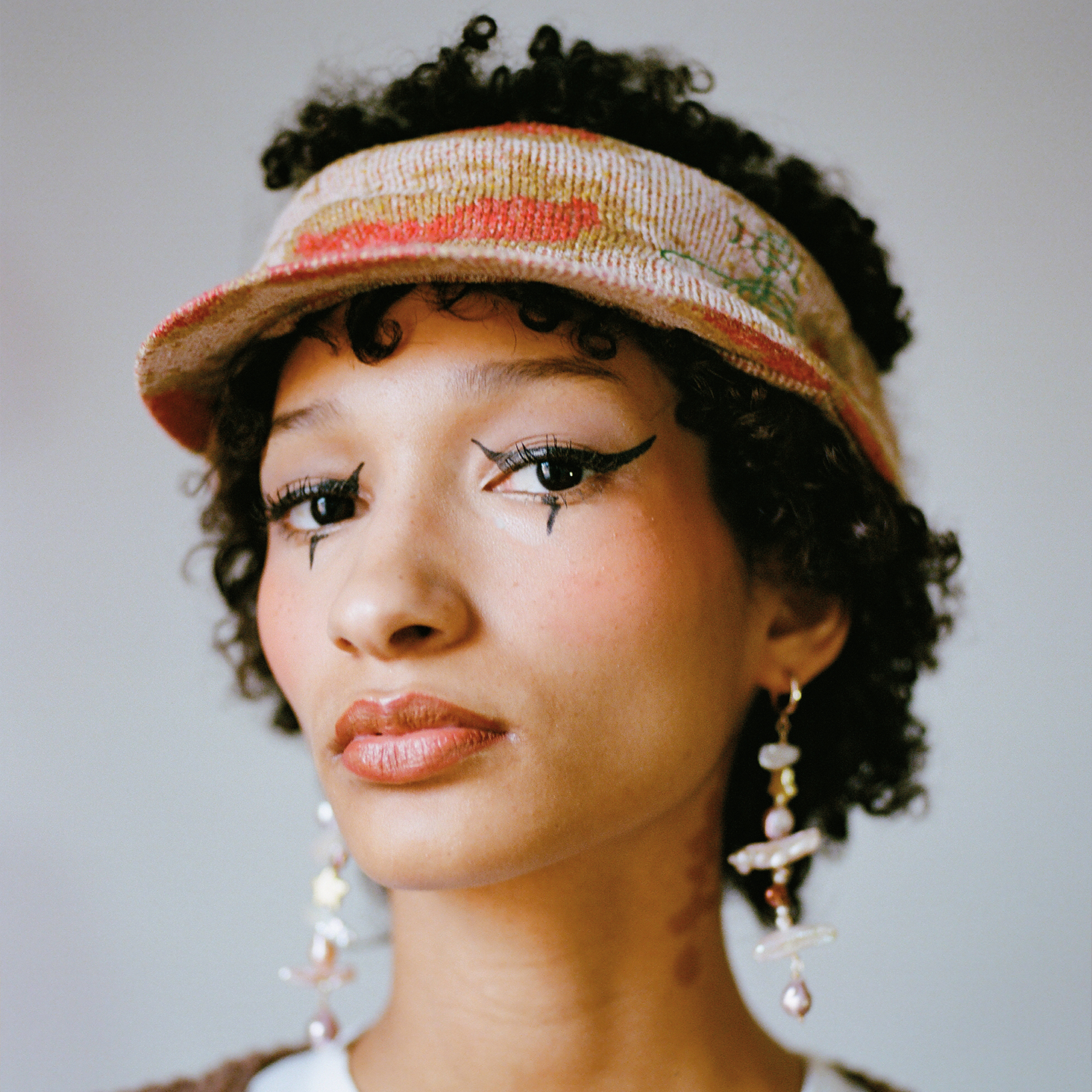
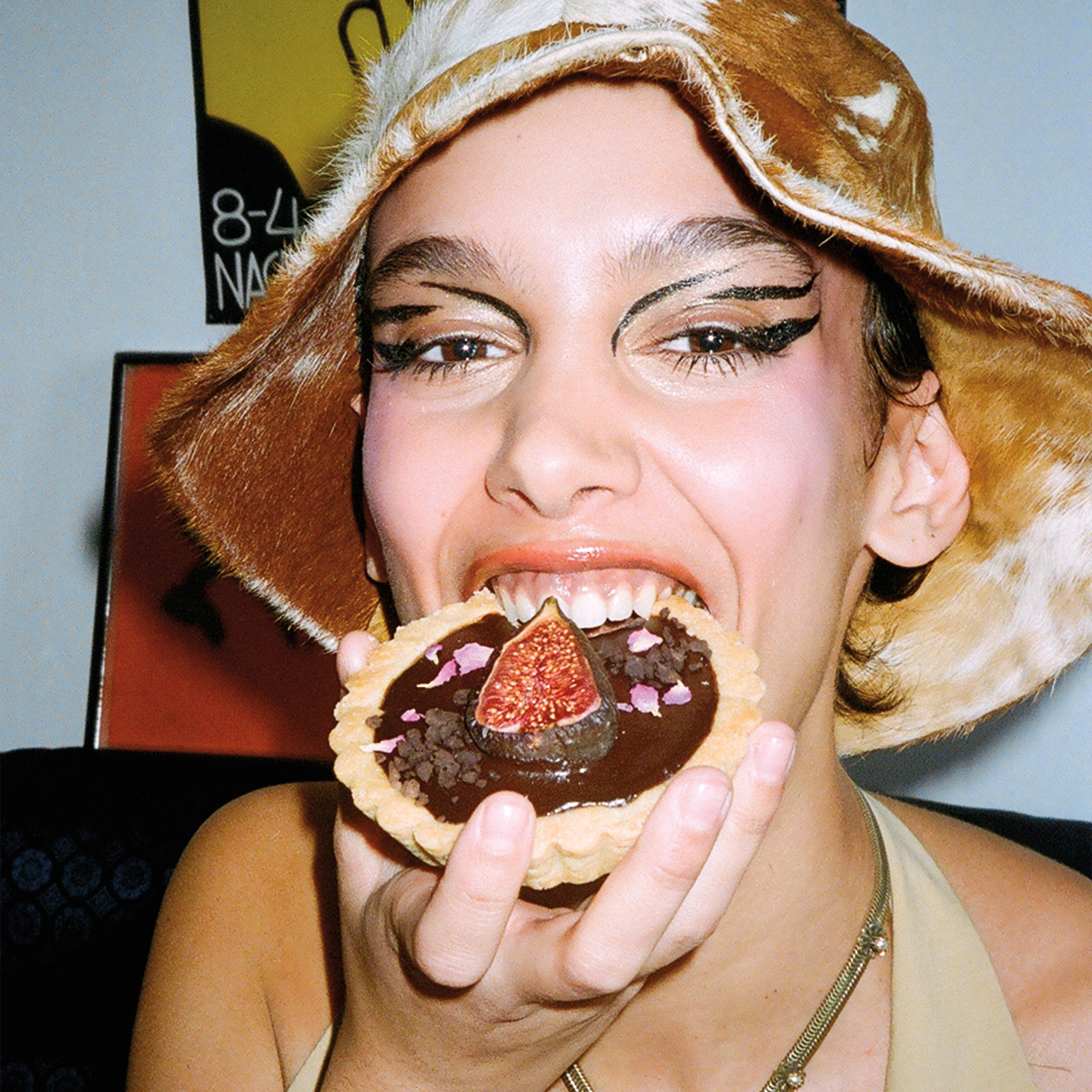

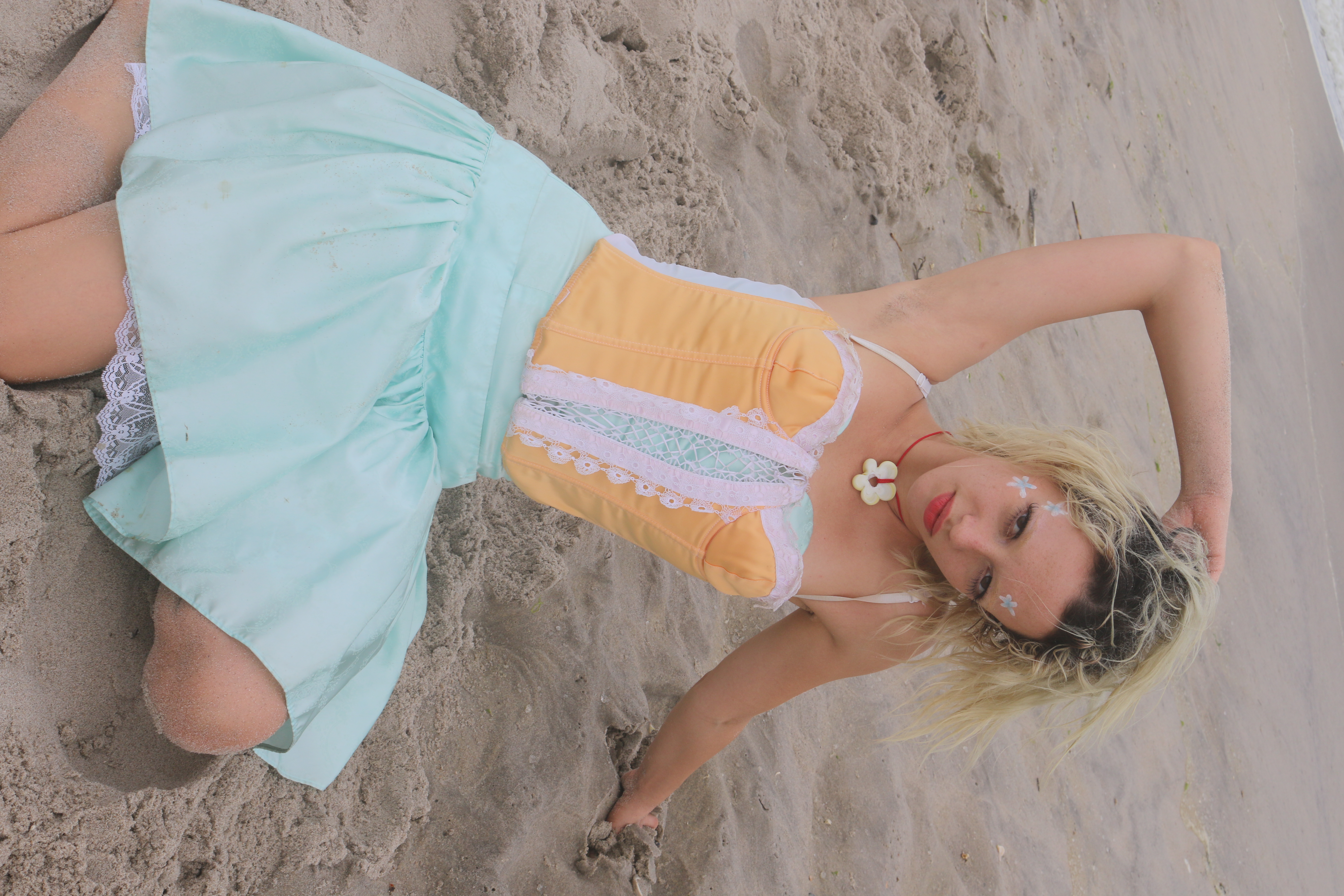
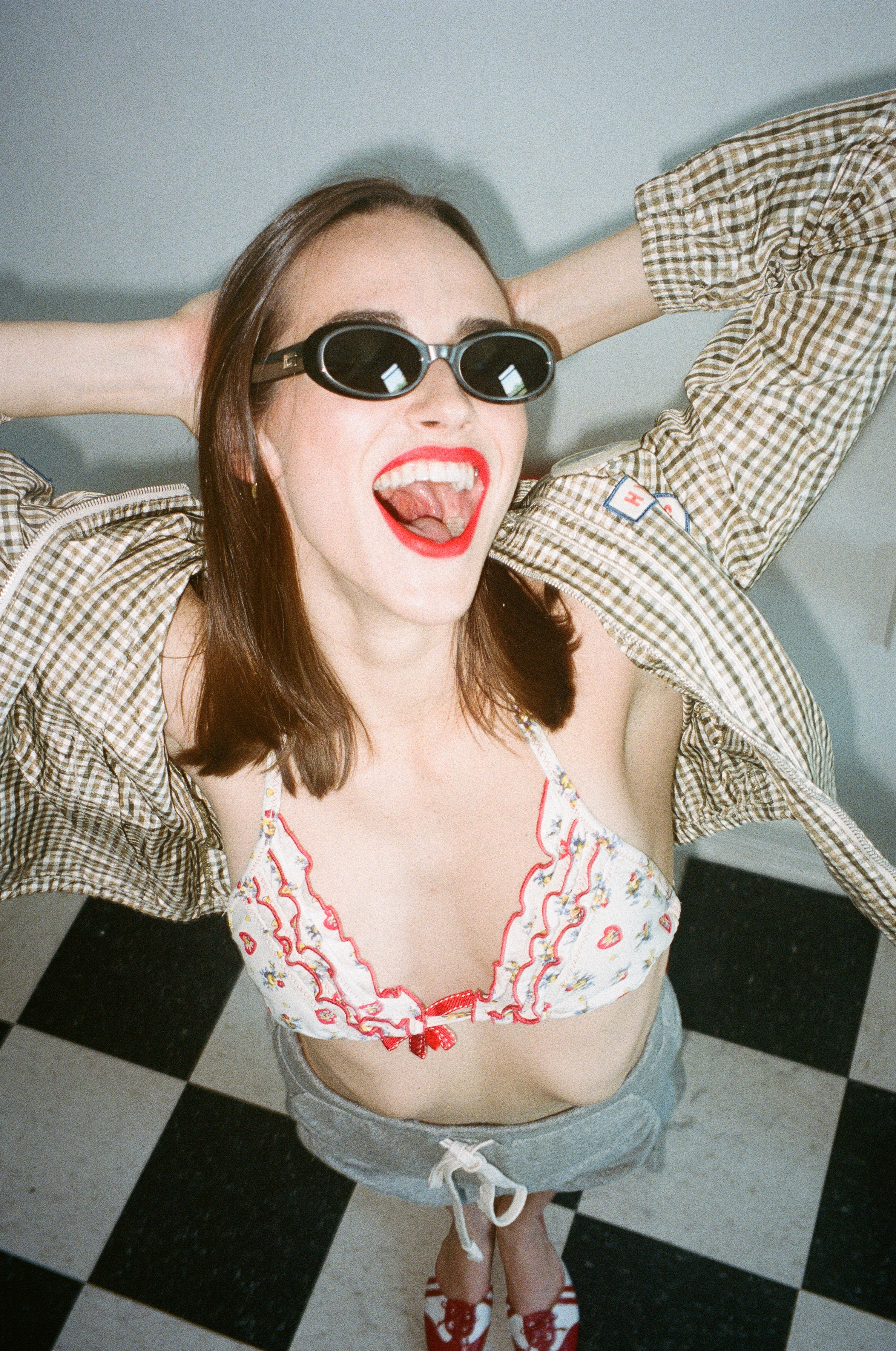
Stay informed on our latest news!







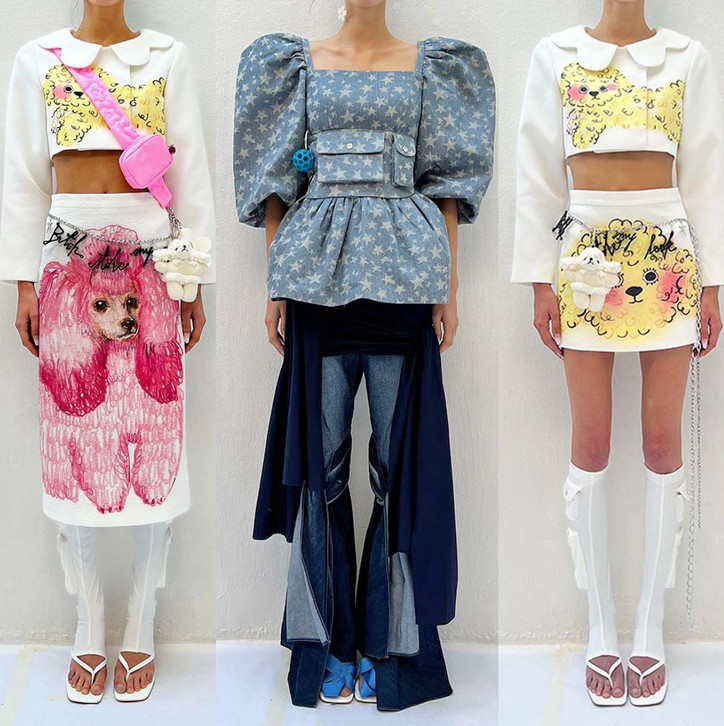
Spring/Summer 2024
Peeling back the curtain on Kwan’s creative process, office sat down with the designer to discuss inspiration, from cheeky 2000s magazines to Tumblr, and more.
You grew up between two different places, so your inspiration is an amalgamation of cultural references. You’ve mentioned magazines like Closer as early design inspiration. What inspires you now?
I get my inspiration from a lot of artists, from just doodling, the people that I meet, and also my dog, Holly! Finding inspiration all around is definitely a way of life for any young designer. It's really important for me to learn constantly. I'll try to go to different galleries and exhibitions and just talk to loads of people. Iit makes a big difference when you're off your phone and you're actually out there learning and seeking different inspirations.
As you said, your dog is also a huge inspiration of yours and many of your prints. Since you have a background in Fashion Print, tell me about the process of developing your own prints. How do you use color as a form of expression?
I love that question because print is definitely a big part of my identity. It has always been such a big focus for me. Before I decided to do fashion at a really young age, I was drawing. I was always drawing throughout my life. And then I think I wanted to apply it onto the body, which is what prompted me to apply for fashion design with print in Central Saint Martins. When I’m coming up with prints, I honestly just go crazy and draw a bunch of things. It's a lot of trial and error. I feel like you could just slap a print on anything, but to make an impact, you really have to understand how the silhouettes work and you can't put too much on one garment. And I think a lot of my color choices come from memory as well. That's also a huge part of my inspiration — a lot of my memories with my family and growing up in Hong Kong and the UK.
I've lived in very vibrant cities throughout my life, so I got to see a lot of these colors all around me. When developing prints, I also use different mediums: color pastels, spray paints. I'm just not afraid to do anything. Like this season, I'm using icing to paint. I would never limit myself, you know? Why not? I feel like fashion is so serious now. And I'm definitely not that kind of person. I hope my humor comes through in my prints as well as my clothes.
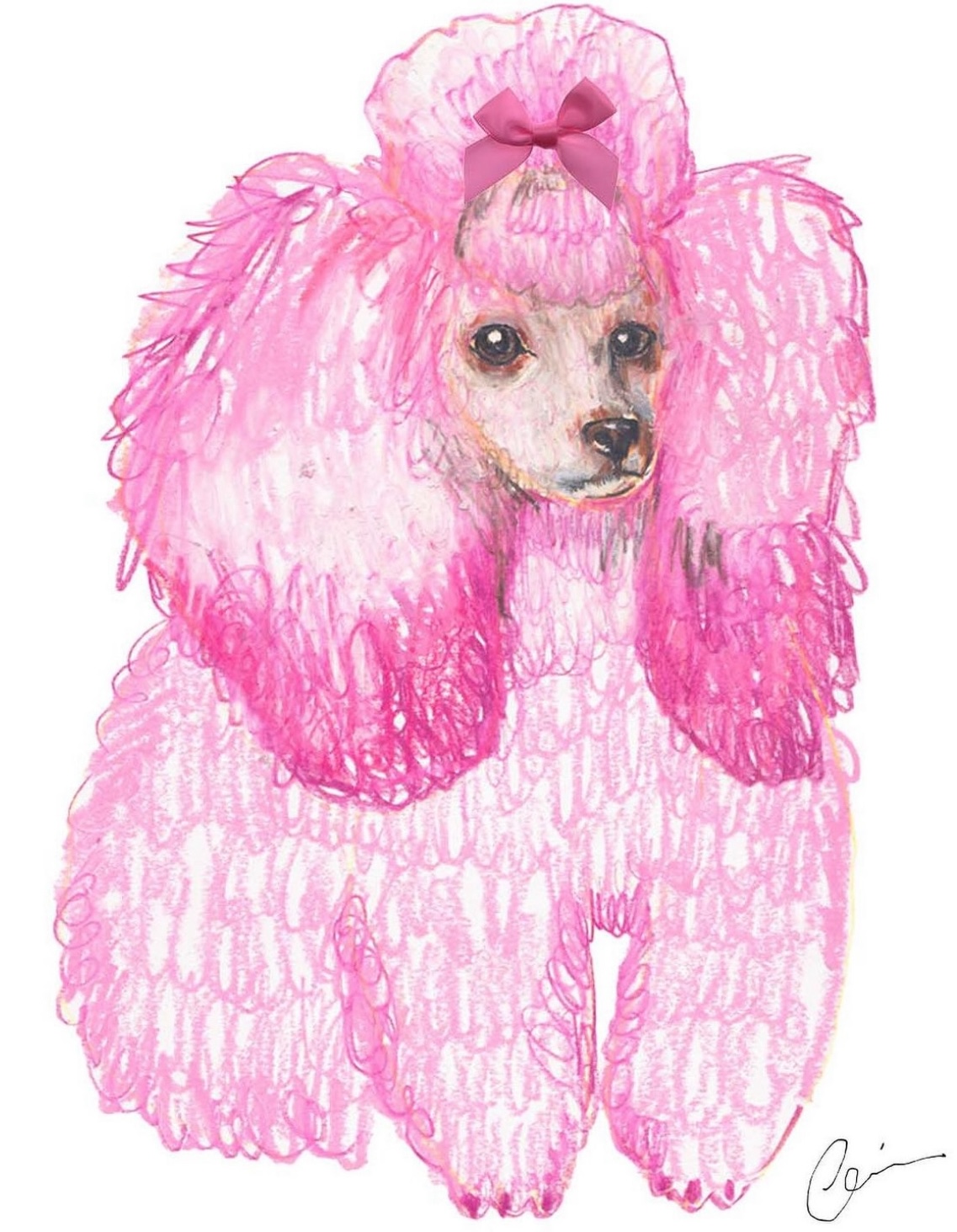
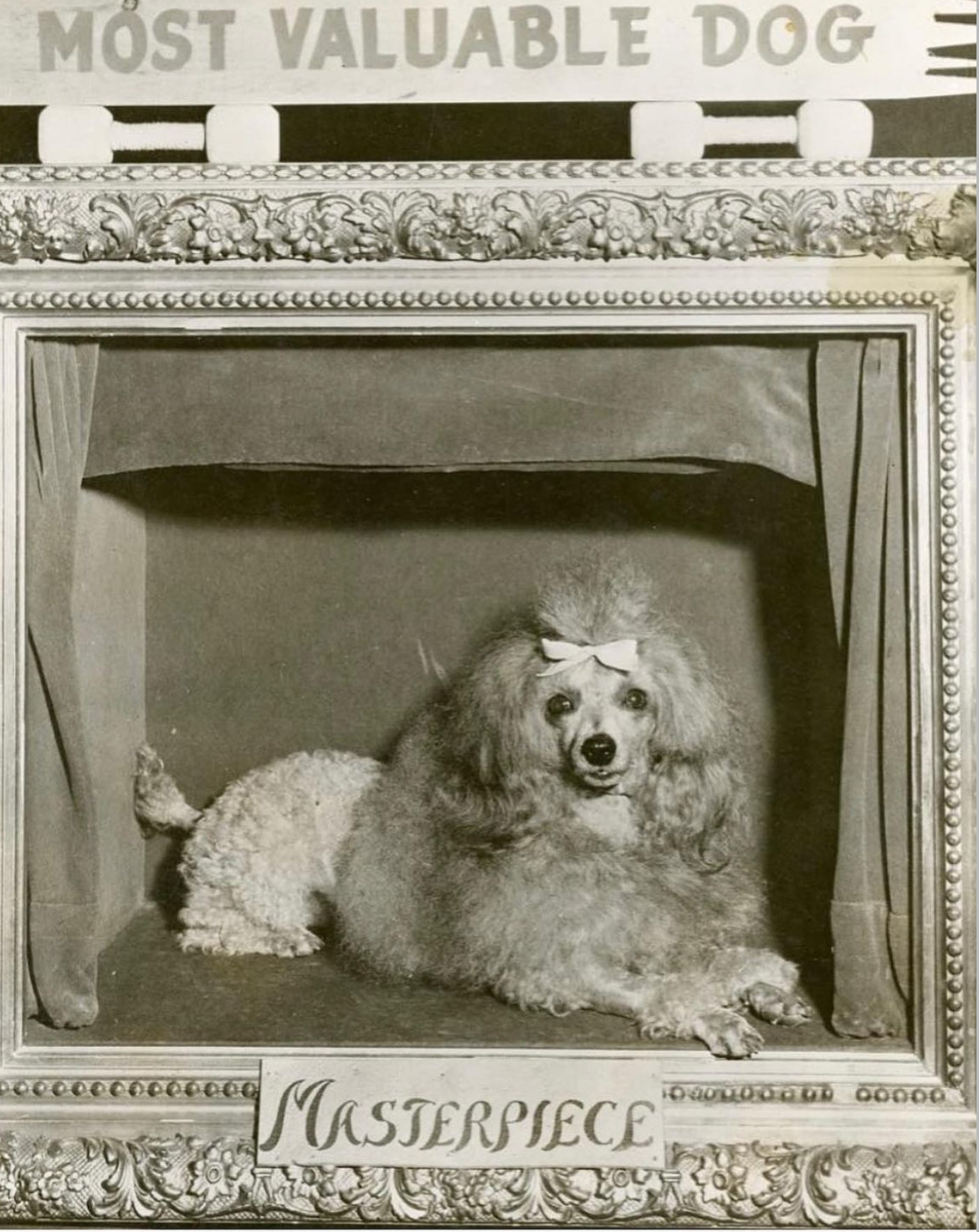
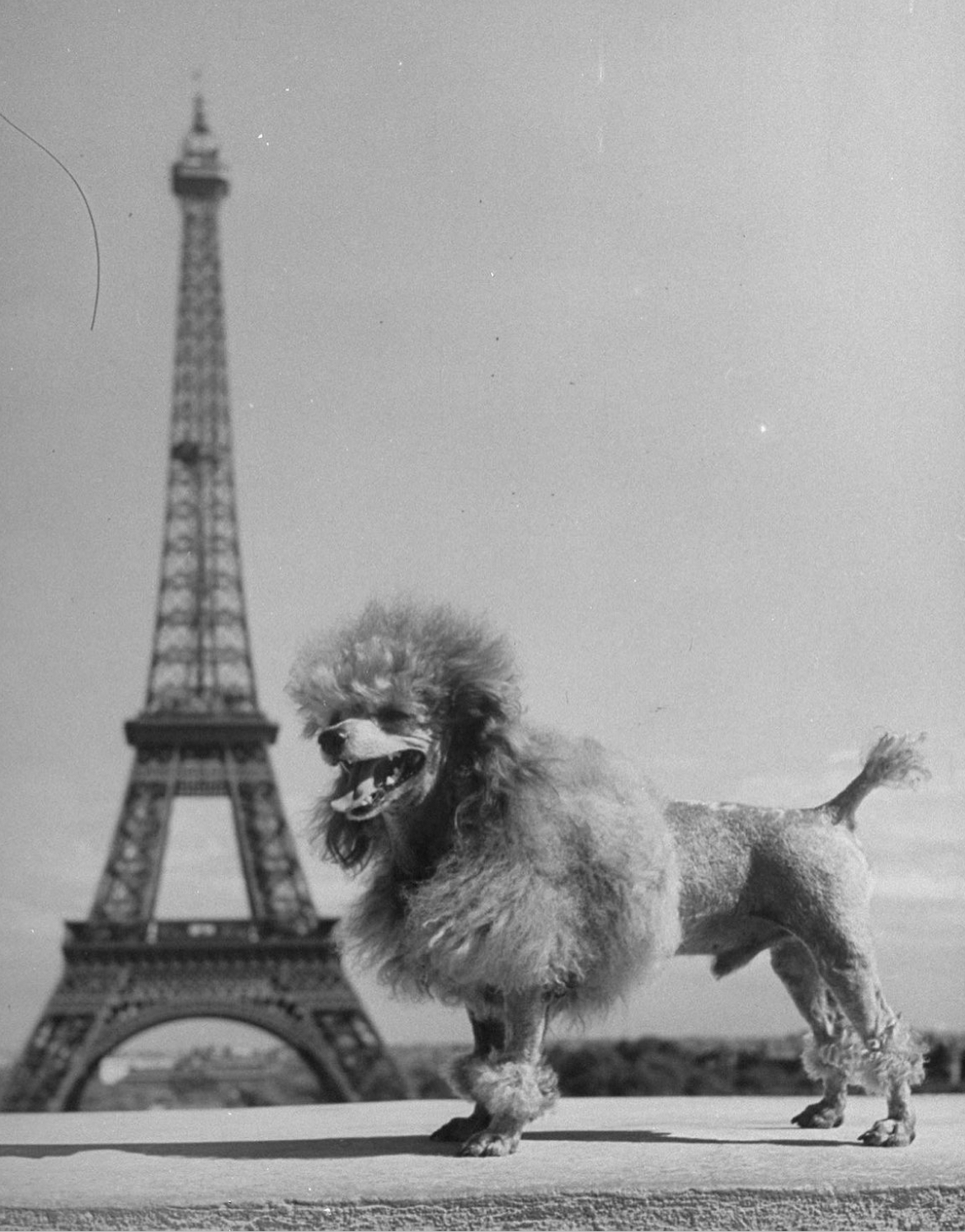
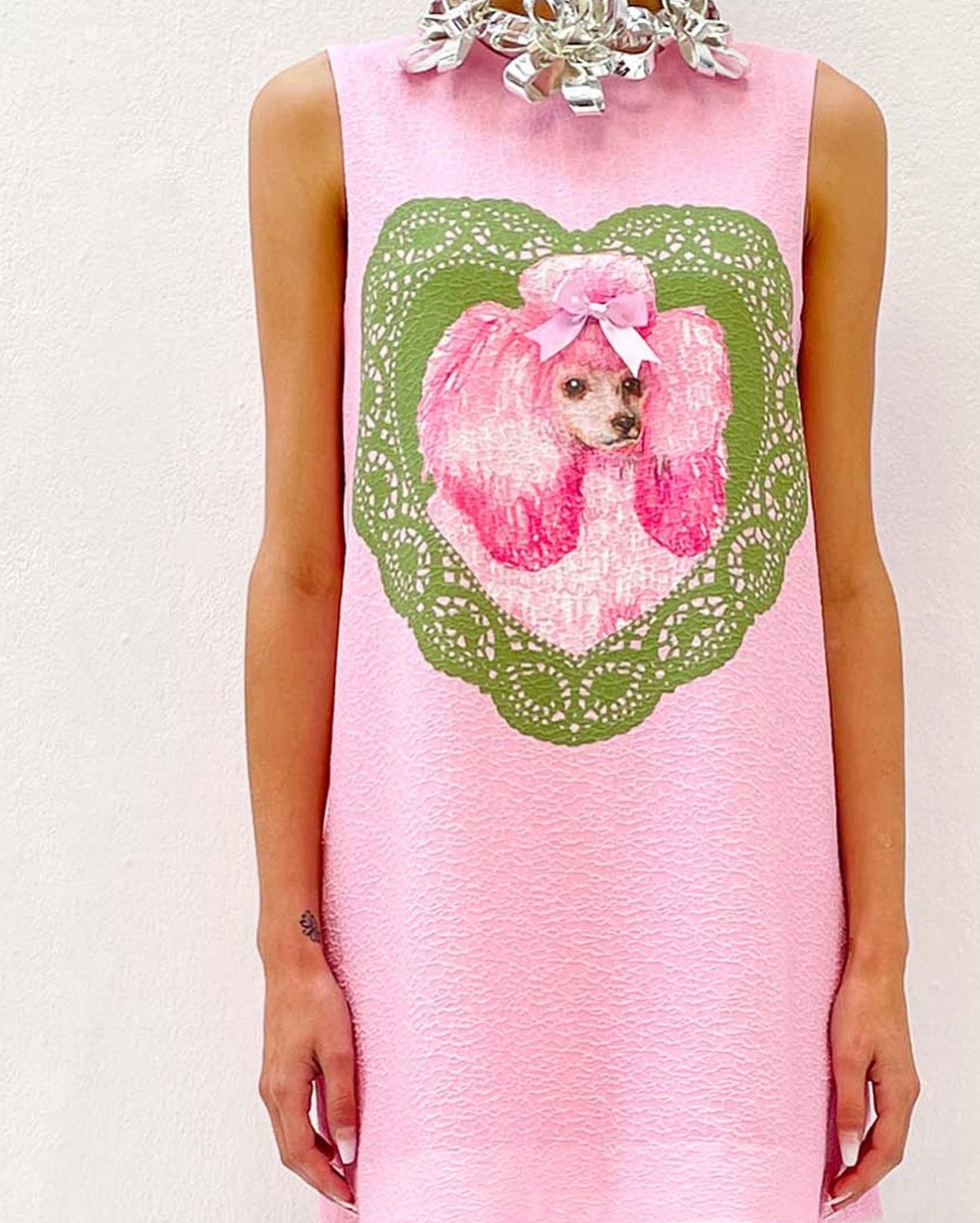
Spring/Summer 2024
I love how you brought up color memories because your pieces conjure a lot of nostalgia for me. They remind me of the colors and bright patterns I would wear when I was discovering my own personal style. How did younger Celine’s interests and tastes inform your namesake brand?
I'm a part of the older Gen Z crowd. I grew up with that transition between not having mobile phones to suddenly they were everywhere. I also had a lot of magazines that I read when I was younger, and then I kind of got introduced into playing games online and watching TV later on. My fine arts background influences things as well, so my inspiration is a mix of things. I don't know if you remember the game Pet Society. It's kind of silly. You used to dress up your little pets and it's kind of like what Animal Crossing is now. A lot of my work is very childlike and is inpsired by these things I loved to do when I was younger. I would reaad Closer Magazine and the really trashy magazines with bright colors that they just don't make anymore.
Those were my favorite. I loved Tiger Beat.
They had so many fun columns. They used to make a big deal out of celebrities wearing the same thing twice and I loved the whole drama of it all. Everyone was stepping into social media, but it wasn't about that at that point. I think everyone was really authentically themselves. They didn't really care about what was trendy. I think that really influenced how I design nowadays. The way I grew up as well as being in Hong Kong and the UK really pushed me to become the designer that I am today. Blending the East and the West. But definitely magazines, books, and games from back then have really stuck with me. Things were simpler back then, but they were also more vibrant and alive. I obviously took a lot of inspiration from my favorite designers as well. I never want to be boring. Designers I paid attention to growing up were Jean Paul Gaultier and Alexander McQueen — they had a strong impact. Also if you've seen Martin Parr's photography. I remember when I was in high school, I had this Martin Parr book from the library that I was obsessed with. I would always return it late because he did a whole series about food from Hong Kong and they were the most vibrant pictures. I was proud to be from Hong Kong in the UK because you could see someone appreciating it.
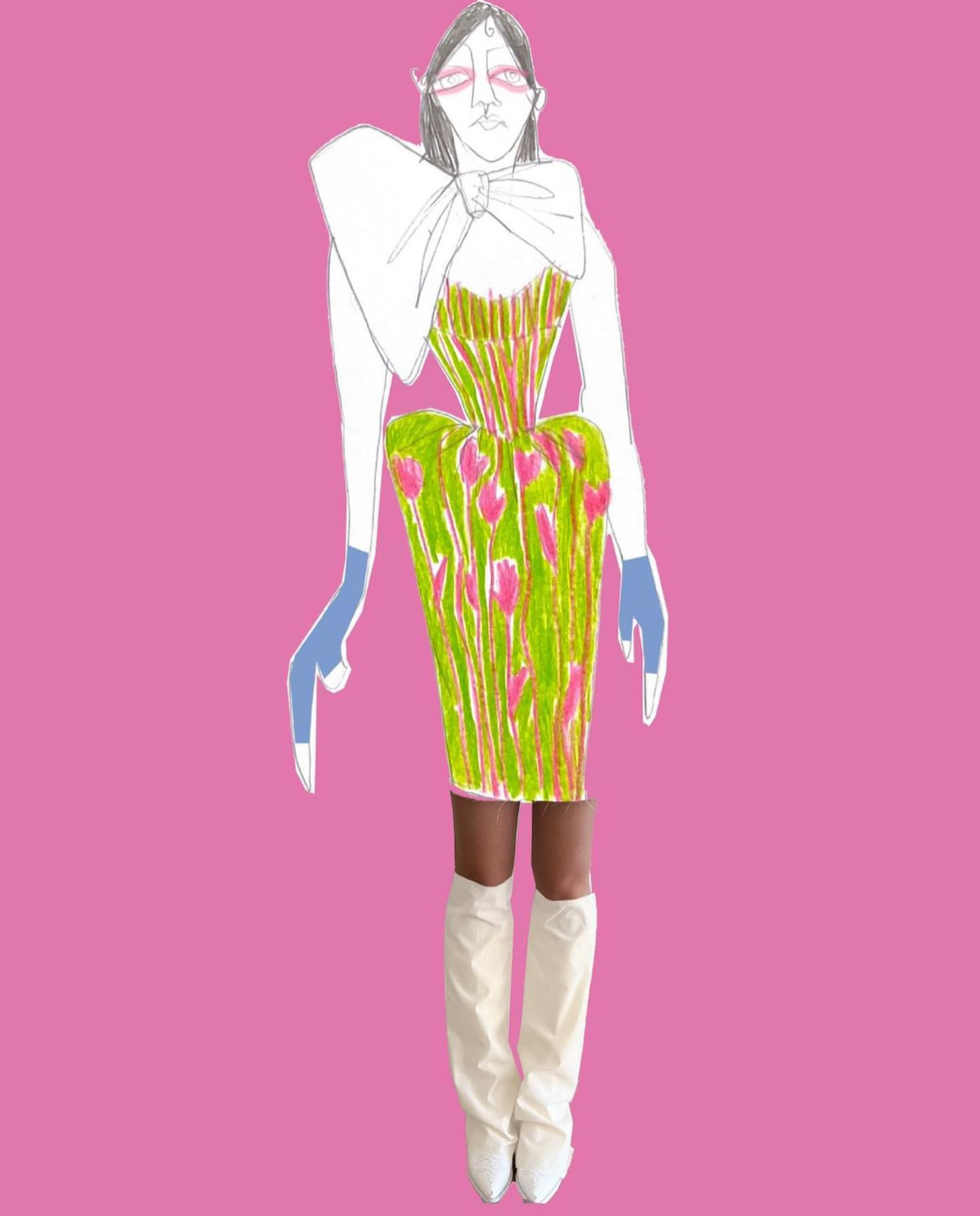
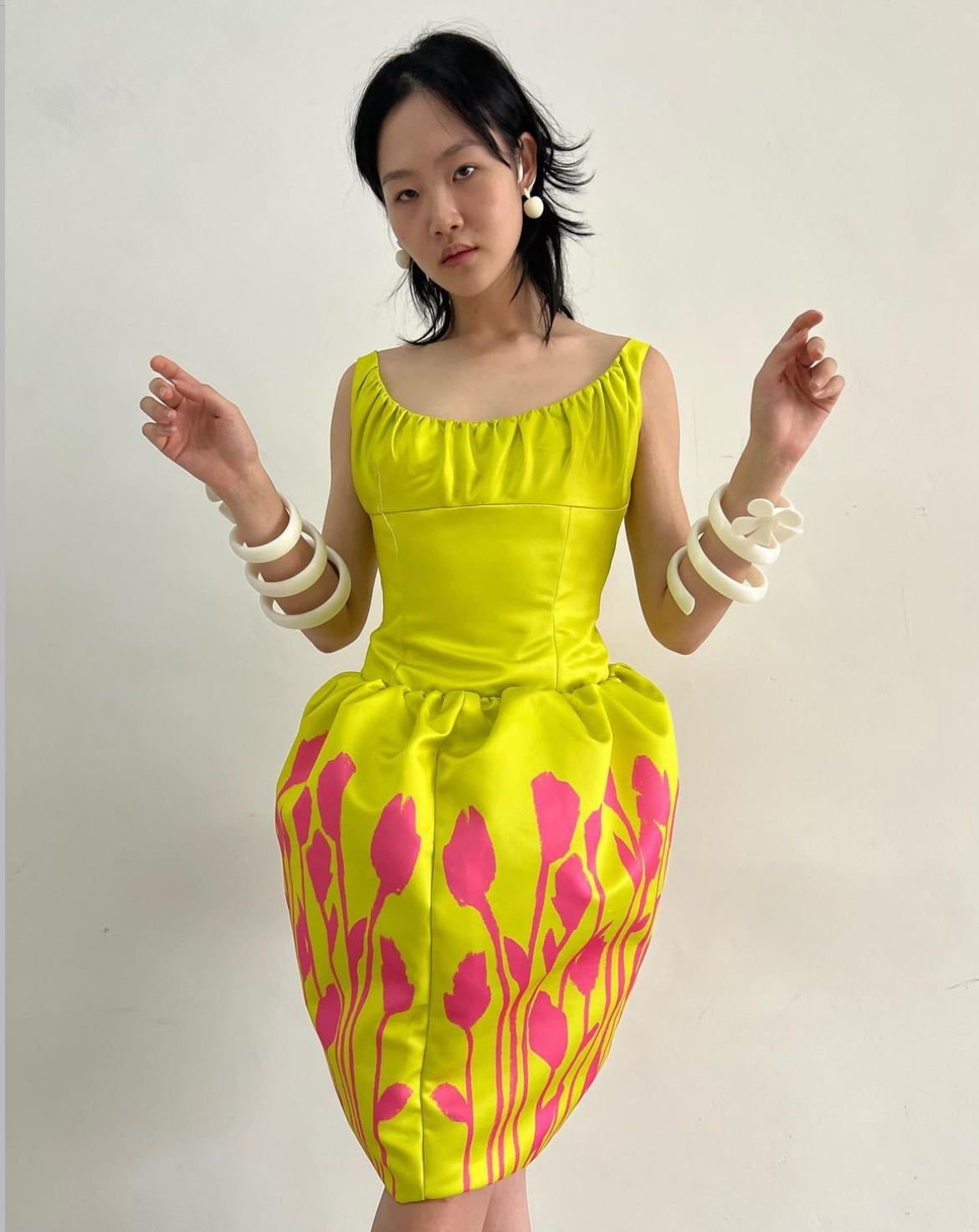
Spring/Summer 2023
How do you bring together both of the cultures that have impacted you throughout life within your designs?
My humor definitely comes from the English side — my really dry sense of humor. I moved here when I was maybe around 12, 13 years old. So it's been more than 10 years that I've been in the UK. But I think my Asian influences include the polish and a little sense of elegance. A little bit of drama in my work comes from the East. I definitely would hope that I appeal to both sides — both East and West. I hope I strike that balance.
You have a really unique perspective in being able to bring these cultural influences and certain artistic details together.
Hong Kong residents are super direct and people from the UK are just nuts. I love playing with the mix of both of those cultures, which just creates a whole new monster that I don't even know how to explain.
We get to see bits and pieces of your creative process through your social media, but I’d love to take a sneak peek inside your brain. How would you describe the process that goes on in your head when conceptualizing new garments? How do you initially select textiles and forms?
I always start with a print first and that really informs the collection. I started with doing portraits of dogs and it kind of evolved into what it is now. Then I would take on research of garments. For silhouettes, I really take inspiration from everything I see every day. Like, if a woman's wearing a bag in a very interesting way, I would take a picture of that. Everything happens quite organically. I also love the pattern cutting aspect of things. I have very adventurous pieces as well as very simple silhouettes. Last season with Spring/Summer 24, I was hyperfixated on tug of war and how dogs love to tug on things. So my designs usually come from a random concept and then I think, 'Oh, how can I expand these concepts into silhouettes?' A specific thing that I do a lot is I am definitely a designer that really likes the styling aspect of things. That is so important to me — the end result of how an entire look comes together — because I'm very textile and texture based.
I think sometimes it's really hard for people to put their brain in that mode to see anything as inspiration. If you had to give advice about how to open up your mind to finding inspiration in unexpected places, what would it be?
I wasn't always like this. If I'm being really vulnerable, when I was in Central Saint Martins, I didn't feel as confident as I do now. I was younger and constantly worrying about, 'Oh, is this good enough? Is my aesthetic strong enough?' It's a very competitive business, as we all know. I snapped out of it after some time and realized, 'Wow, people really appreciate what I do.' So the biggest advice that I would give to anyone is that if you don't feel beautiful, if you don't feel confident, it will never translate to your work or your inspiration. I don't think you can make anything beautiful if you don't feel beautiful. And that does not mean your appearance. It really is like the mental, the psyche, if you're not open to things, then they're never gonna happen, you know? So I always tell people that are younger than me or studying fashion to always take care of your beautiful mind. Then you can be more open to getting inspiration and seeing the beautiful in the mundane. I did my final year, my graduate collection during COVID and that was a very difficult time. But I managed to thrive even in that situation because I really changed my mindset.
I appreciate how you framed training your mind as an active practice that you have to teach yourself or condition yourself to. Once you can find yourself in that headspace, I think the inspiration will come to you.
If you're bothered about your confidence lacking, that's gonna be the only thing you're gonna focus on. Everyone has their own journey. But I think, for me, when I snapped out of that, I felt more free to enjoy the beauty in things.
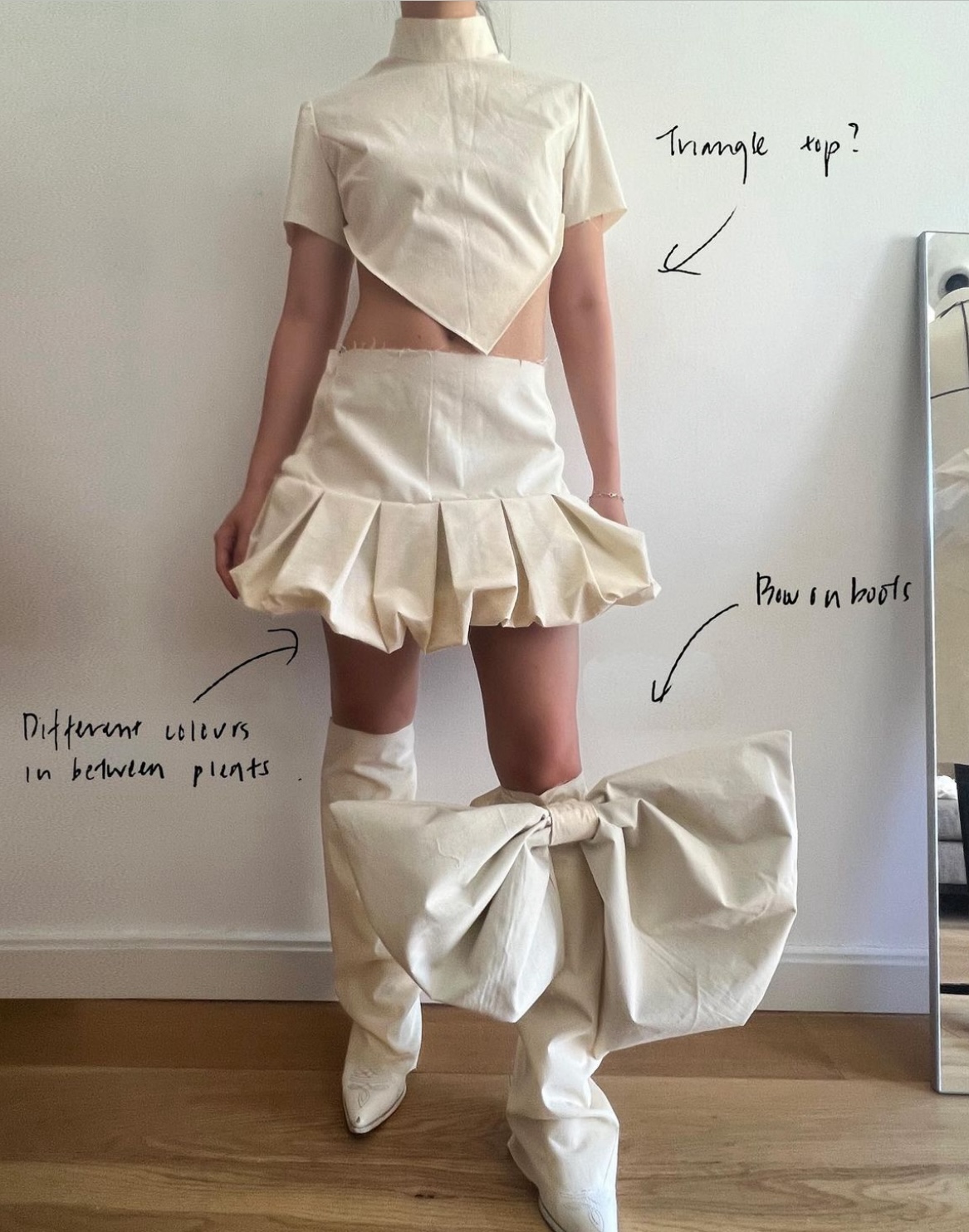
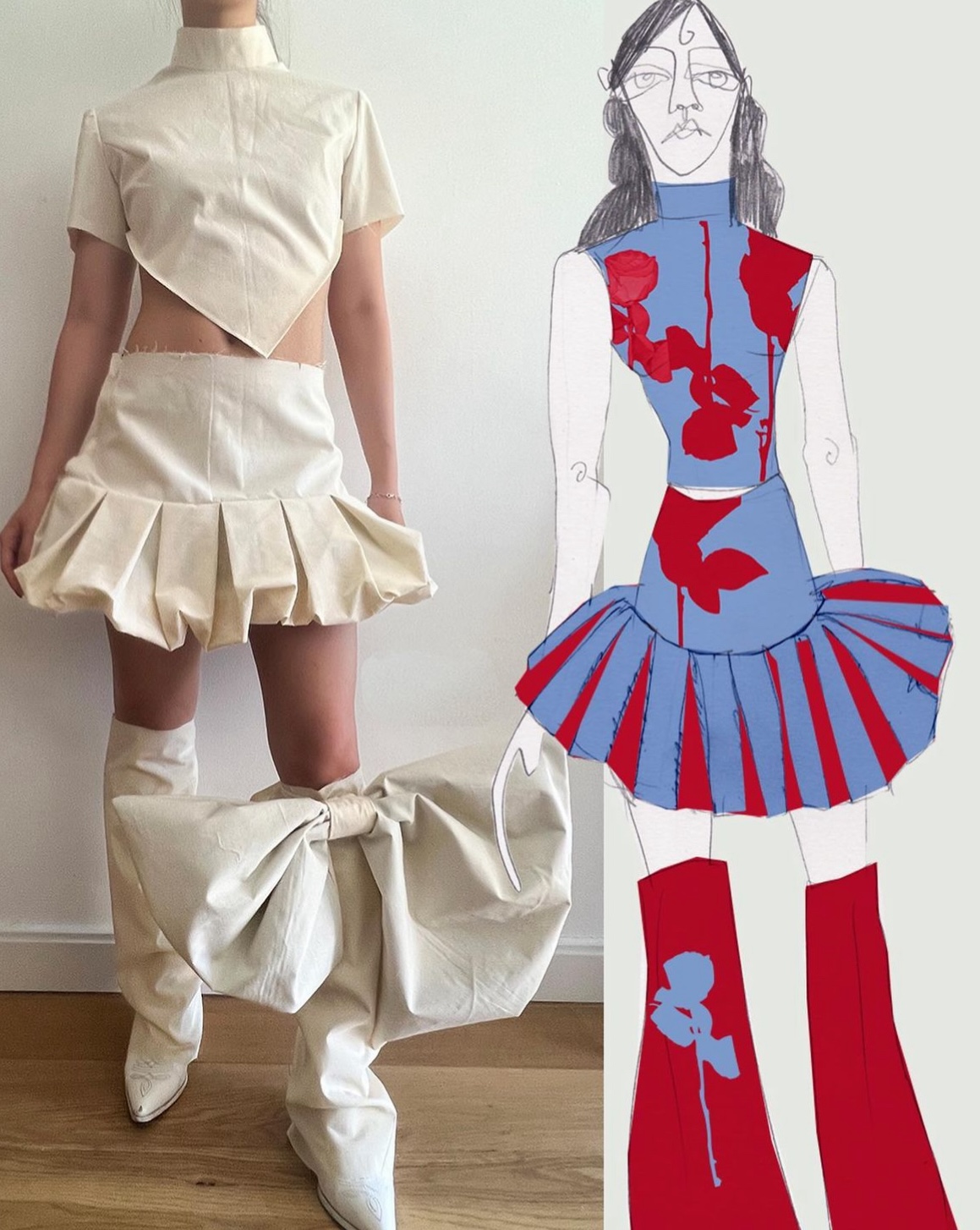
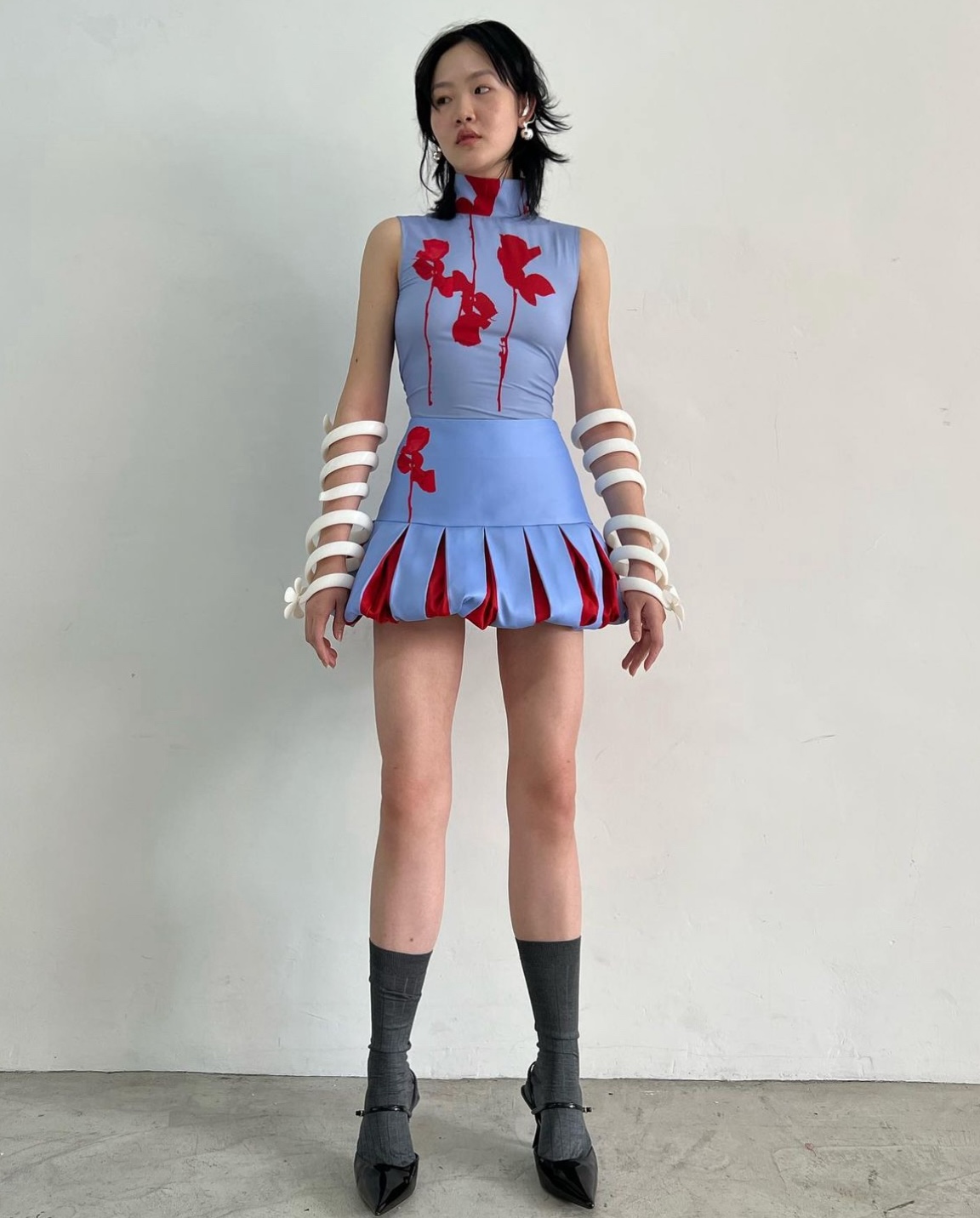
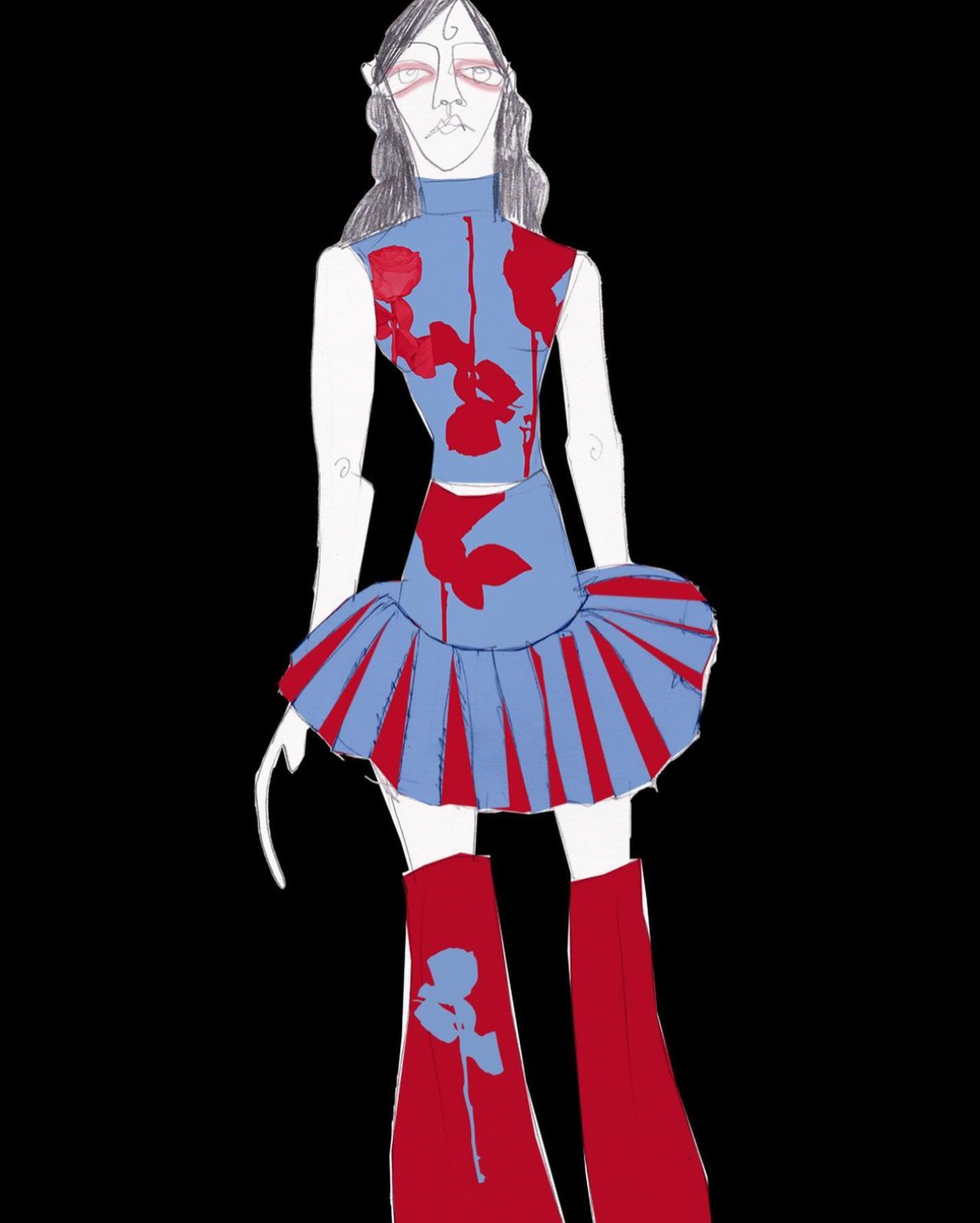
Spring/Summer 2023
It seems like you hit your stride when you really started to create for yourself as well.
One-hundred percent. It's really hard to be original nowadays, but being authentic is definitely very evident and very obvious when you see a brand or a designer doing it well.
What is the most bizarre or quirky design that you have conceptualized to date?
During my final collection, I just wanted a garment to be a whole living room set, like a sofa as well as a lamp and all of that. I guess that didn't really materialize, but the idea definitely arose because I was always stuck in my living room at that point. I think that is probably the strangest, but honestly, I don't even think that's that strange. I guess people would think putting my own dog on a garment is pretty strange, but I don't think that is either [laughs.] I think when things are not considered stereotypically wearable, that's what makes them strange for people. But for me, maybe just designing something really simple is very strange. Like what if I just came up with a collection that's all-black.
If I ever see that come to light I'll remember this conversation.
You heard it here! Yeah, I think that's my answer. I definitely have all-black looks I have designed that pay homage to my Tumblr emo phase.
I was also a Tumblr girl. Have you seen the current internet discourse that 2024 is gonna be like 2014 again. Like, people want that Tumblr era to come back.
I mean, it was such an iconic time.
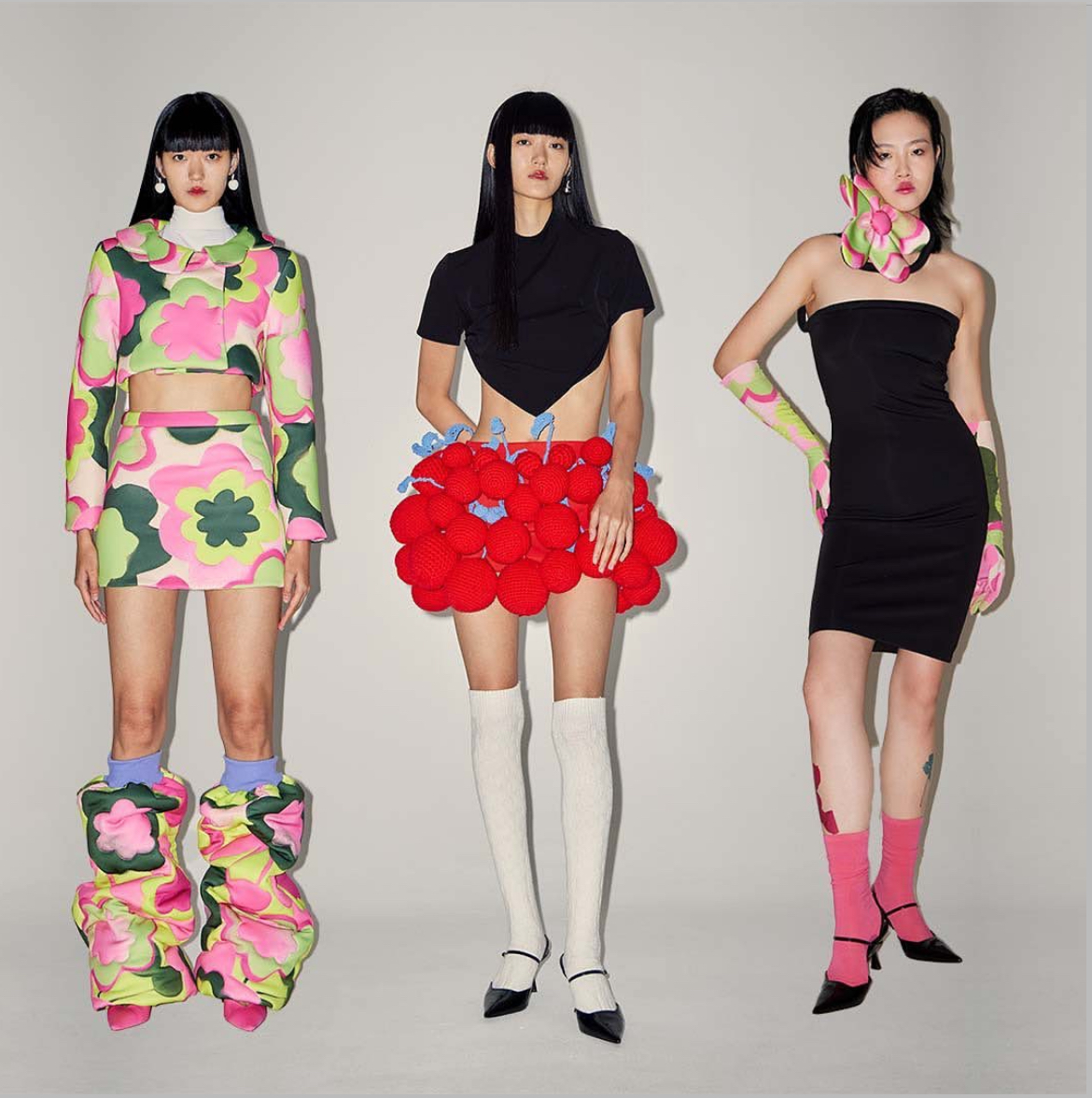
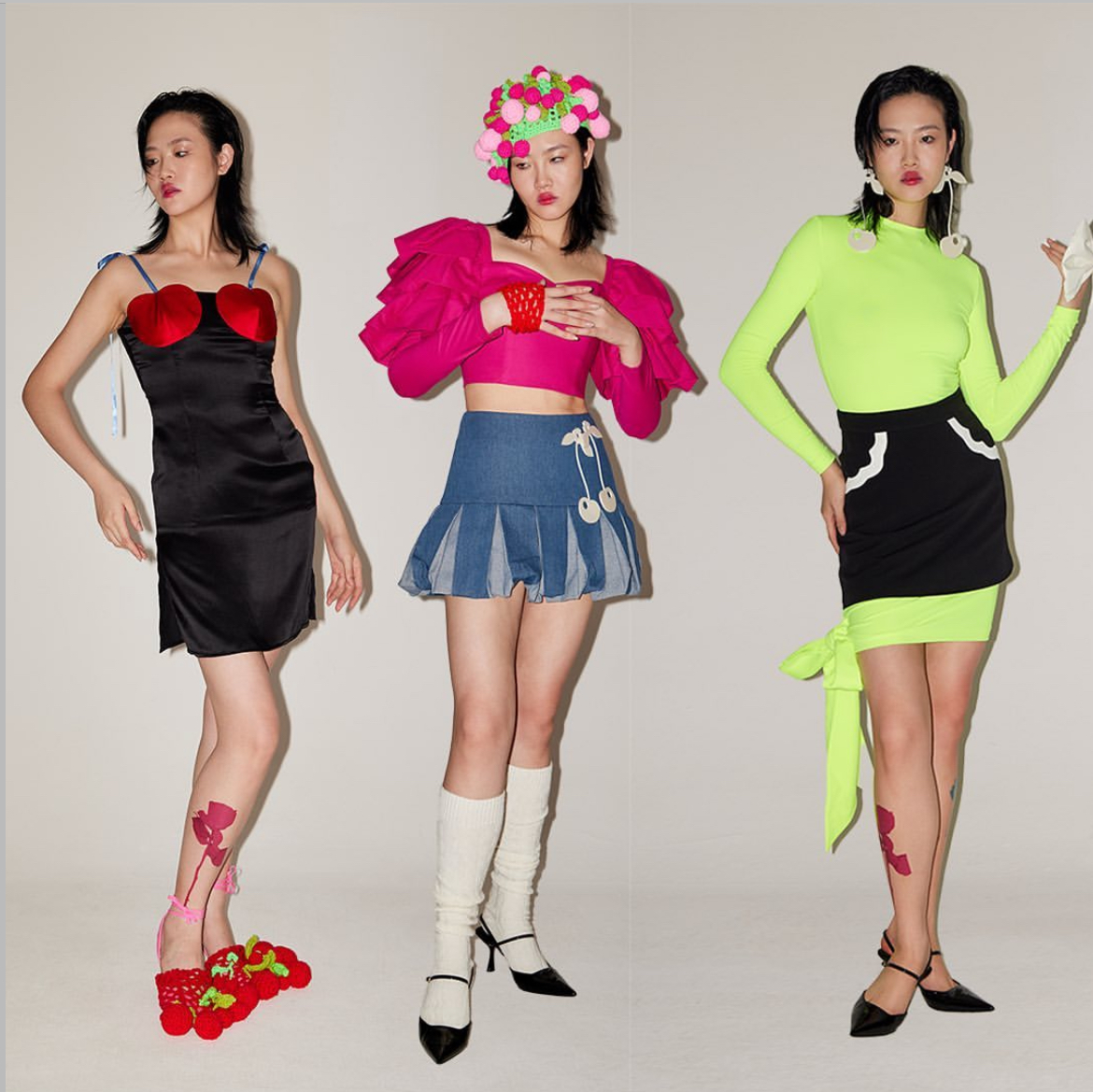
That's why I love speaking to creatives who are close in age with me because we all got such niche aesthetic inspiration growing up. And if you get it, you get it.
It was so silly. People loved mustaches and galaxy prints — it was a really weird moment.
Each of your collections exists in a world of its own. If there was a Celine Kwan planet or universe, what would it look like?
Oh my God. It would be amazing, wouldn't it? I think everybody would definitely have to have a dog. There would be colors everywhere. It would be very joyous, obviously. My main goal is definitely people not being afraid to be bold and wear color. It would be be super dog friendly everywhere. I'd definitely put loads of cucumbers in water so everyone can have cucumber water everywhere. I think it would be a little bit chaotic 'cause I feel like I'm definitely a very creative and chaotic person — who isn't? I think one of me is definitely enough though, so I don't know if there would be more of me. Definitely a lot of pink. It would be a place where people could just be who they are. It would be a pretty free world. I would definitely make a rule that people have to lay off their phones for a day, though, you know?
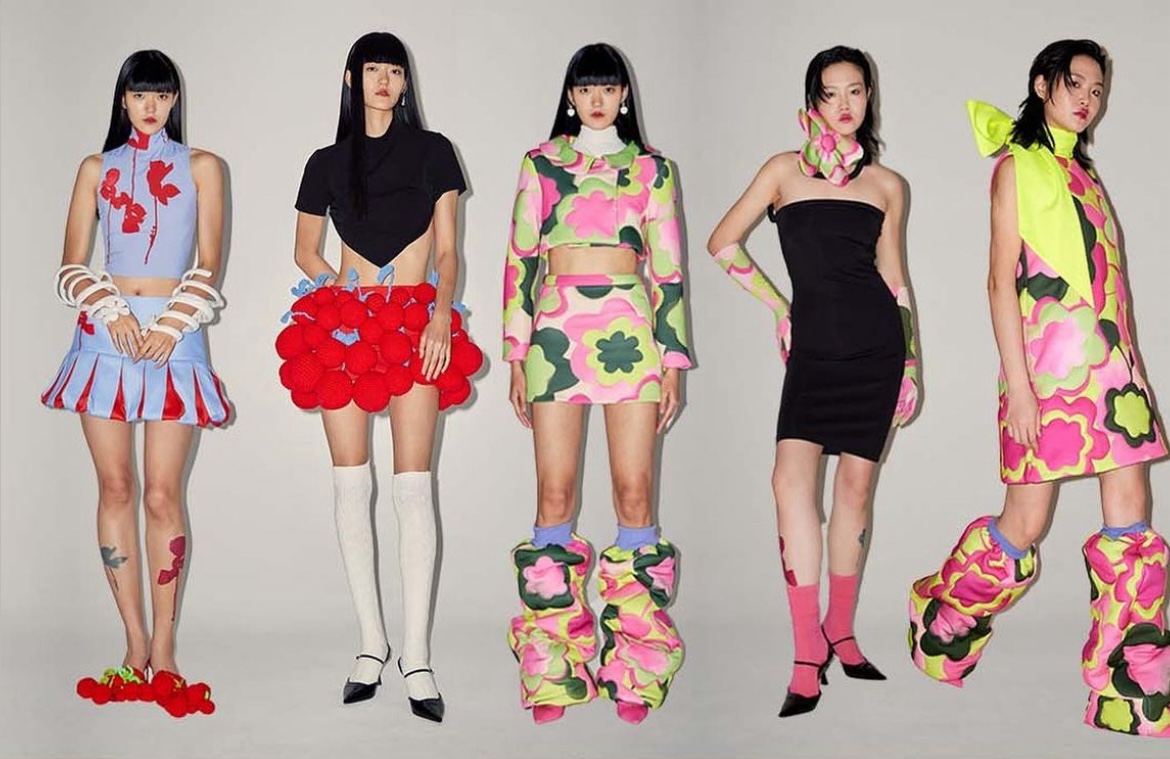
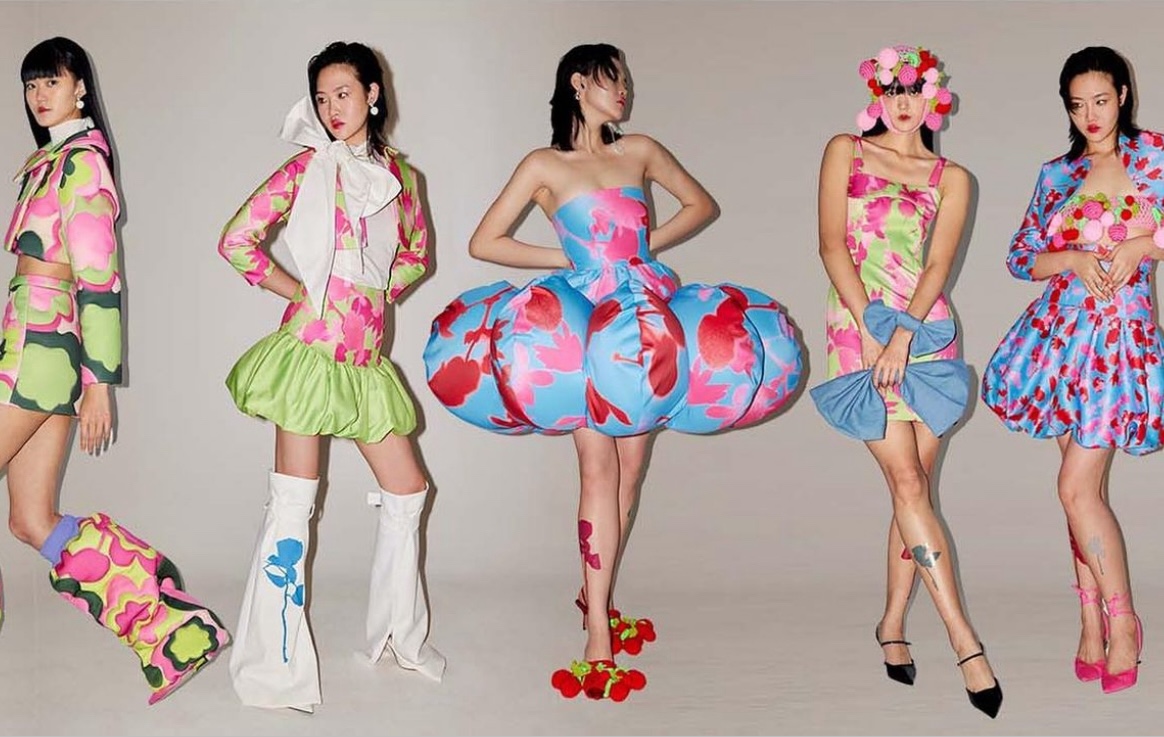
Your designs take dopamine dressing to the max. How do you hope people feel in colorful Celine Kwan pieces?
The most important thing for me is how people feel in my clothes. I feel like the most happiness that I have received was when a customer was like, 'Oh, I wore your piece during my birthday and I felt invincible.’ And I just thought that was really beautiful. It's something that really pushes me to be like, 'Hey, Celine, you've chosen the right path because you've really empowered someone to feel like that.' I really wanna make clothes that make people genuinely smile. It's my main goal. I feel like the curiosity never dies. As we get older, we become more self-conscious and there are more worries and questions we have. I just want people to forget that for a moment when they pick up one of my items. So that is also a big ethos of my brand — being in touch with your inner child. Even though I feel like people do want to grow up and mature, but there is definitely an inner child in everybody.
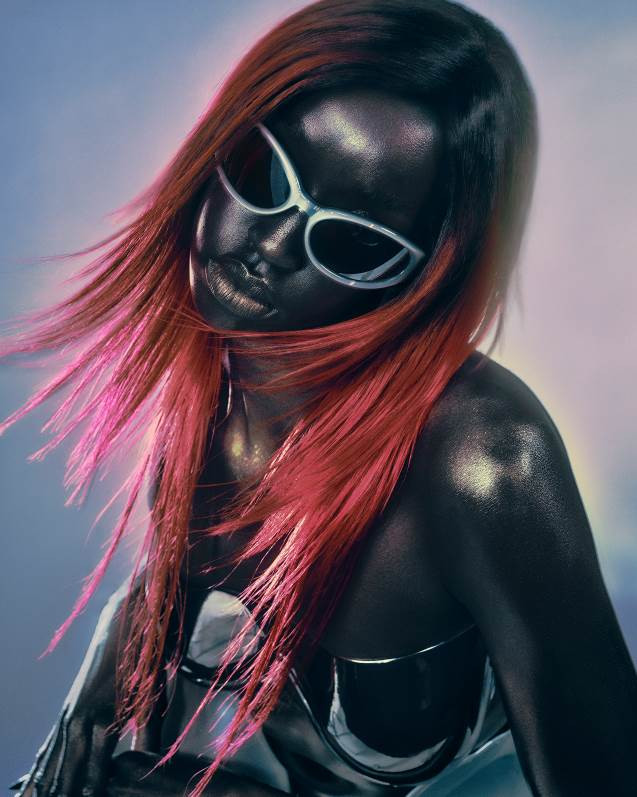
Celebrate the latest collection by mingling with these giant jelly sculptures at the Gentle Monster pop-up in Seoul and Beijing. Find out more about the collection in store and gentlemonster.com now.
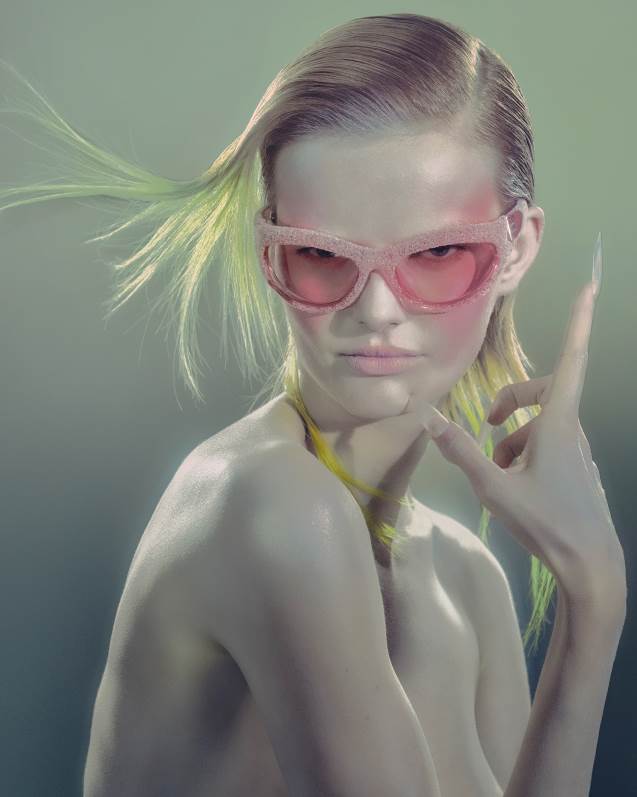
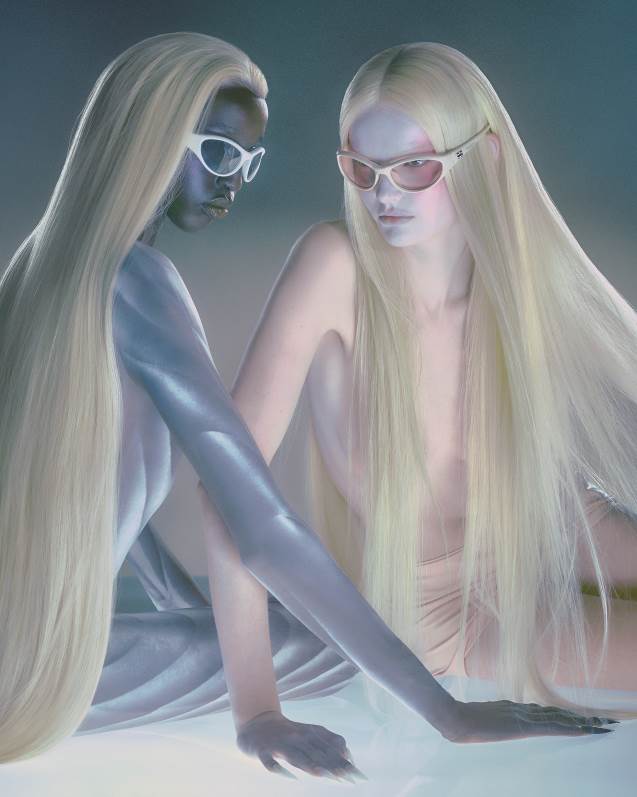
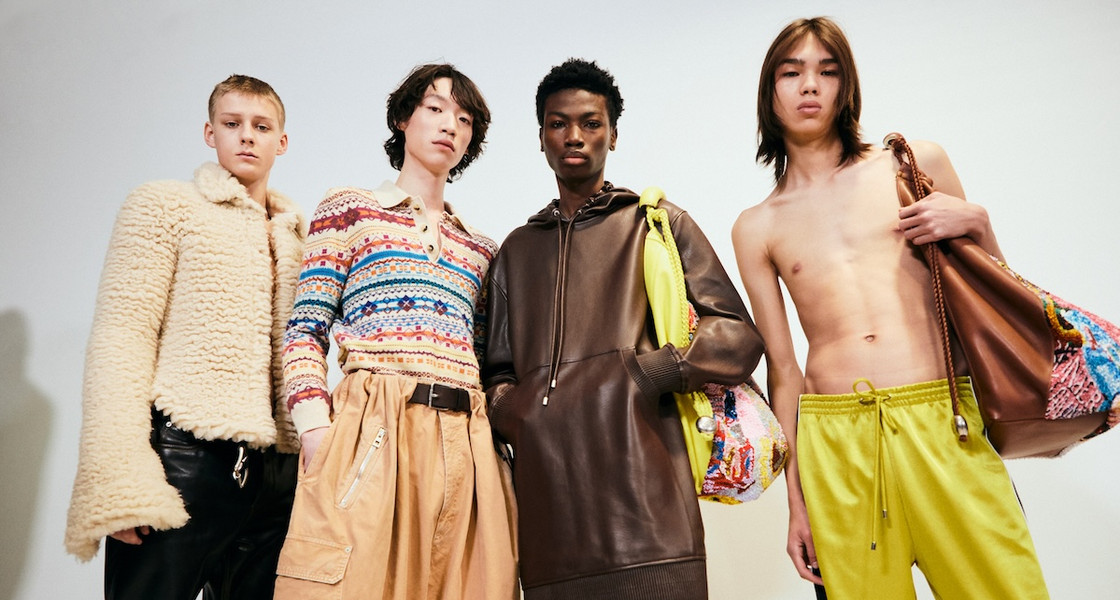
Rick Owens
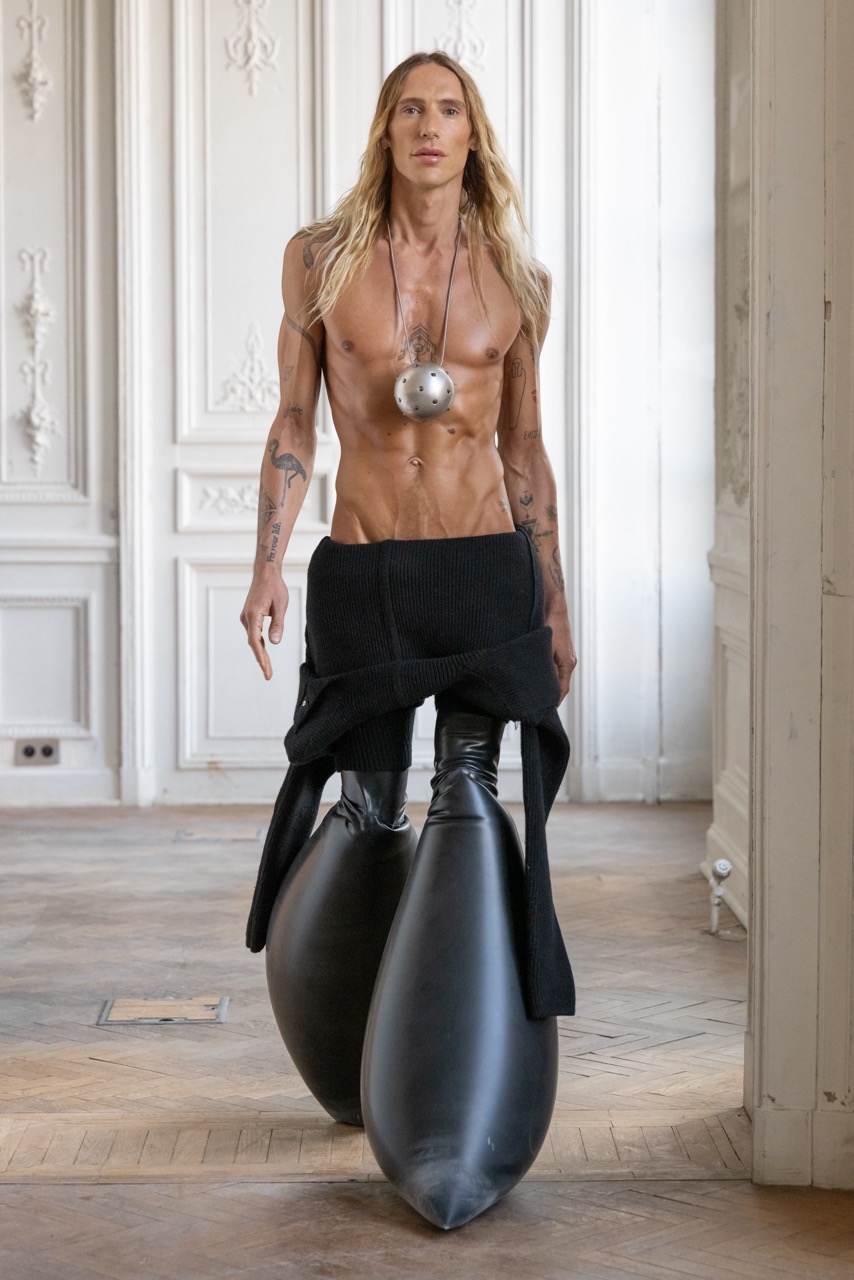
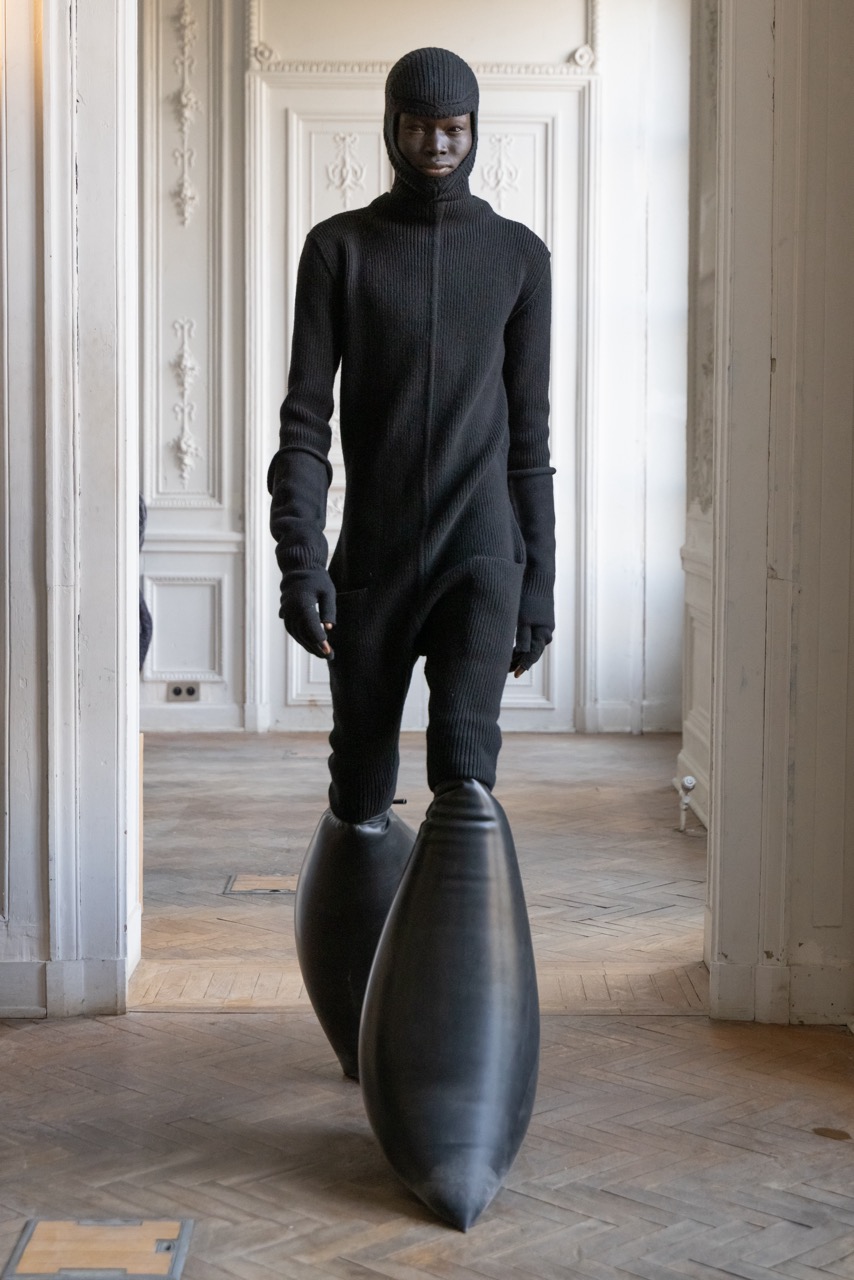
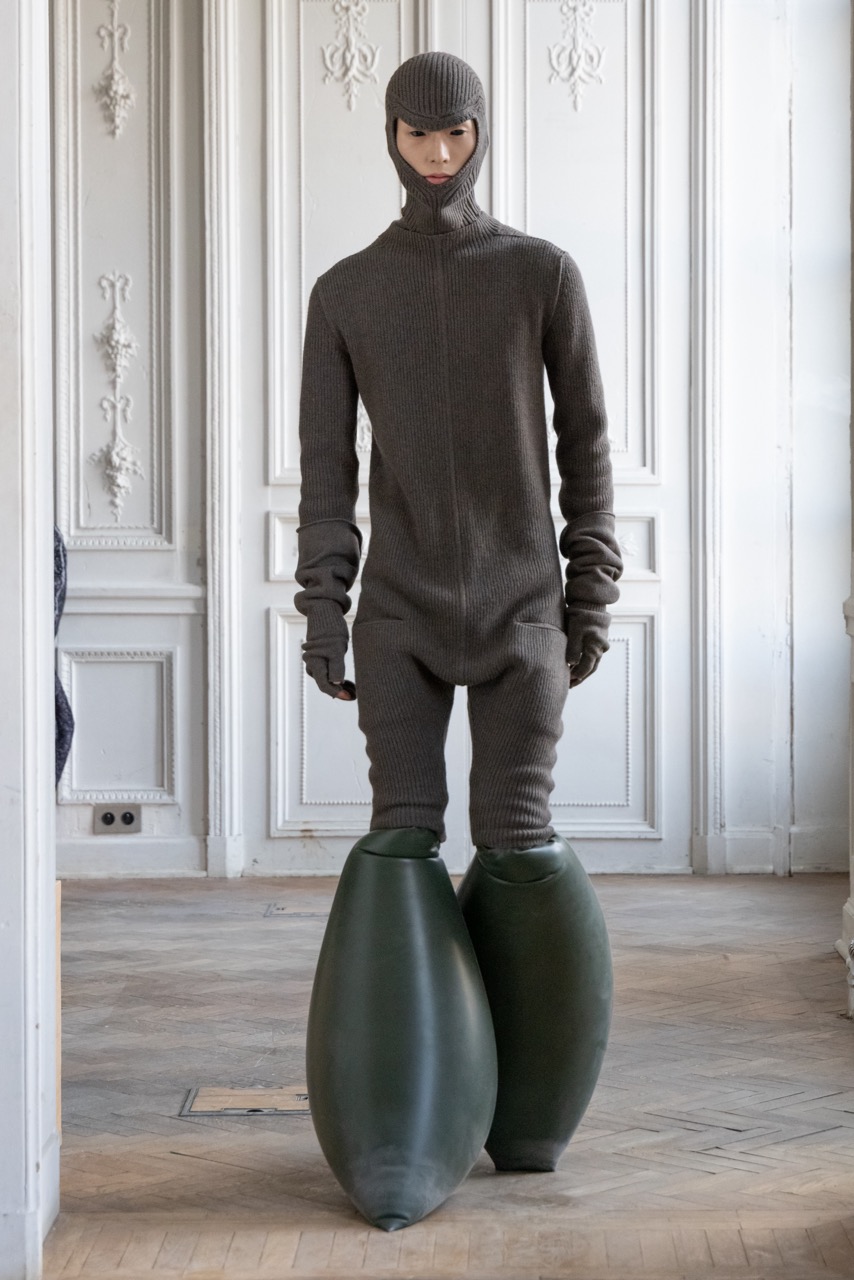
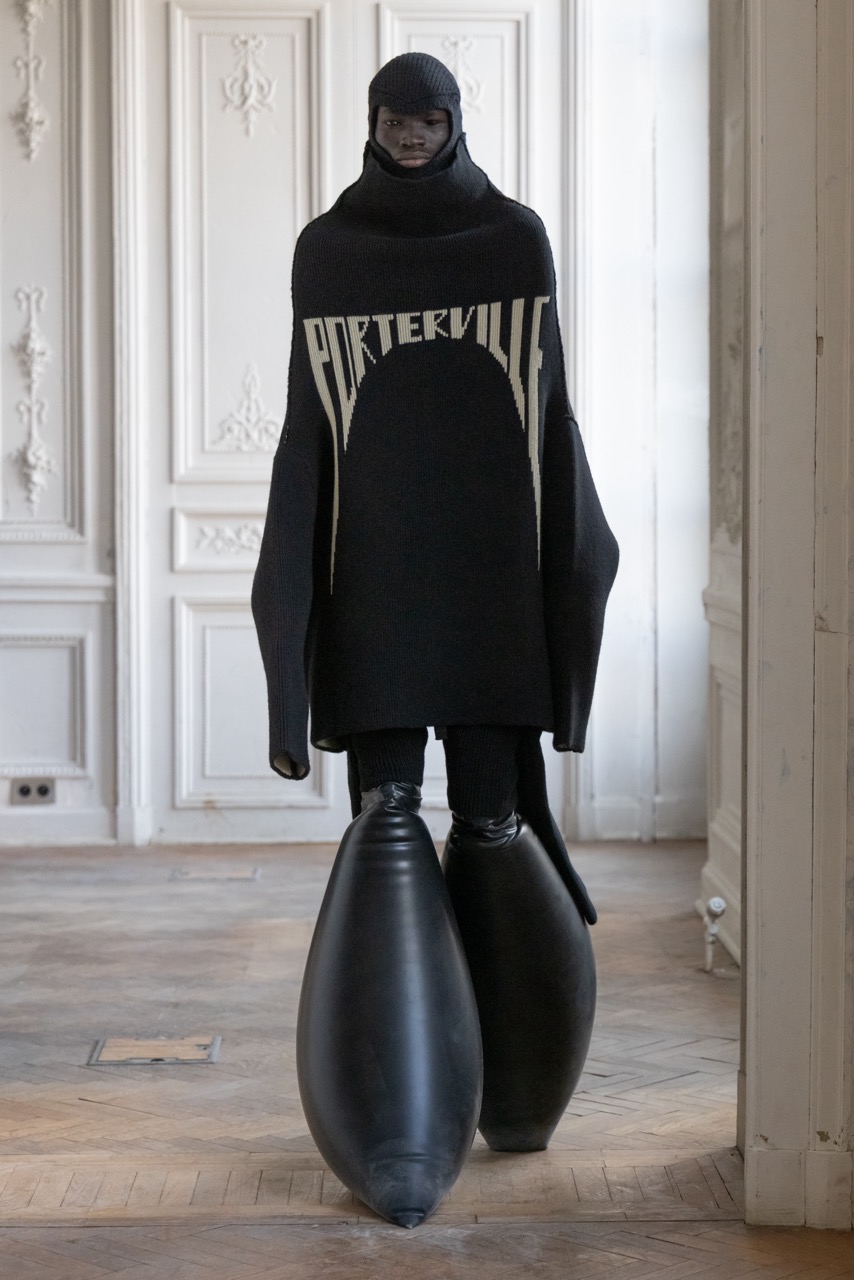
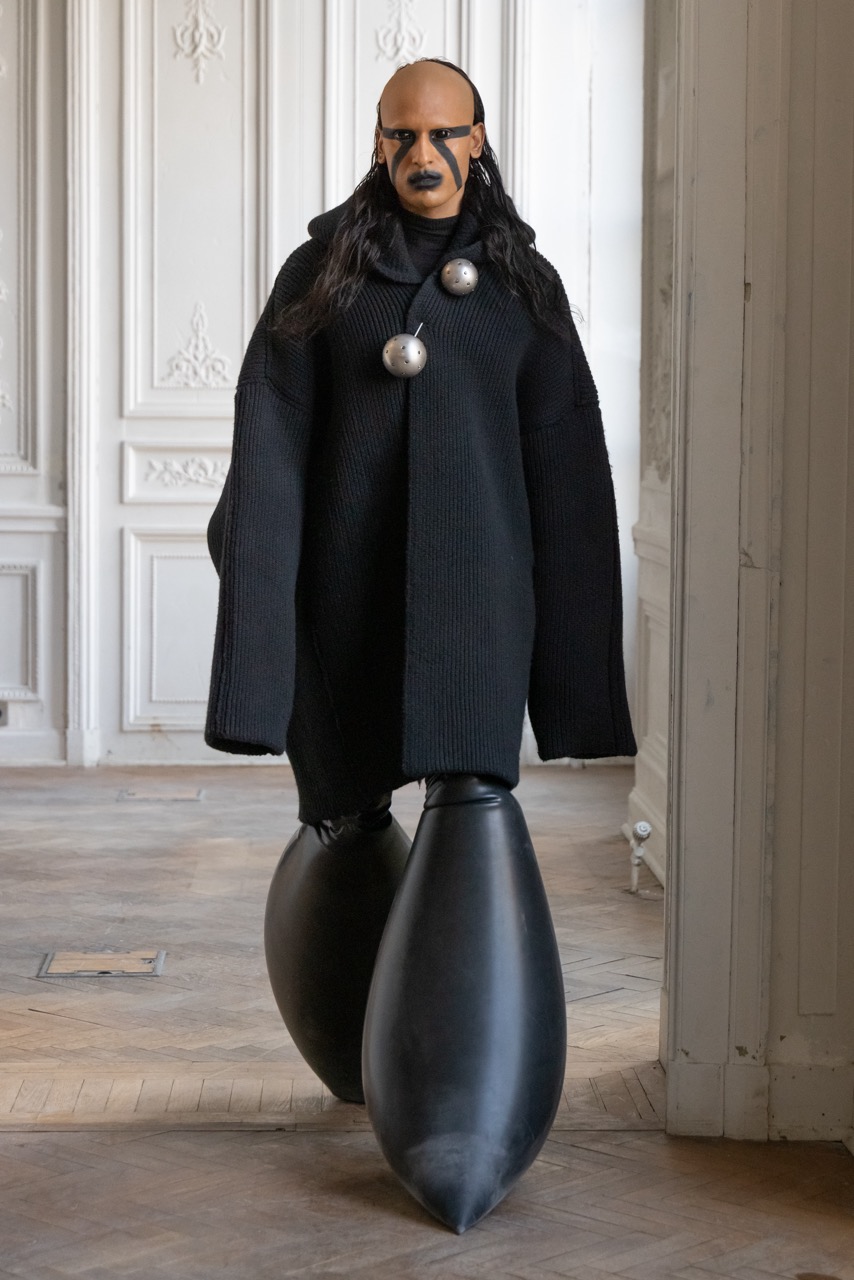
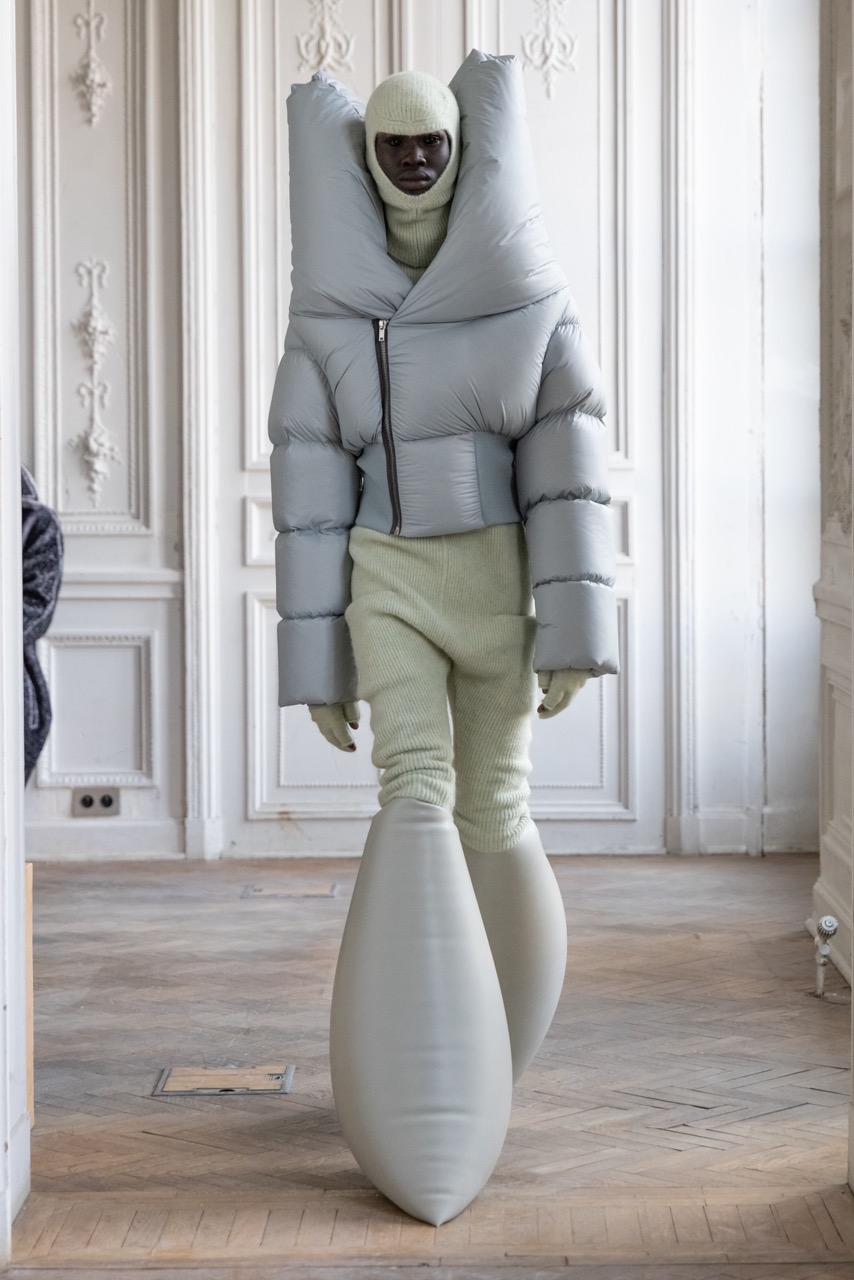
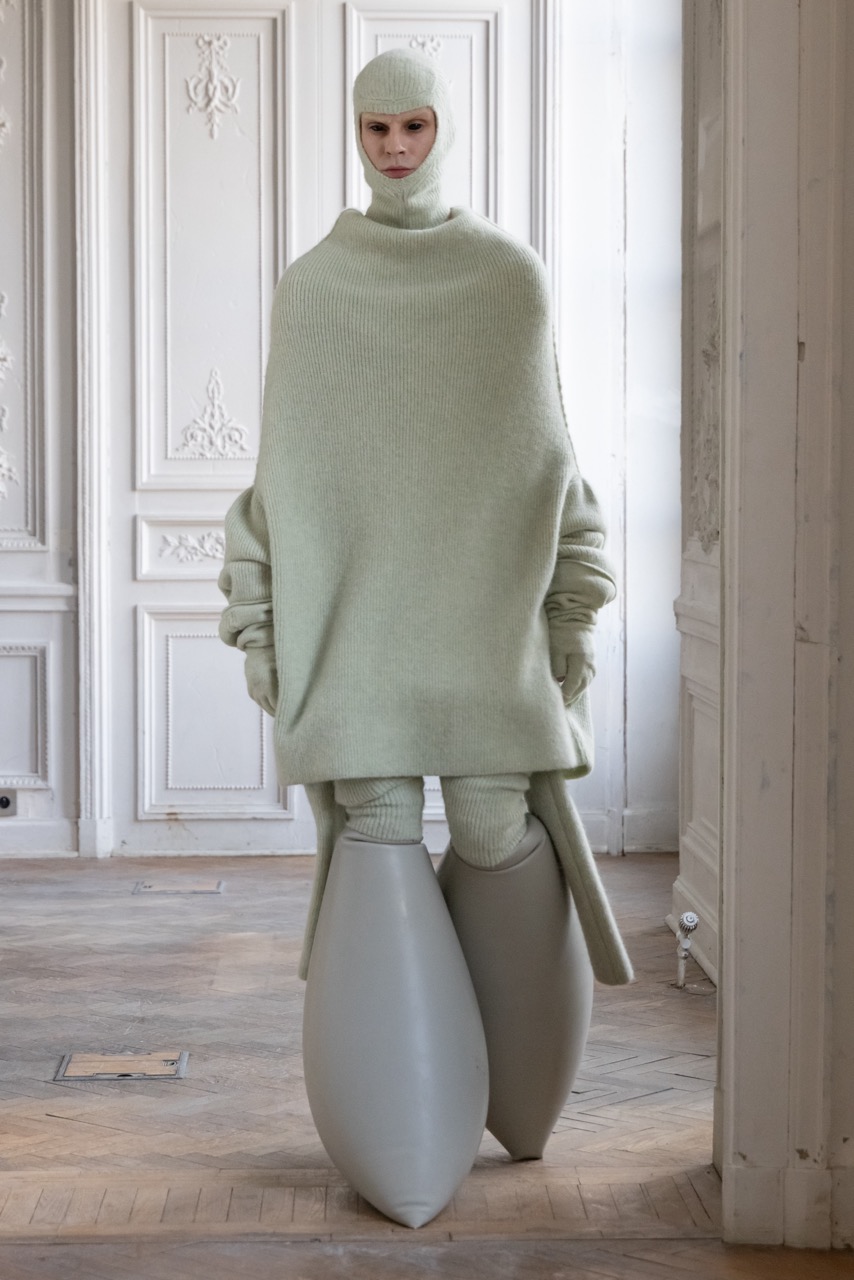
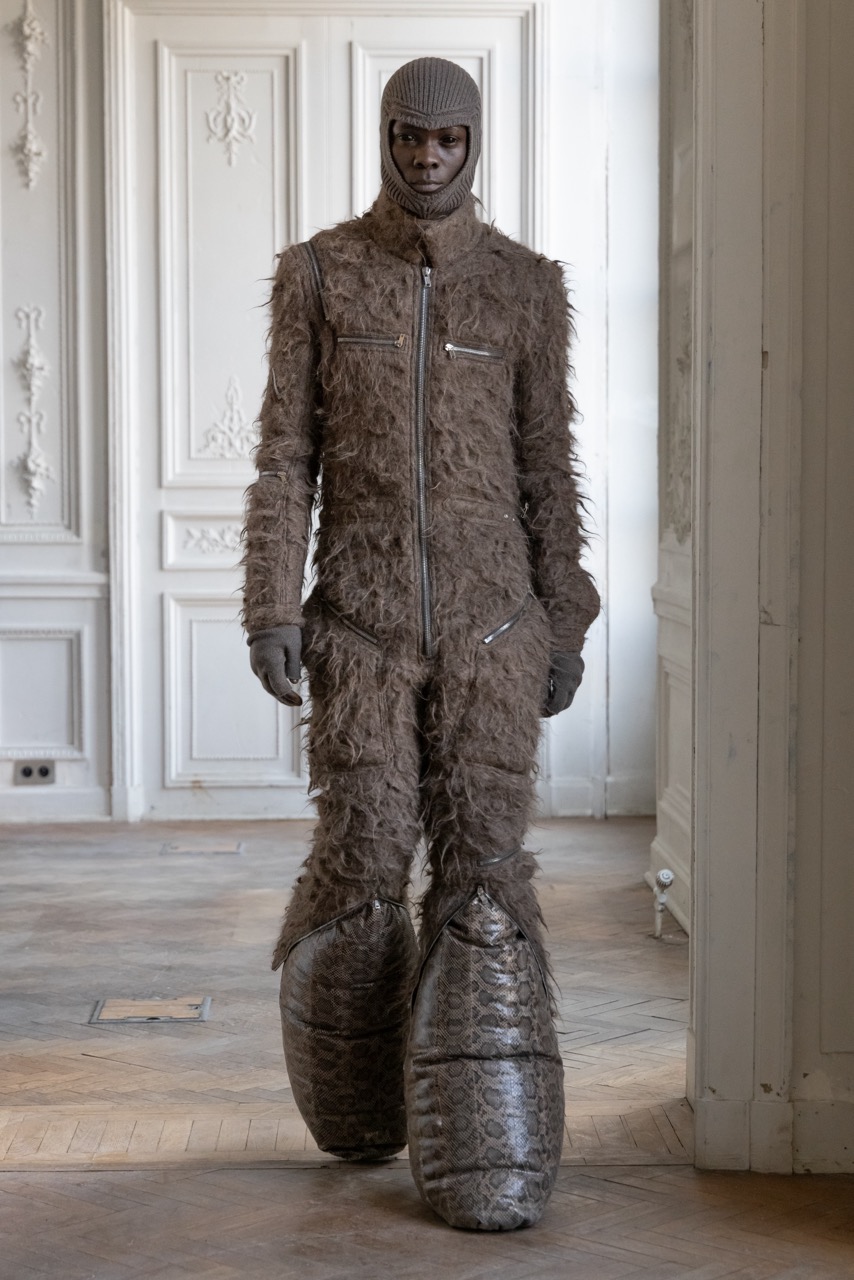
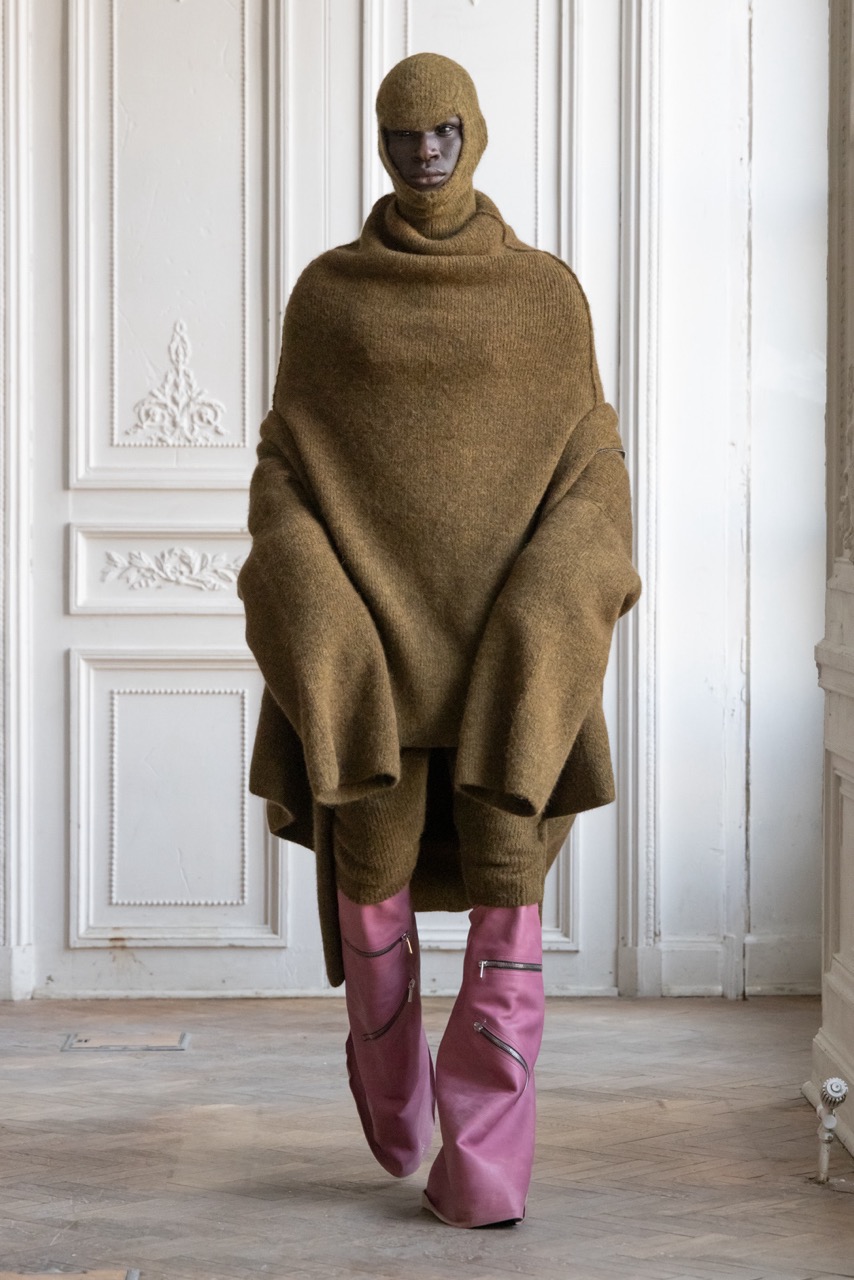
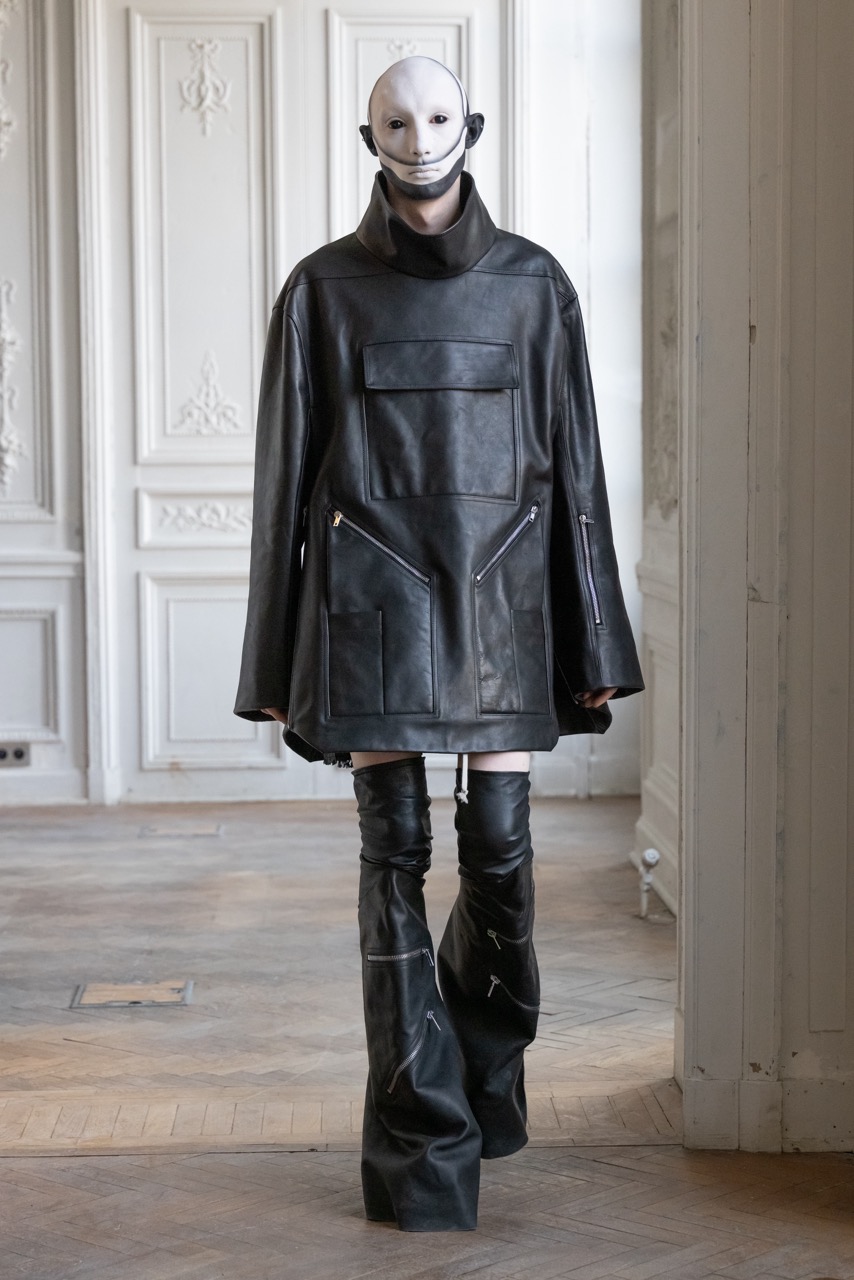
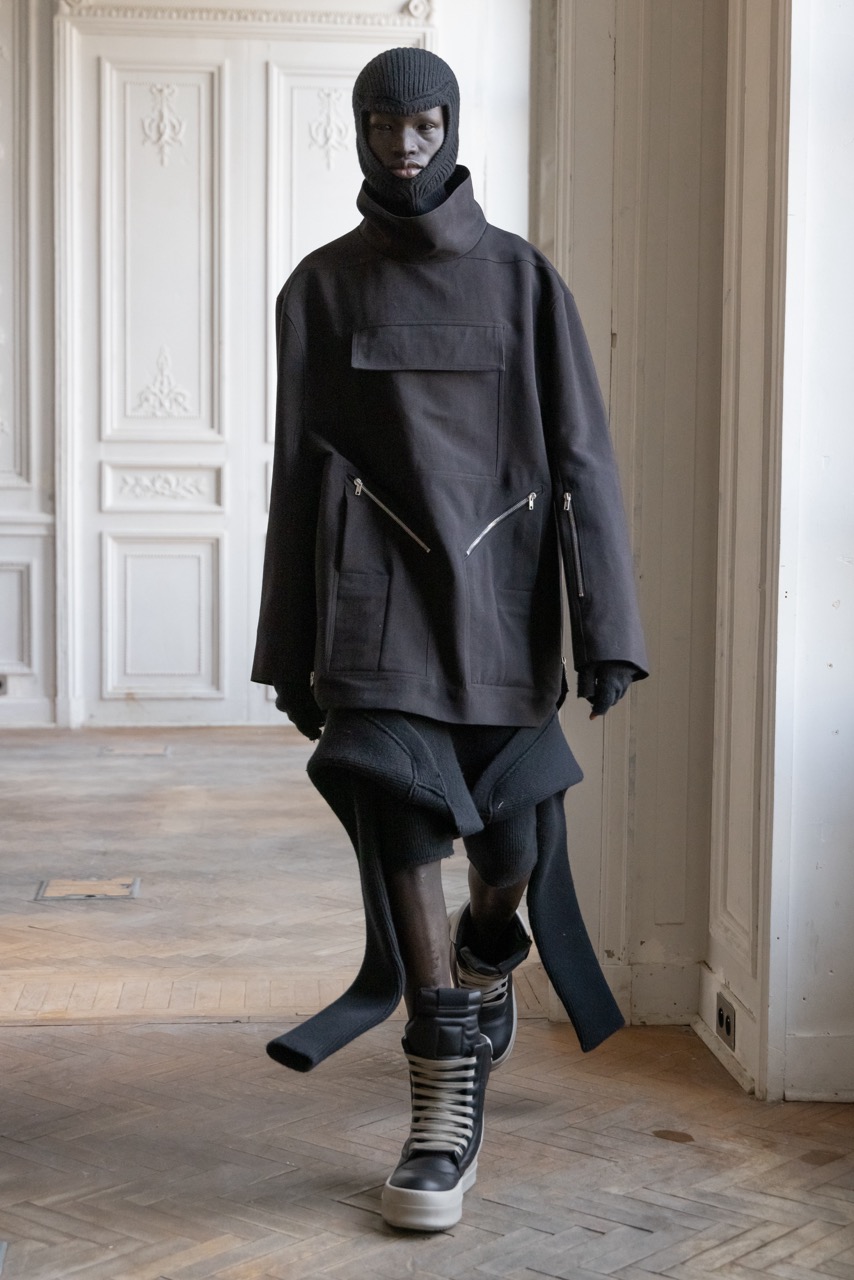
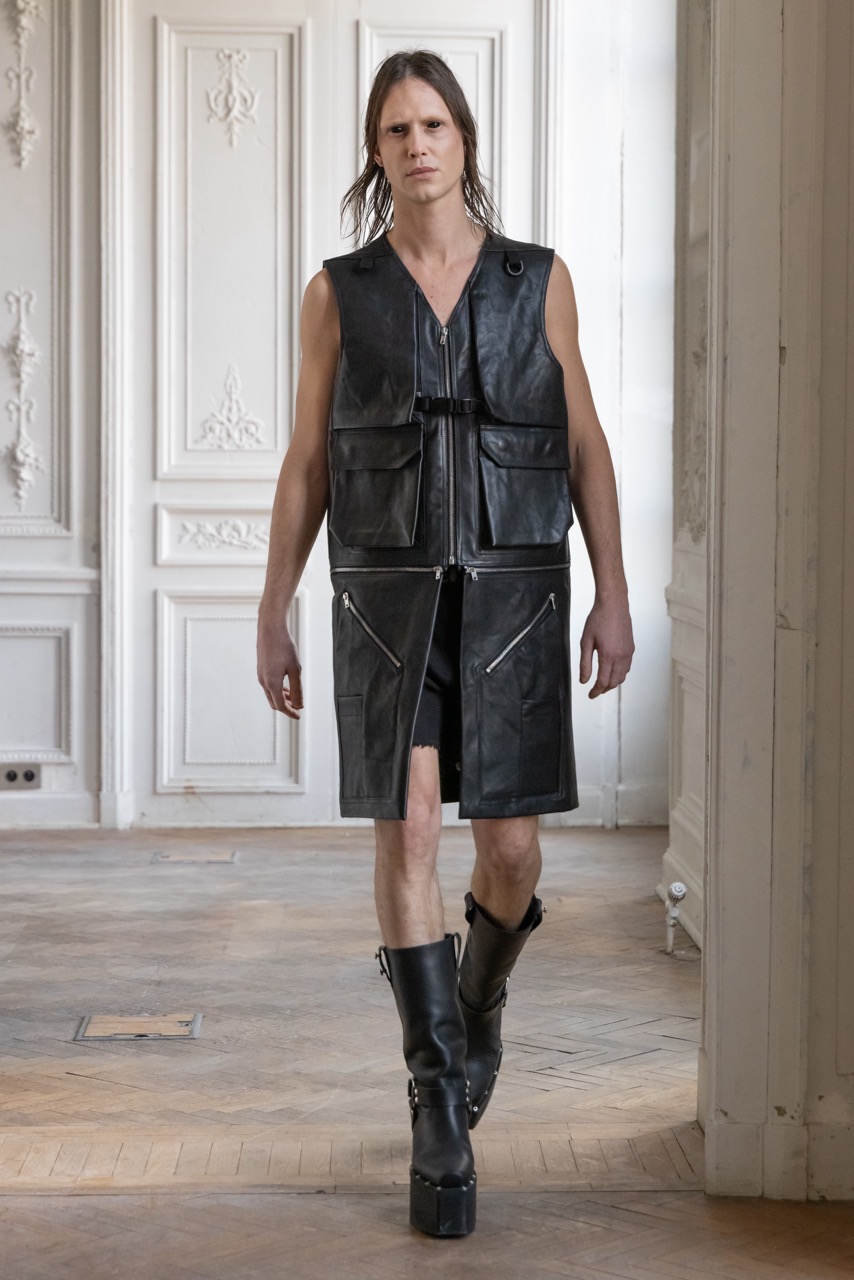
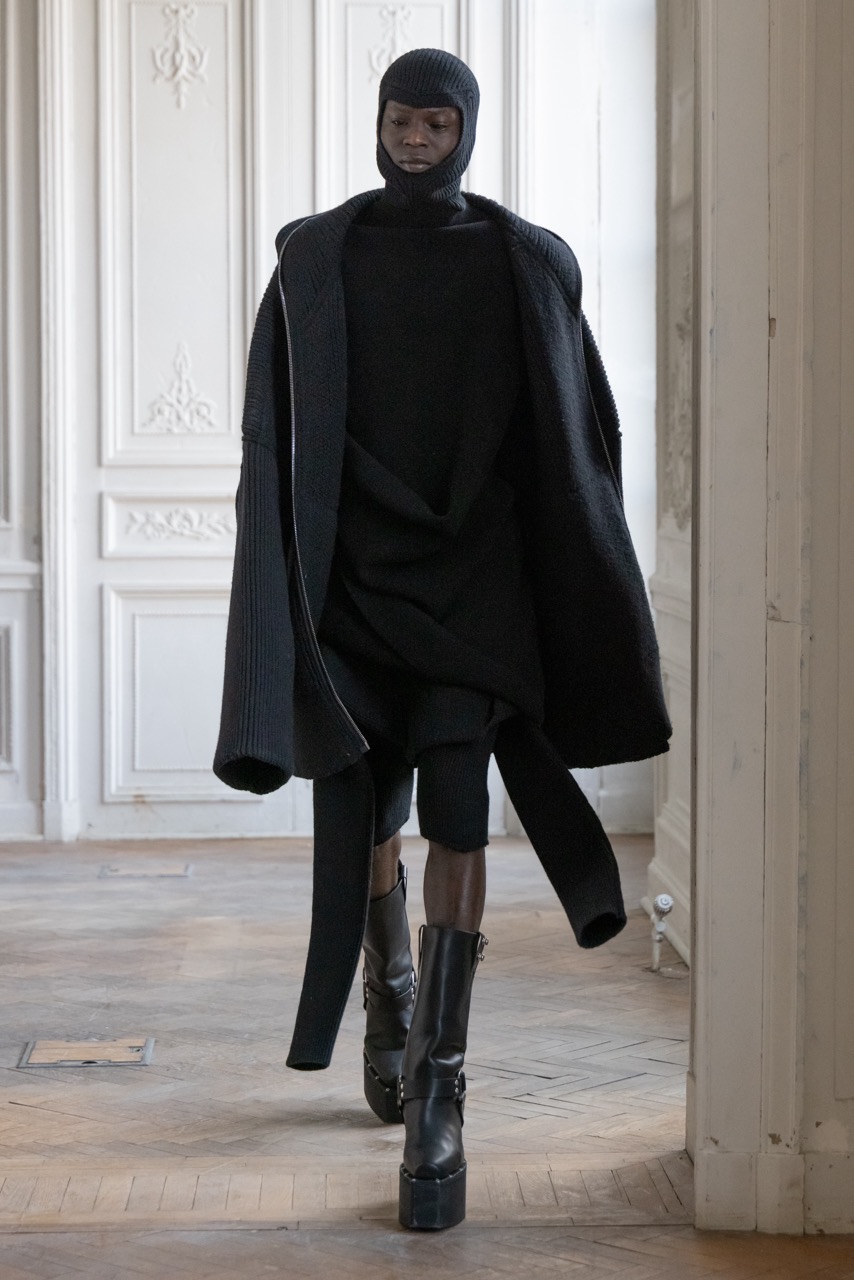
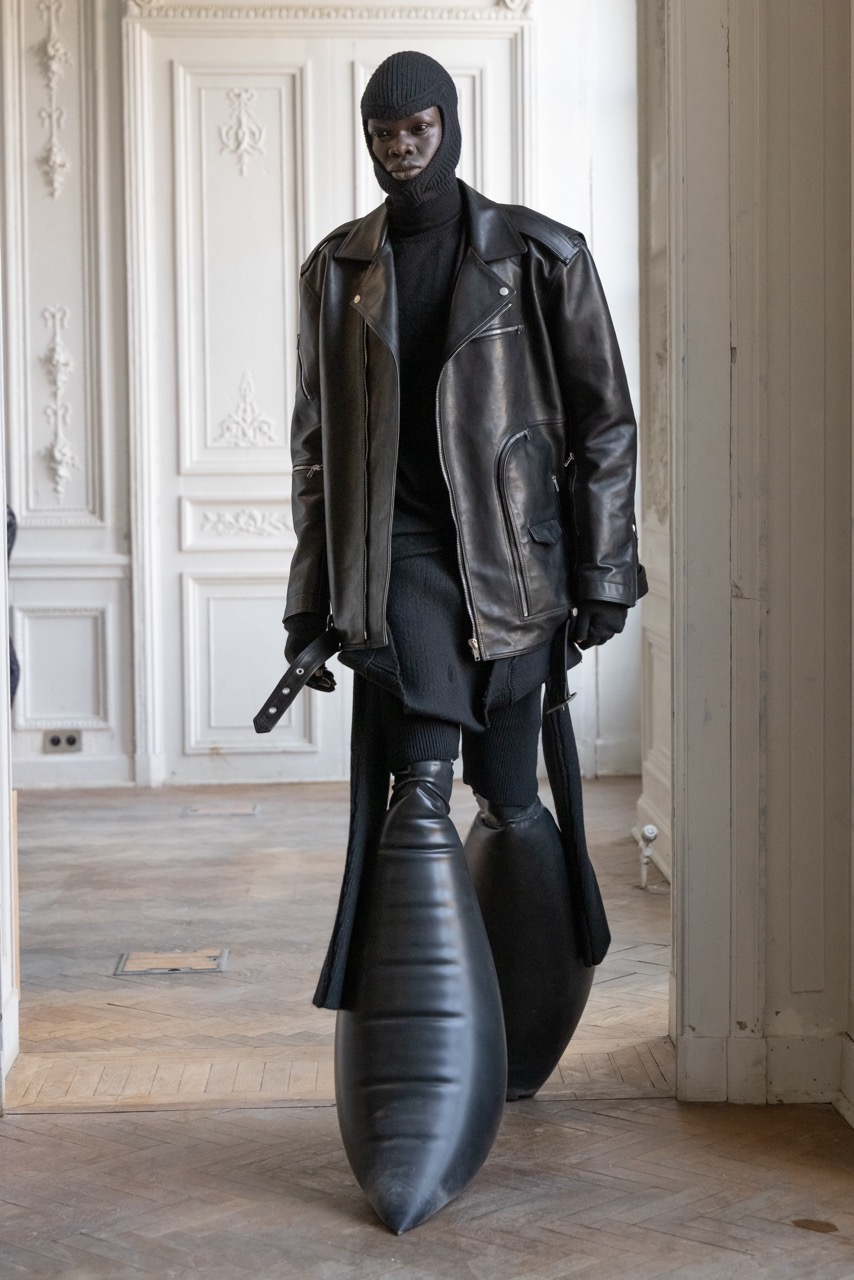
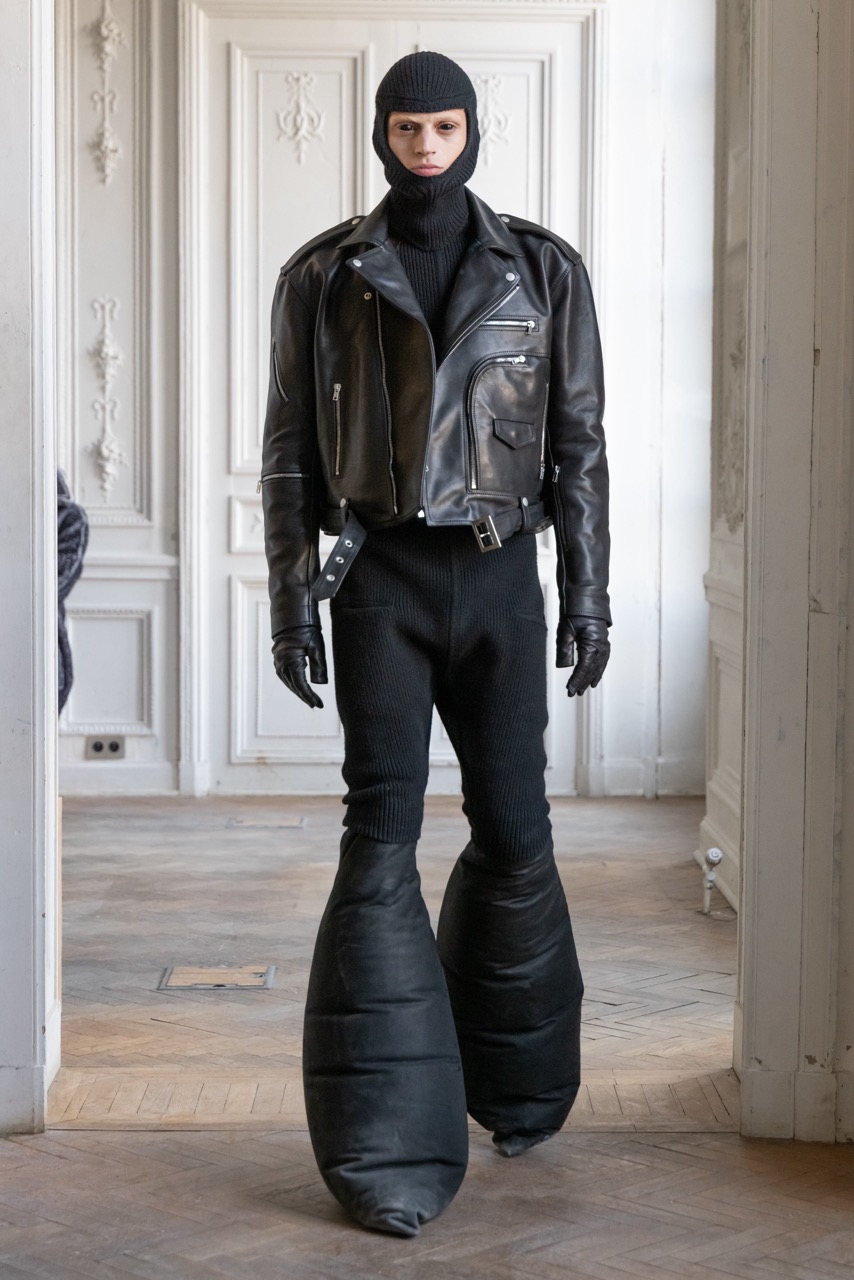
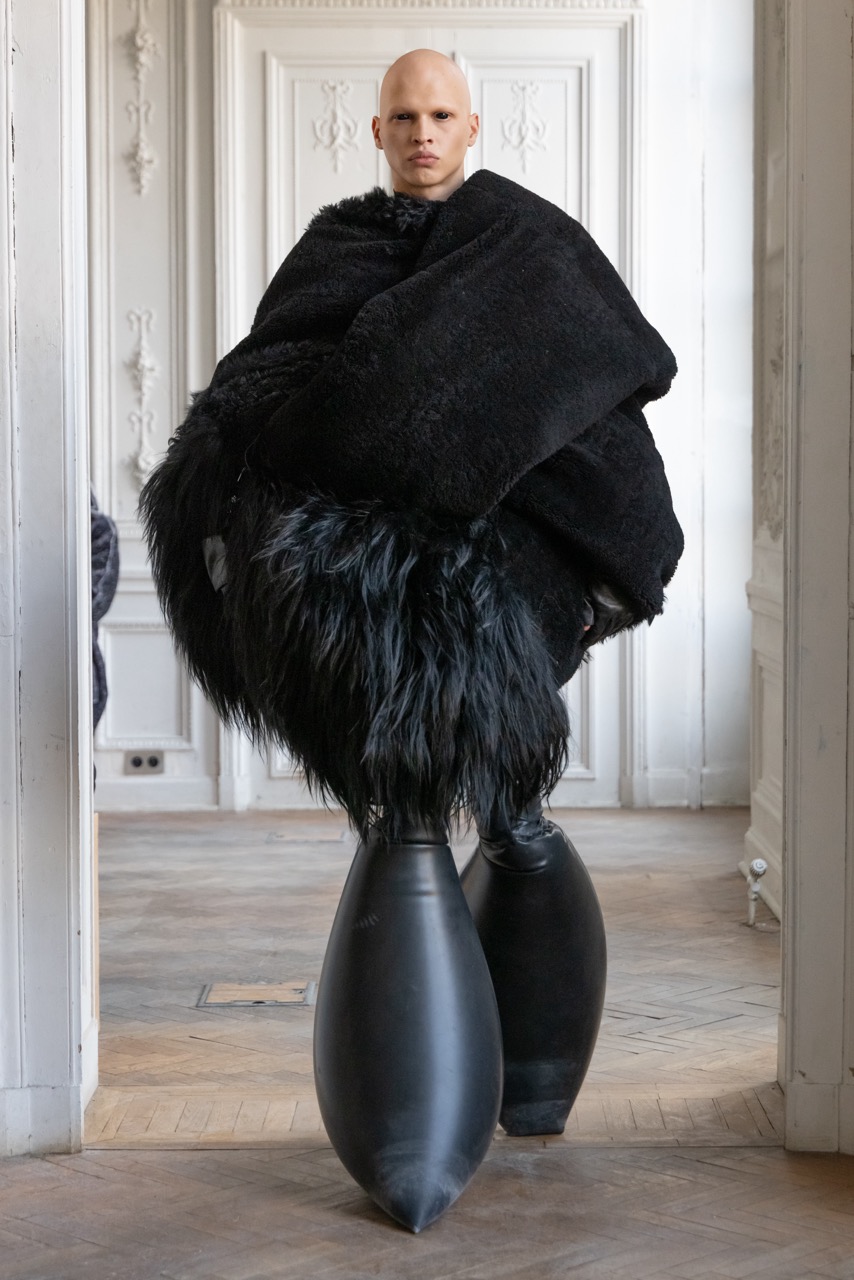
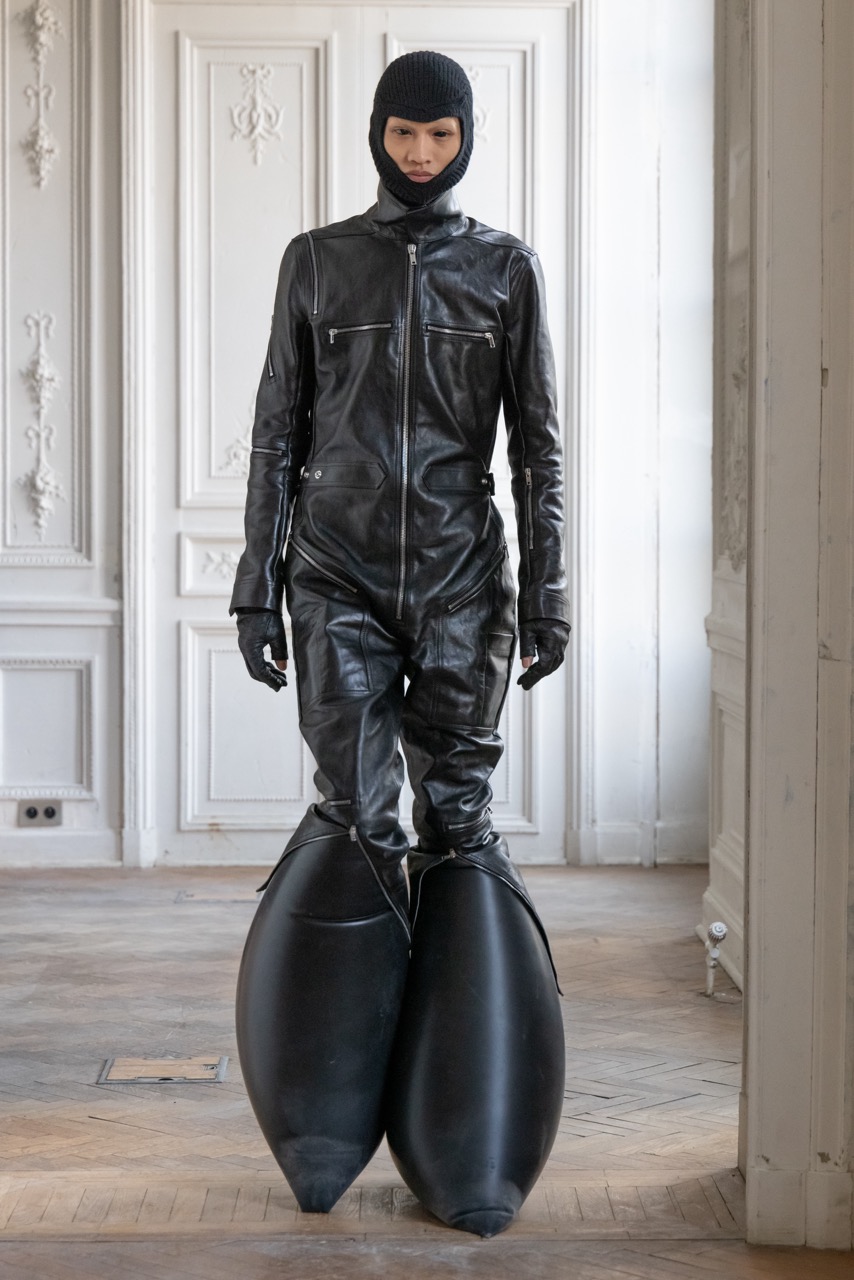
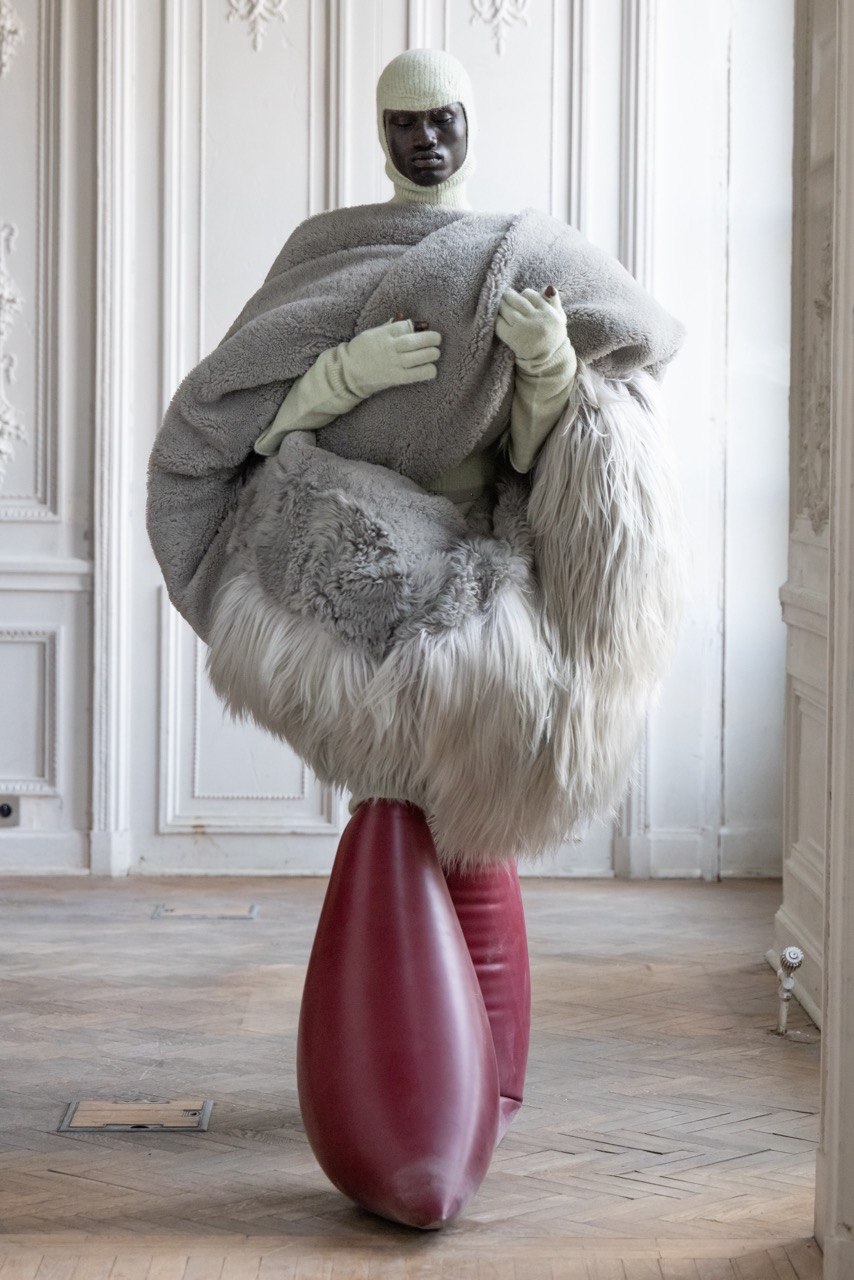
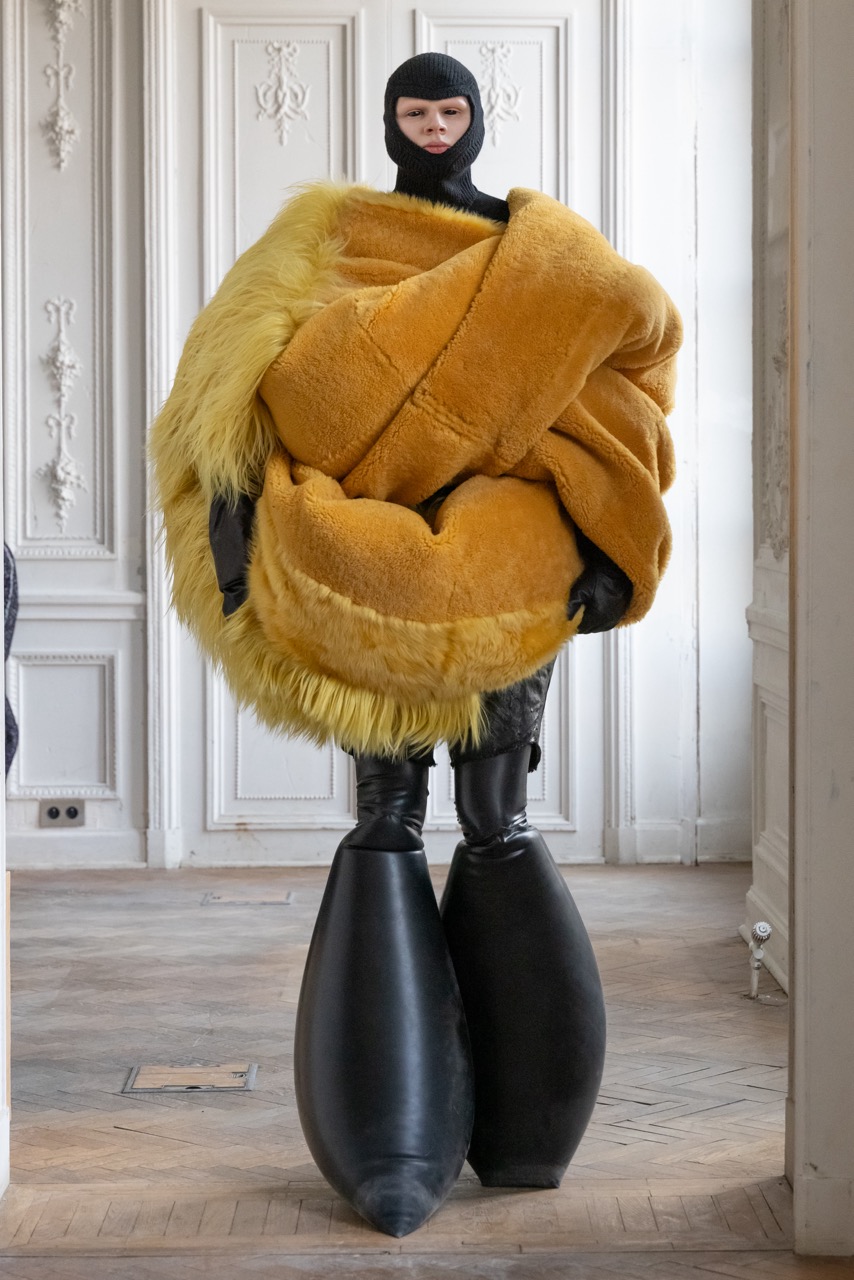
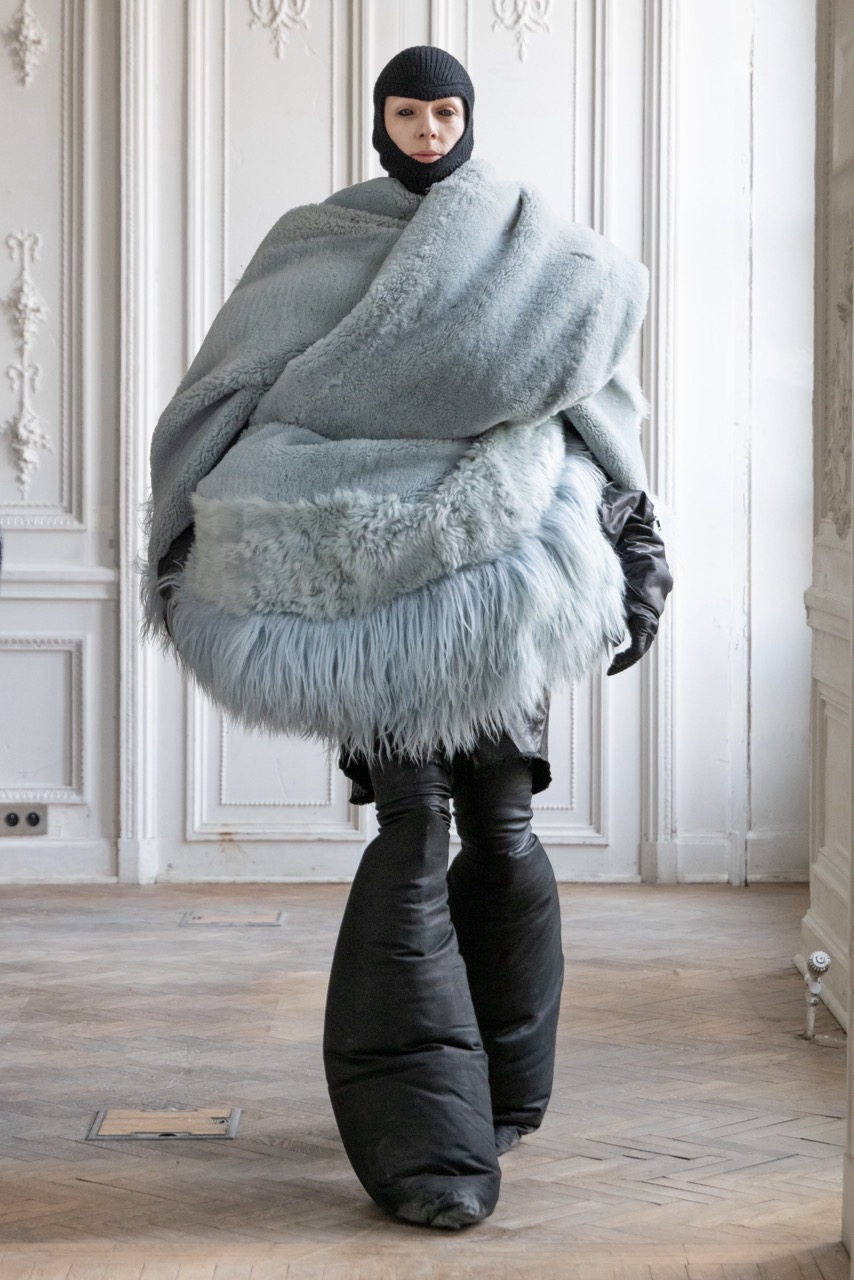
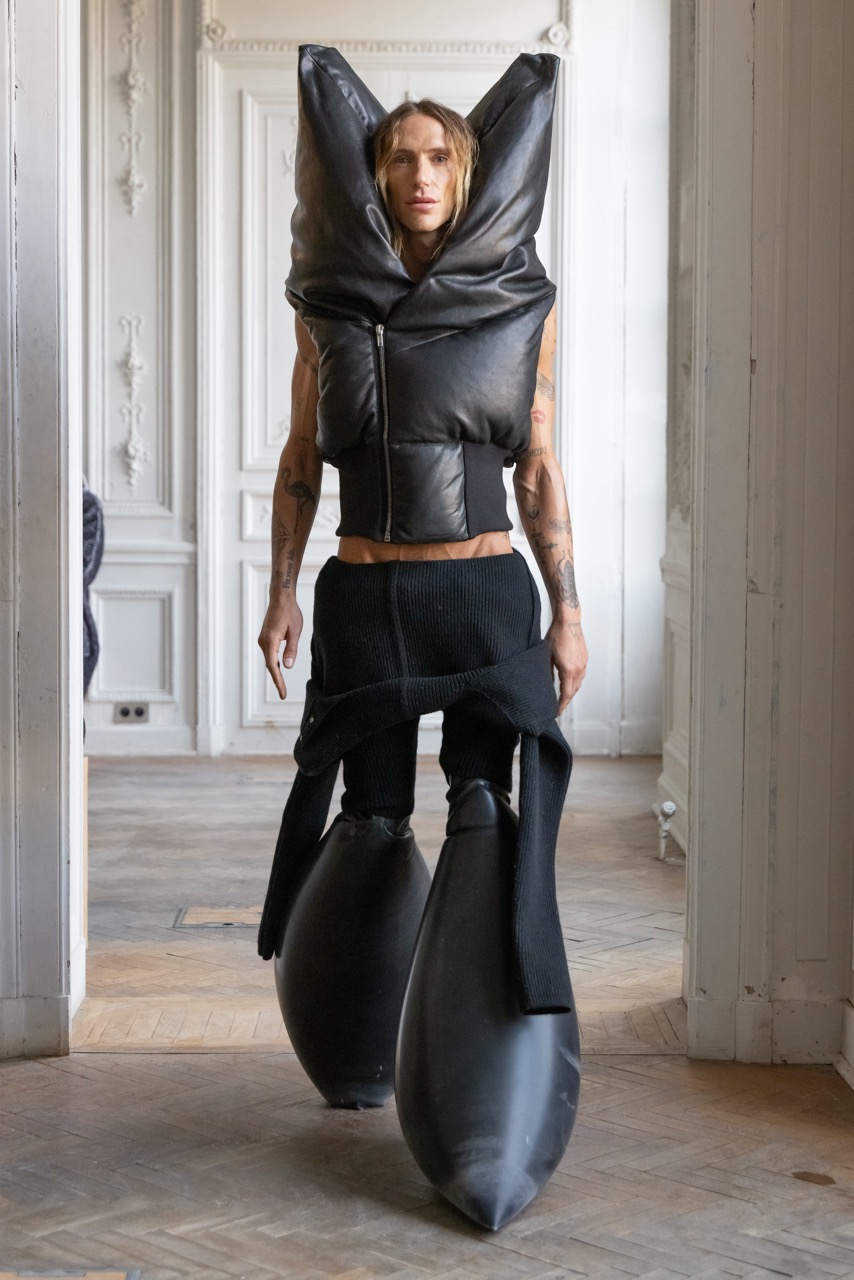
Images courtesy of OWENSCORP
There were pieces that had serious innovative potential — Rick Owens’ inflated rubber pull-on stretch boots, for starters, were a pleasing delight — but you’d hope there was still room for more of that wacky spirit in this strange world. There was an overall sense of sophistication, evident in the sartorial classicism (almost exclusively fuss-free), in the ladylike elements of gently-volumised tailoring, and even across designers’ take on retail-ready numbers, which embodied sensitivity to industry insiders who prefer understatement. What’s more, slightly puffed shoulders on classic pockets, zippered hems and asymmetrical shirting flowed generously across the catwalks, adding further points to creativity’s departure. Which is why, in a season heavy on the pared-back romance, younger designers make for sweet but cool counterpoints. And as fashion once again looked to its archives and personal narratives, it’s intriguing to see how creative minds continue to shy away from volume and drama, pulling out all manner of outlandish sensitivities and opting to eschew avant-garde pieces to have a subtlety akin to something out of an Impressionist painting of Parisienne jeunne filles. What really makes these designers a subject to watch, though, is the way their elegant instinct make them think out of the functional boxes of their Milanese and Americans counterparts, compressing all the prettiness of a collection into a cohesive outing: a scarf a model can realistically shove into a coat, flats teamed with longline coats or a kilted skirt with bustle flounces paired with a crisp-cut white shirt. Despite the flat bonus-tracks of the season, there were memorable efforts that could nicely slip into a man’s wardrobe next season.
Wales Bonner
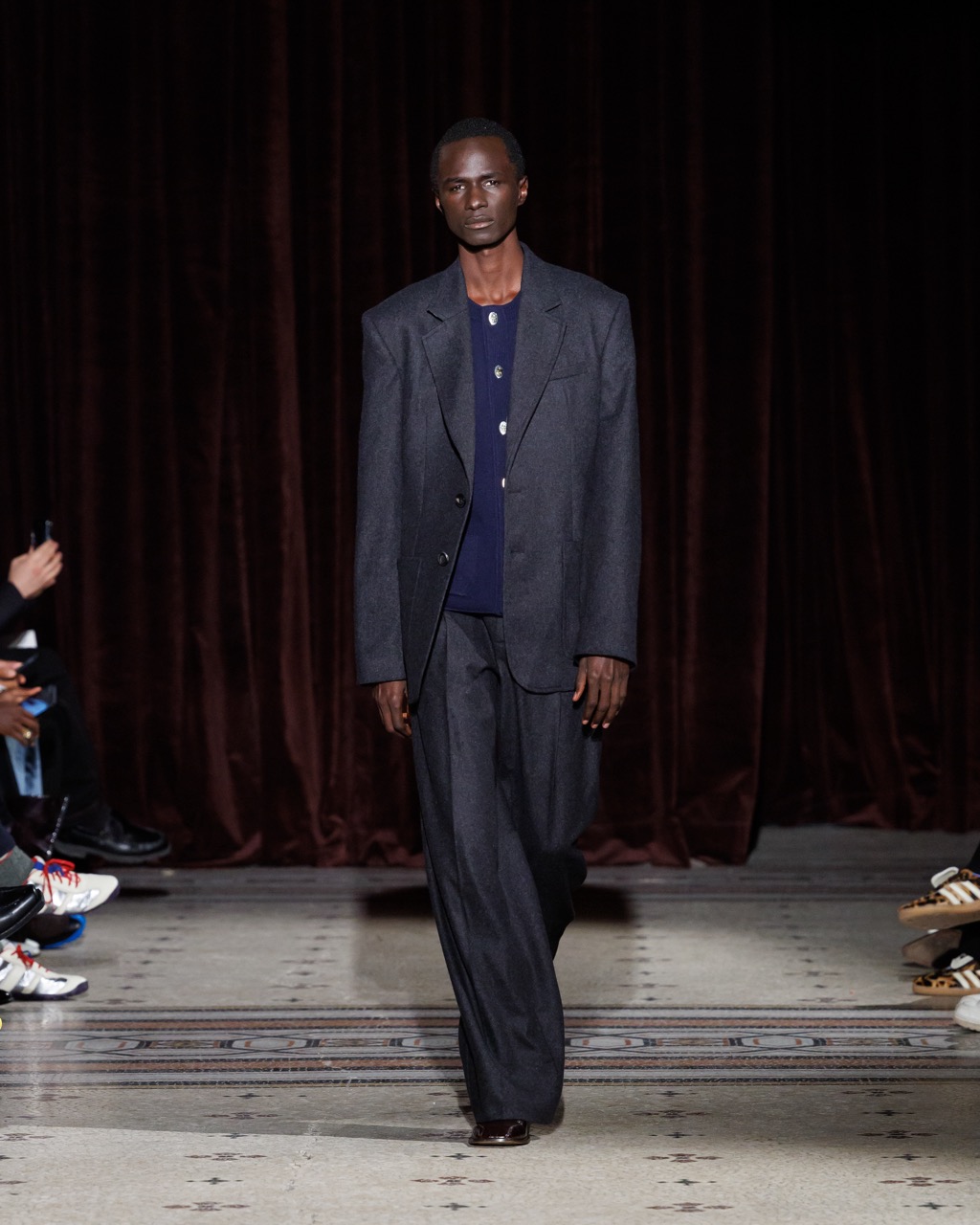
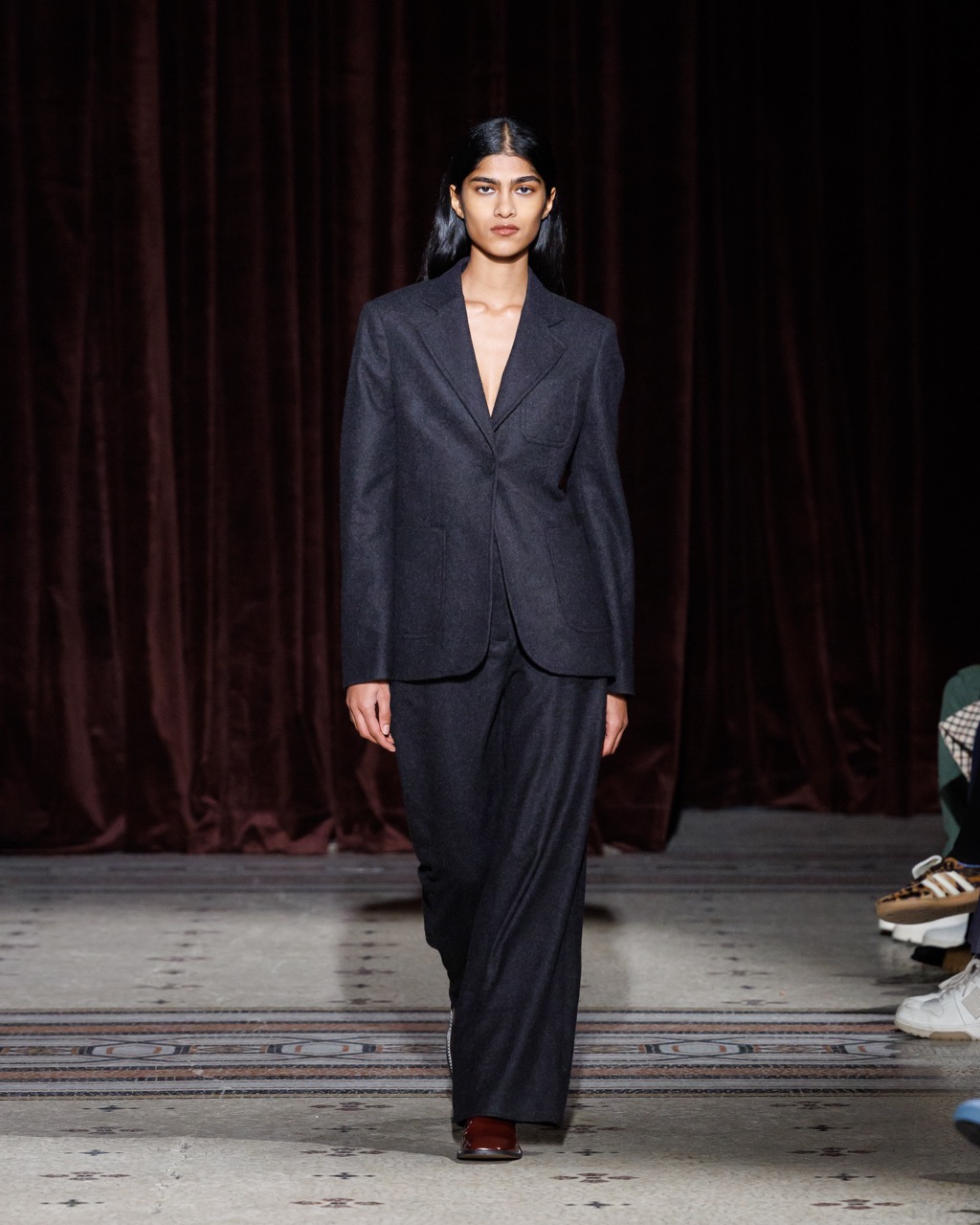
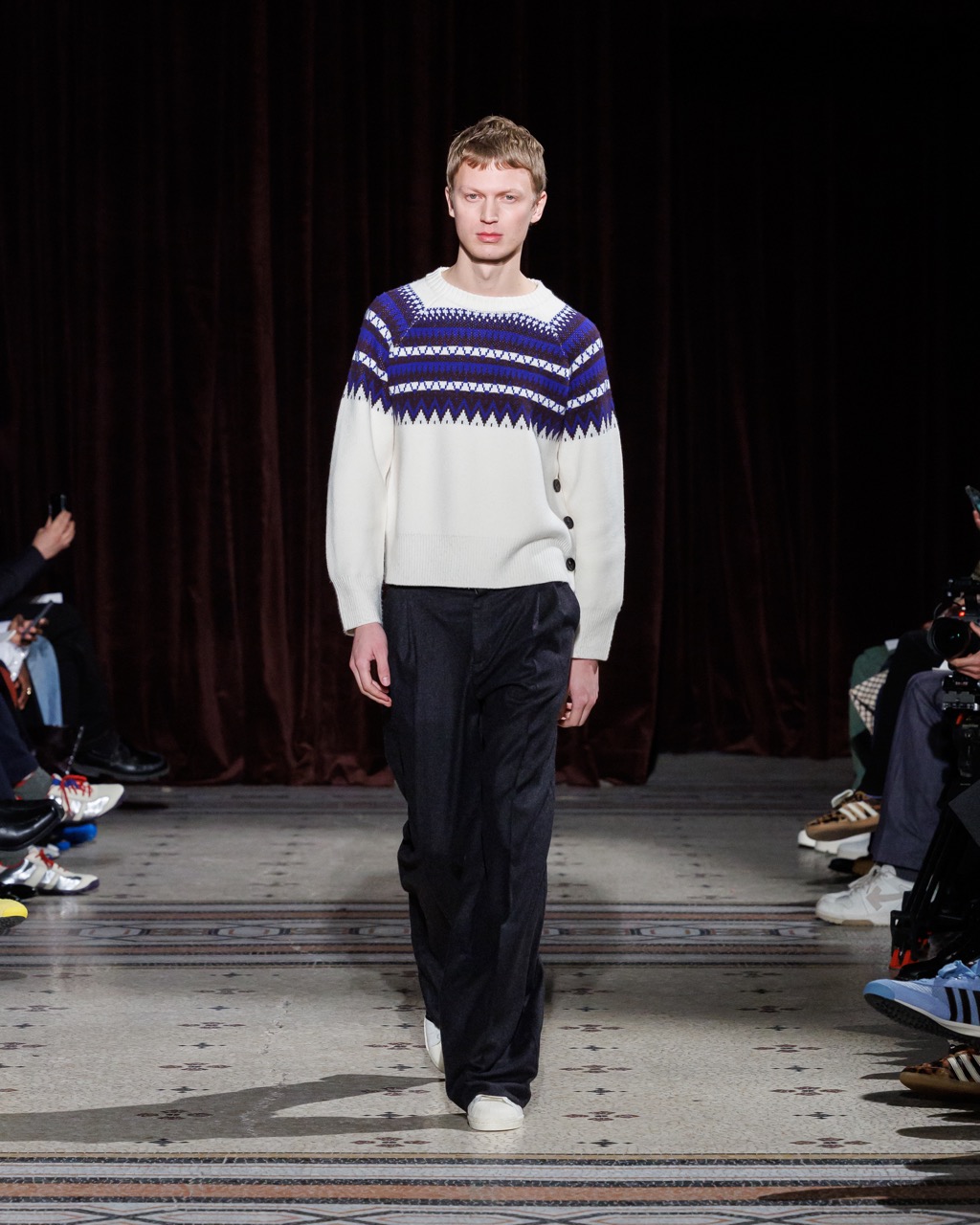
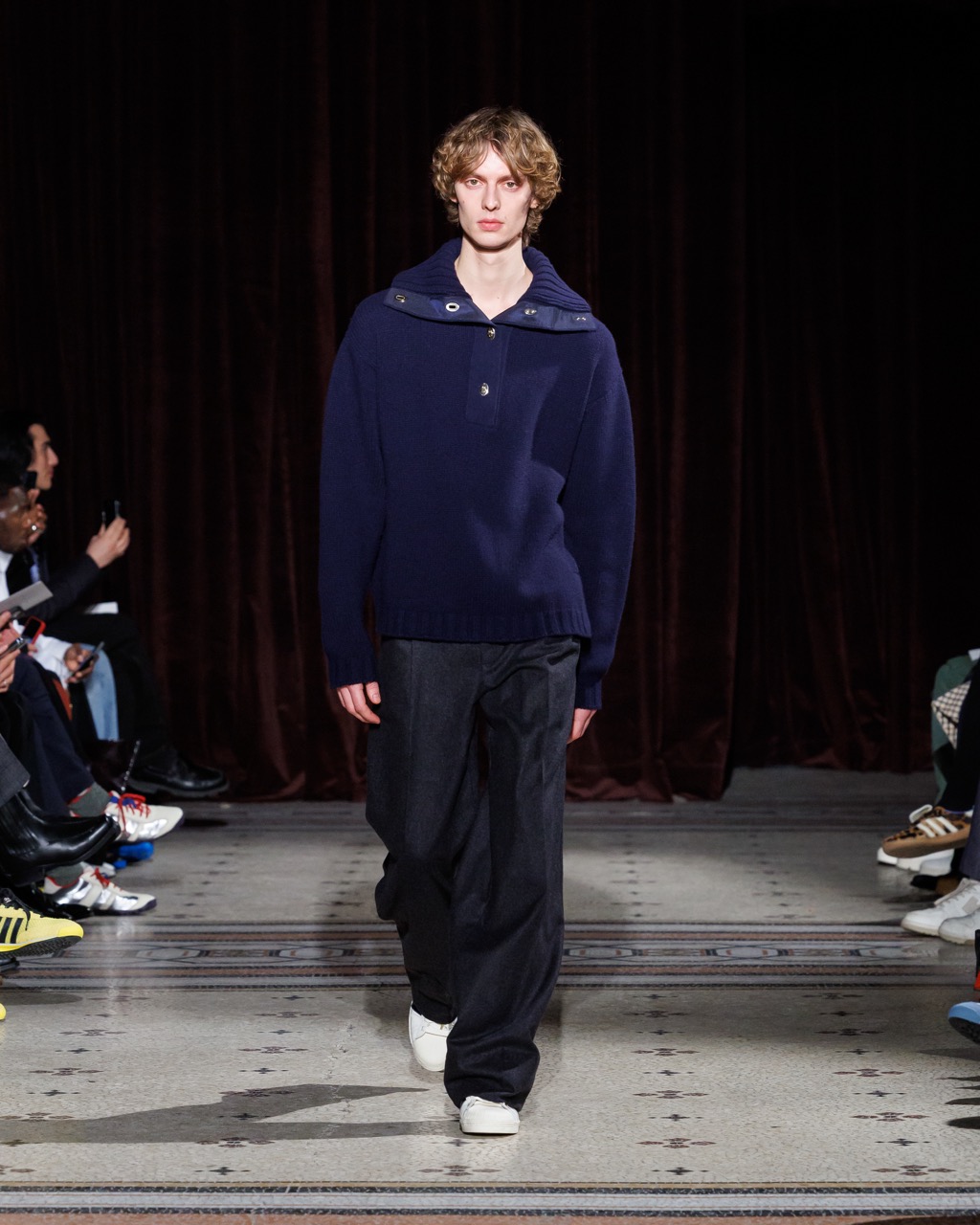
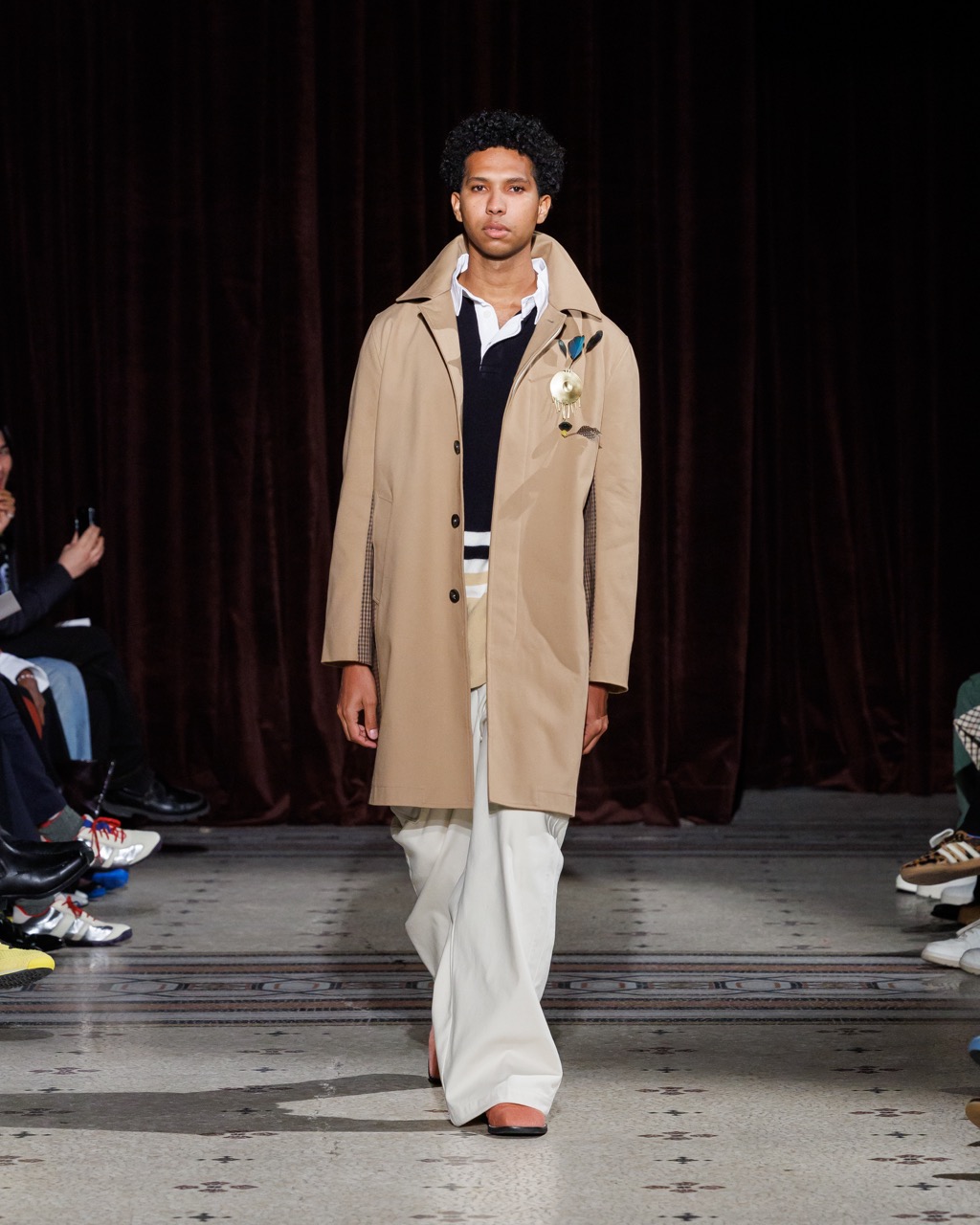
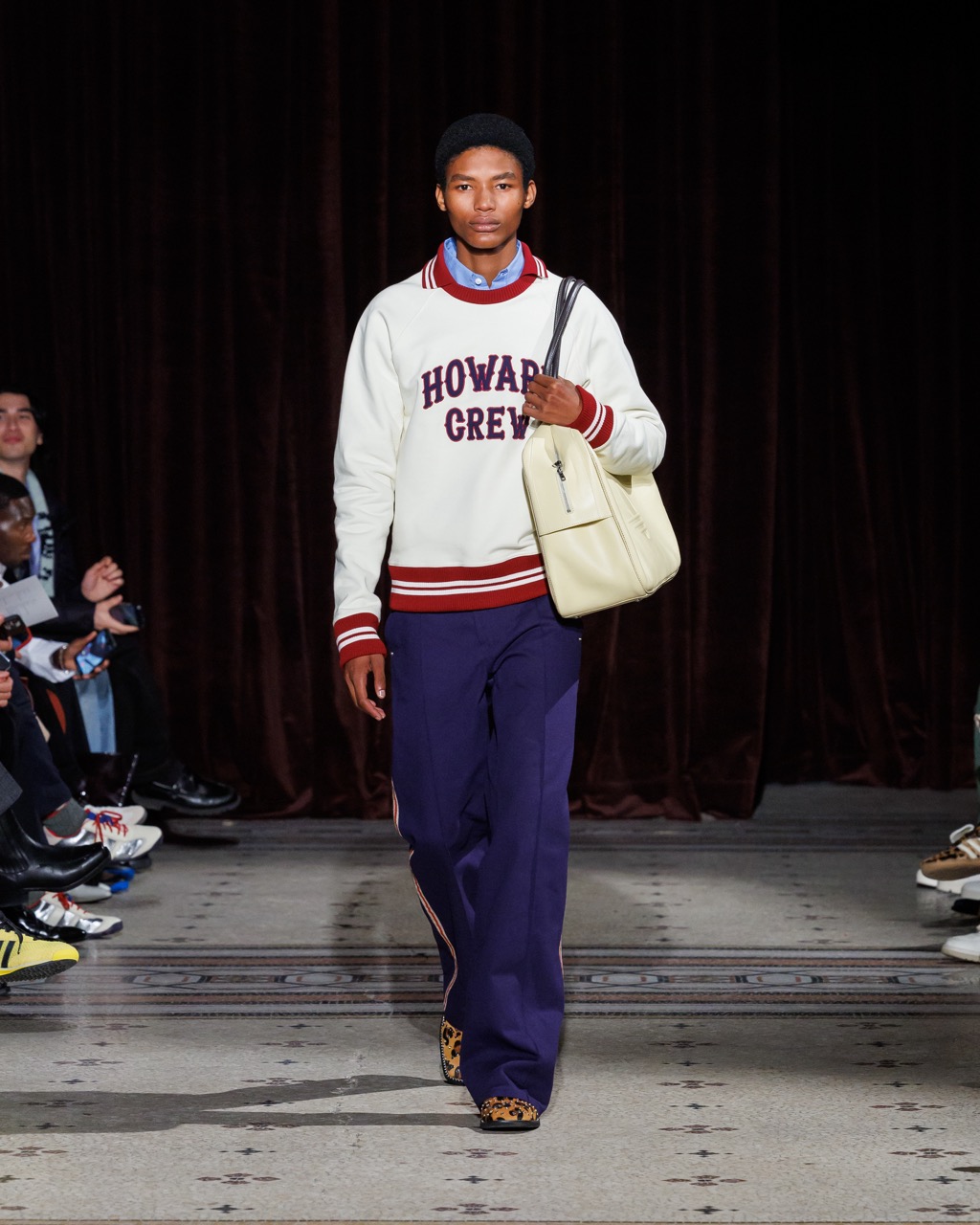
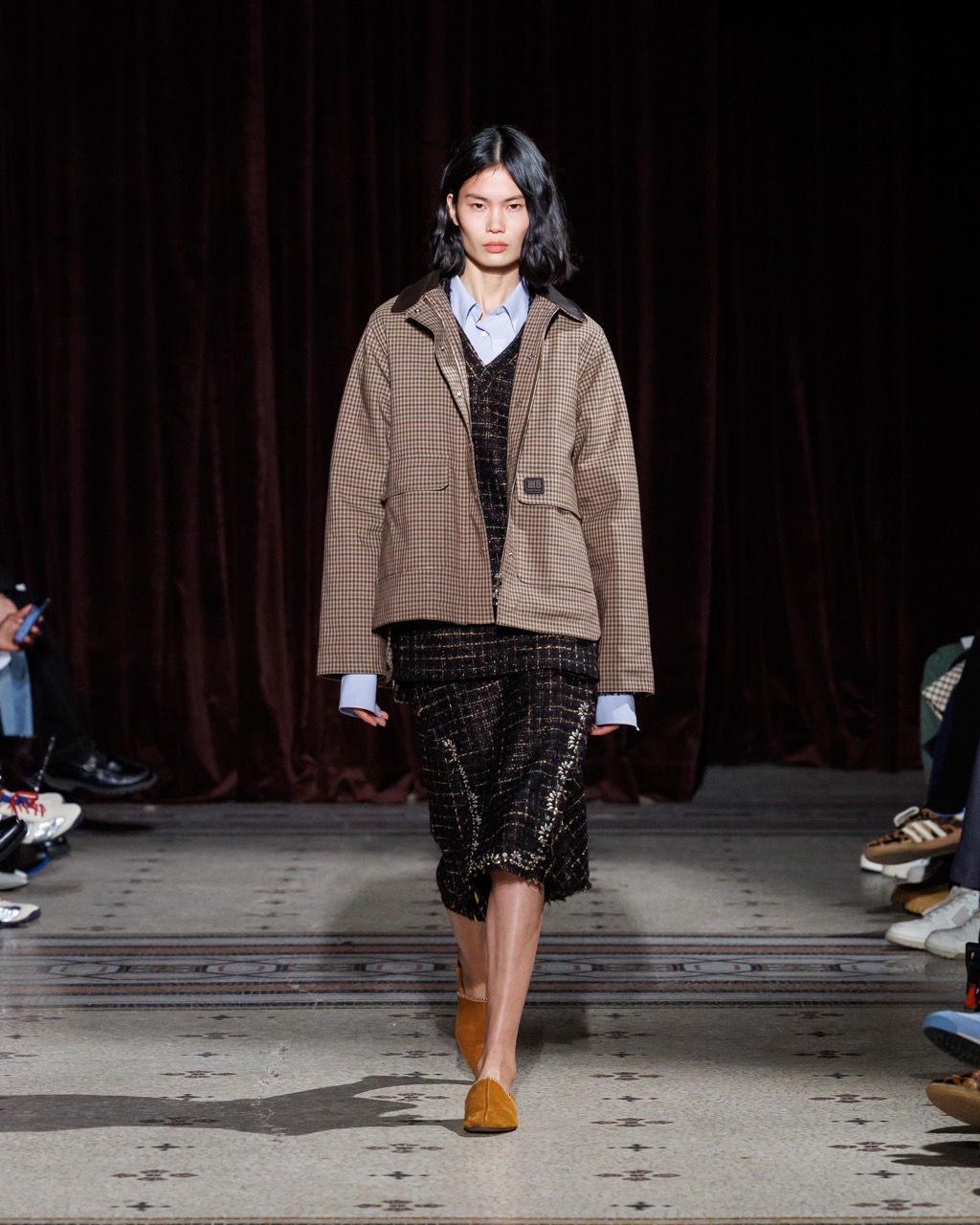
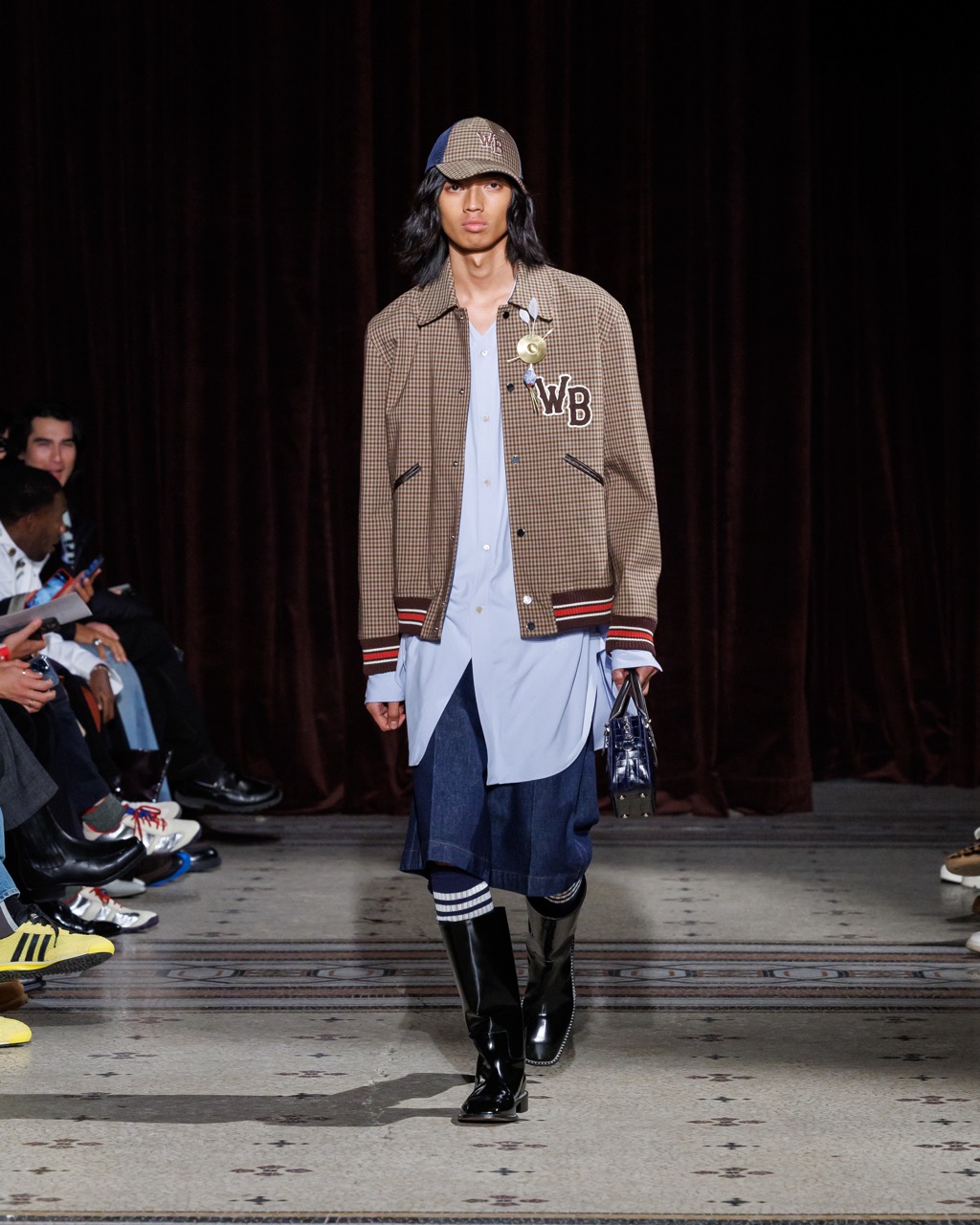
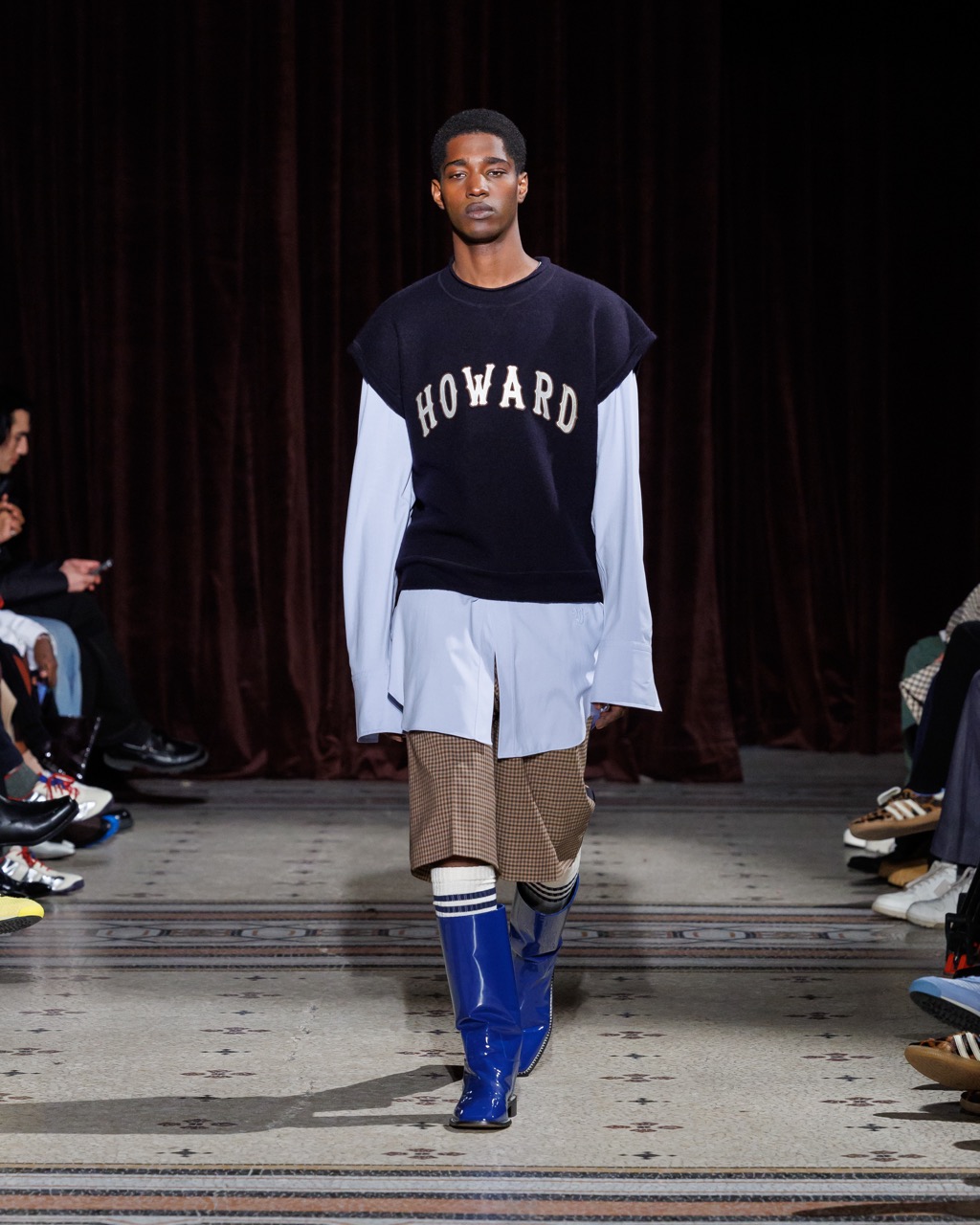
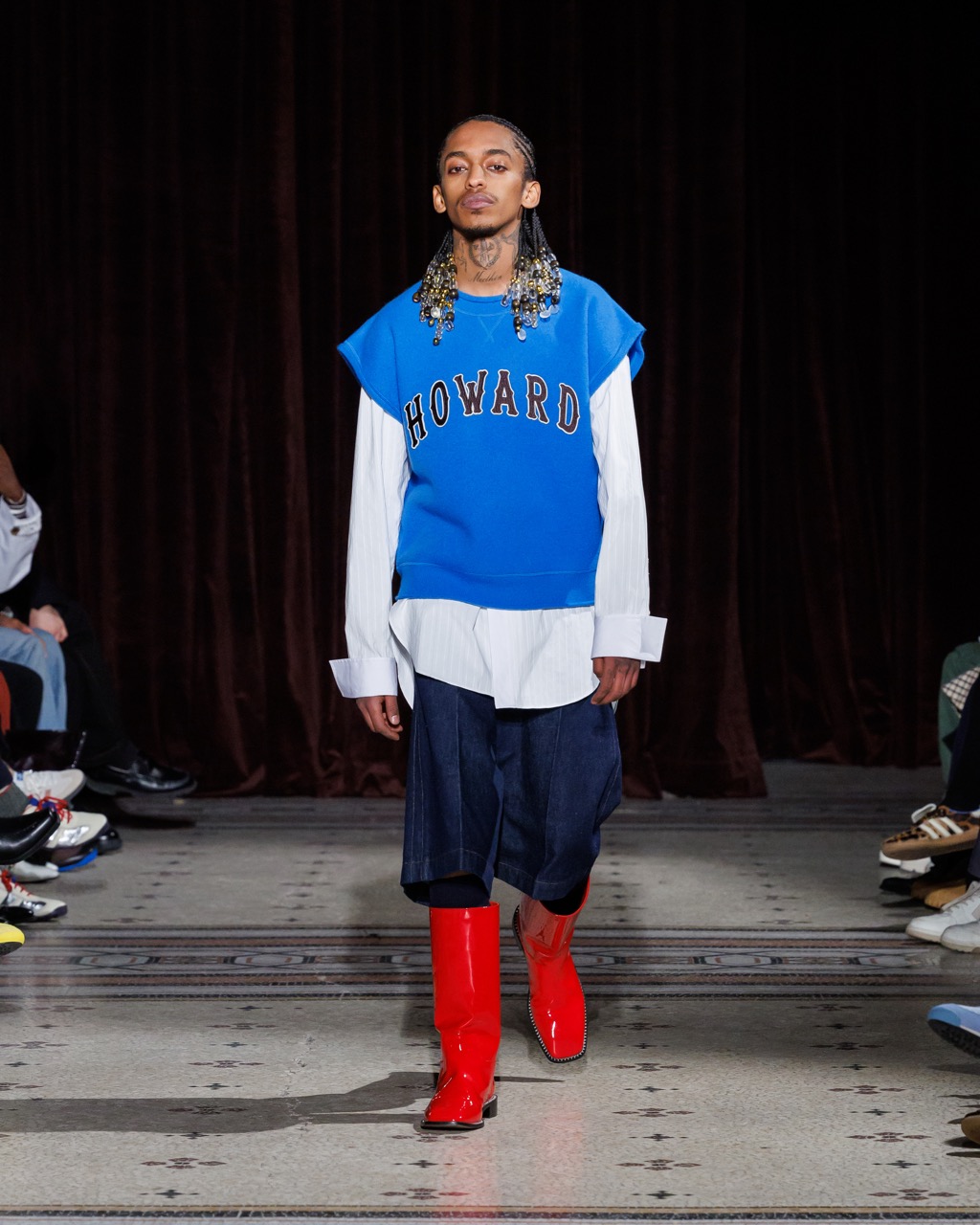
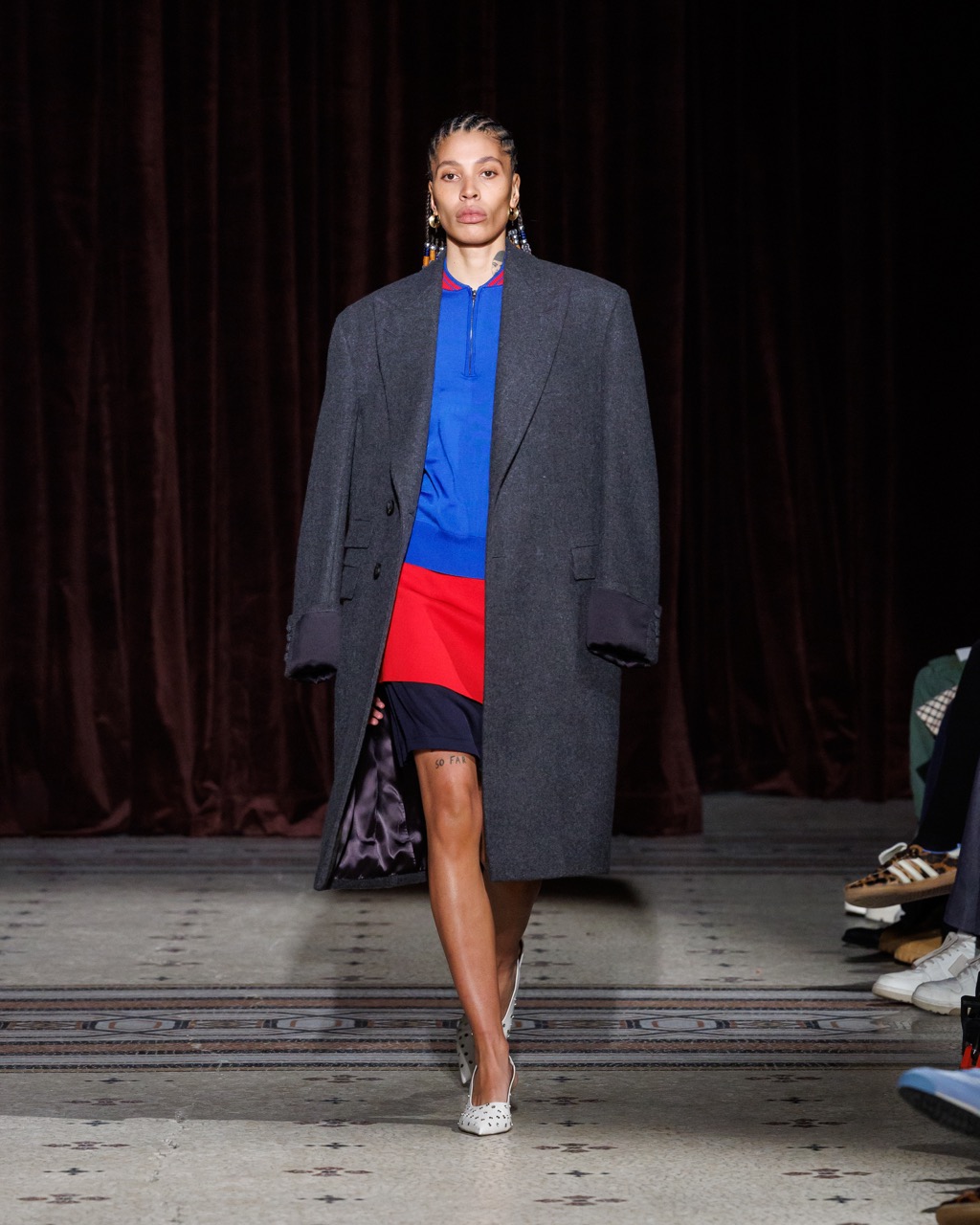
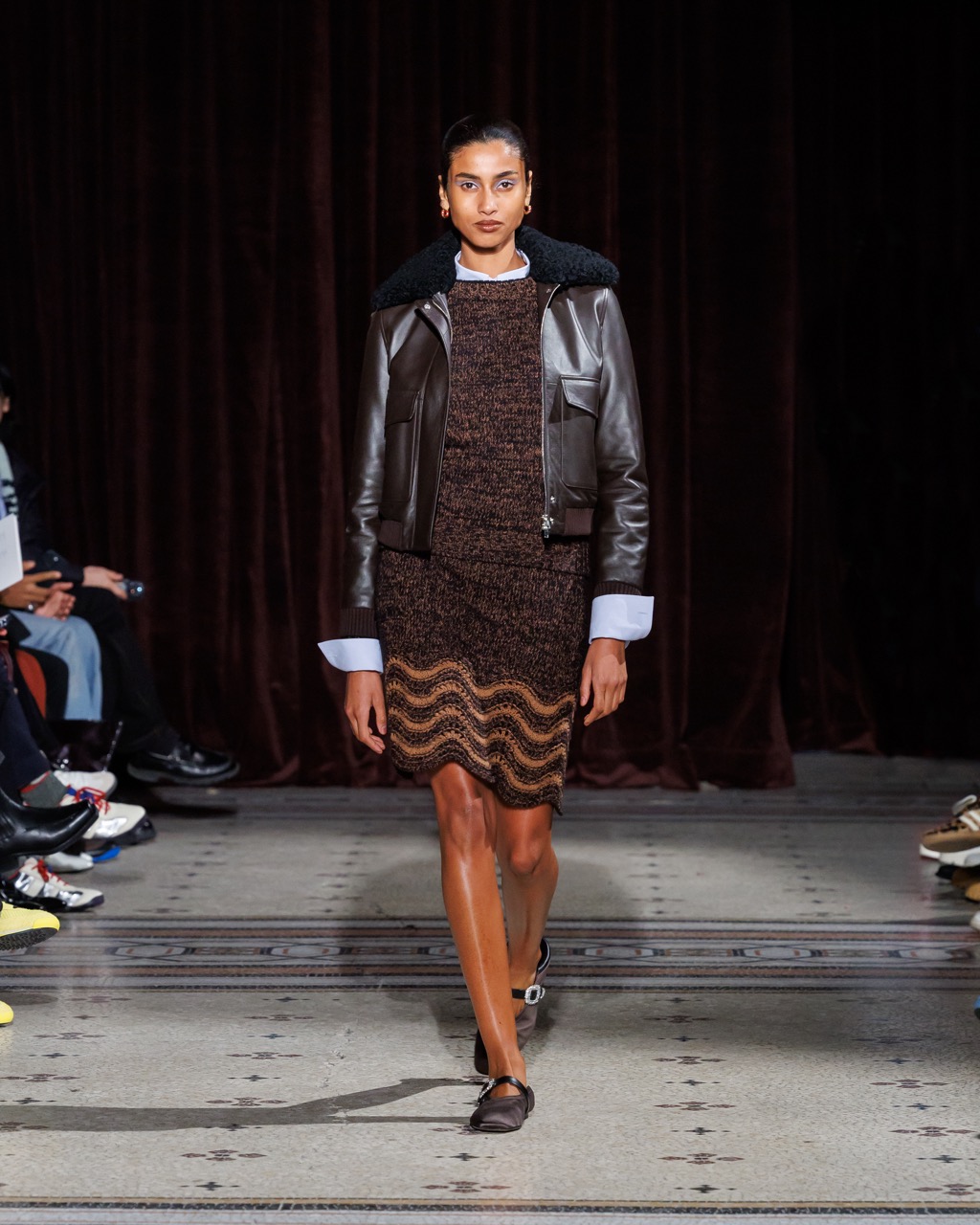
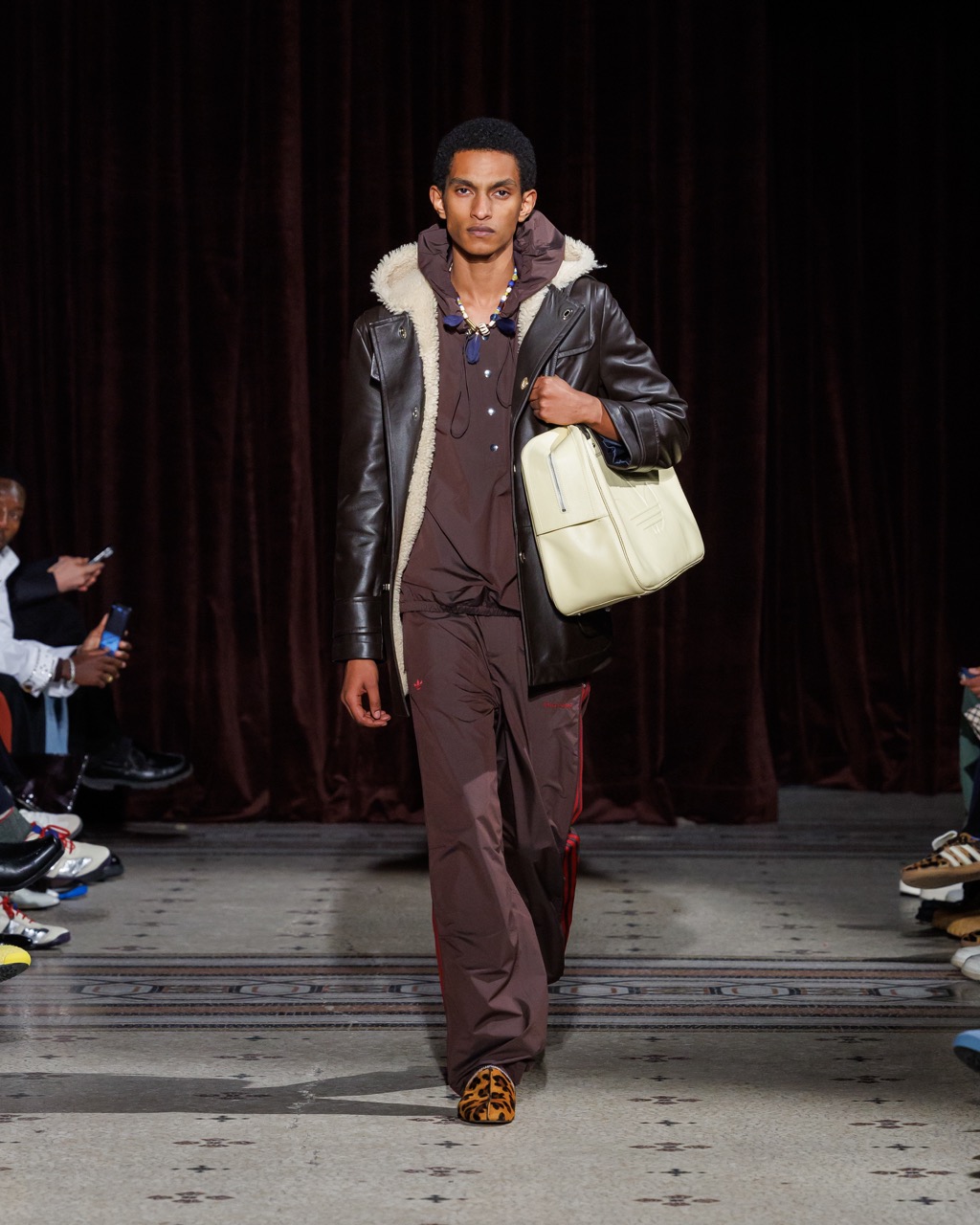
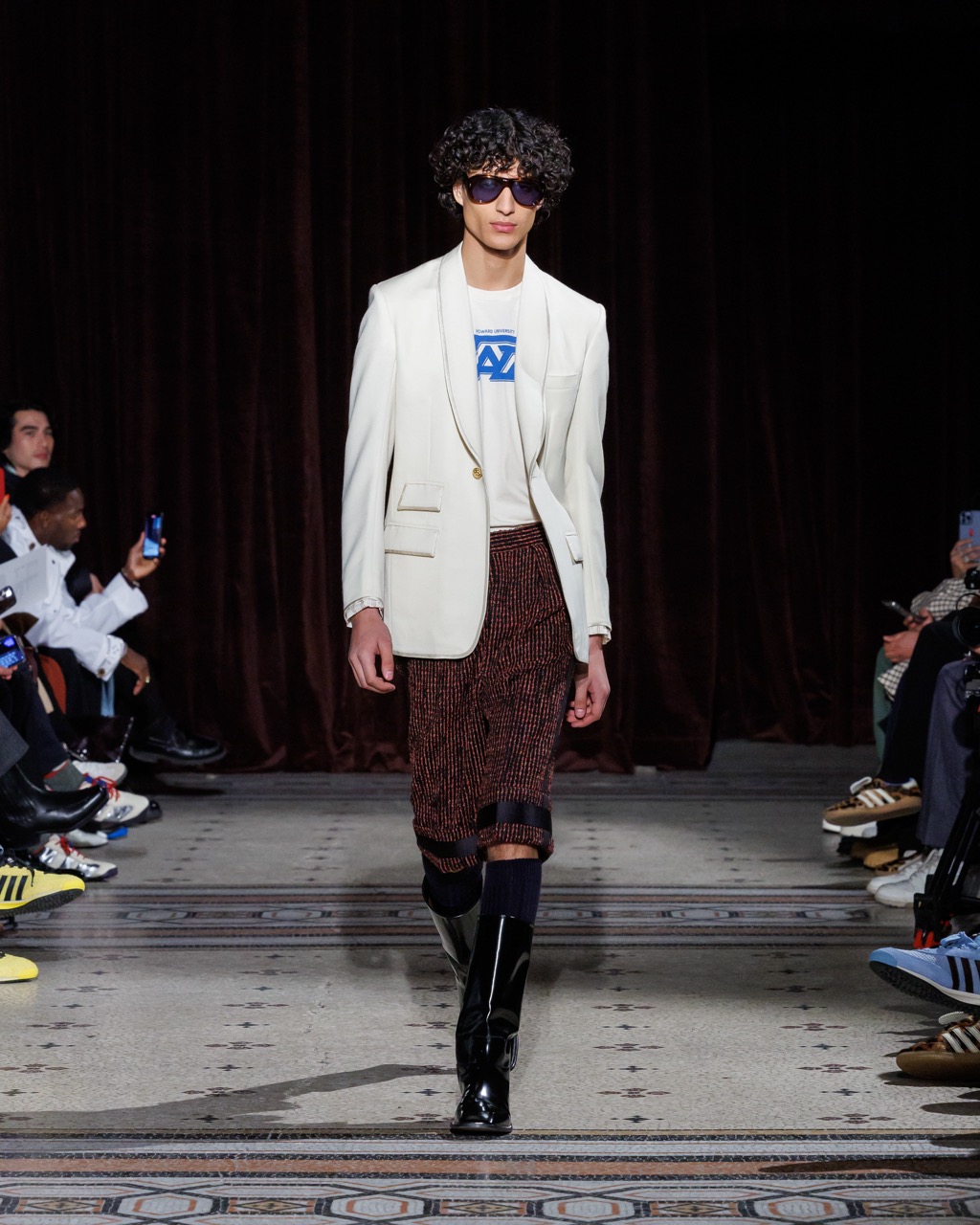
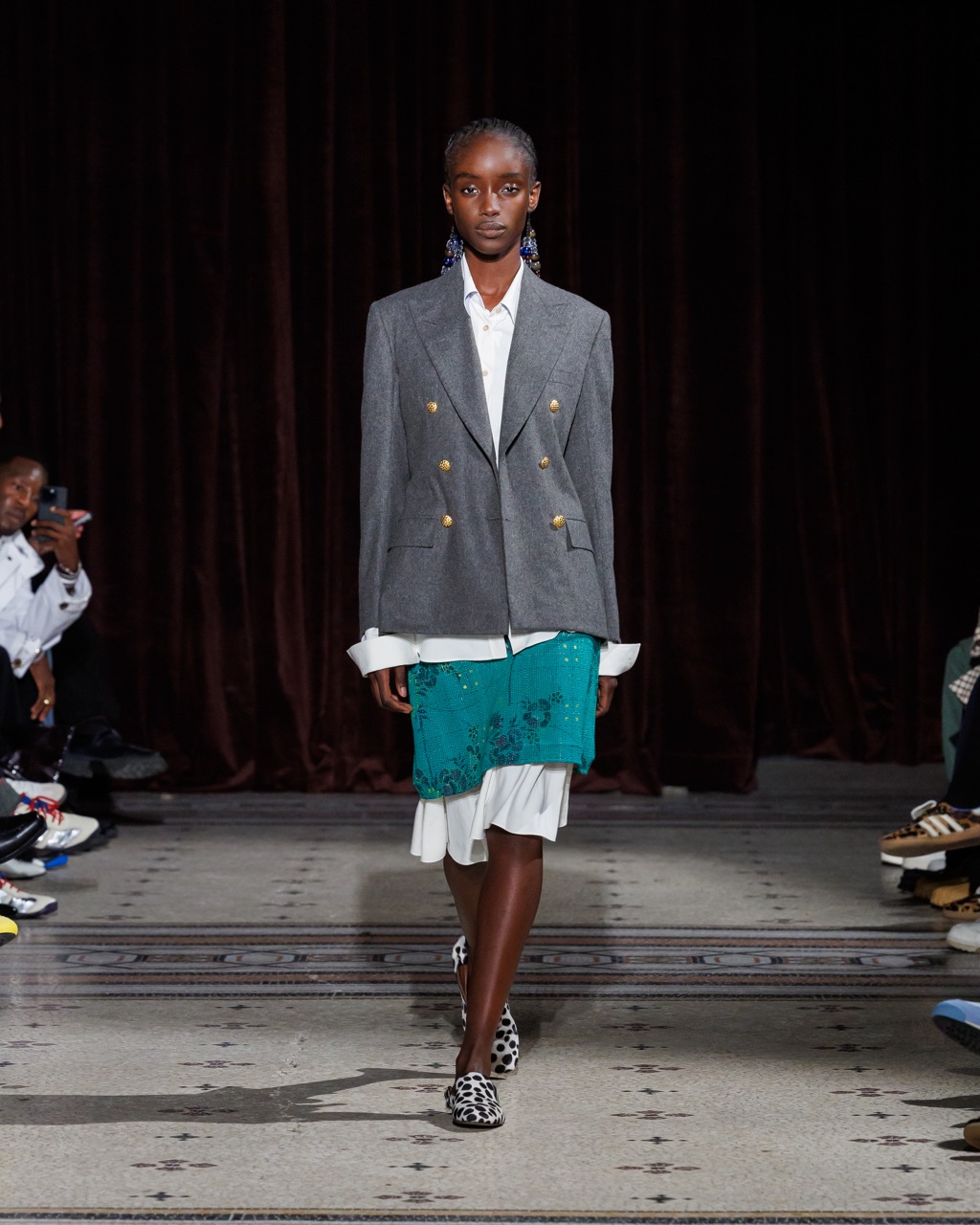
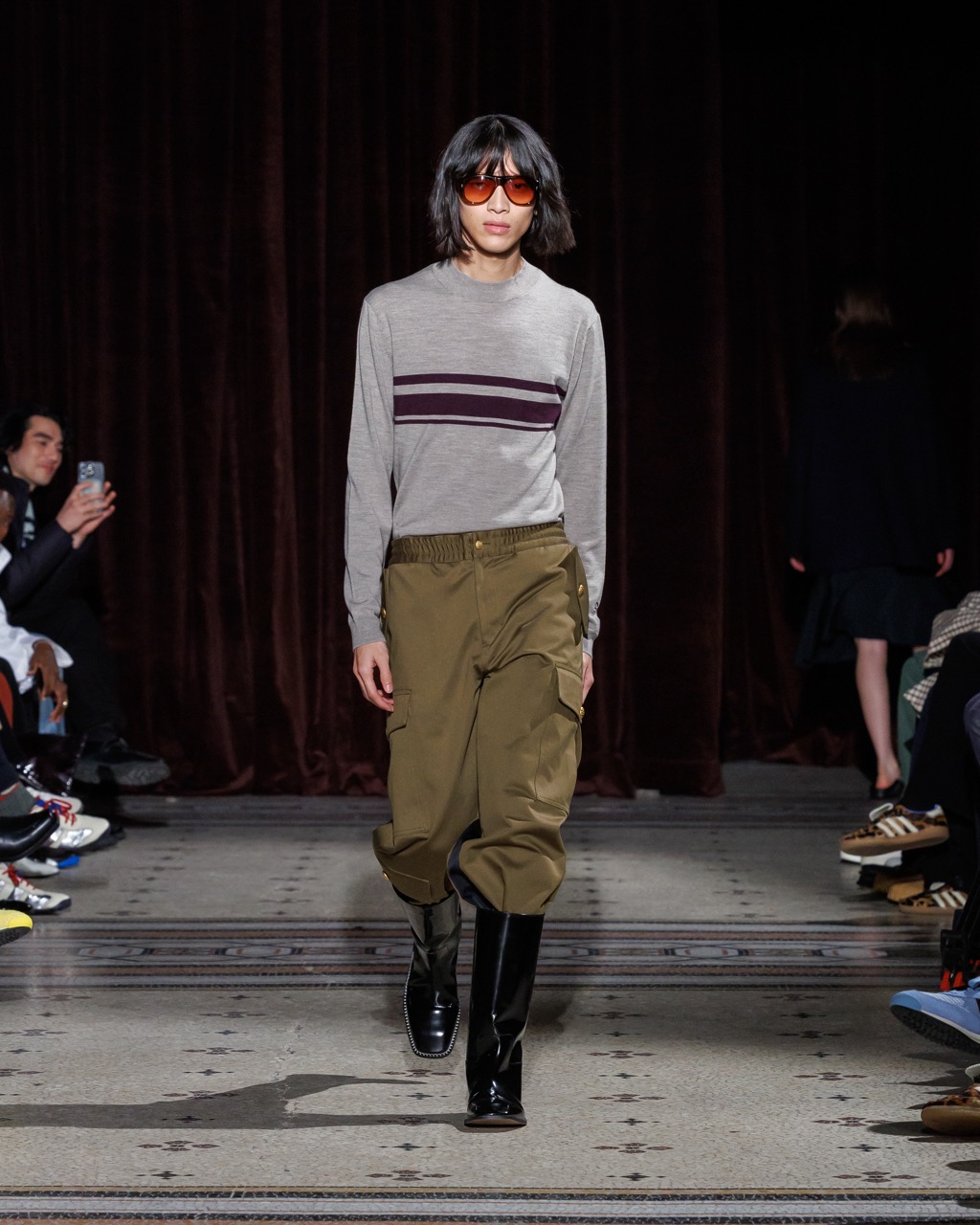
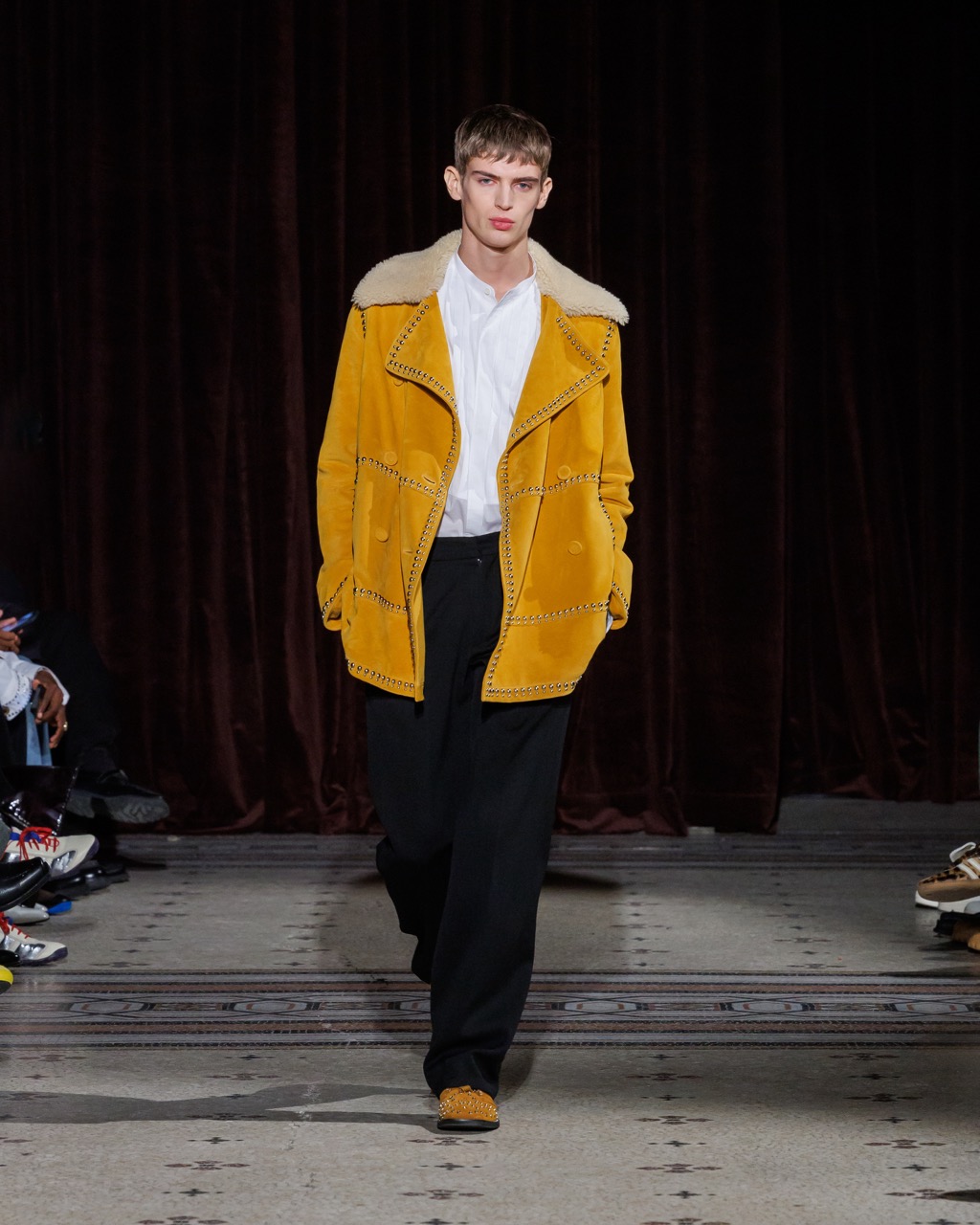
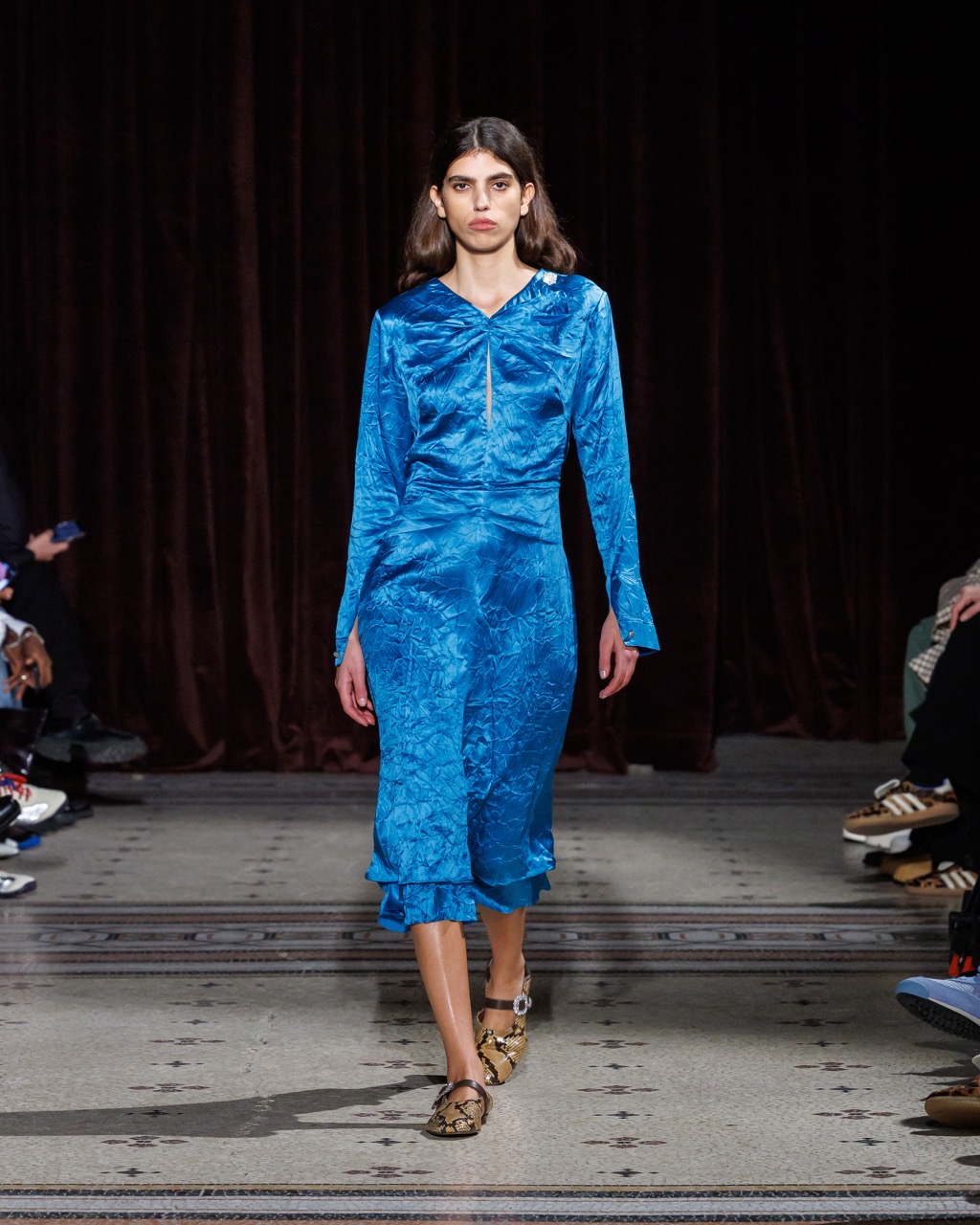
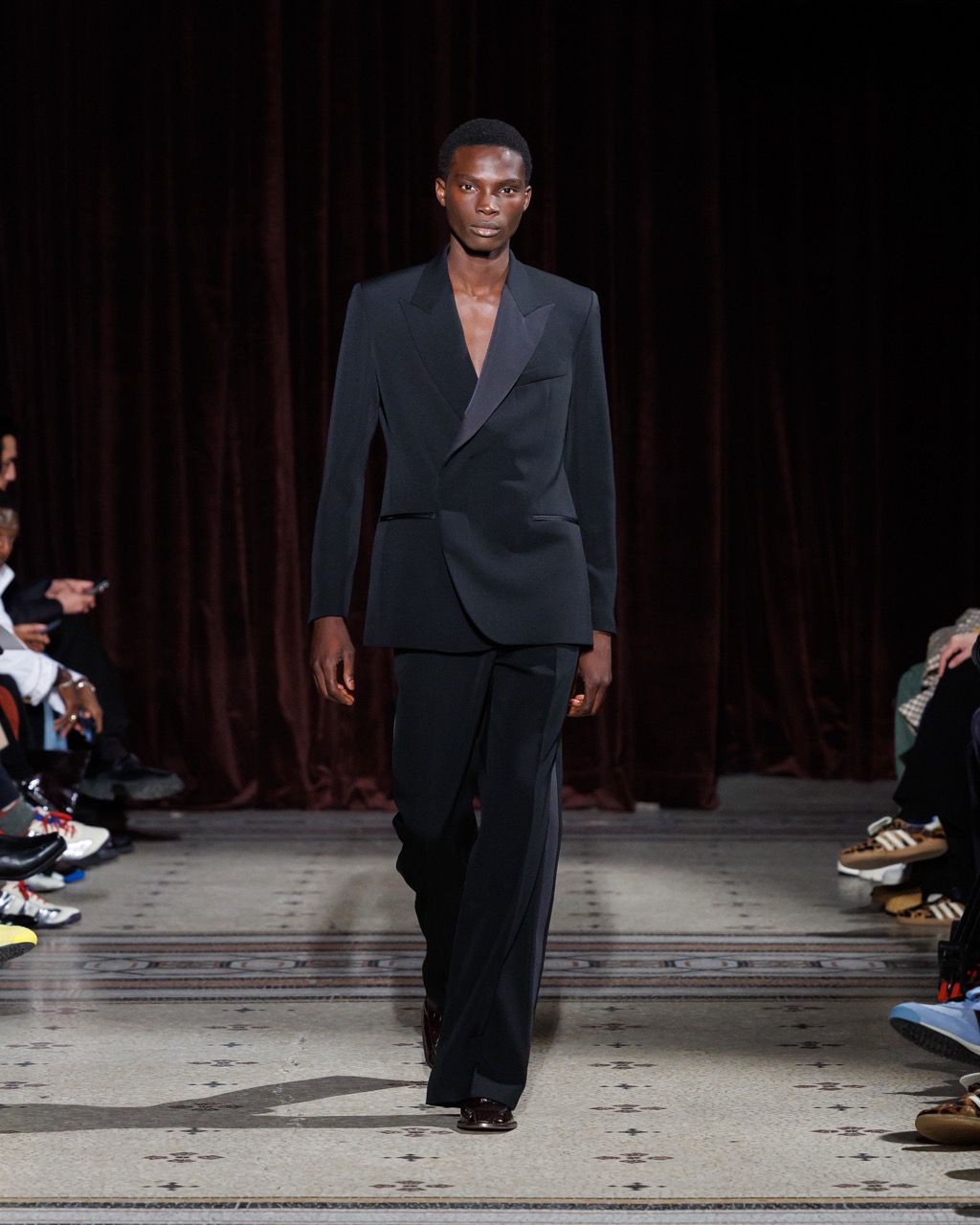
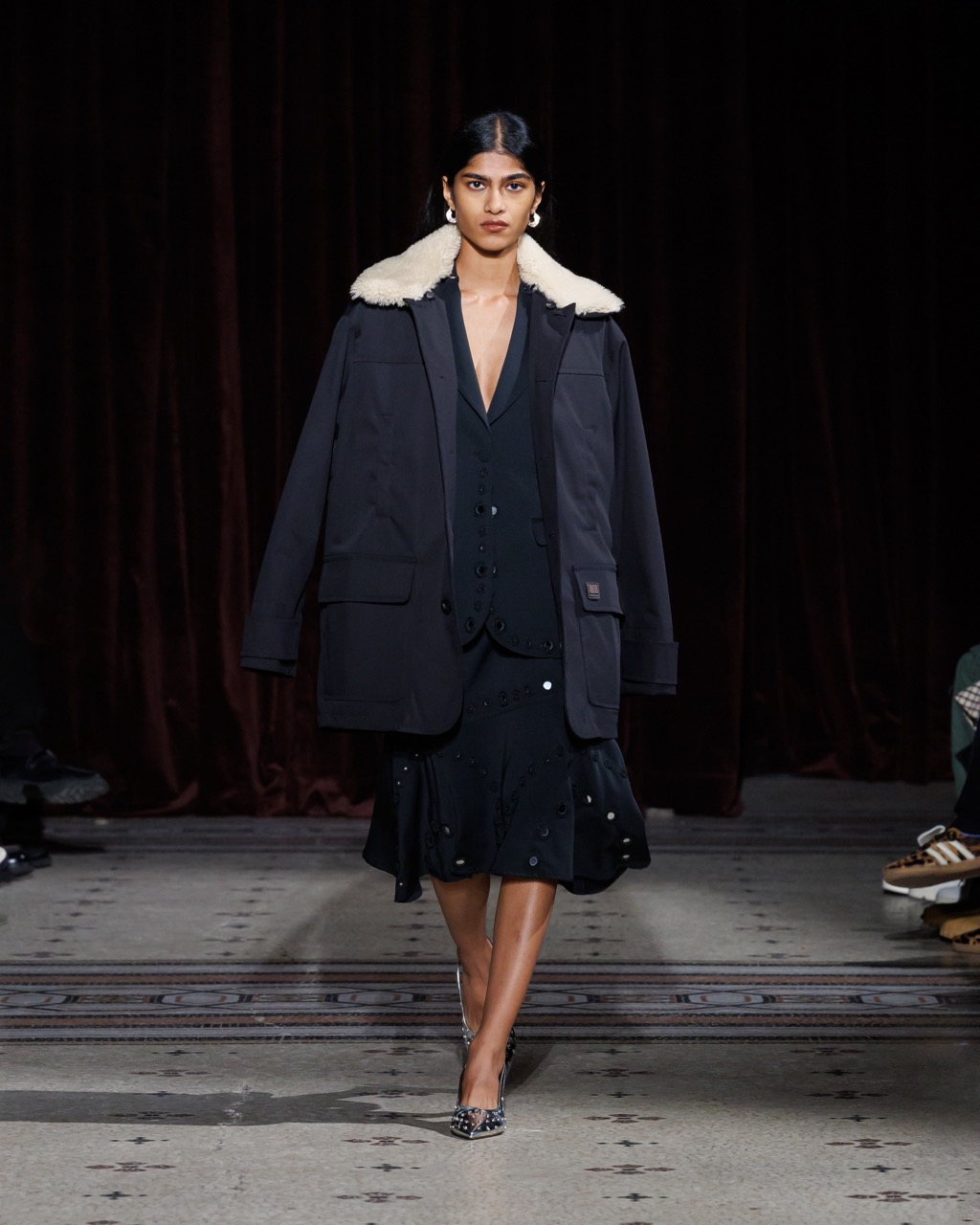
Images courtesy of Wales Bonner
Wales Bonner’s Fall outing was one such example: titled Dream Study, the collection emerges from a dialogue with Howard University’s Moorland-Spingarn Research Center, depicting opulence by way of athletic silhouettes that reflect Howard’s sporting legacy, while Nappa leather aviator jackets, corduroy varsity blousons, and satin baseball jerseys enrich the academic wardrobe. Here, collegiate tailoring is issued with utility pockets, while relaxed knitwear comes in cashmere yarns with gold fastenings. Heritage checks and wool duffle coats meet hip-hop staples: silver-embellished Timberland boots and a reprise of the Adidas Originals Superstar in exotic crocodile-embossed leather. Meanwhile, the partnership with Savile Row tailors Anderson and Sheppard produces silk-trimmed tuxedos, melange cashmere double breasted coats, and cropped trousers in bouclé tweed.
LGN Louis-Gabriel Nouchi
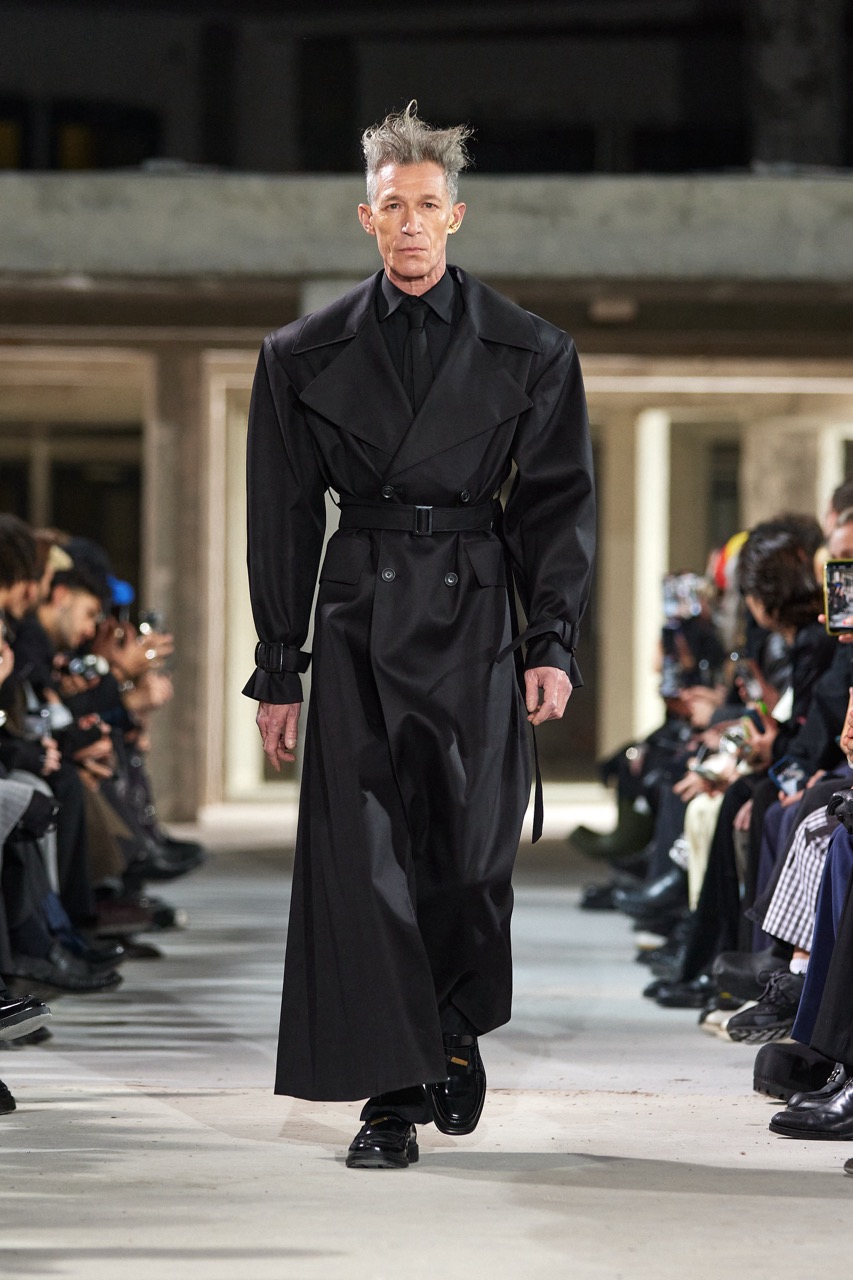
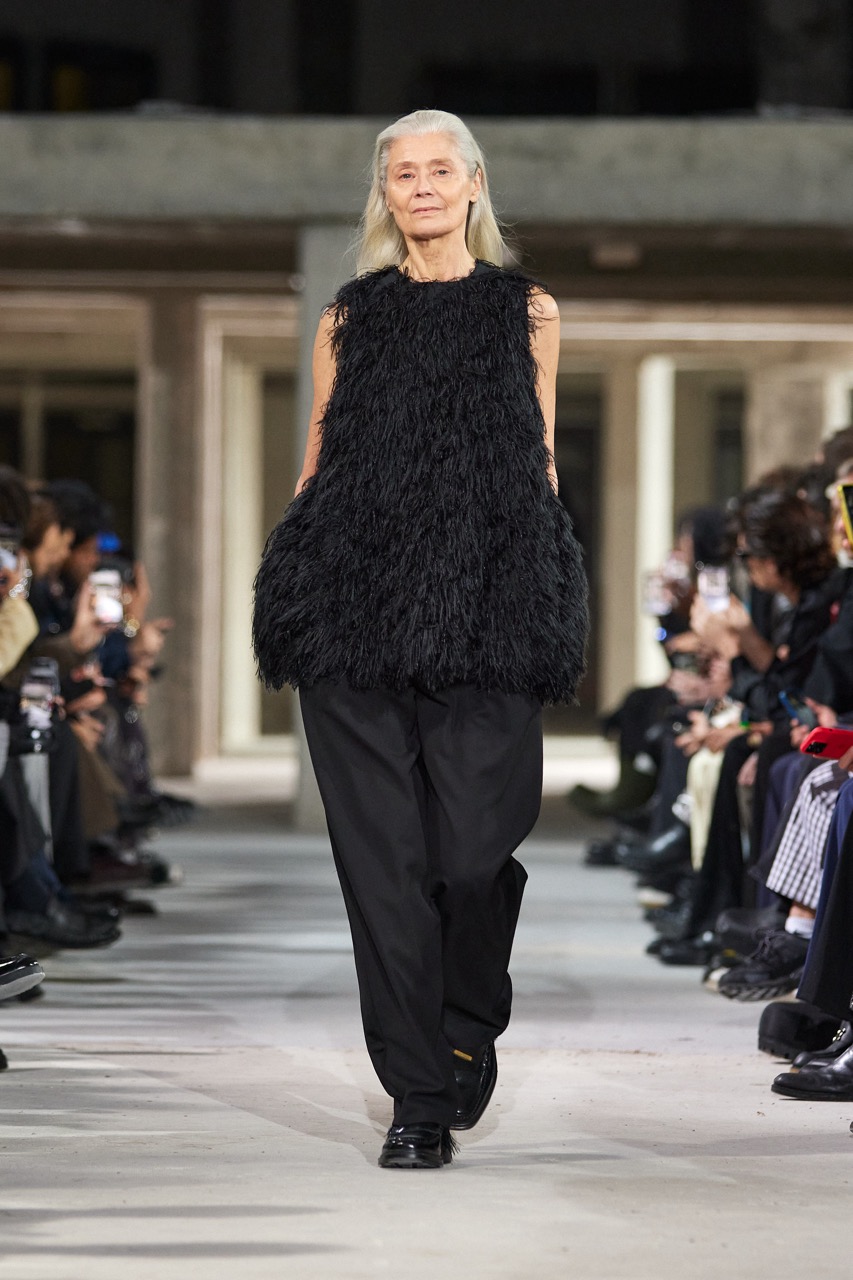
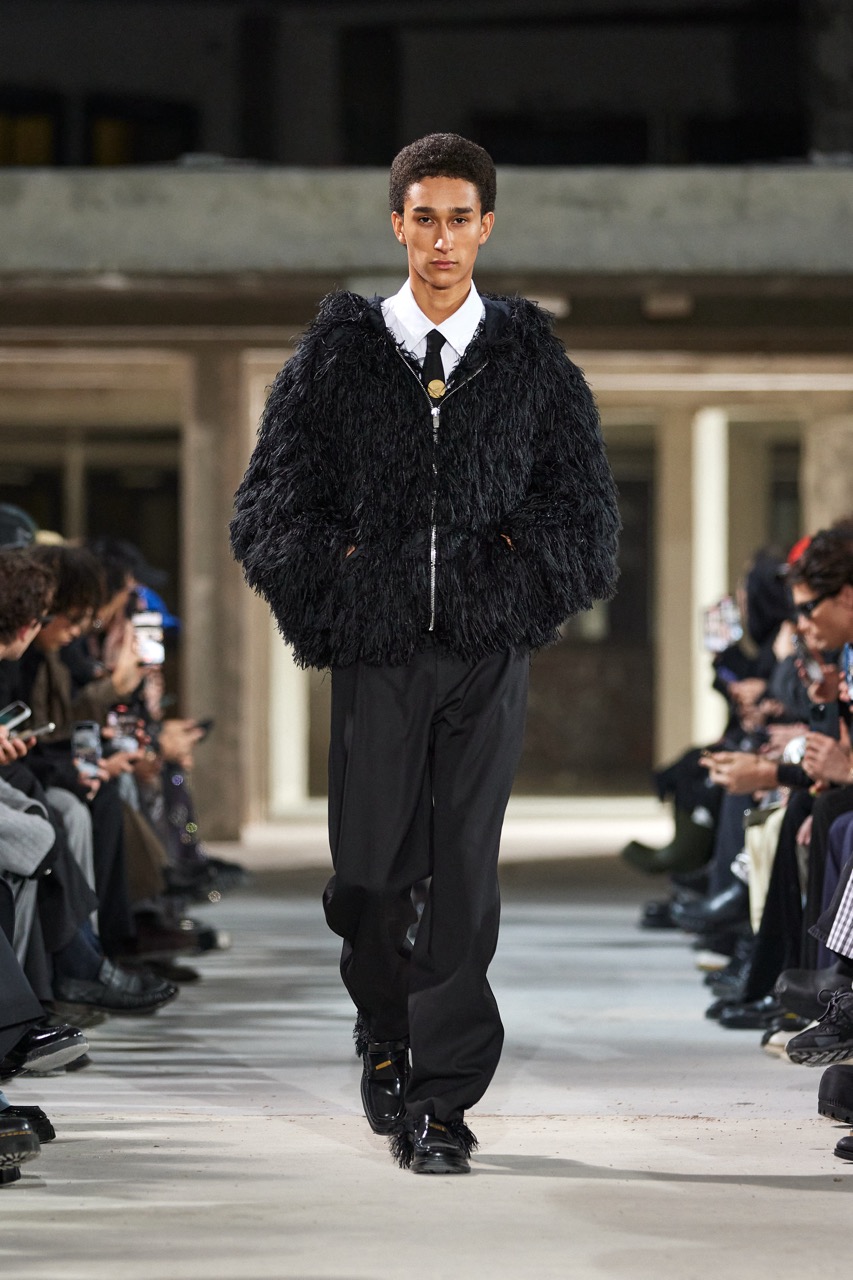
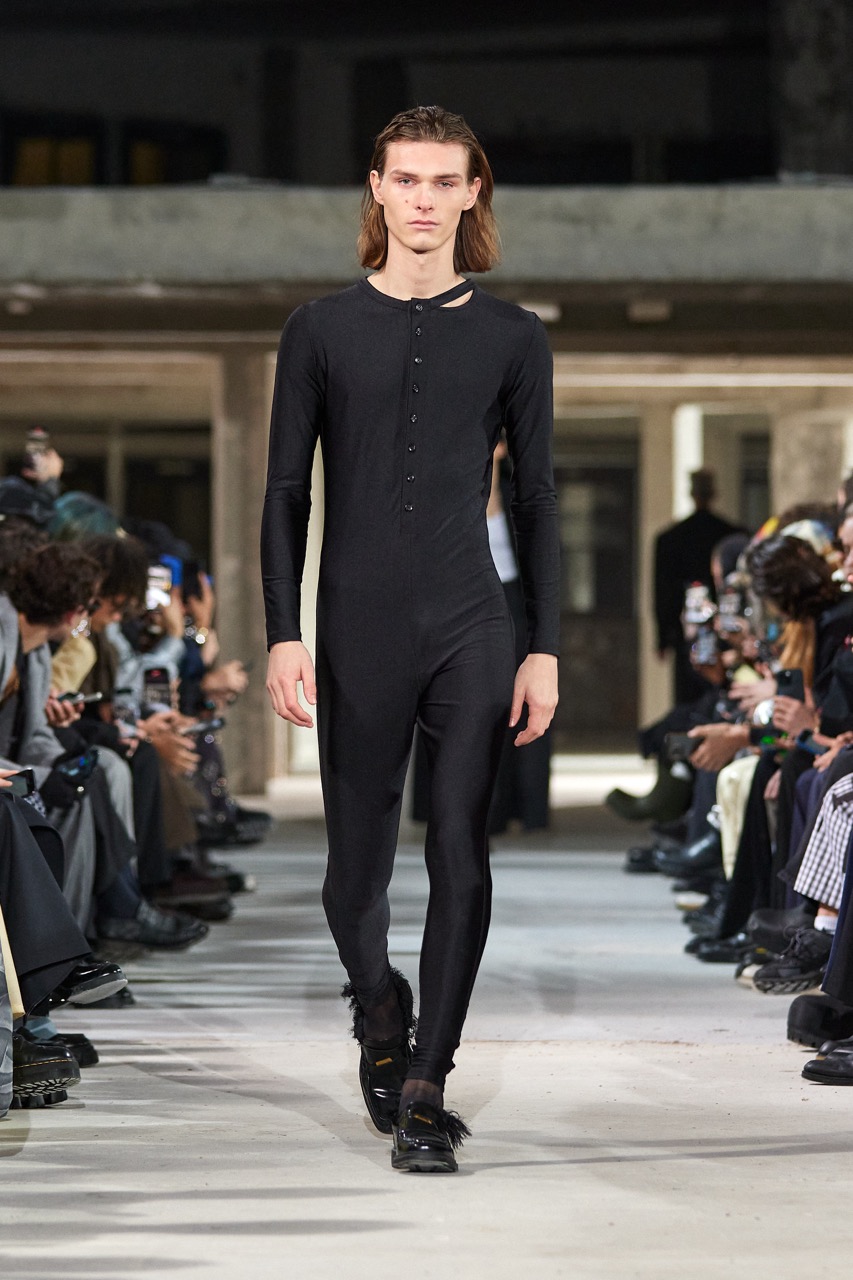
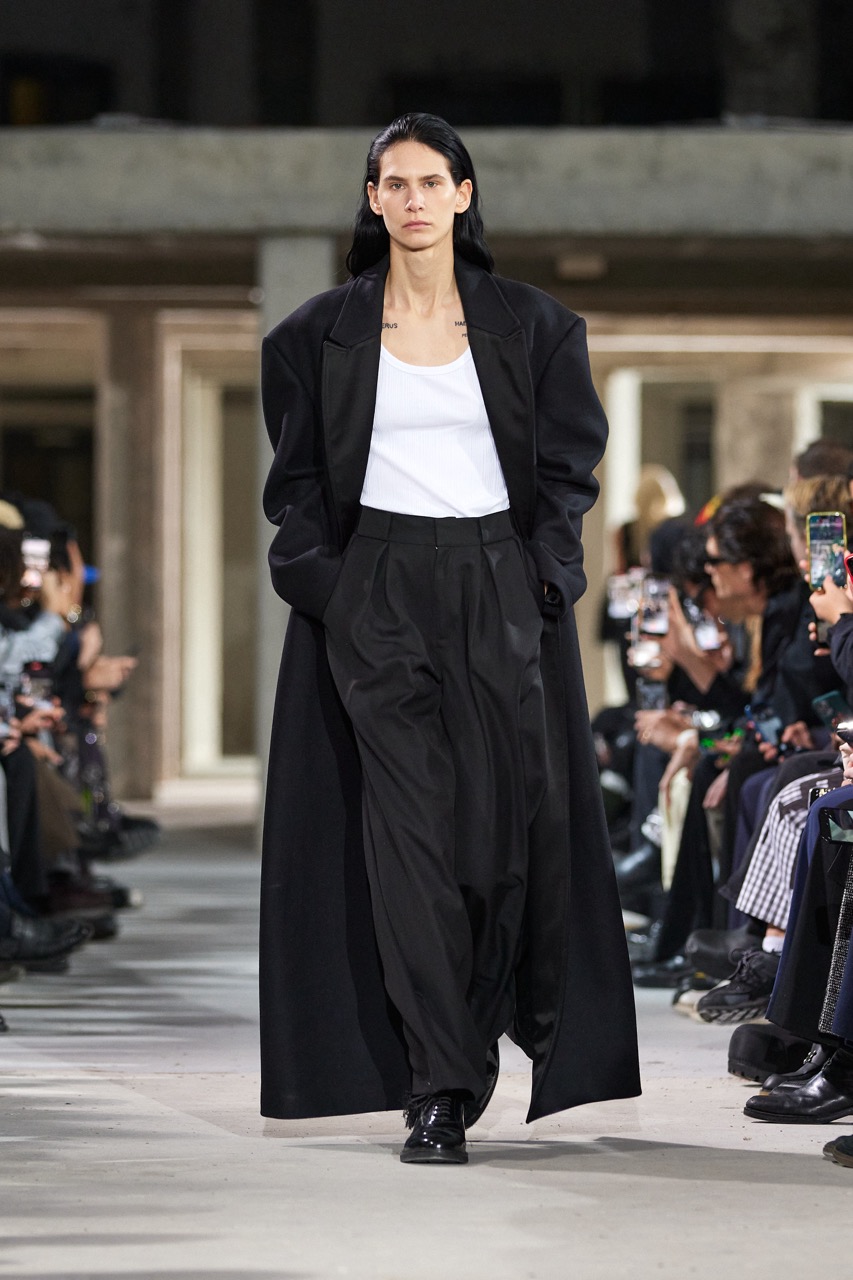
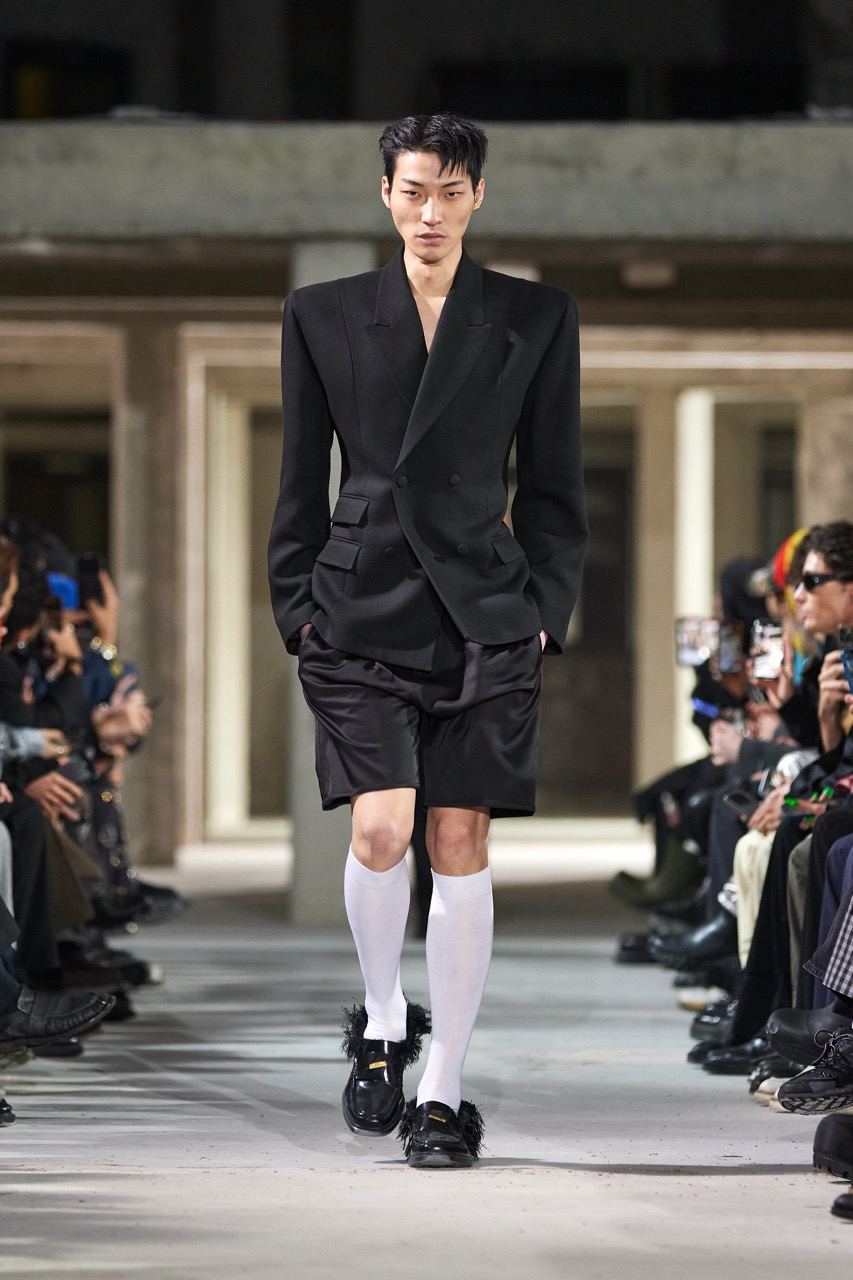
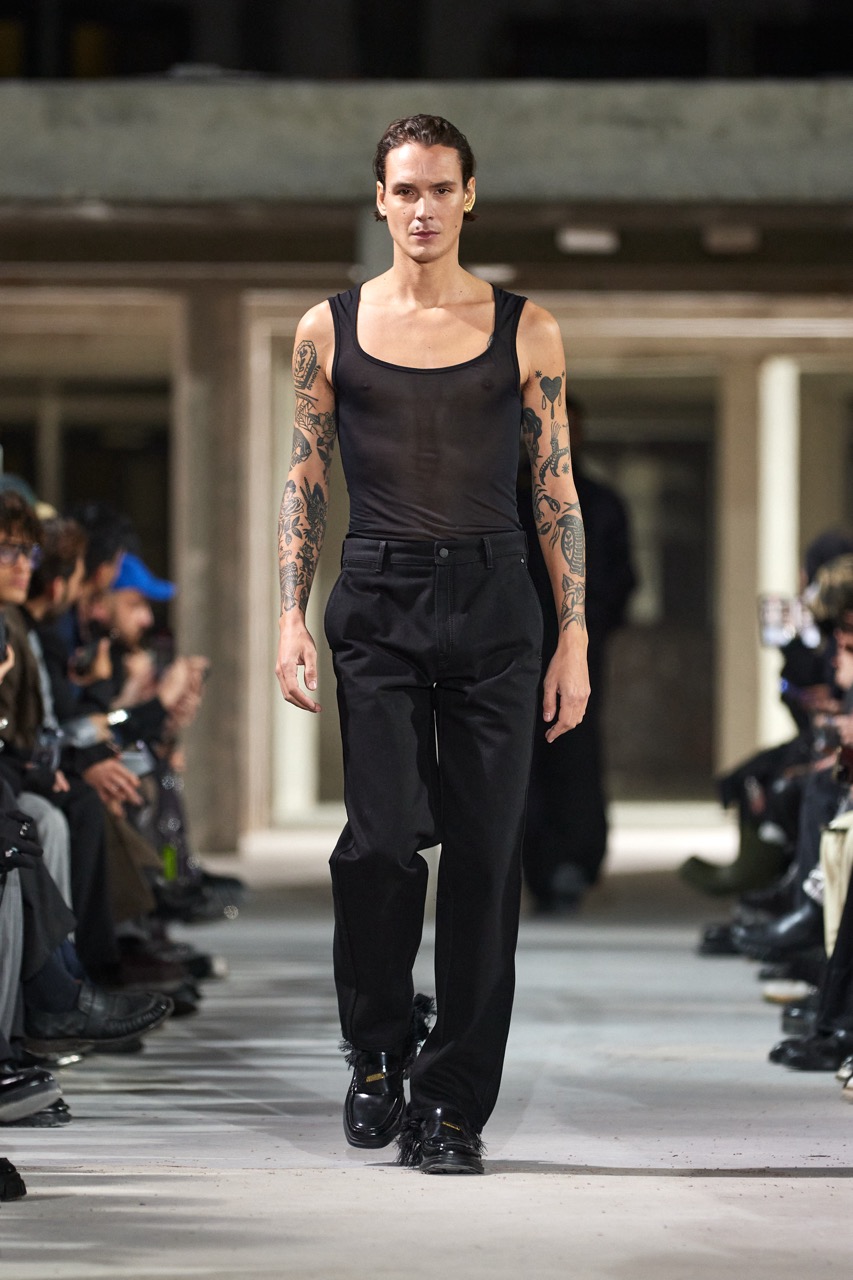
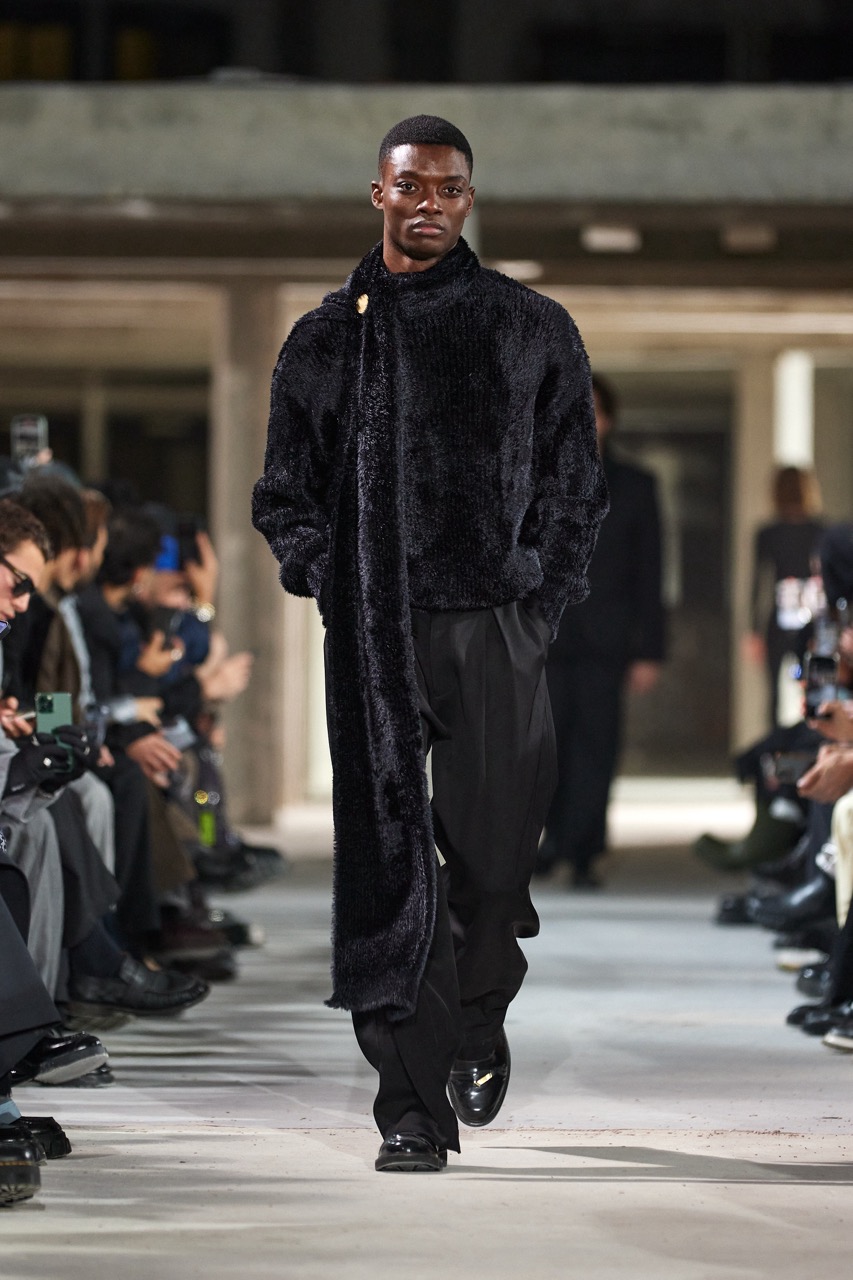
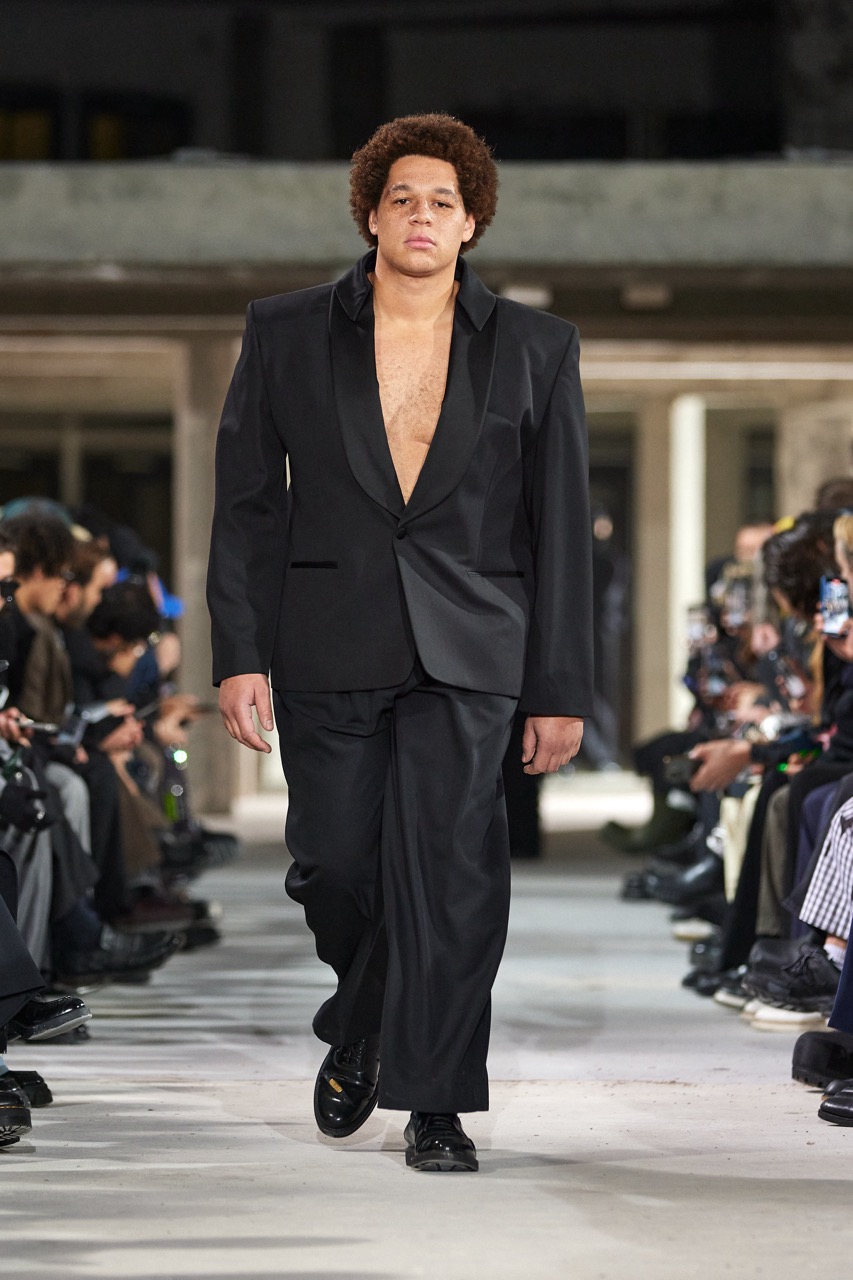
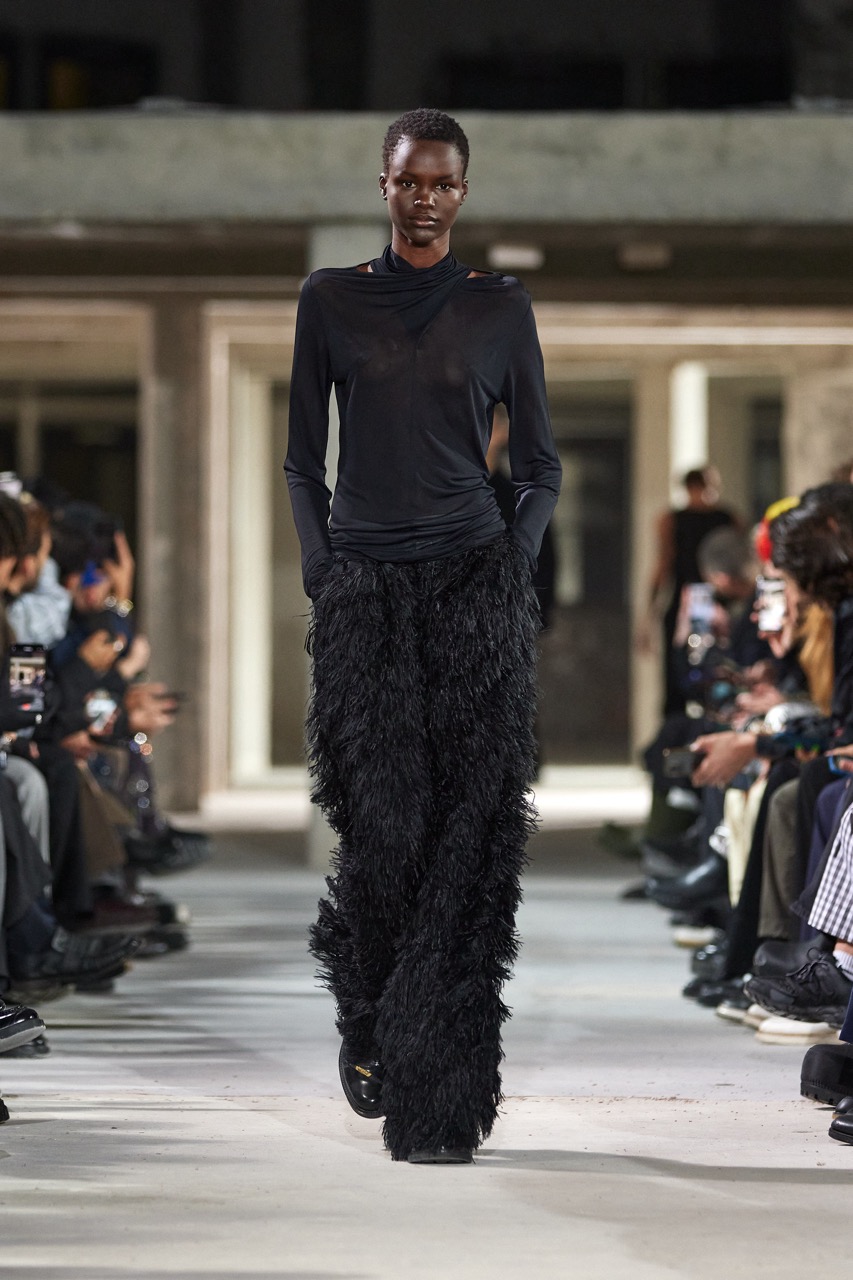
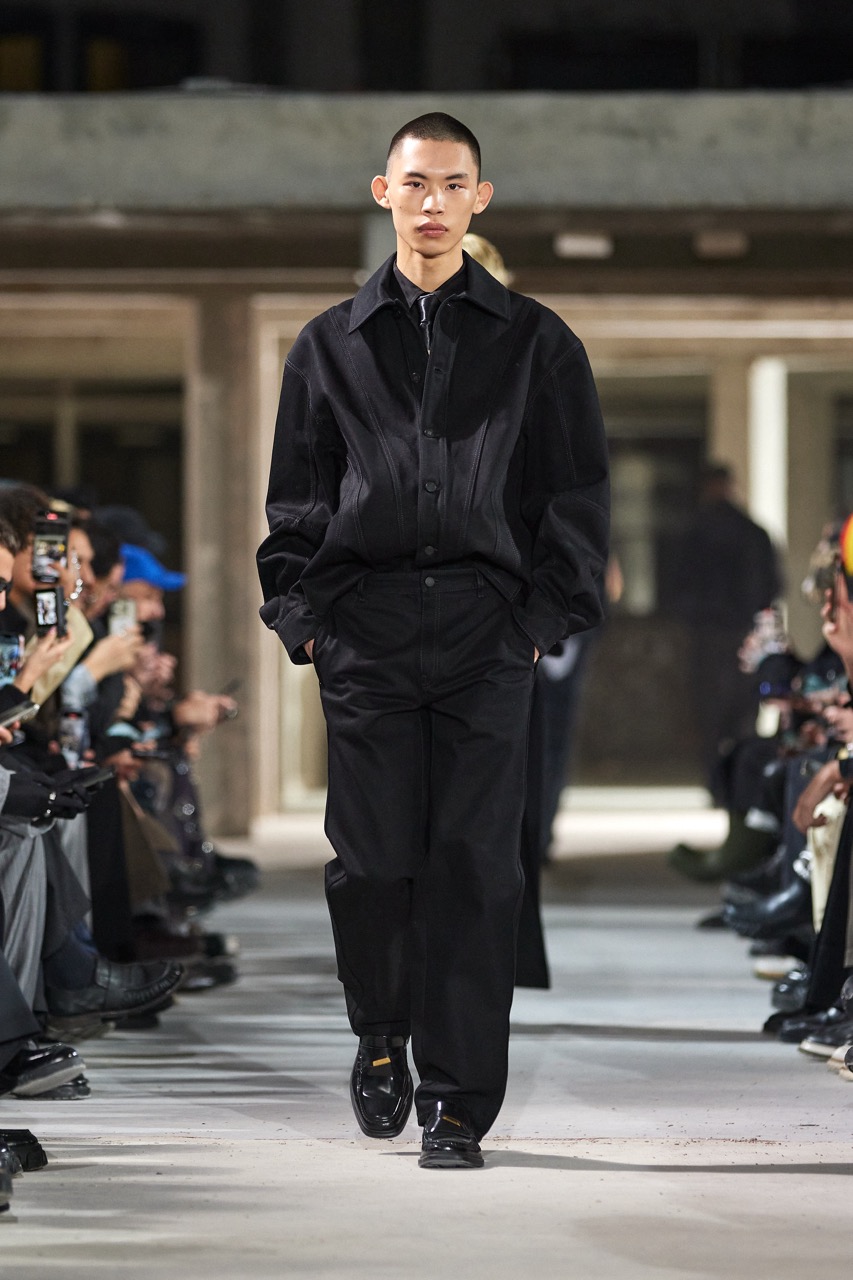
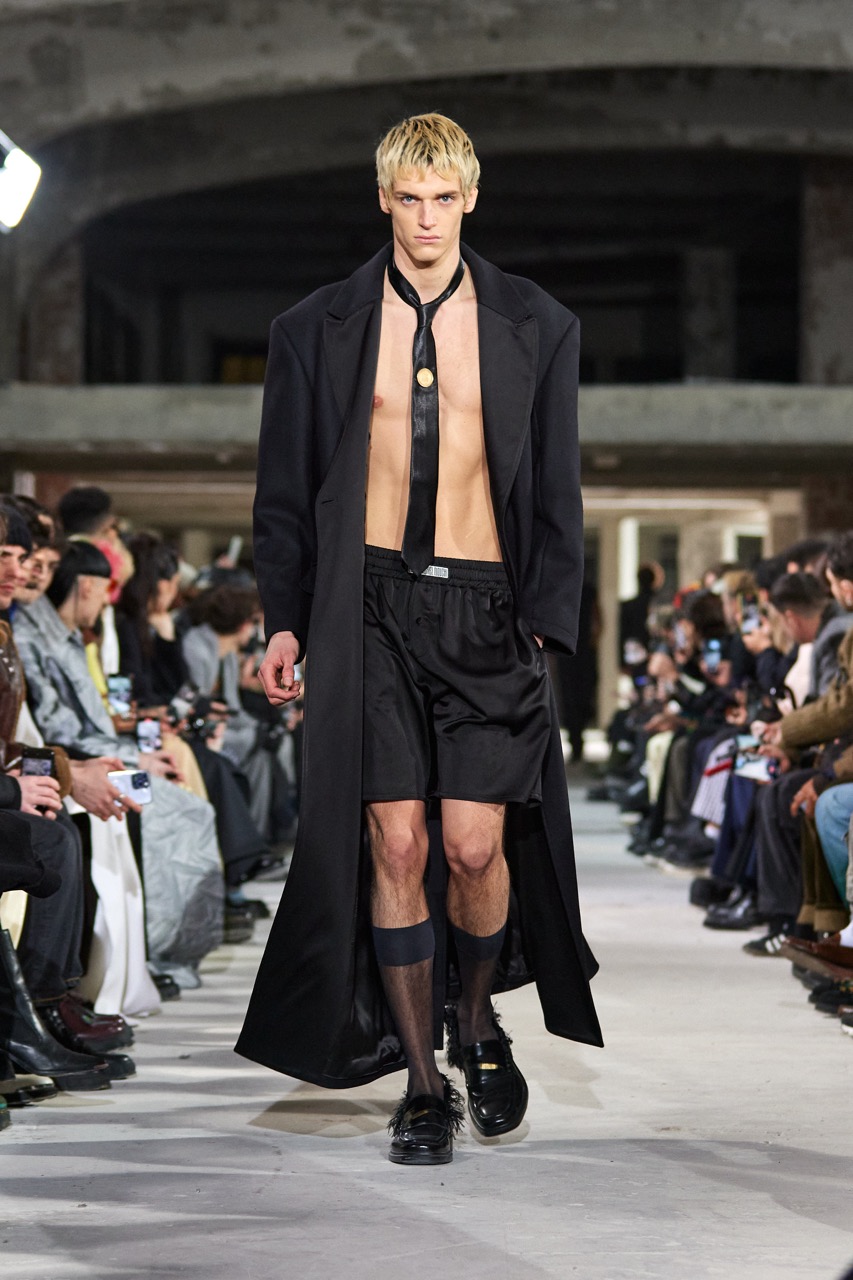
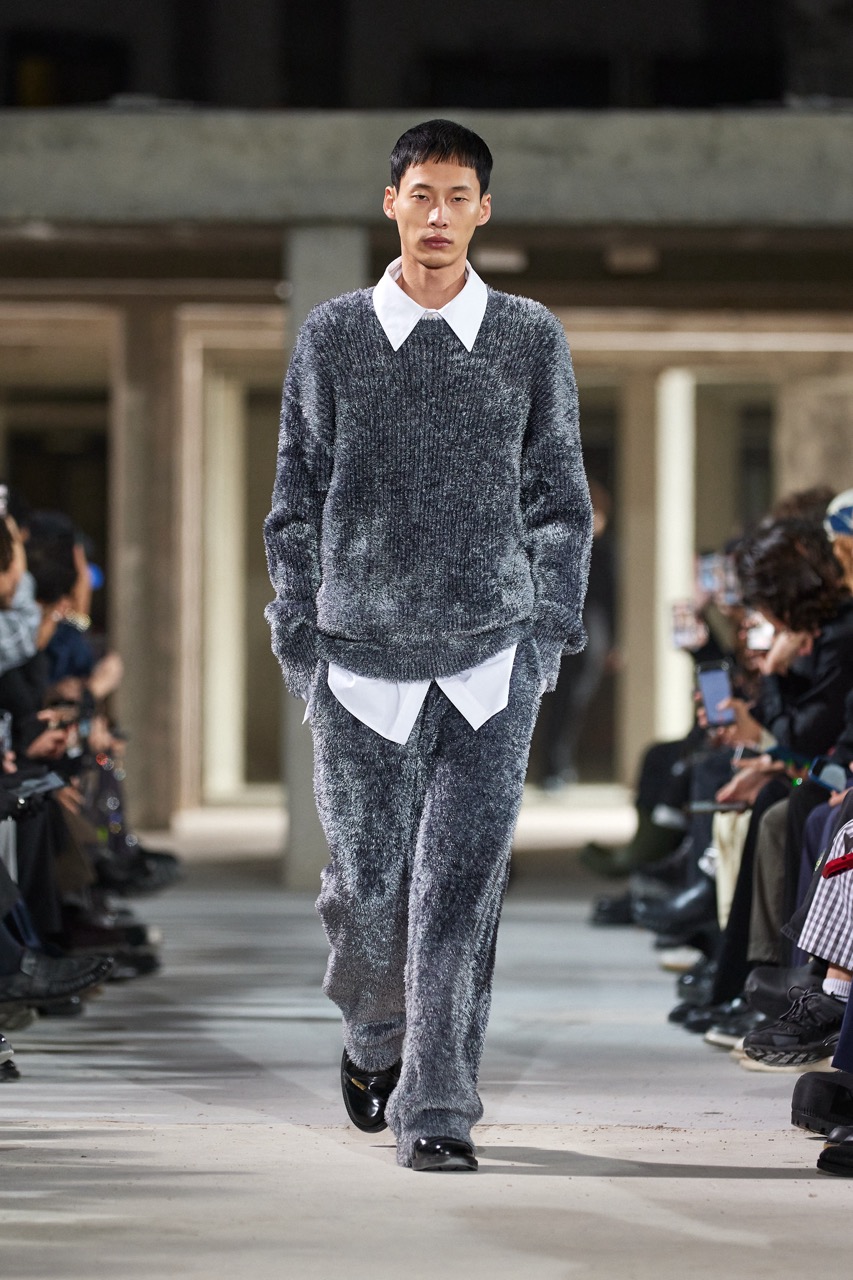
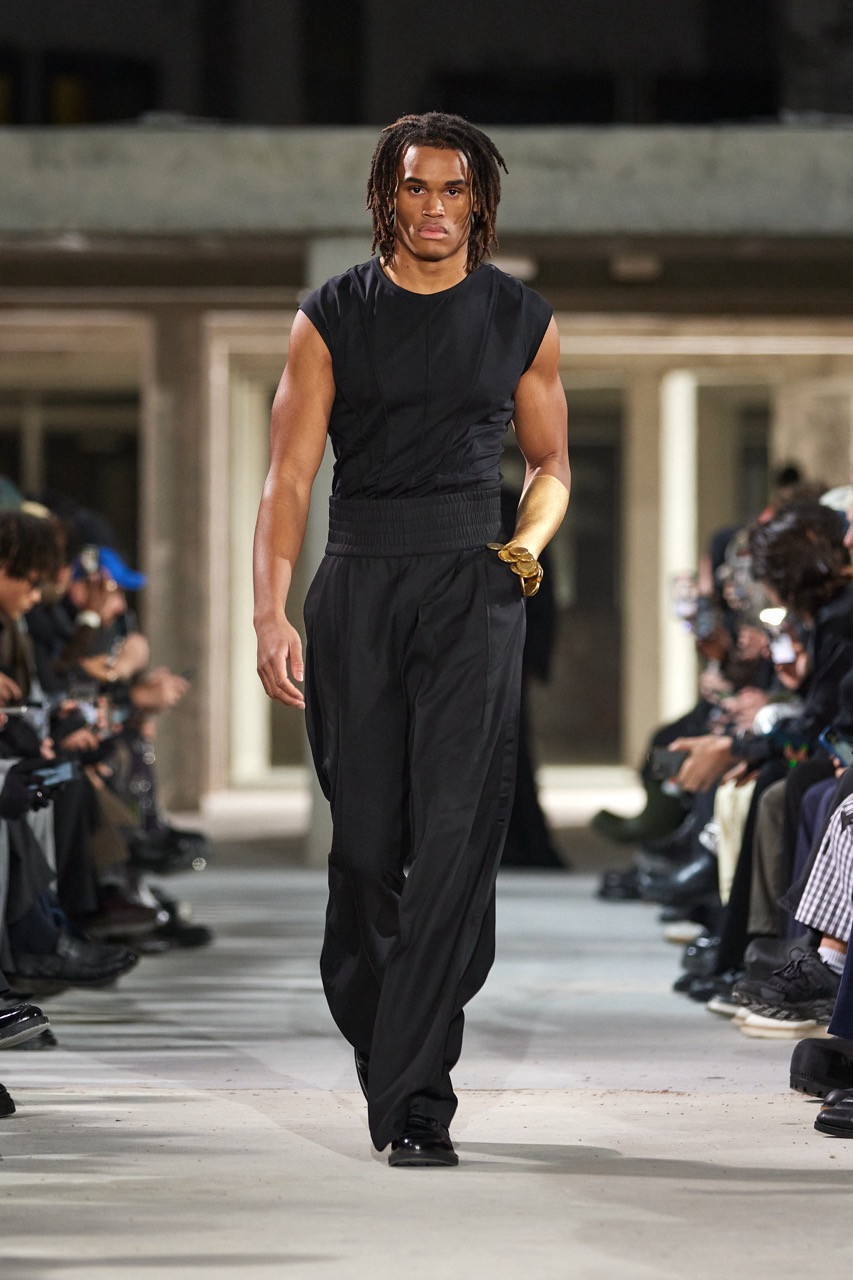
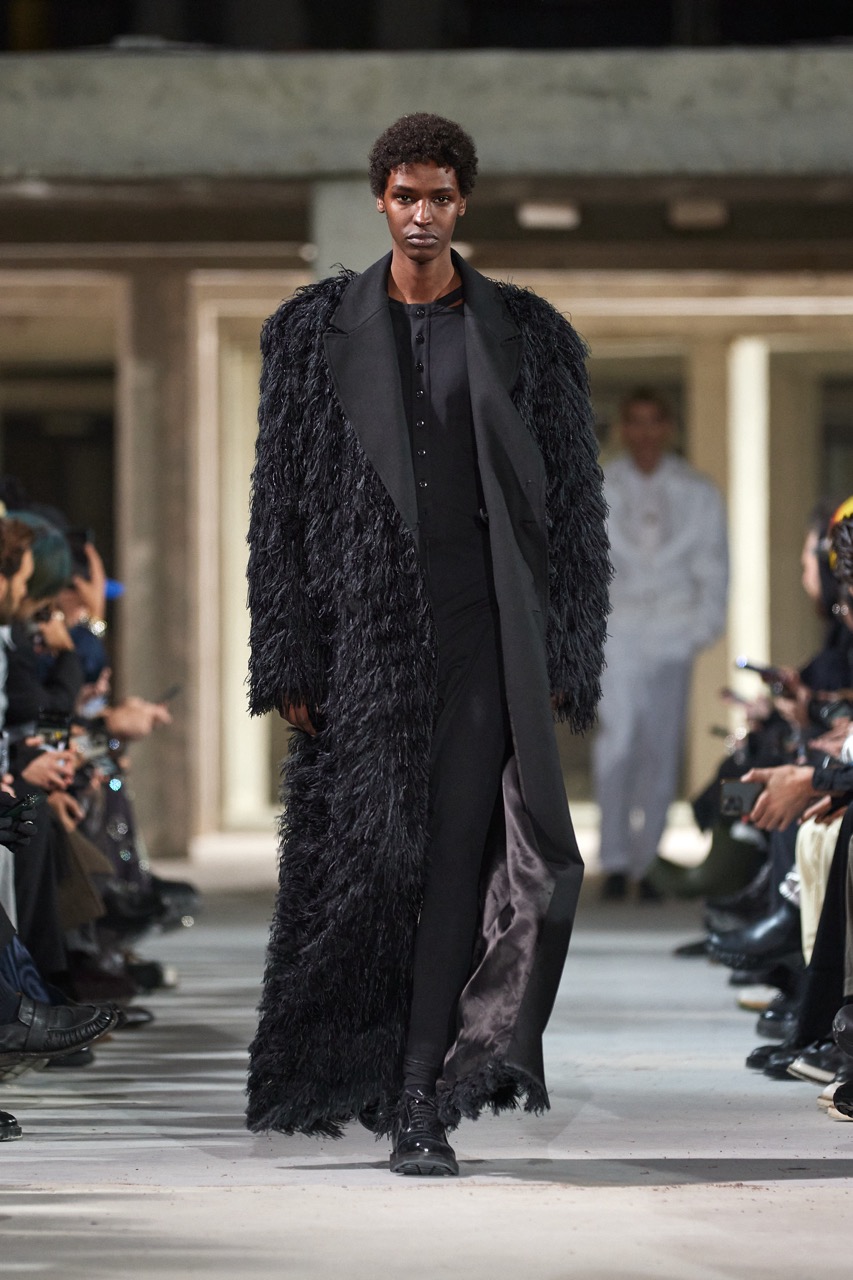
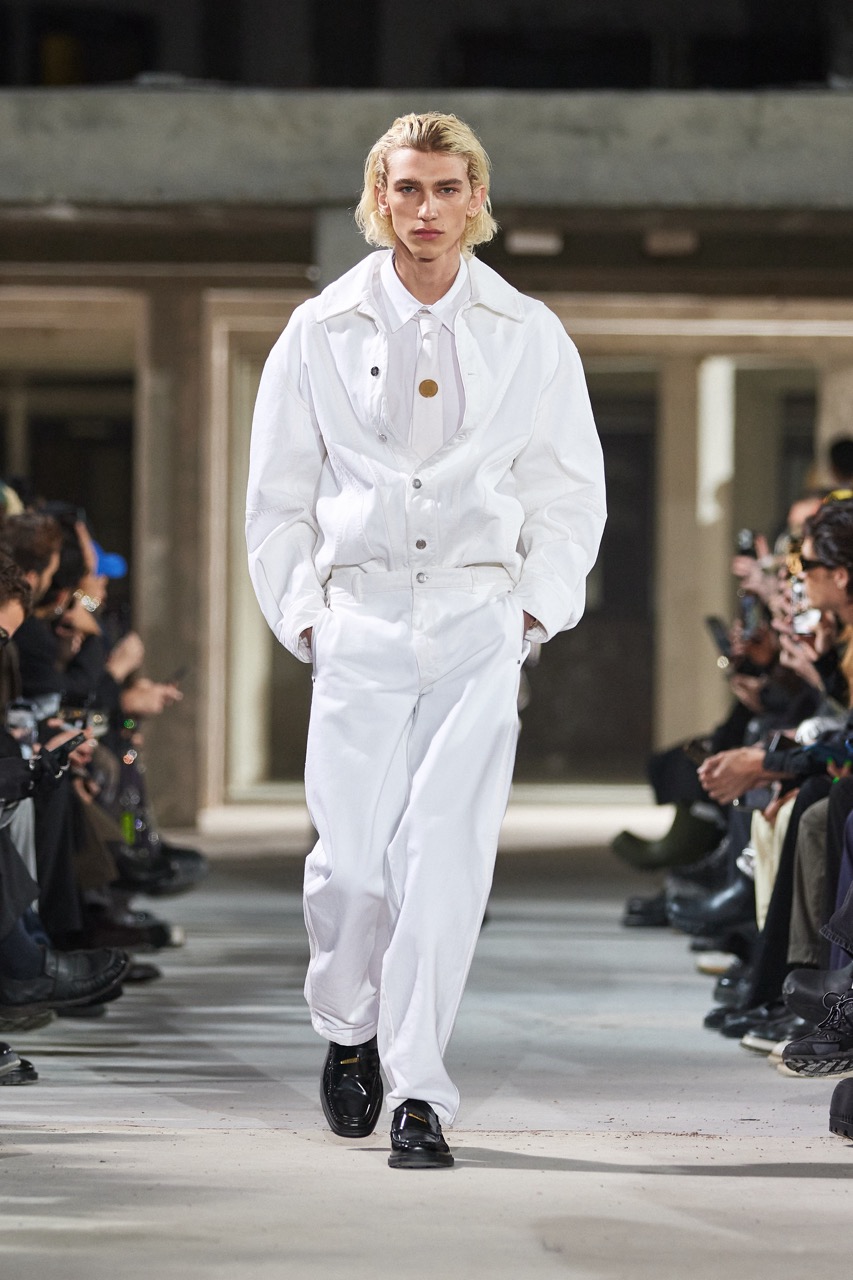
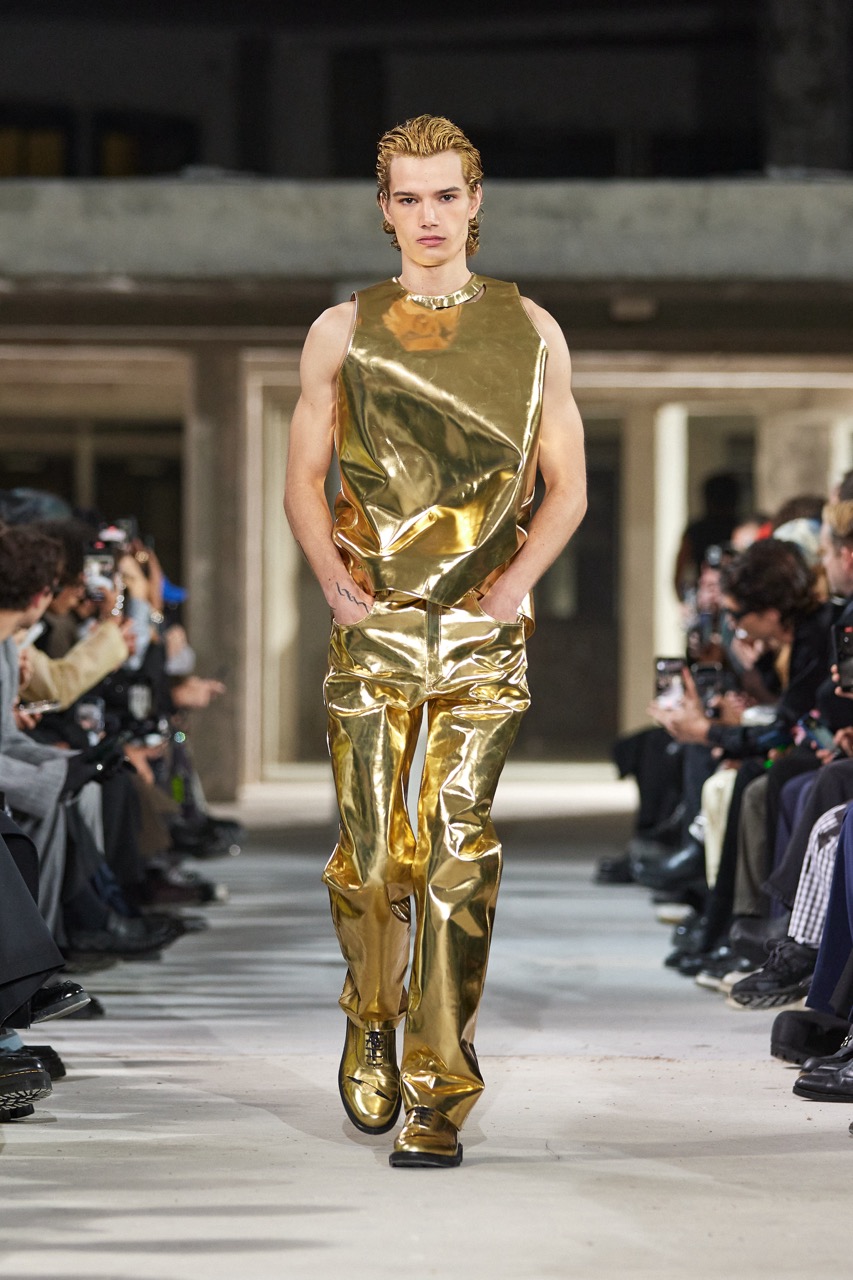
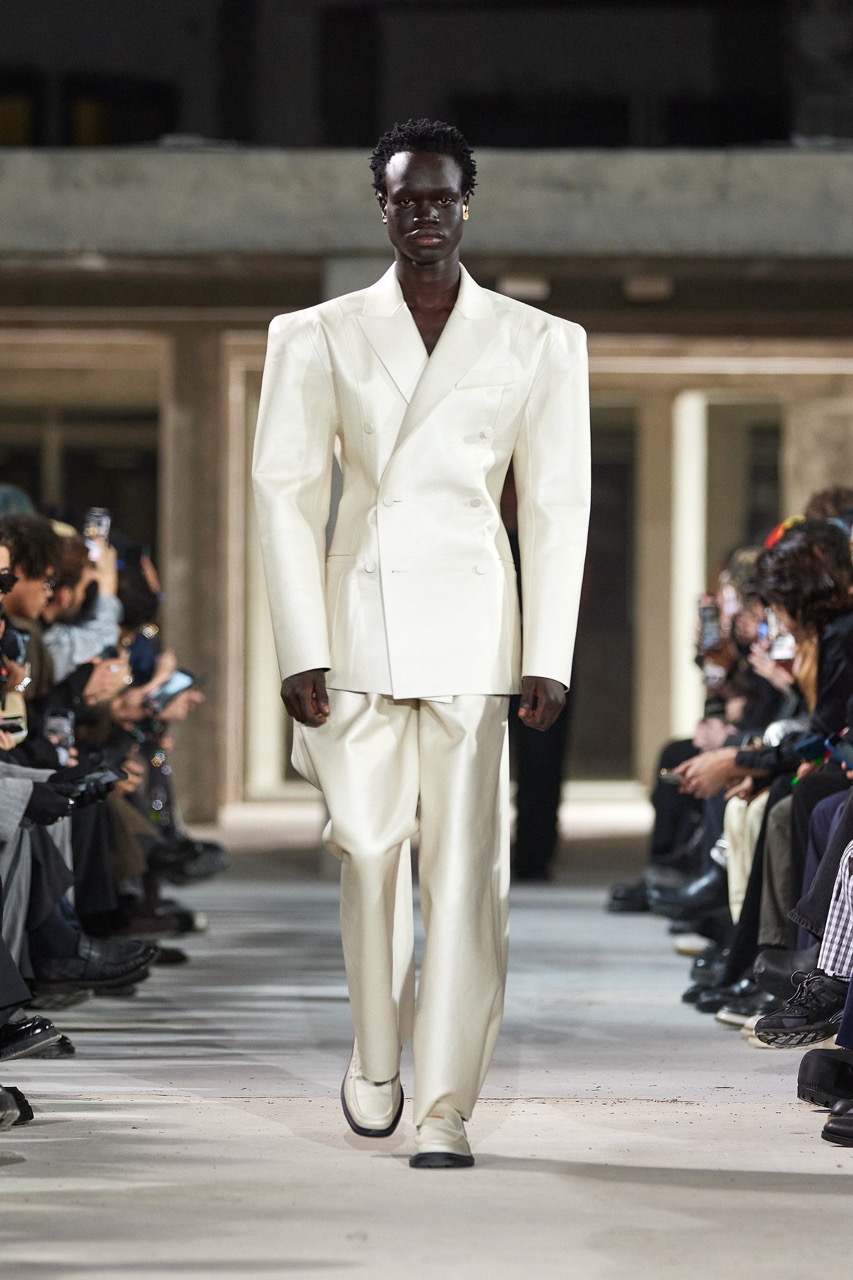
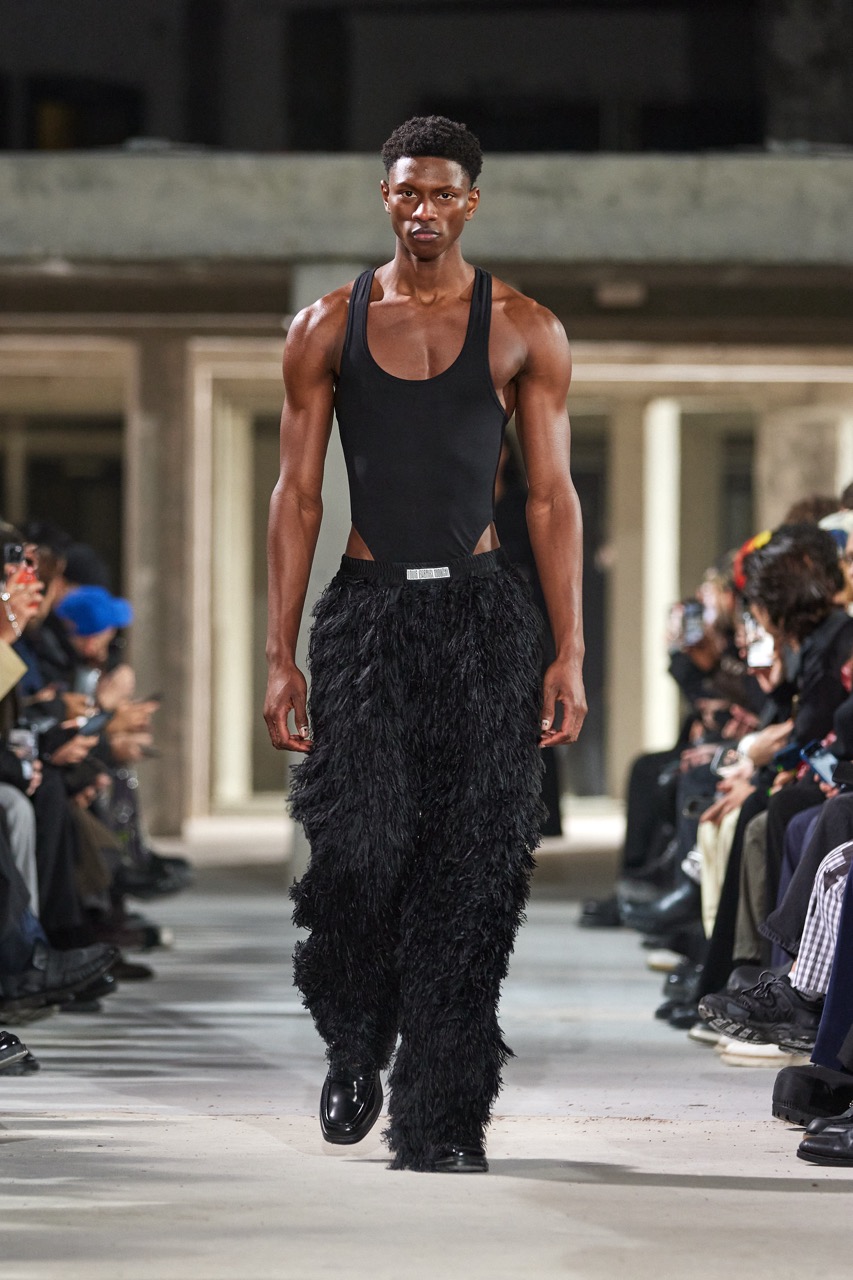
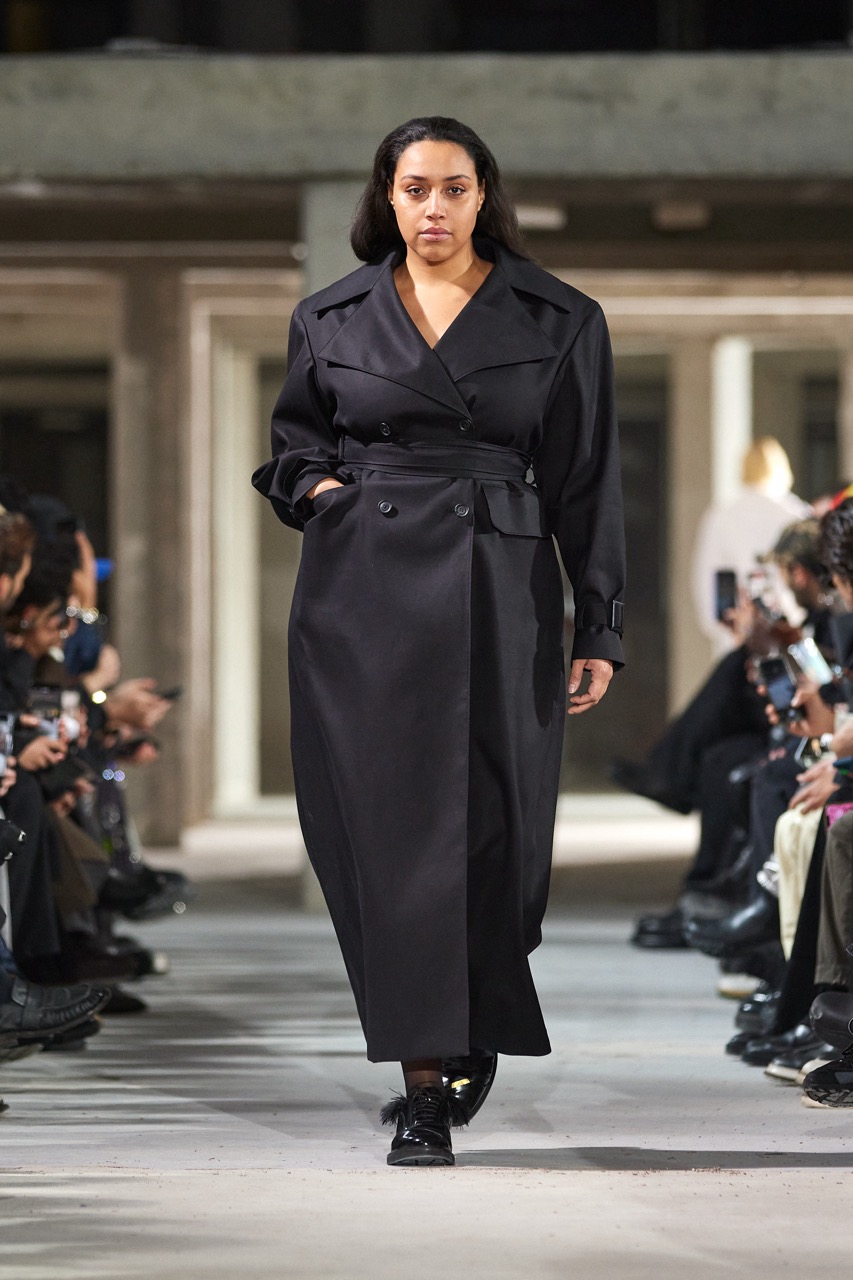
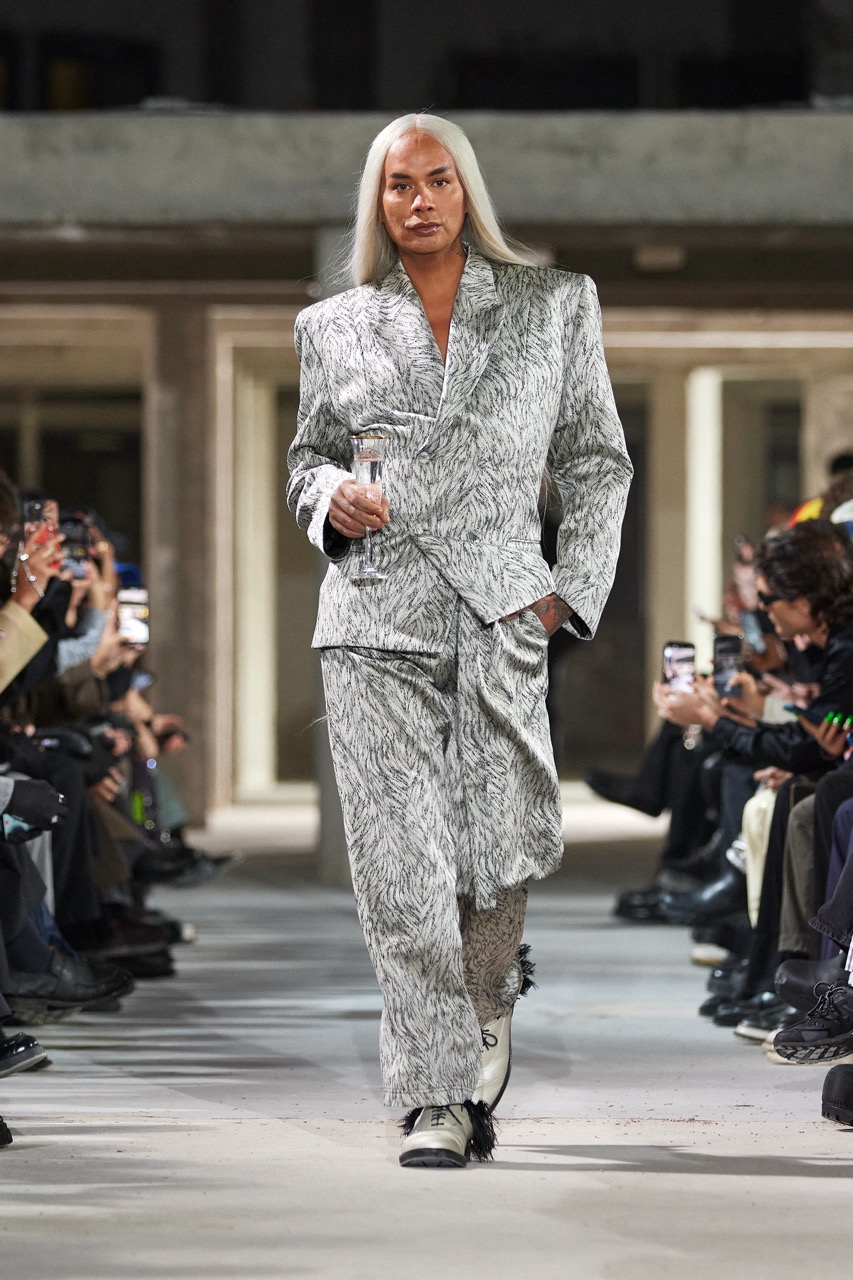
Images courtesy of LGN
A sartorial research that extends to LGN LOUIS-GABRIEL NOUCHI’s wardrobe, where tuxedos are tailored with the LGN signature tailoring, featuring strong shoulders, cinched waist, and defined hip structure. What he did on the stylistic side wasn’t rare: 19th century aesthetics were translated into long, voluminous coats resembling capes, but the fluid and see-through pieces — which harken back to the intimacy and luxury of glamorous receptions — felt redundant. But perhaps, in a collection, a simple throughline could nicely echo in an emphasis that rolls in a refreshing slate of essentialism, where things get pared down to the max.
Acne Studios
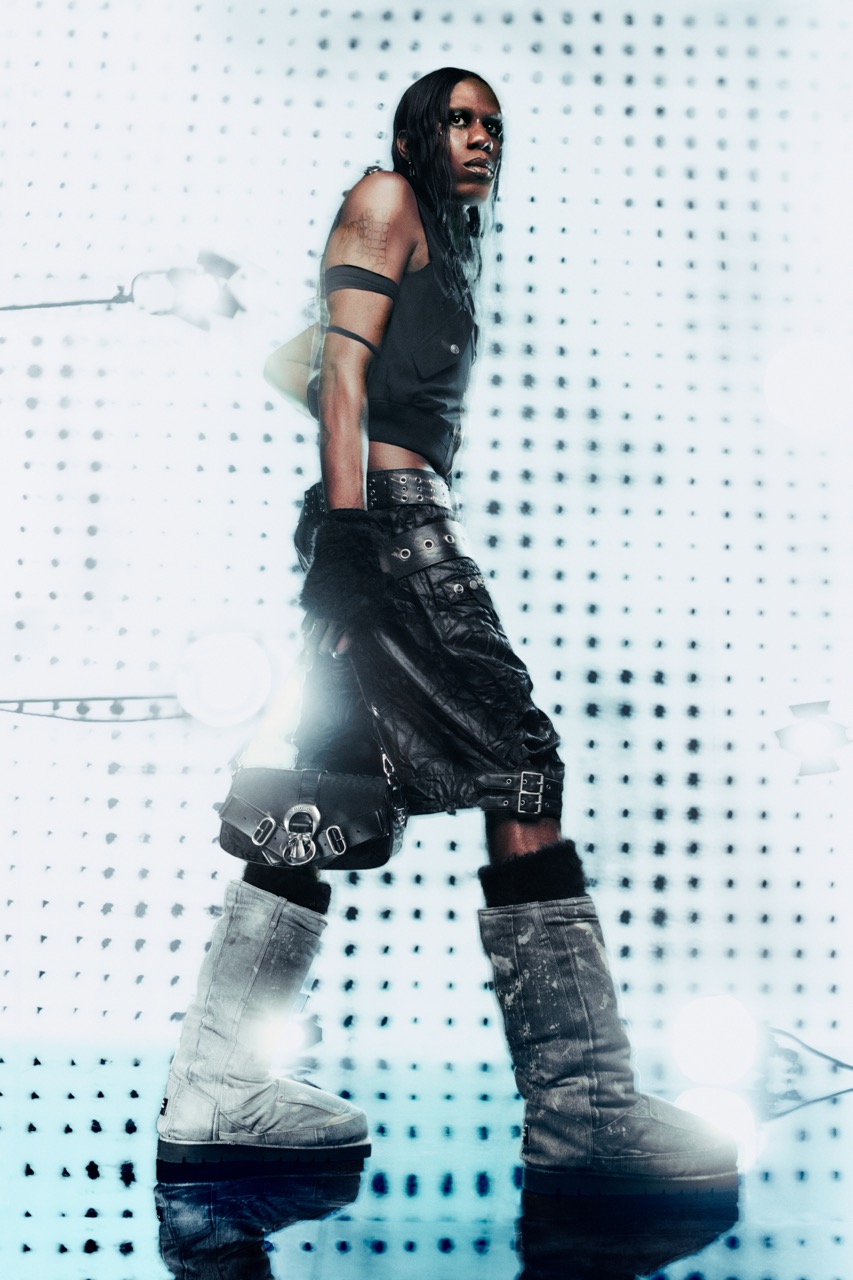
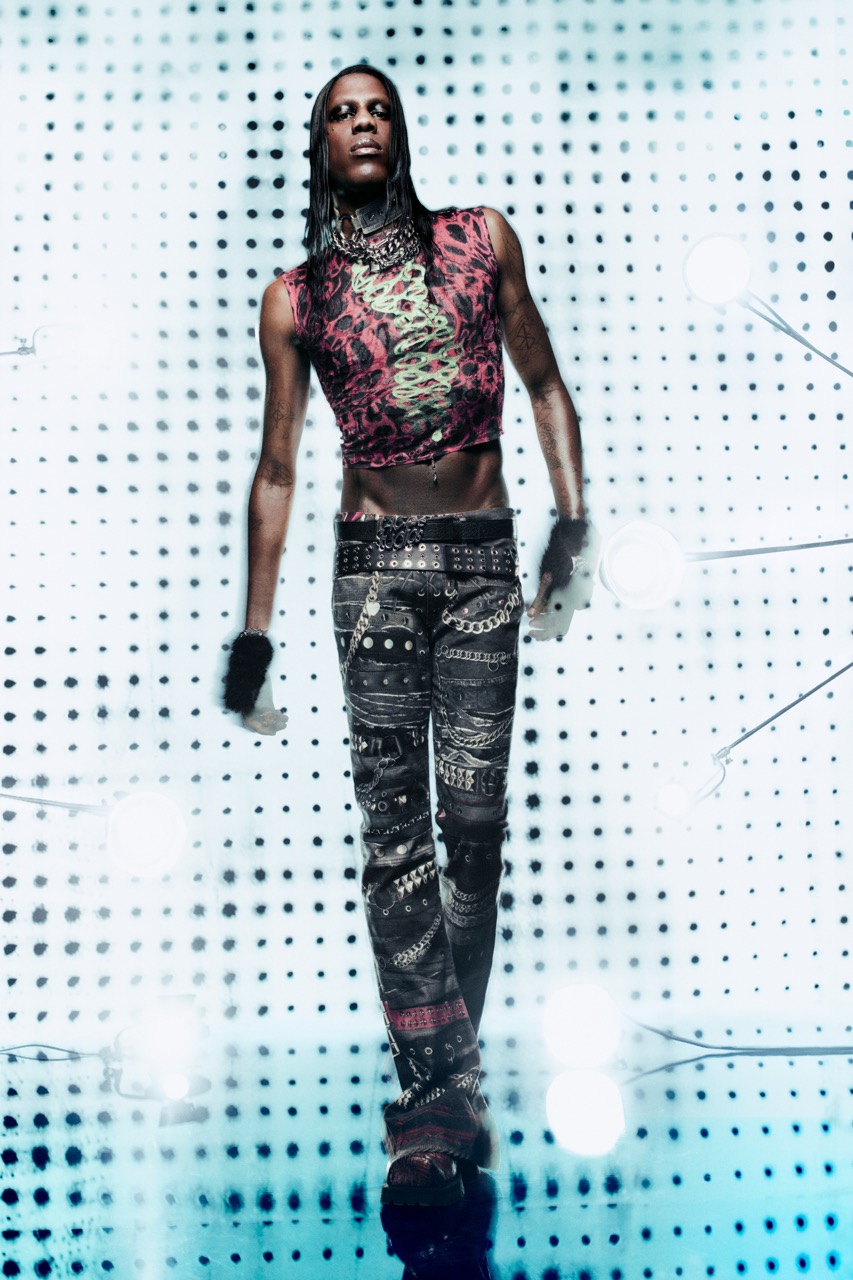
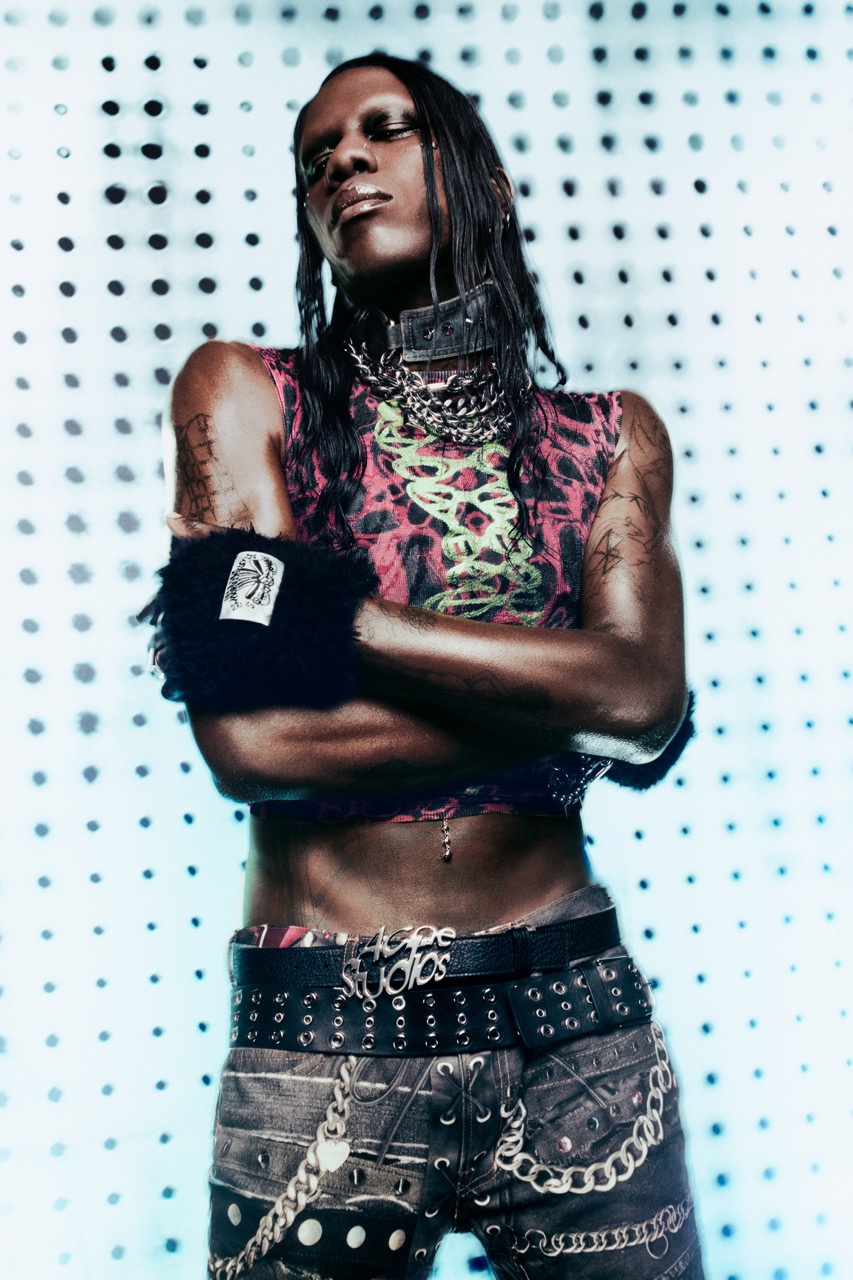
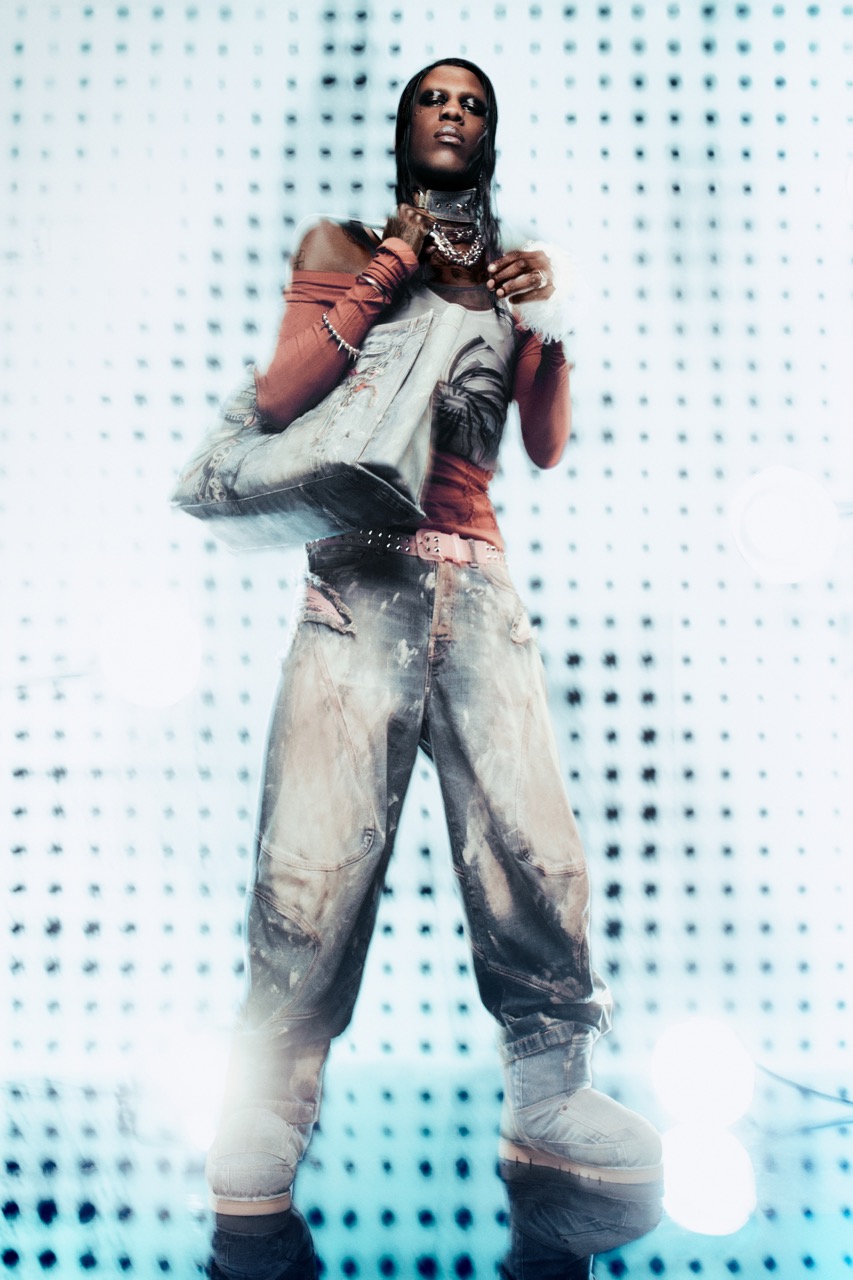
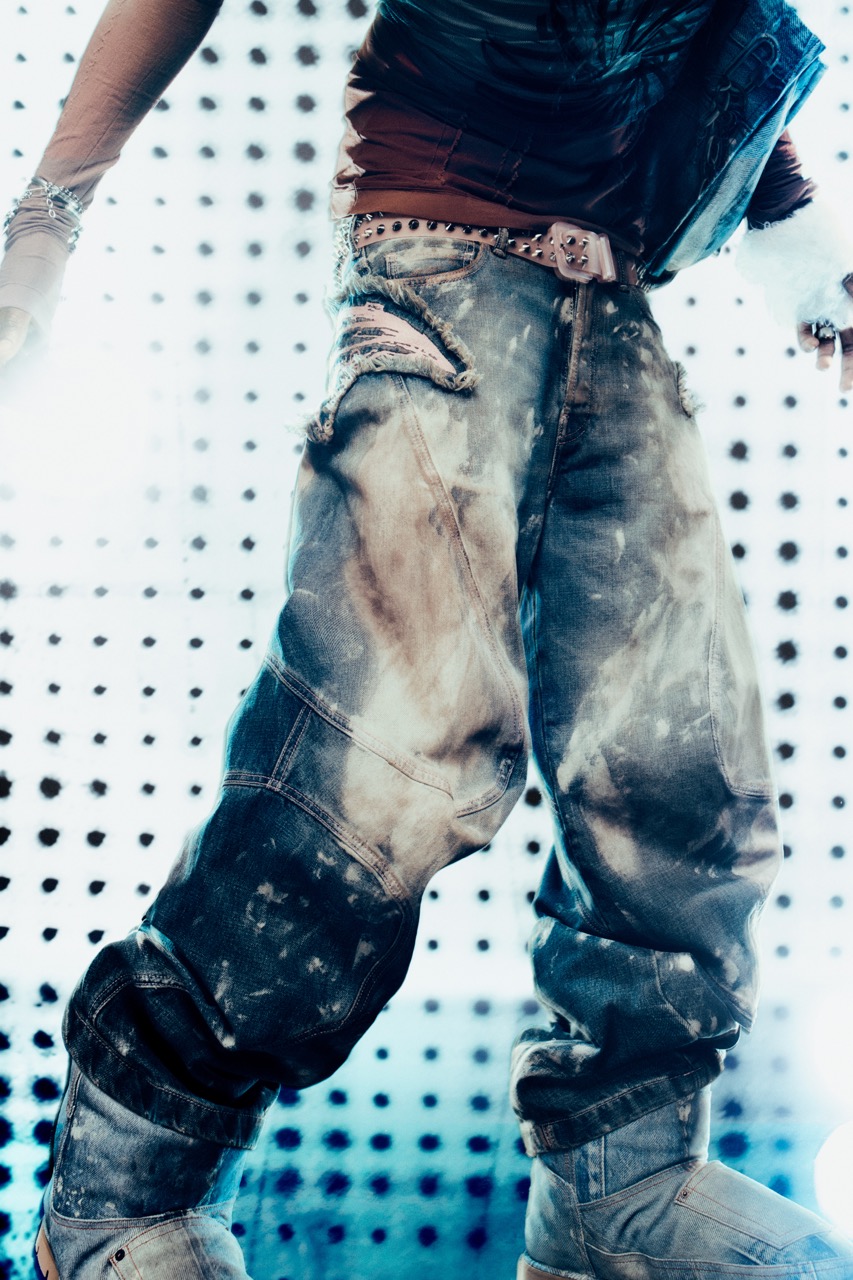
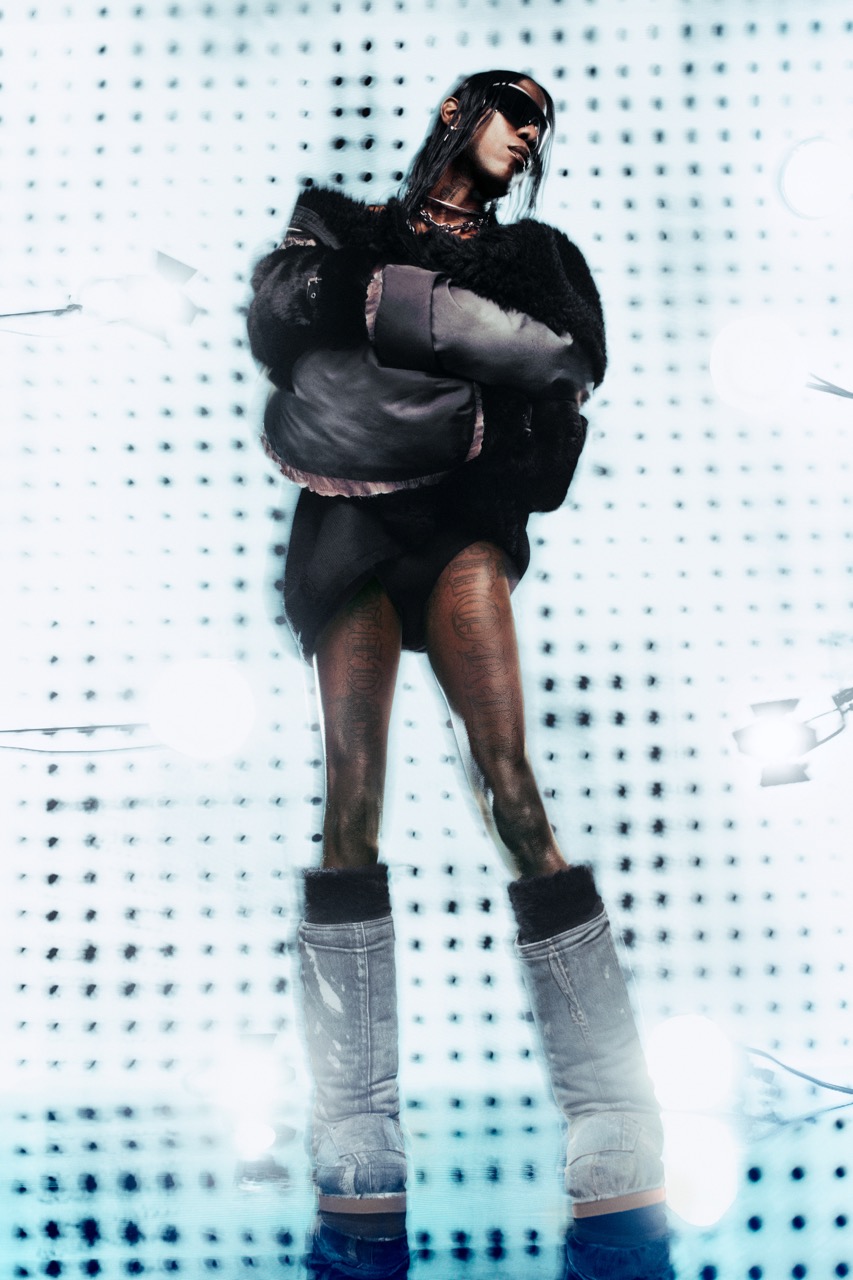
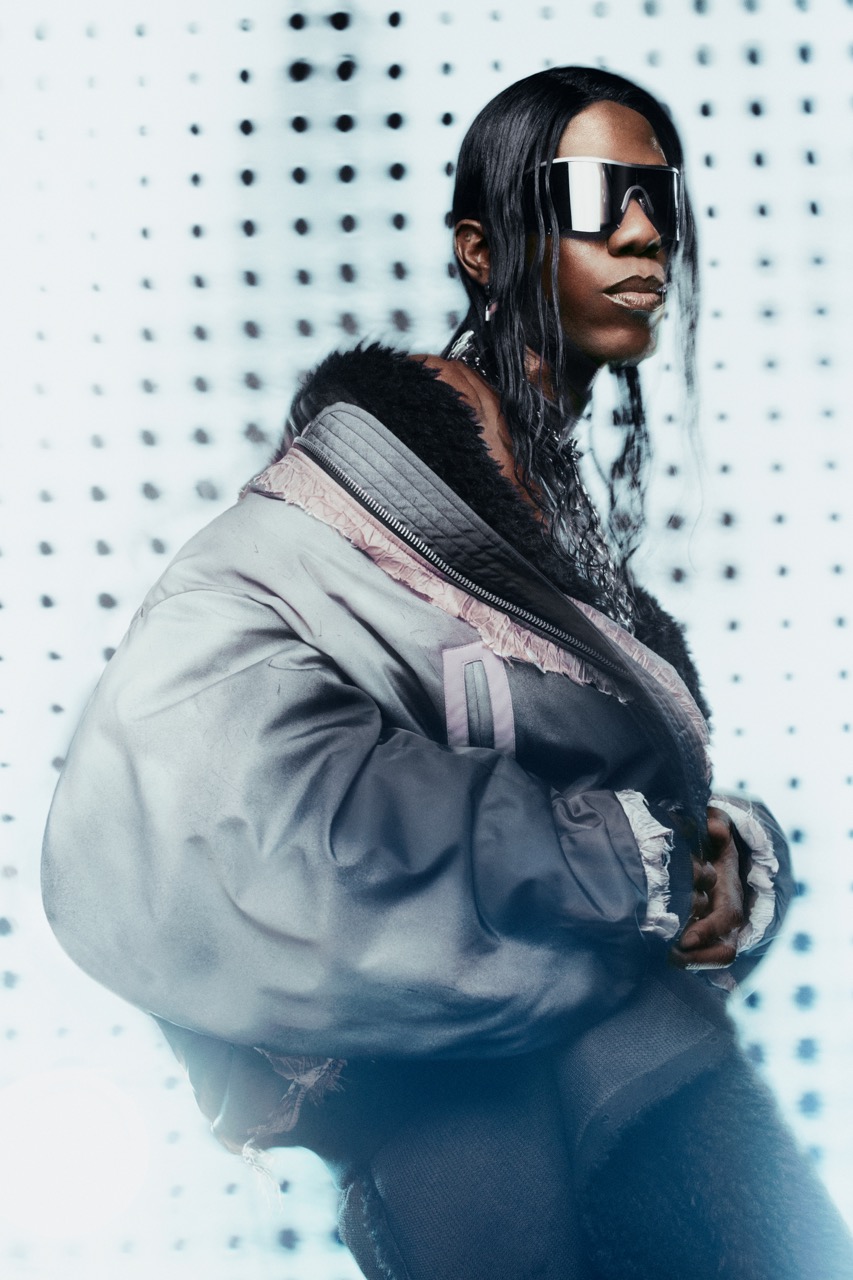
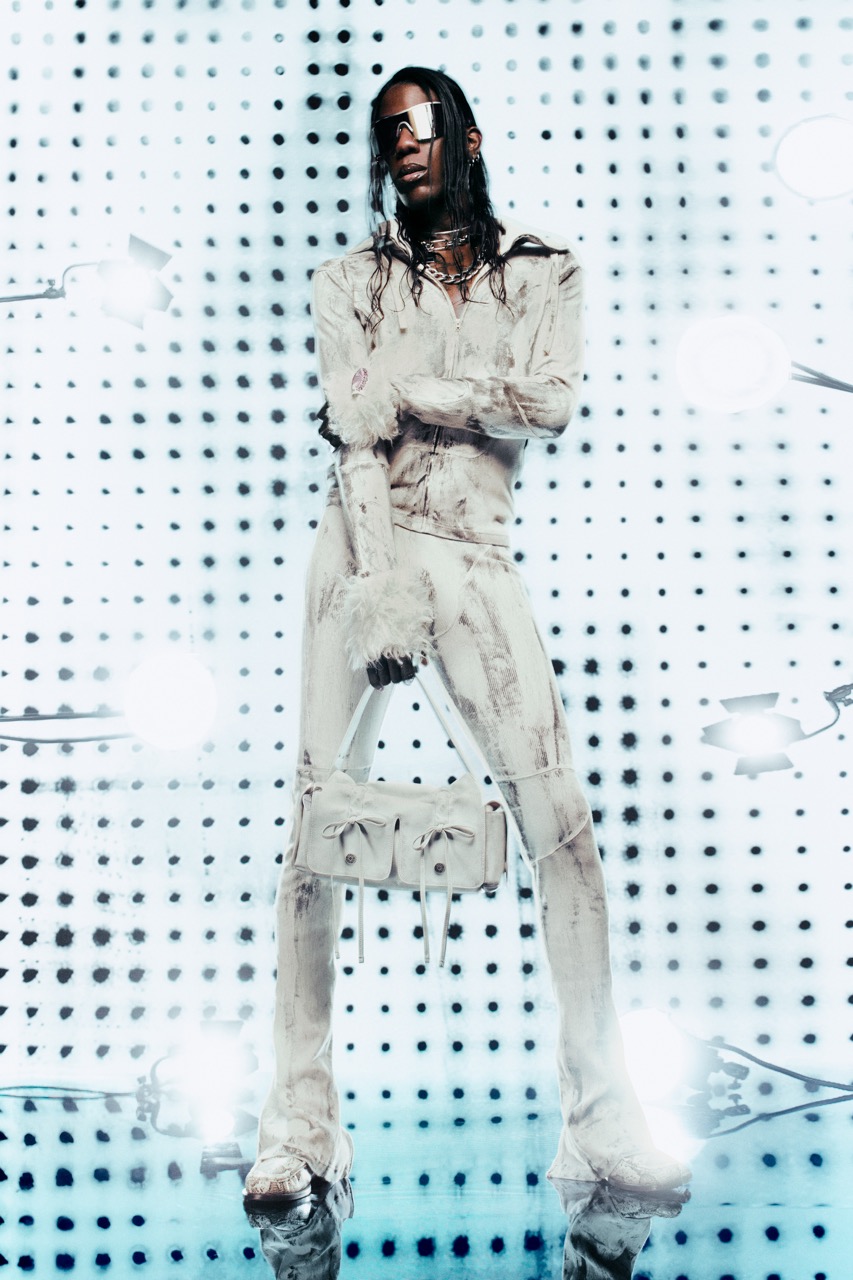
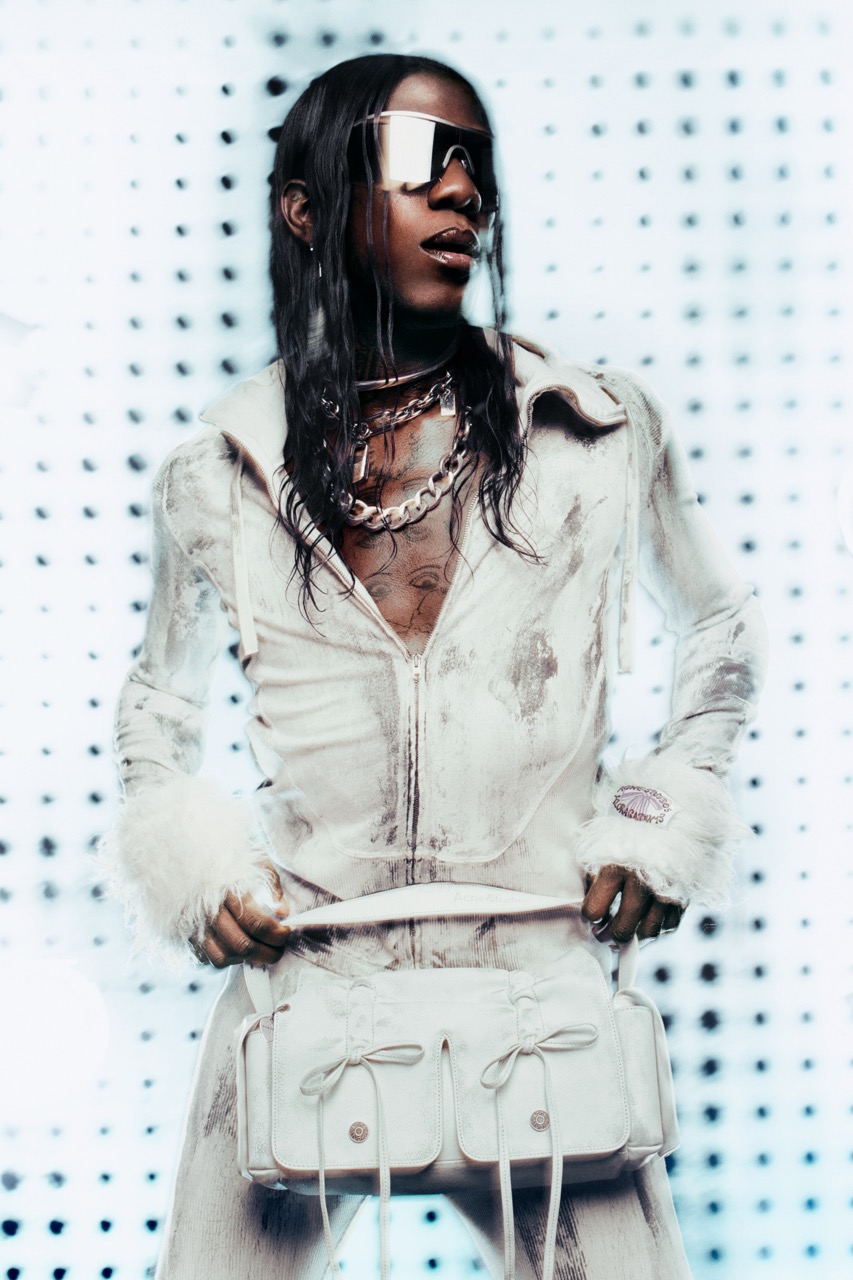
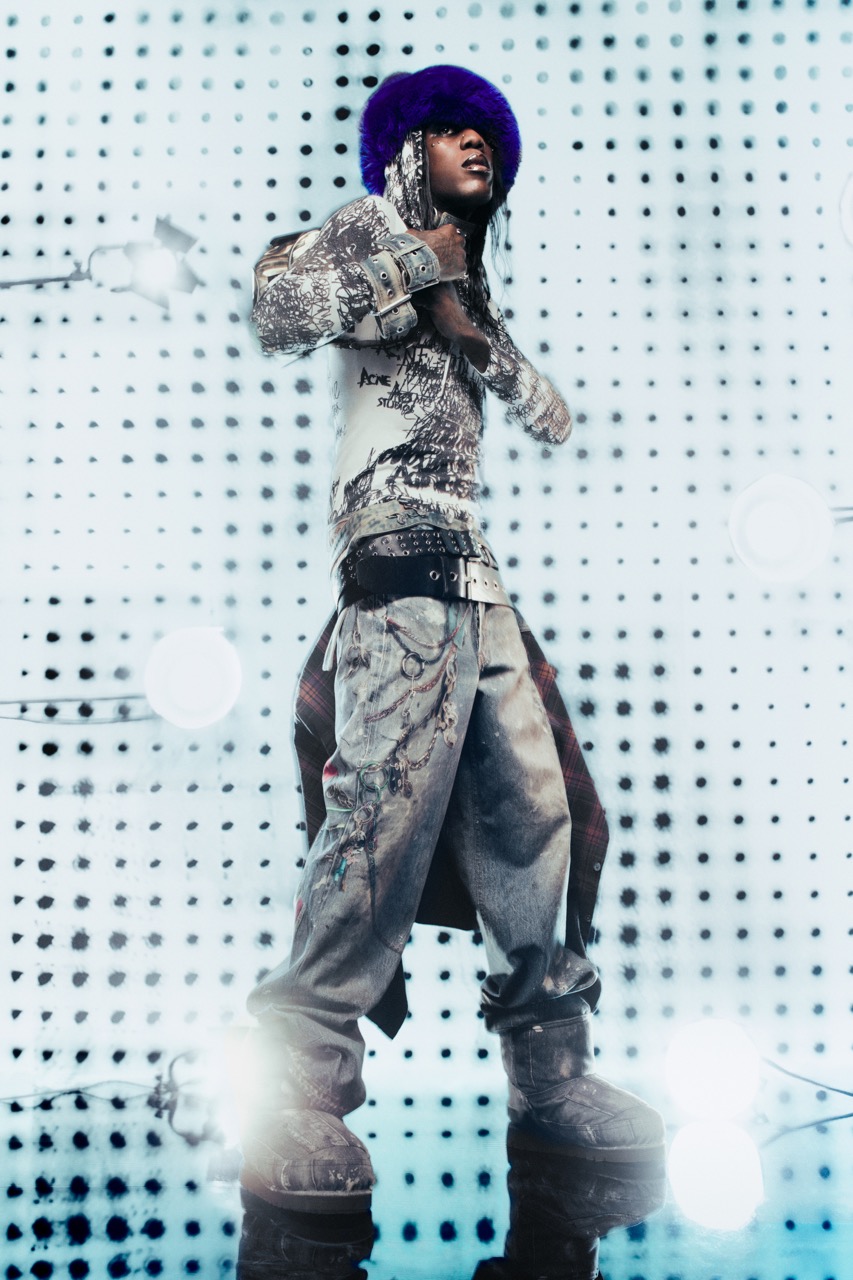
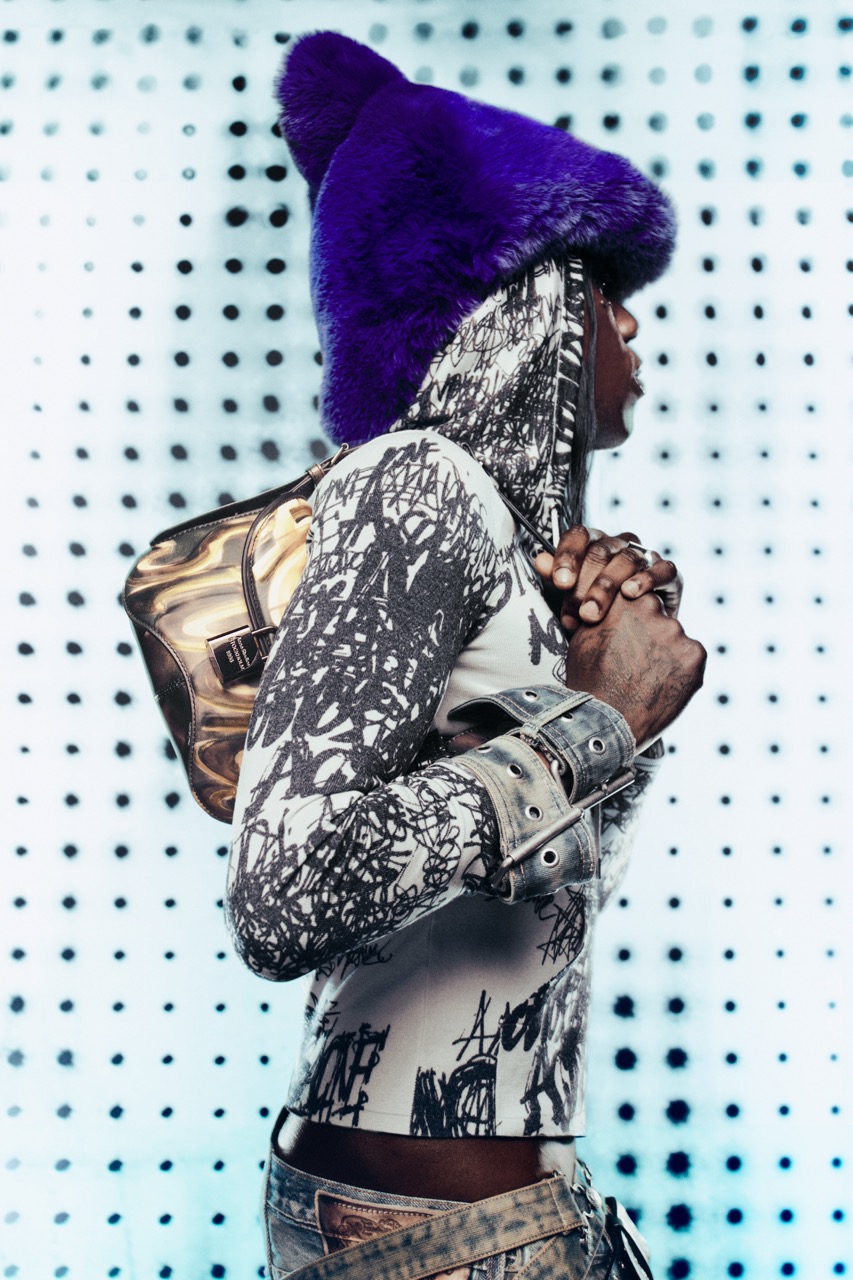
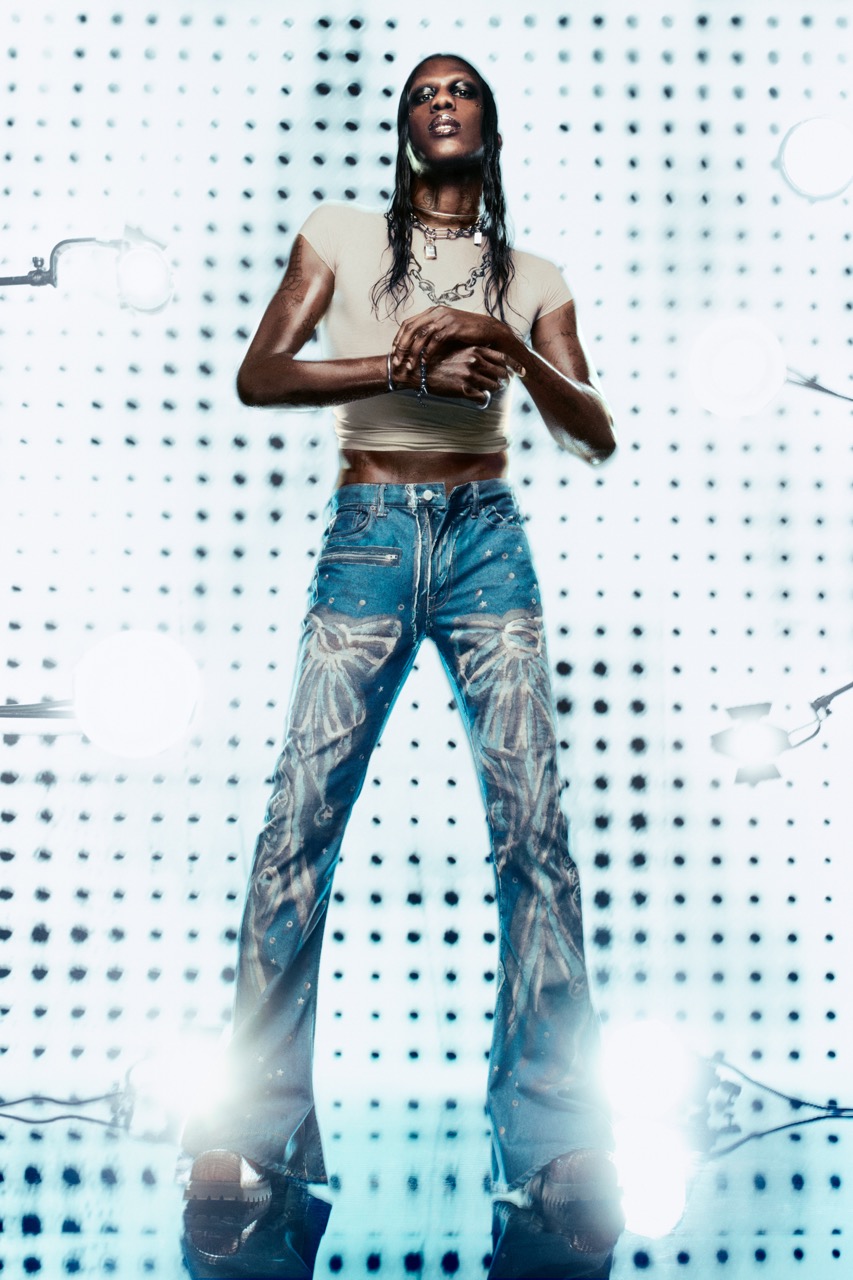
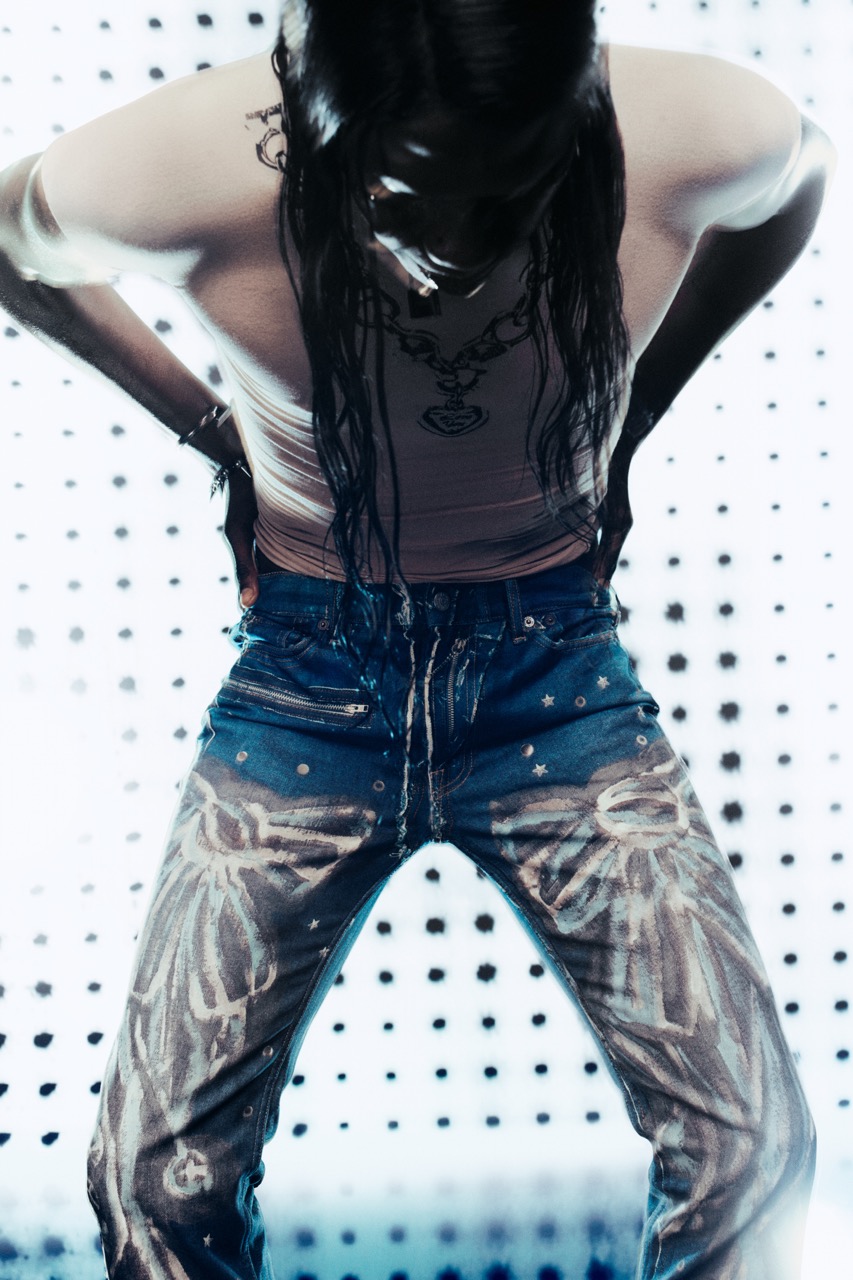
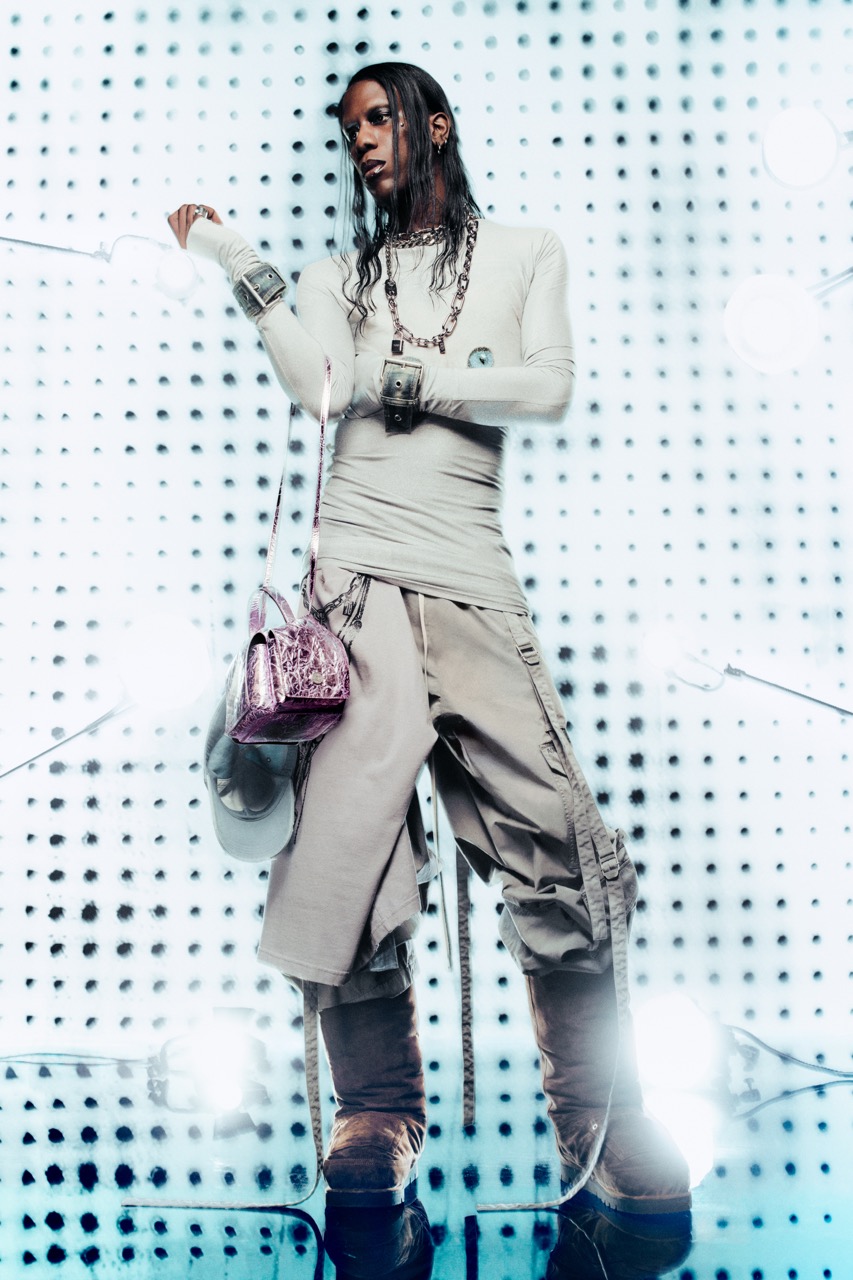
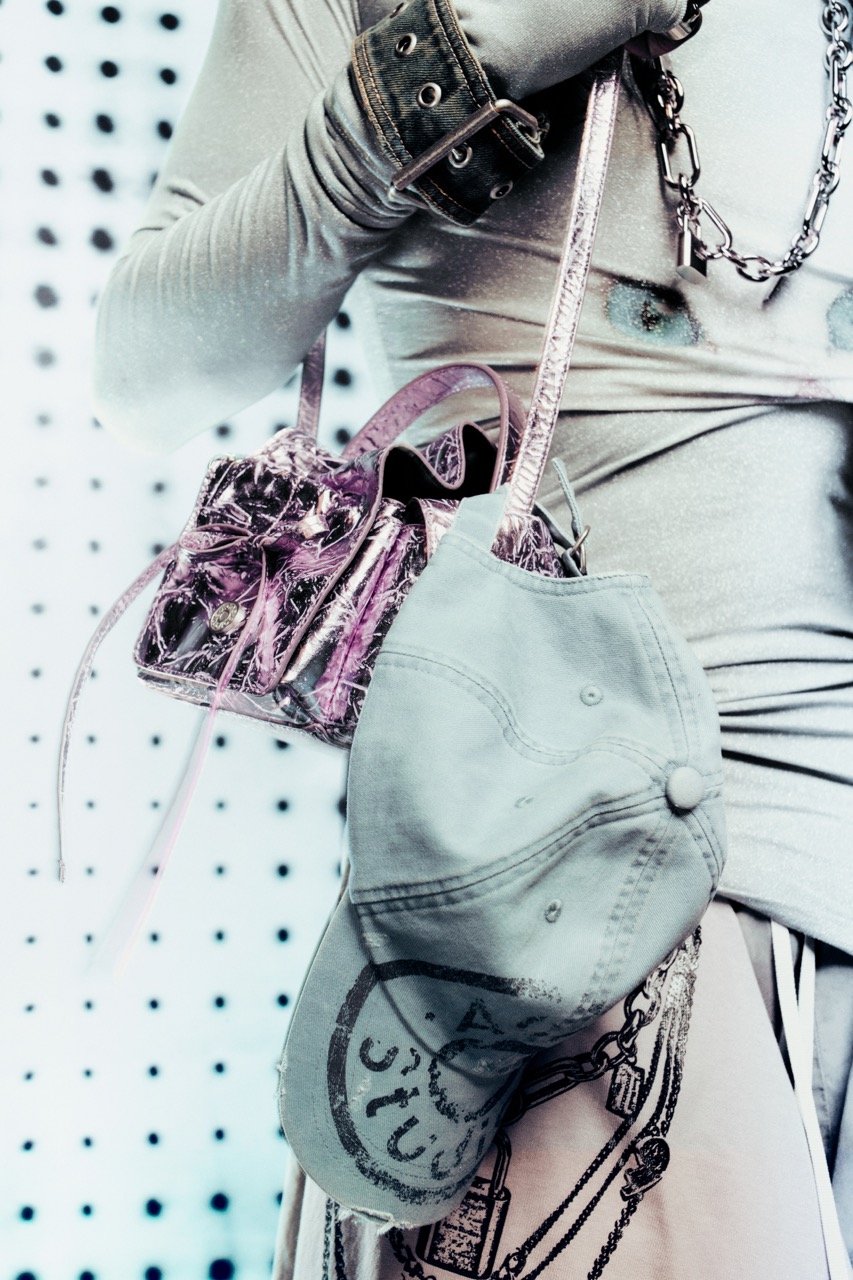
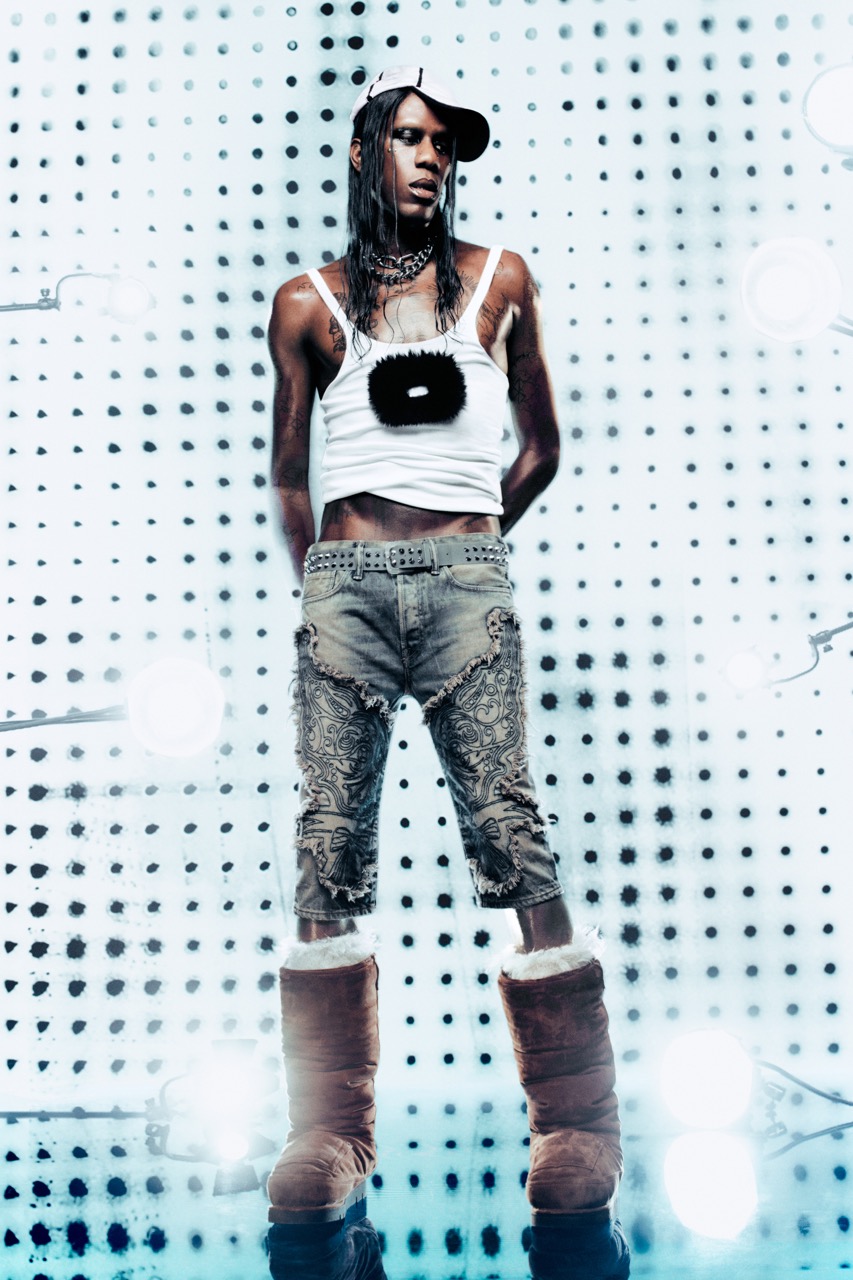
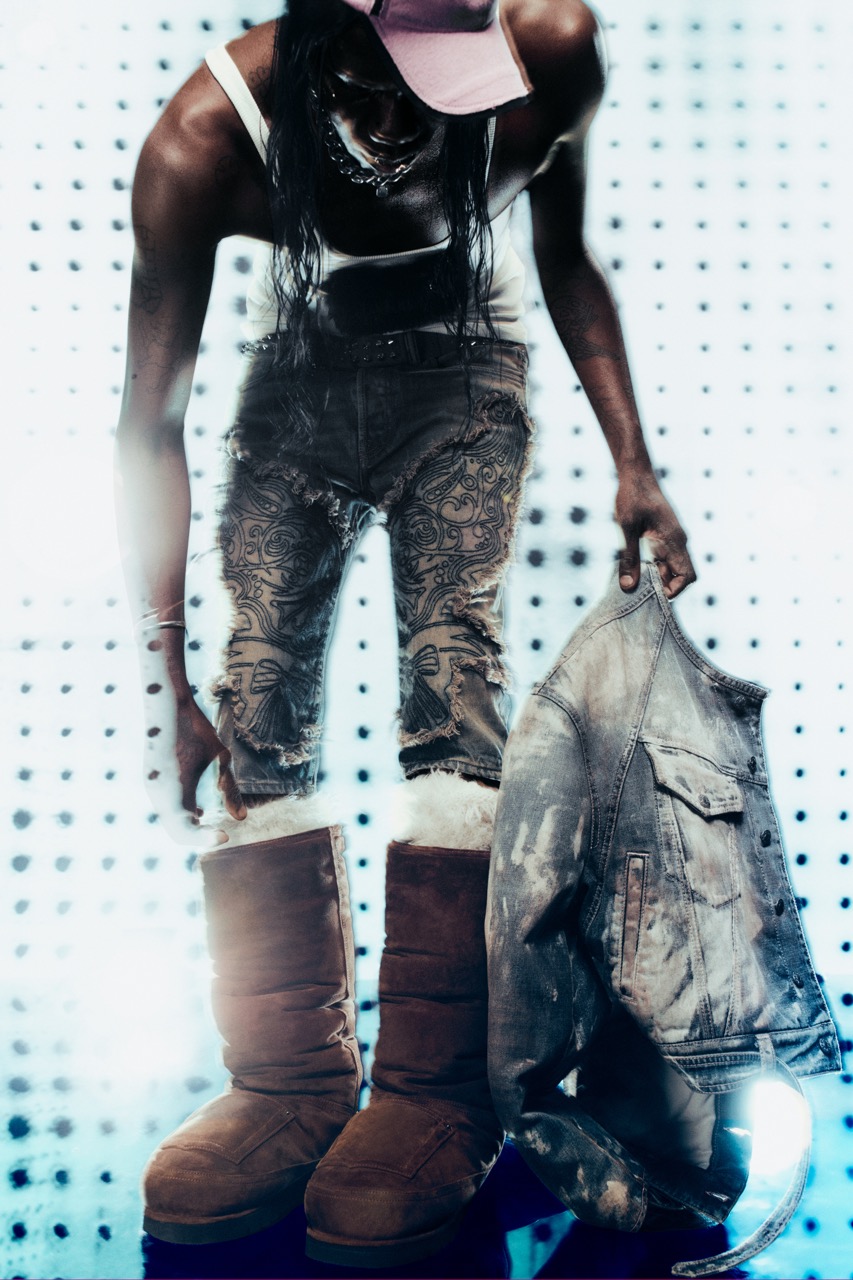
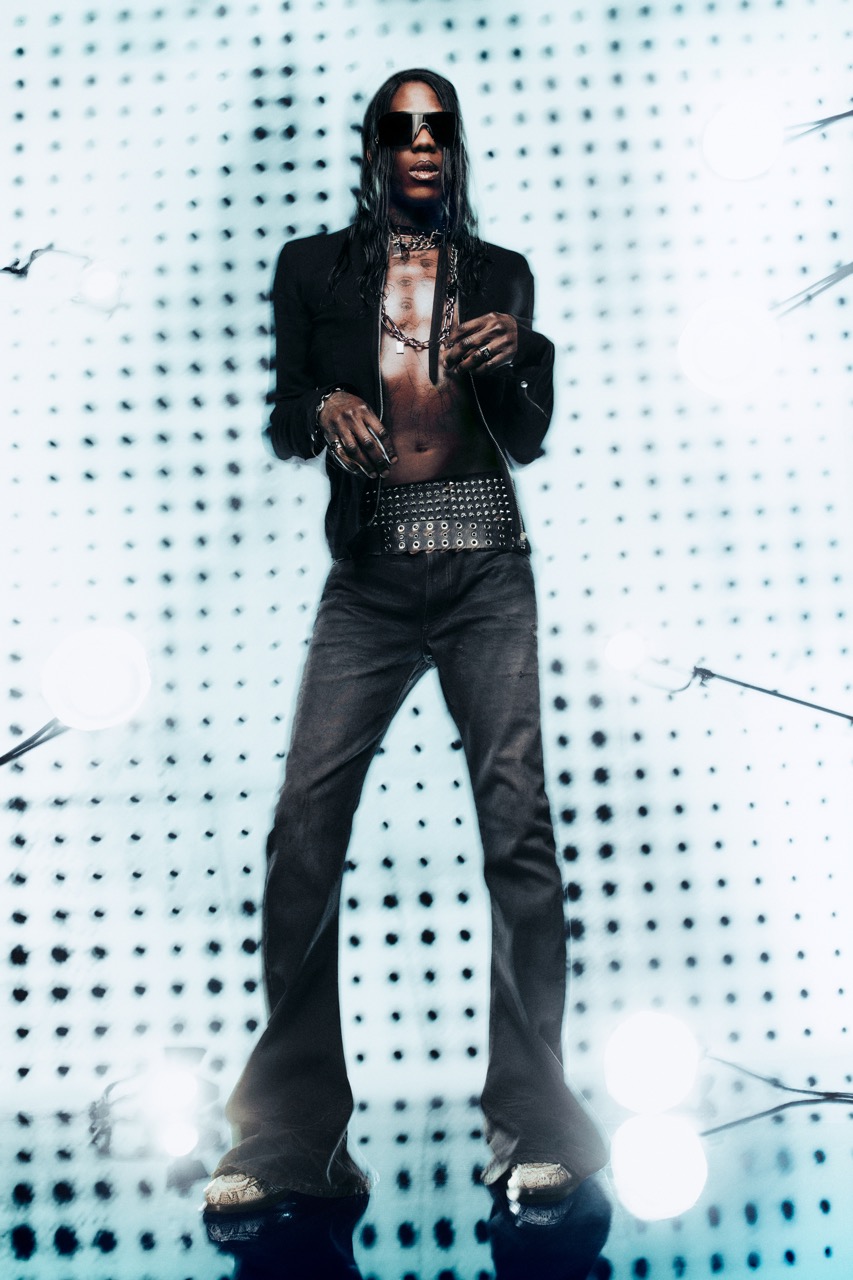
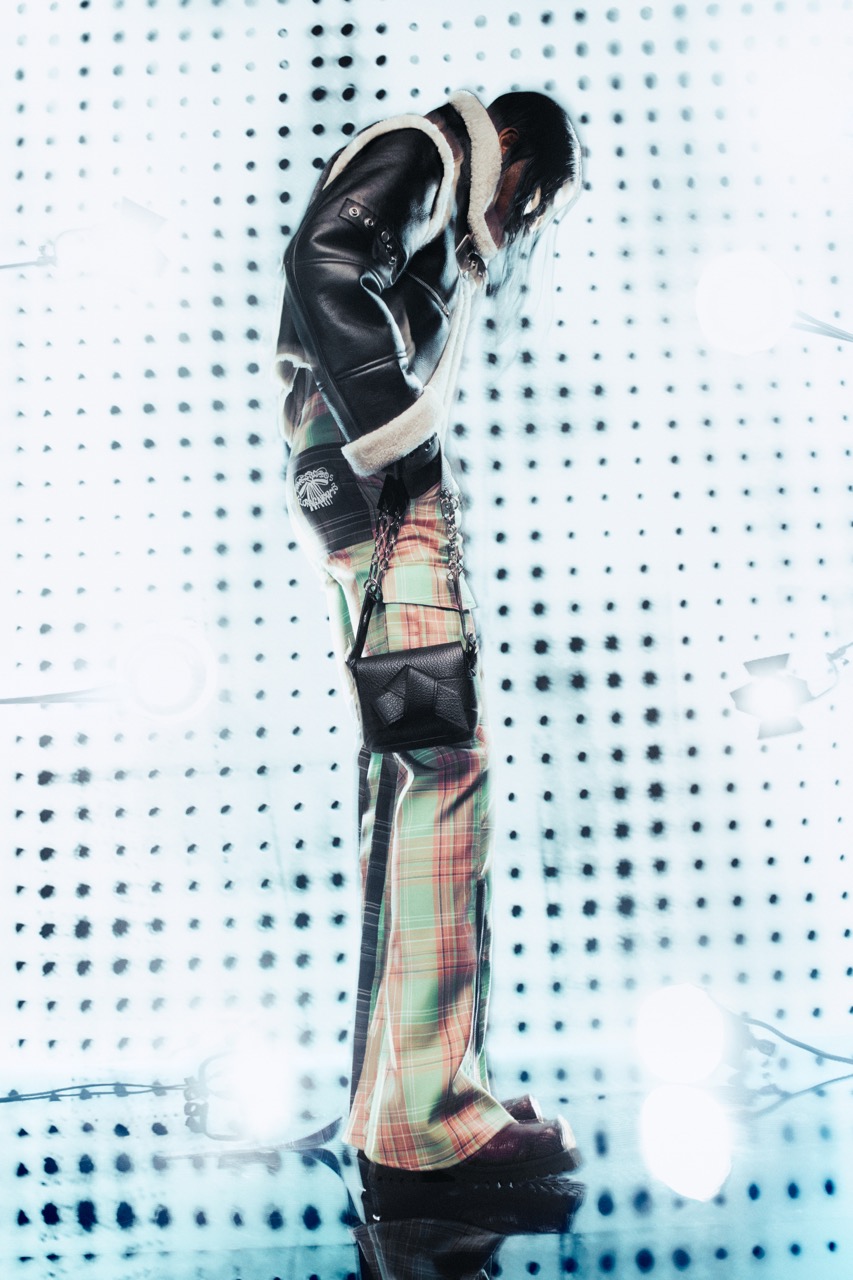
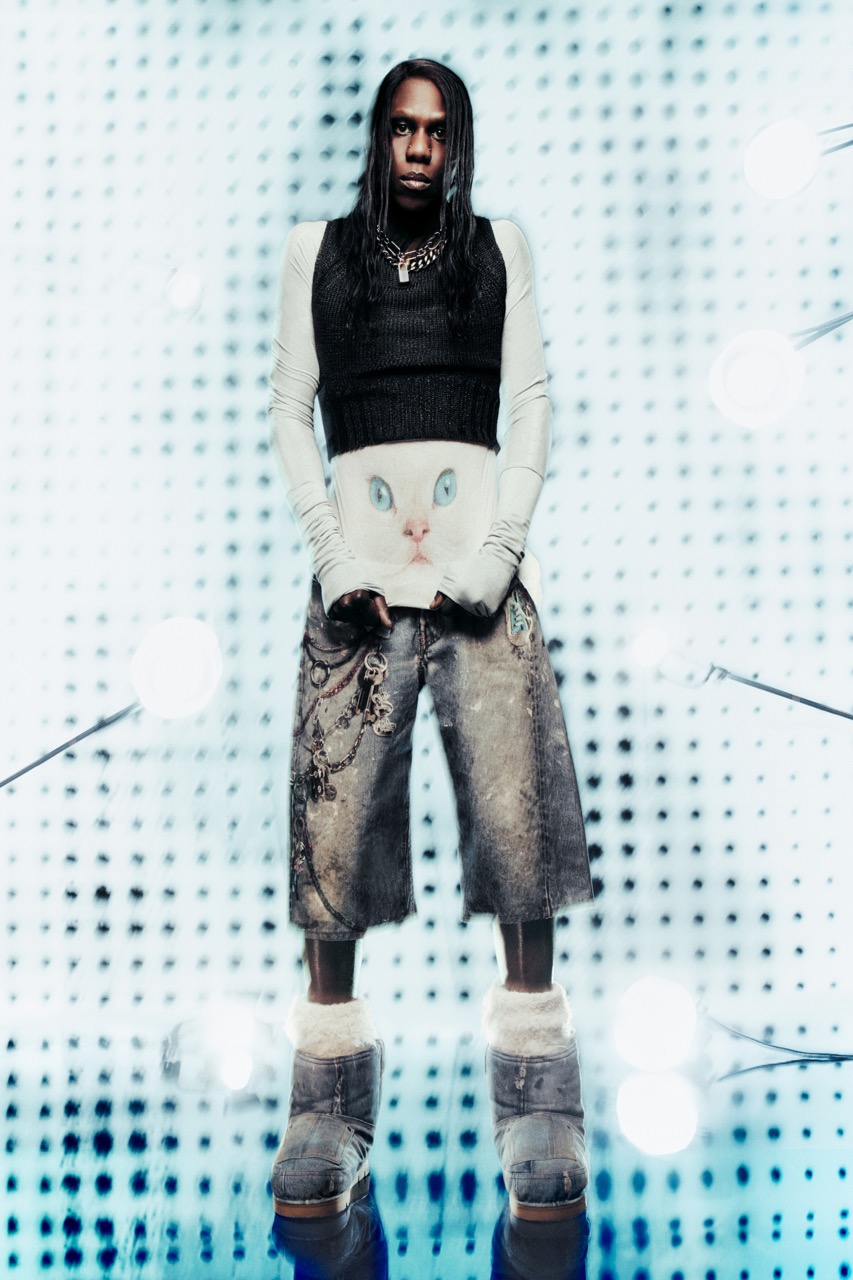
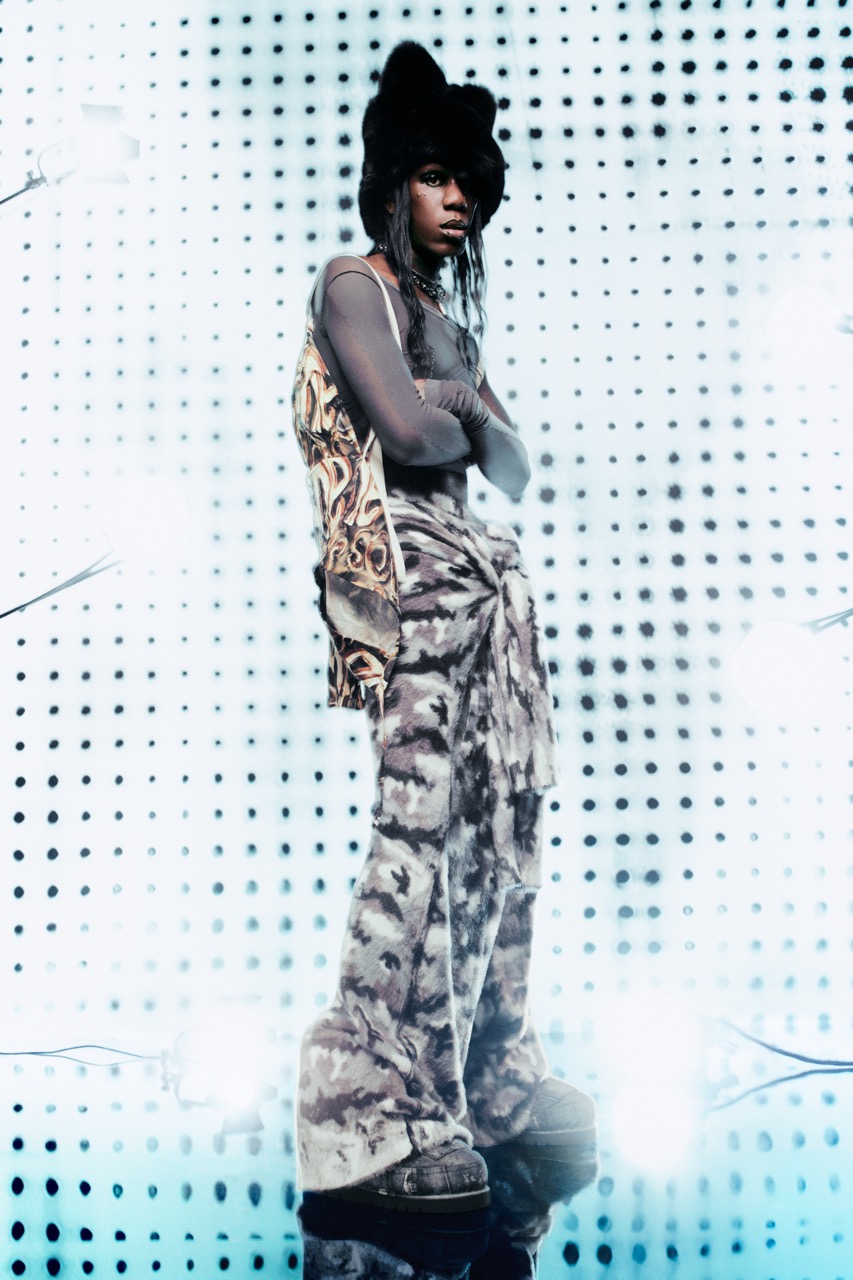
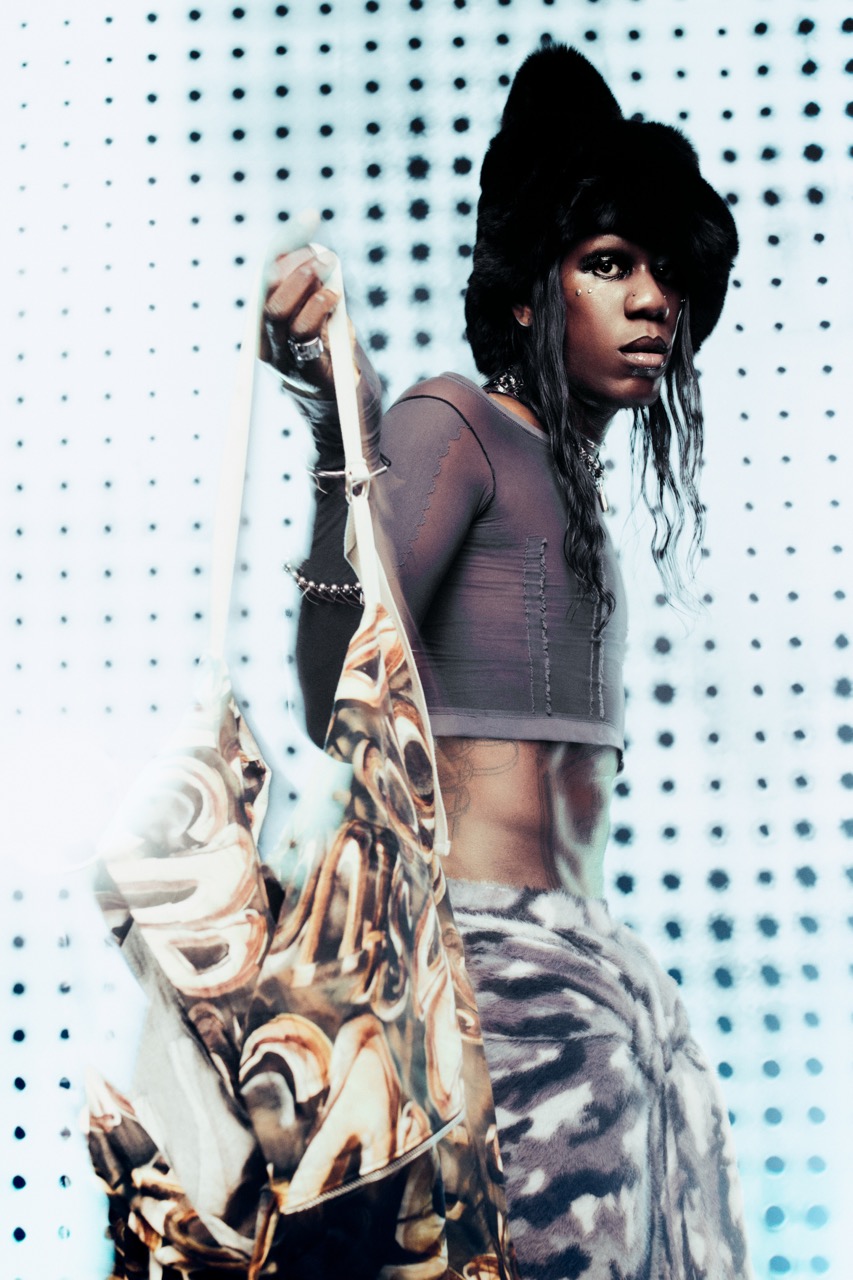
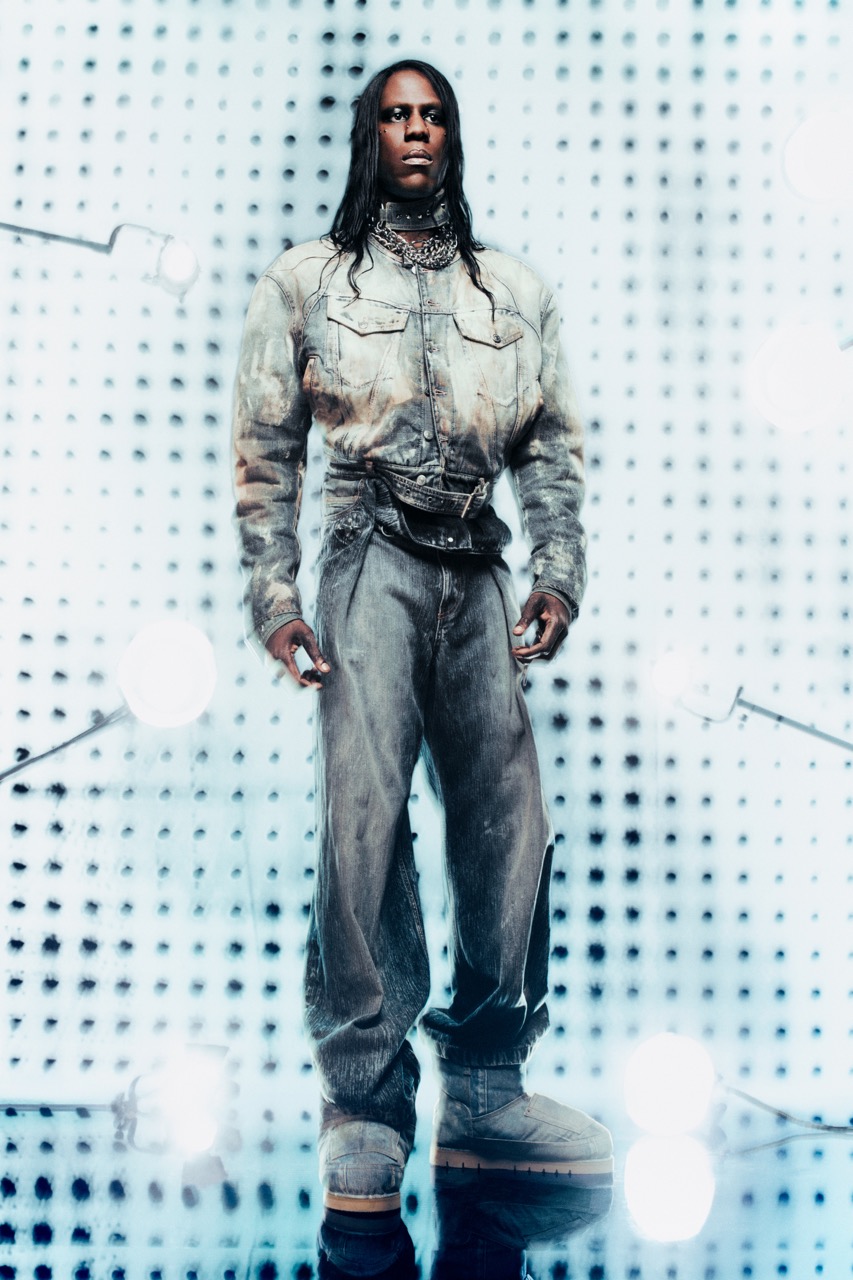
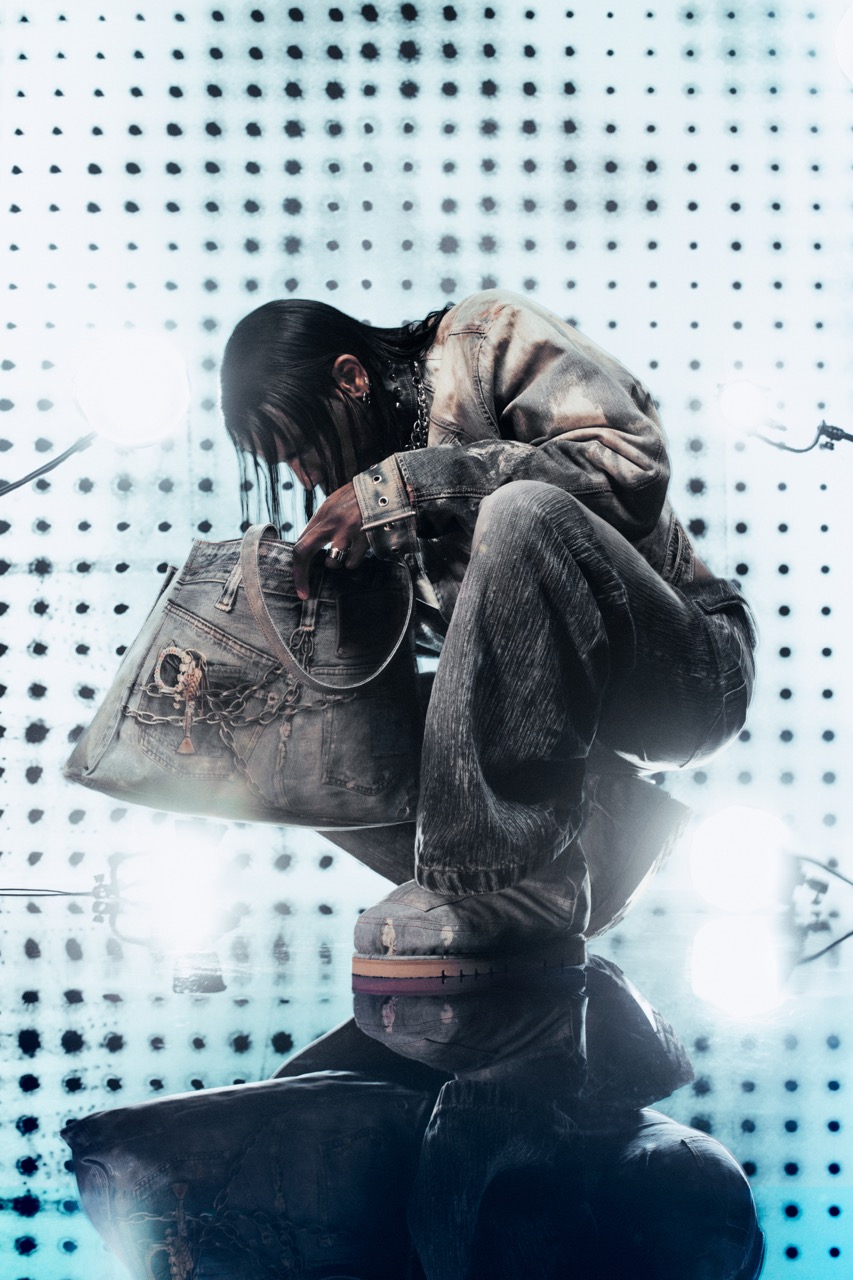
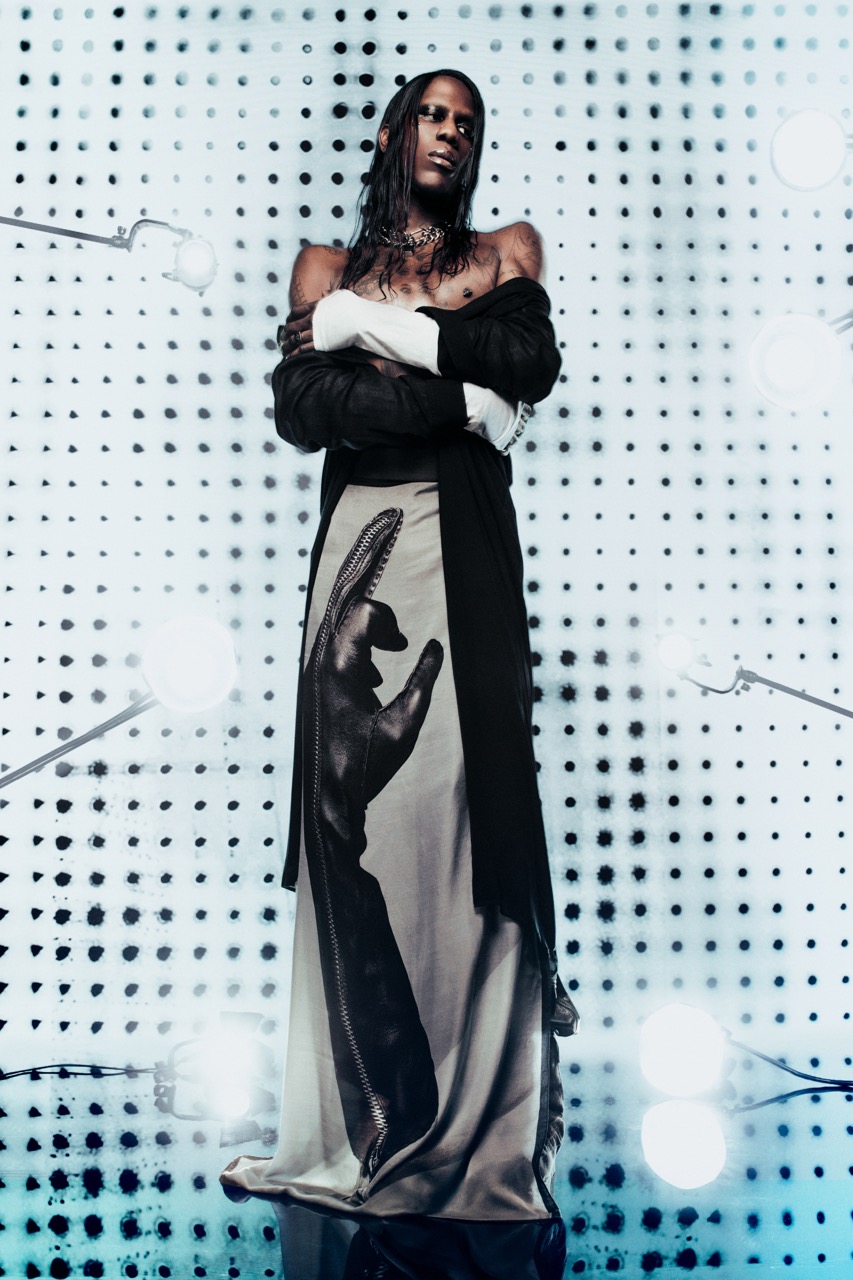
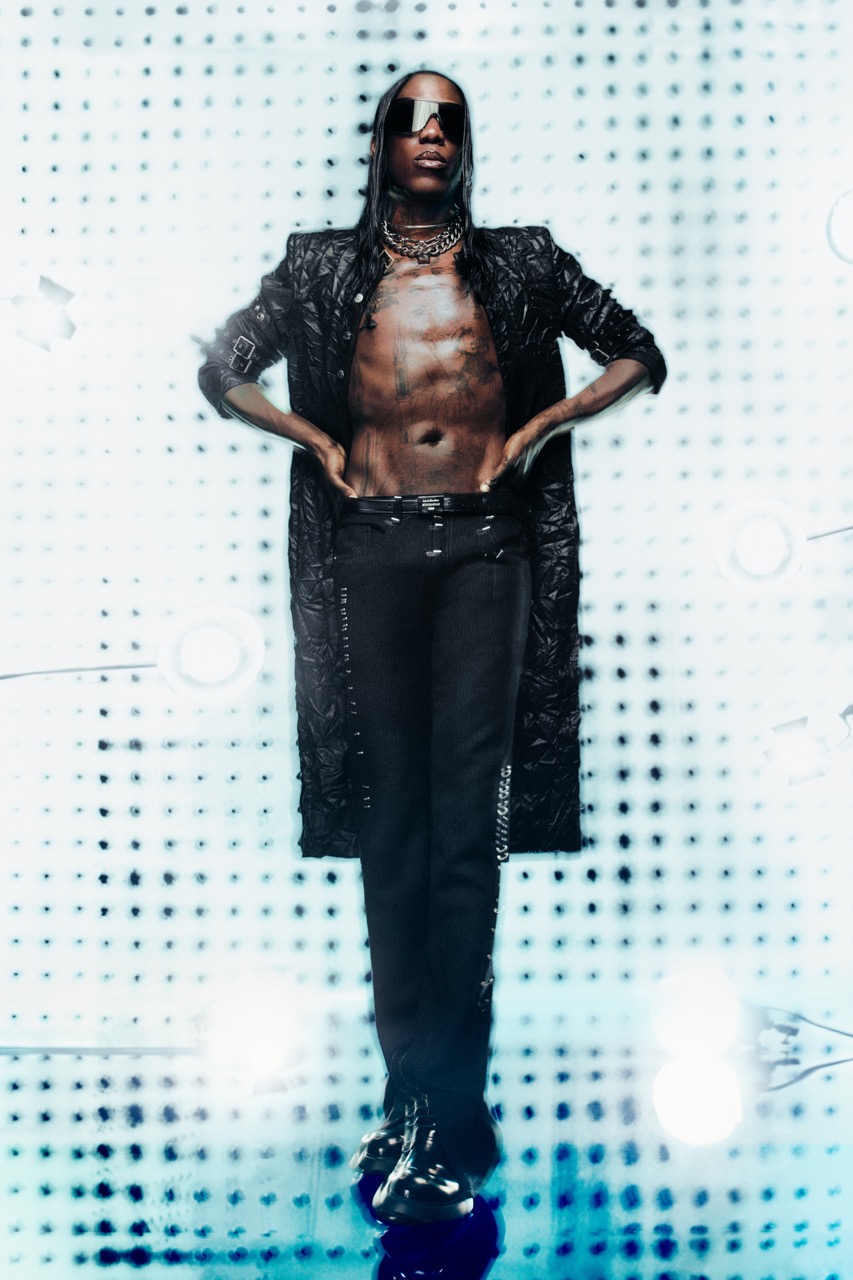
Images courtesy of Acne Studios
Acne Studios is a case in point: Fall 2024 featuring the gothy, experimental Yves Tumor, presented an ode to denim culture, serving daring offerings teamed with a rebellious streak. Here, menswear motorbike archetypes are subverted with a kitsch sexiness, mixing psychedelic prints and club culture. “Denim, inherently, has a rebellious aura. It’s provocative, it’s rugged,” says Jonny Johansson, Creative Director, Acne Studios in the notes. Contrasted proportions, worn with playful experimentation, felt very much now: low-waisted, high-waisted, skin-tight and oversized.
Dries Van Noten
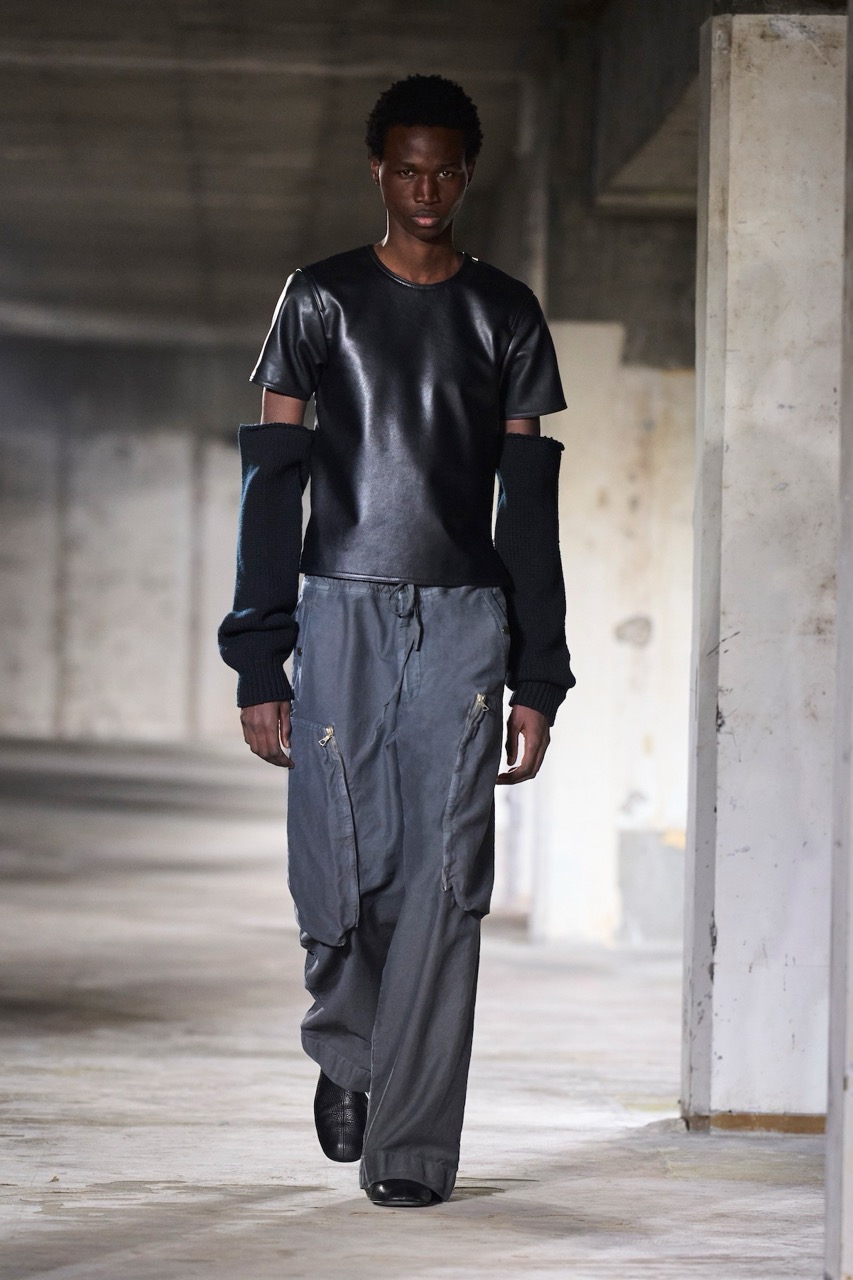
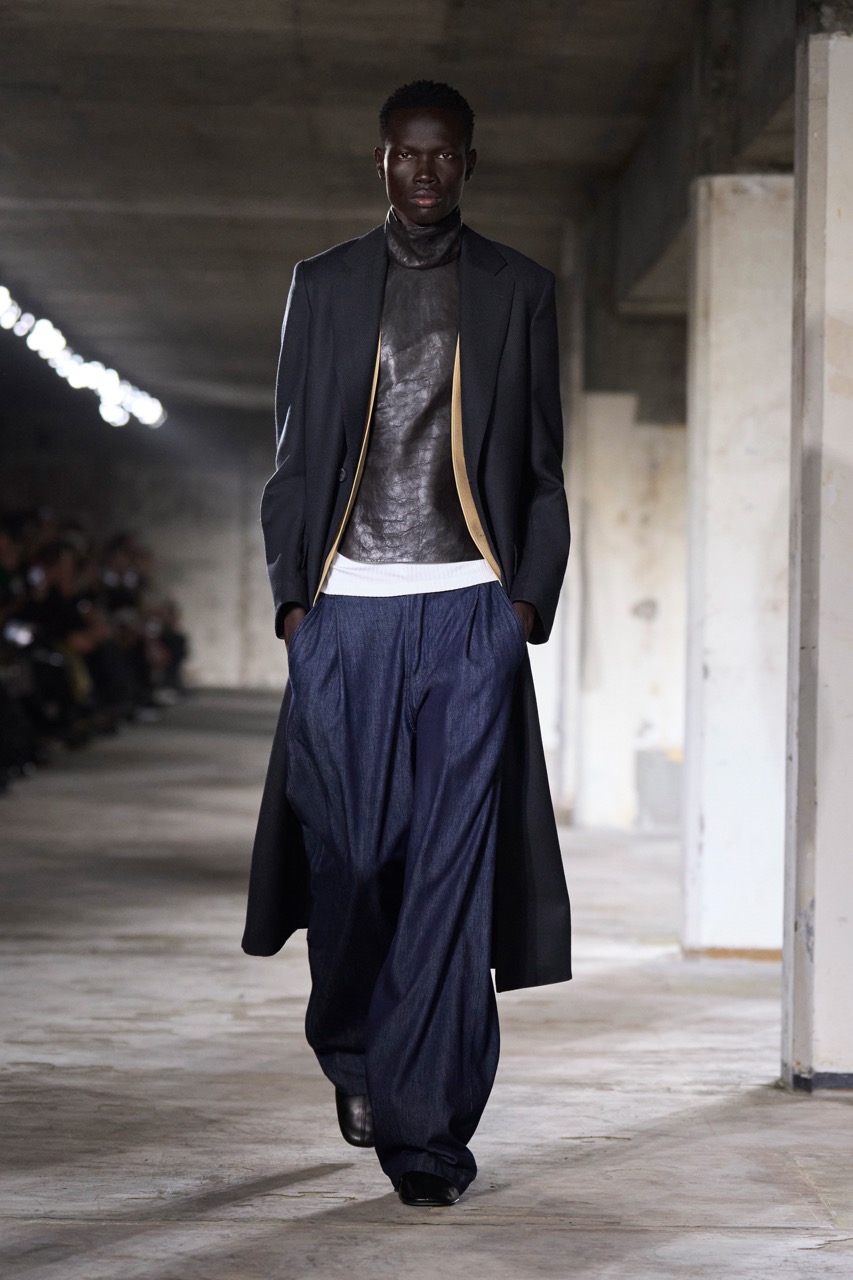
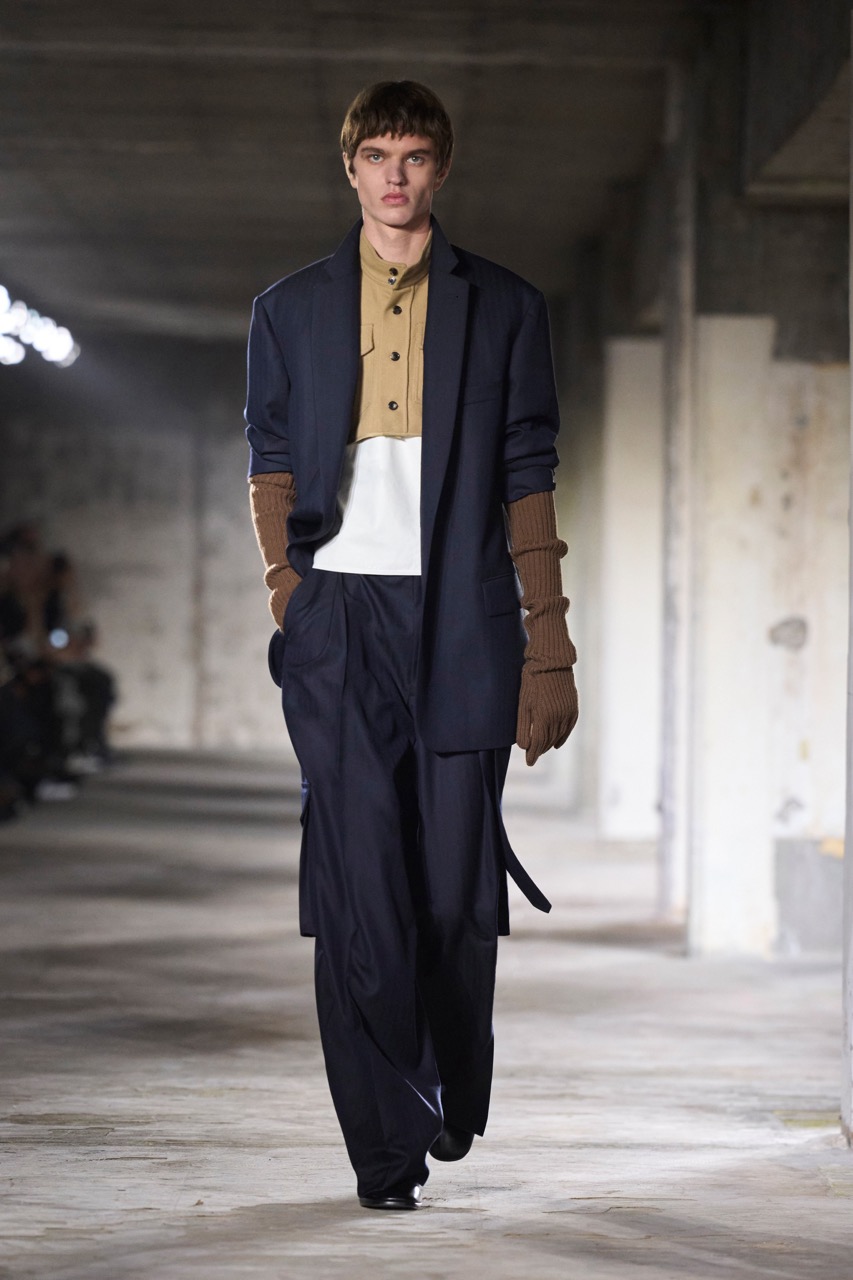
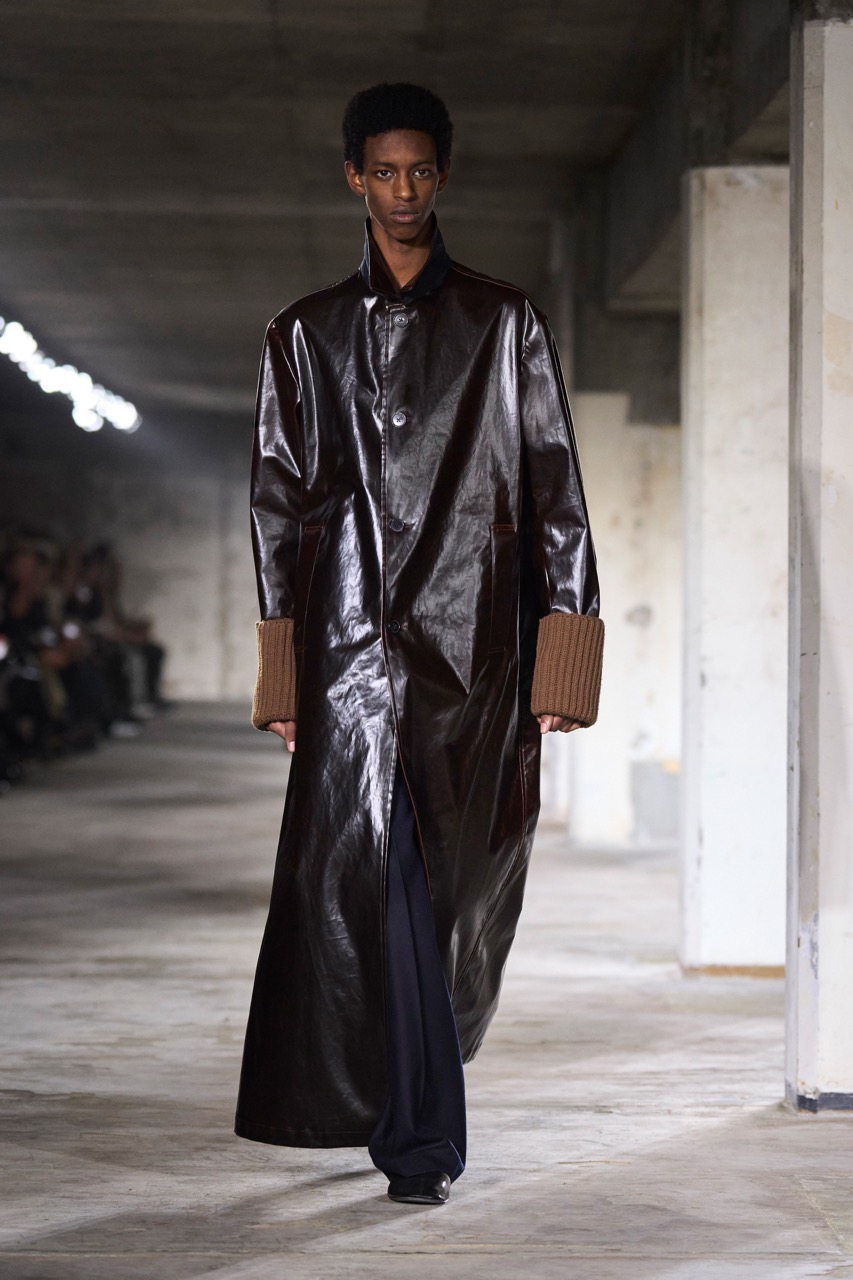
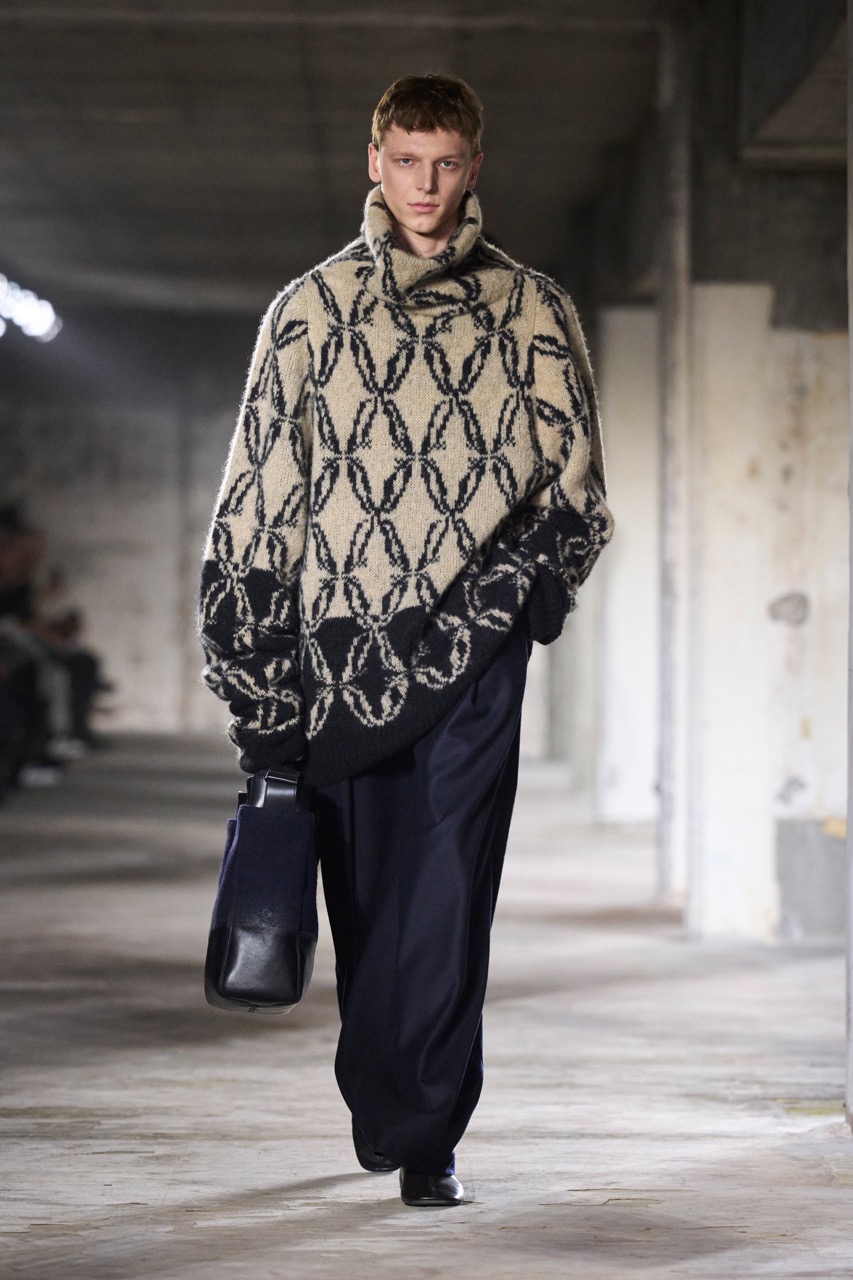
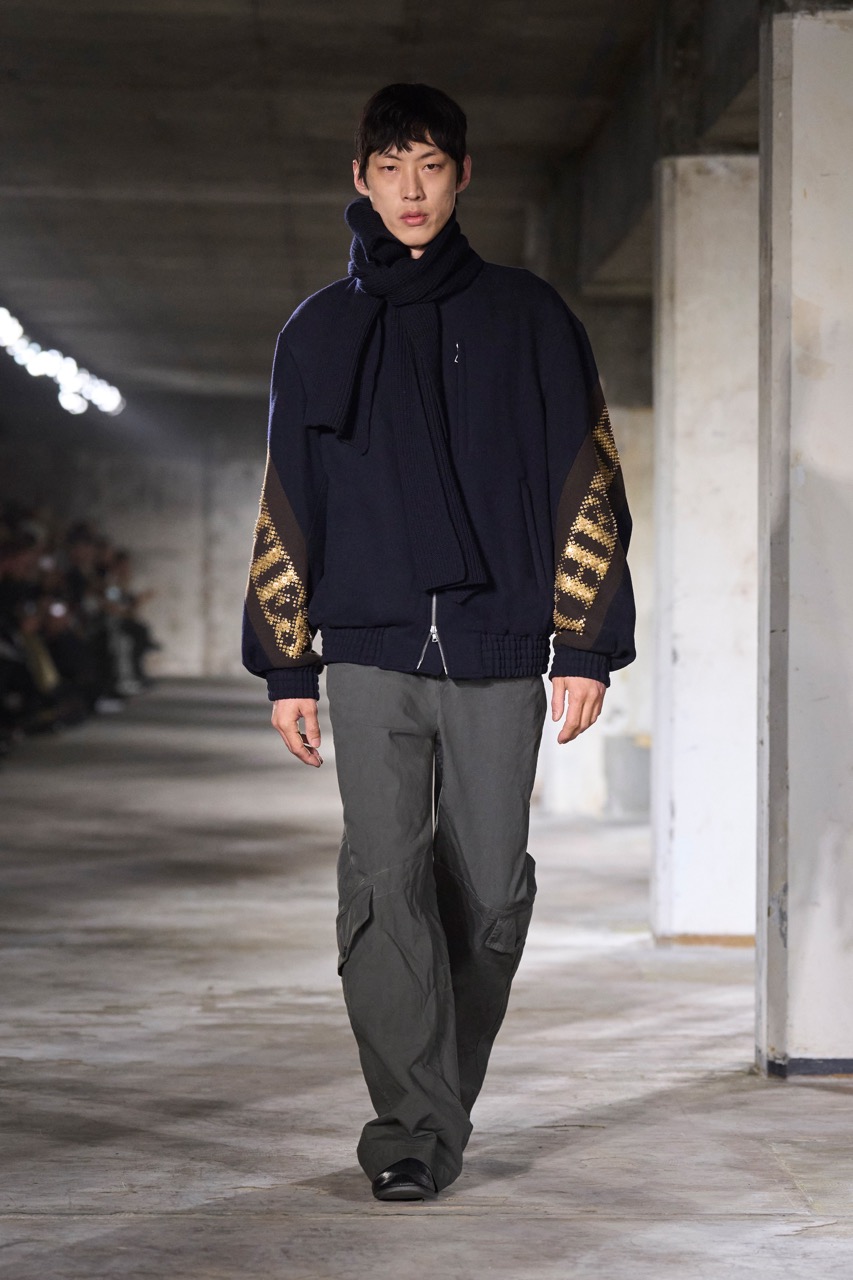
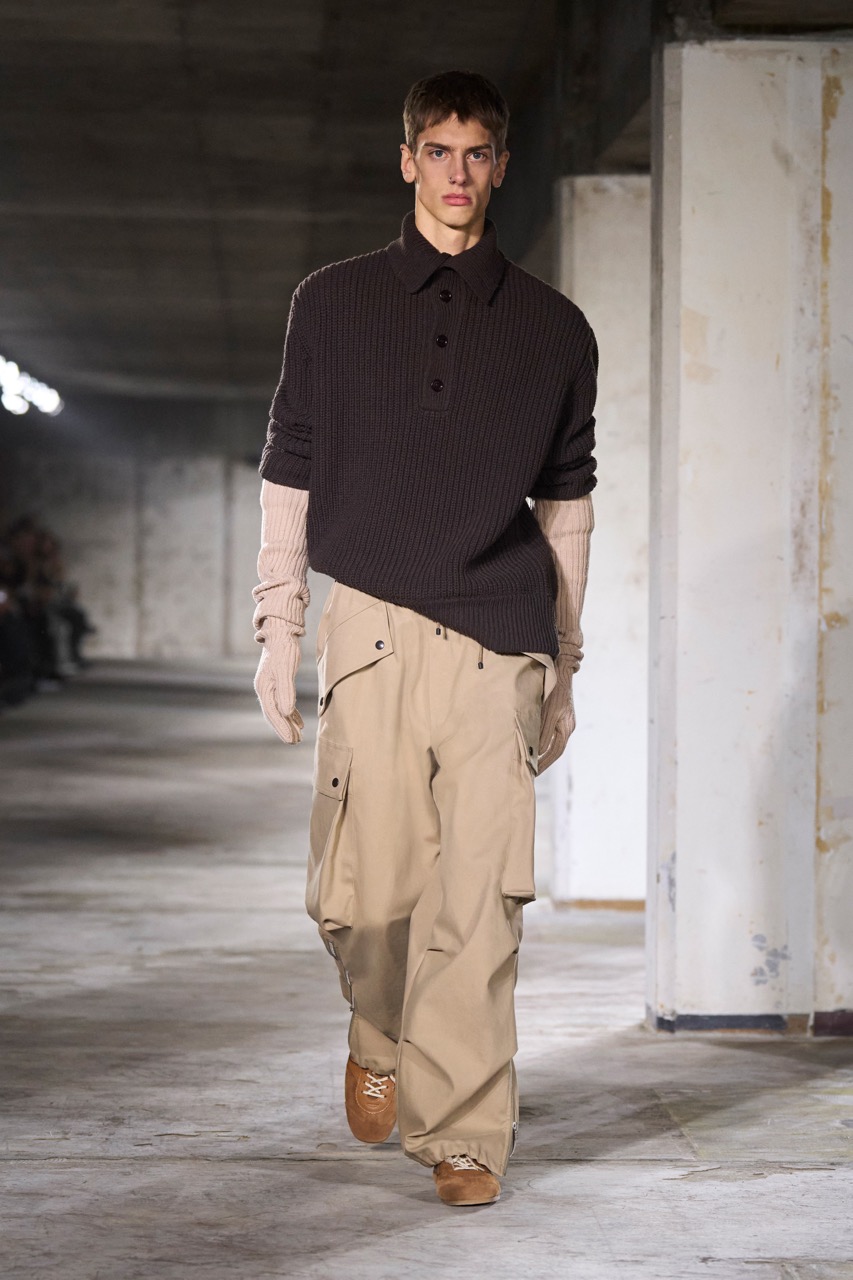
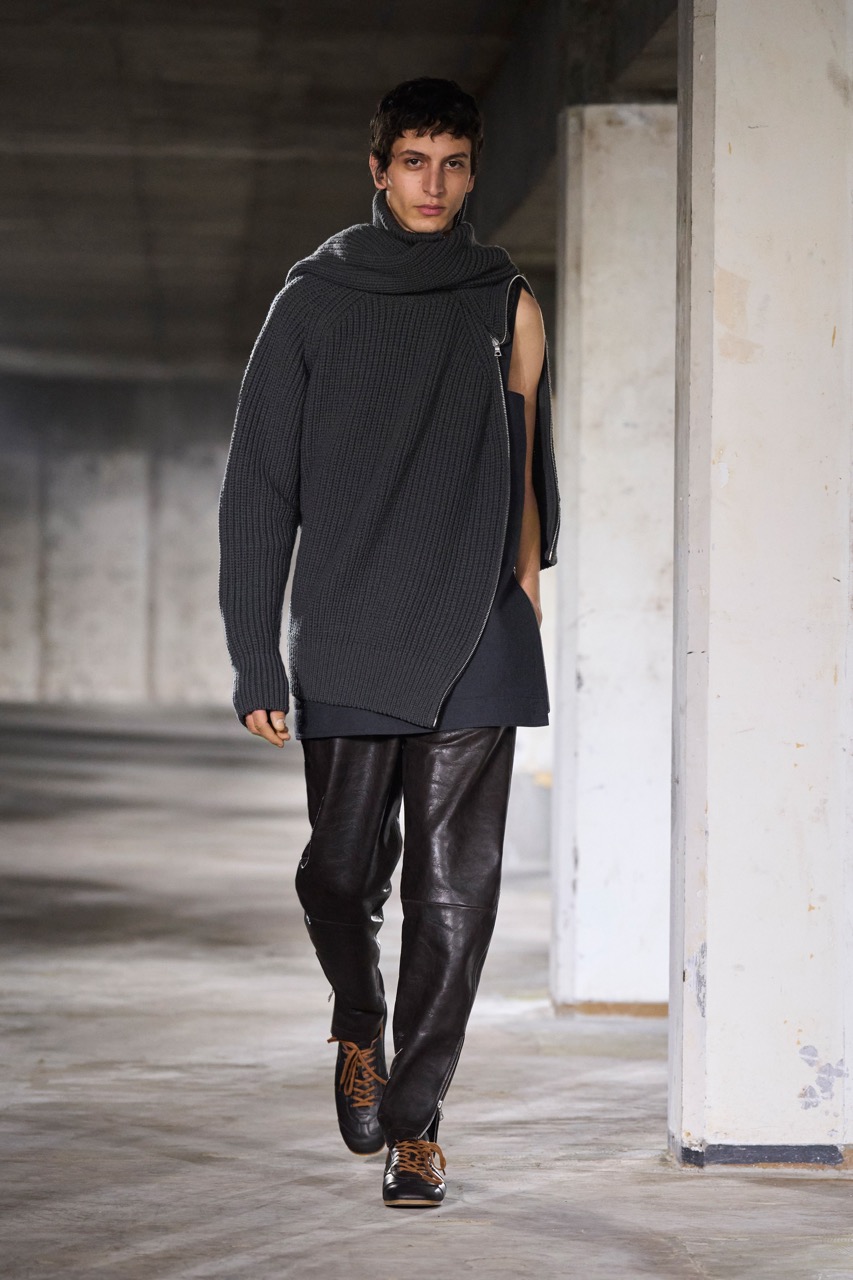
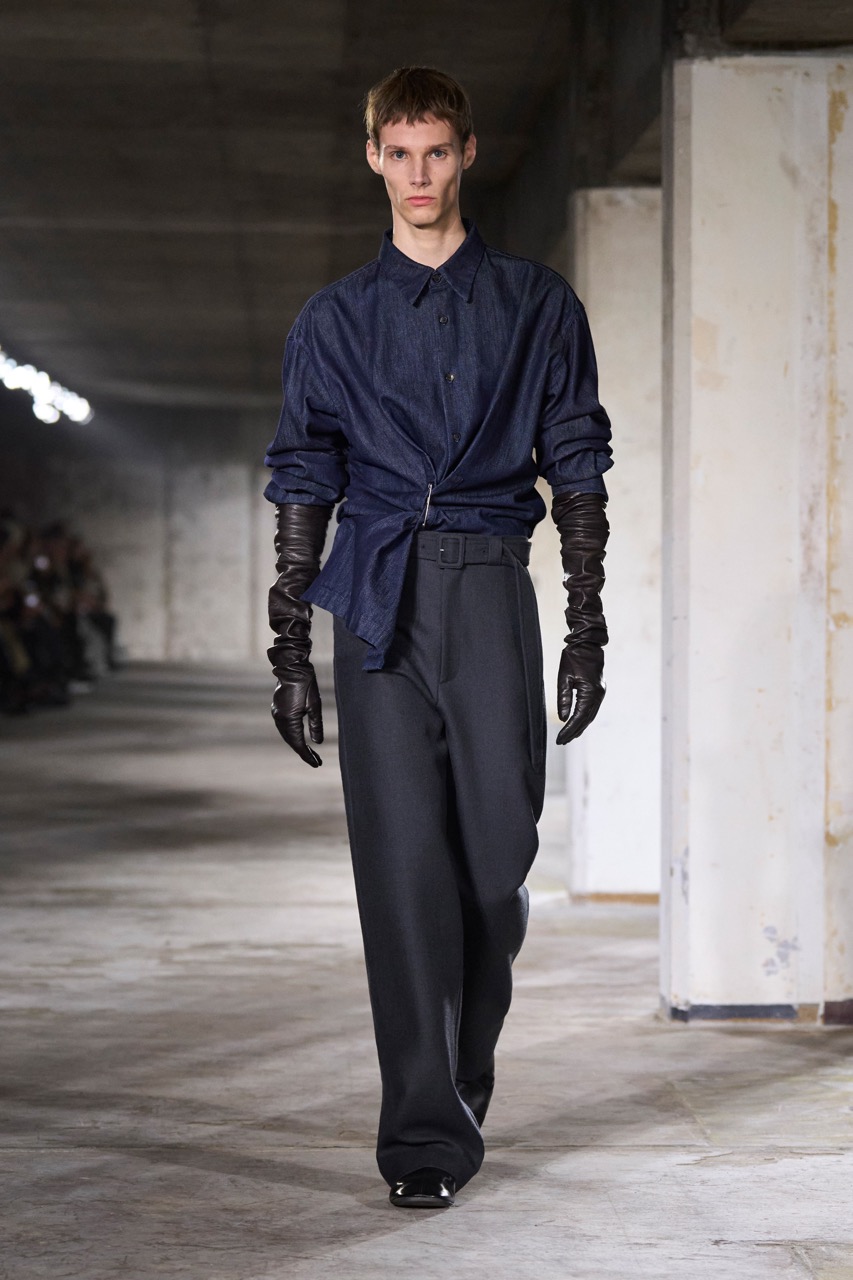
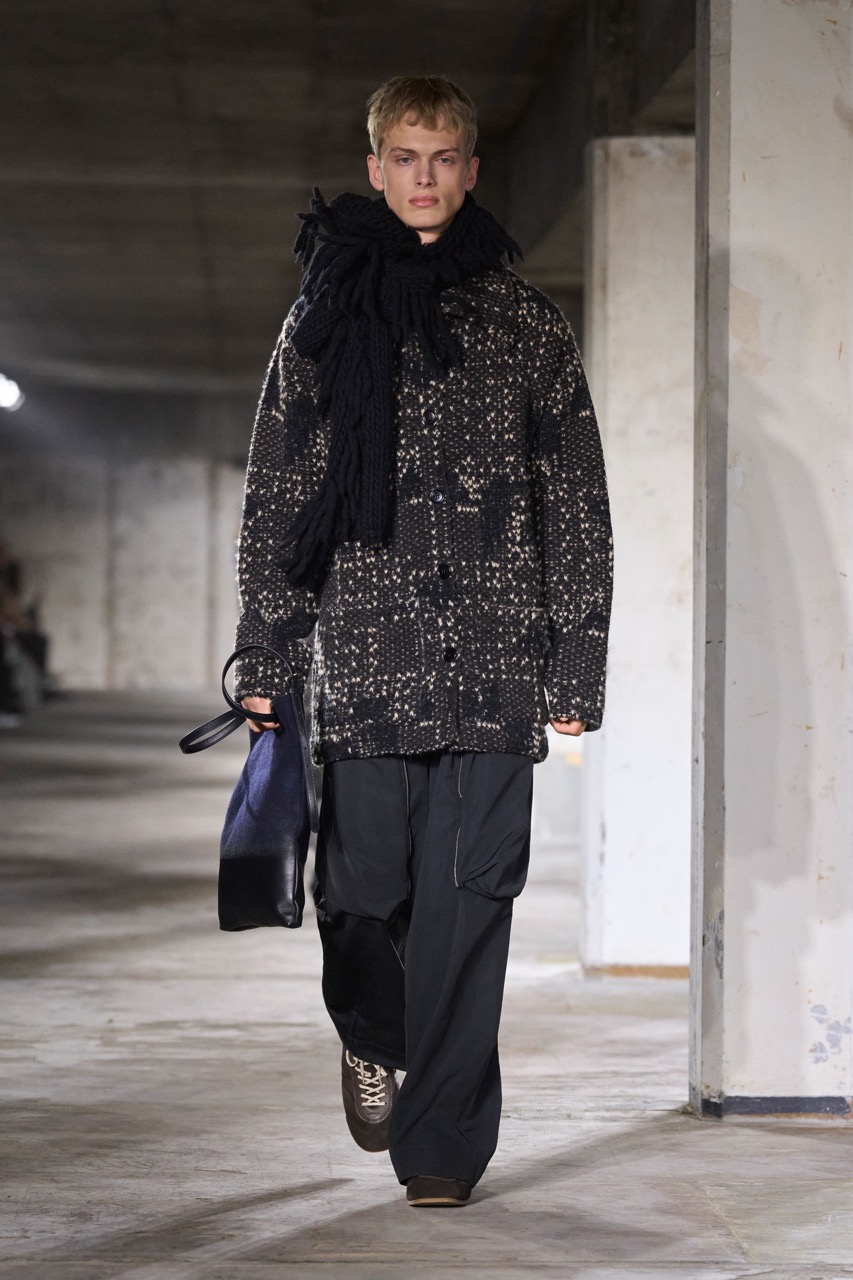
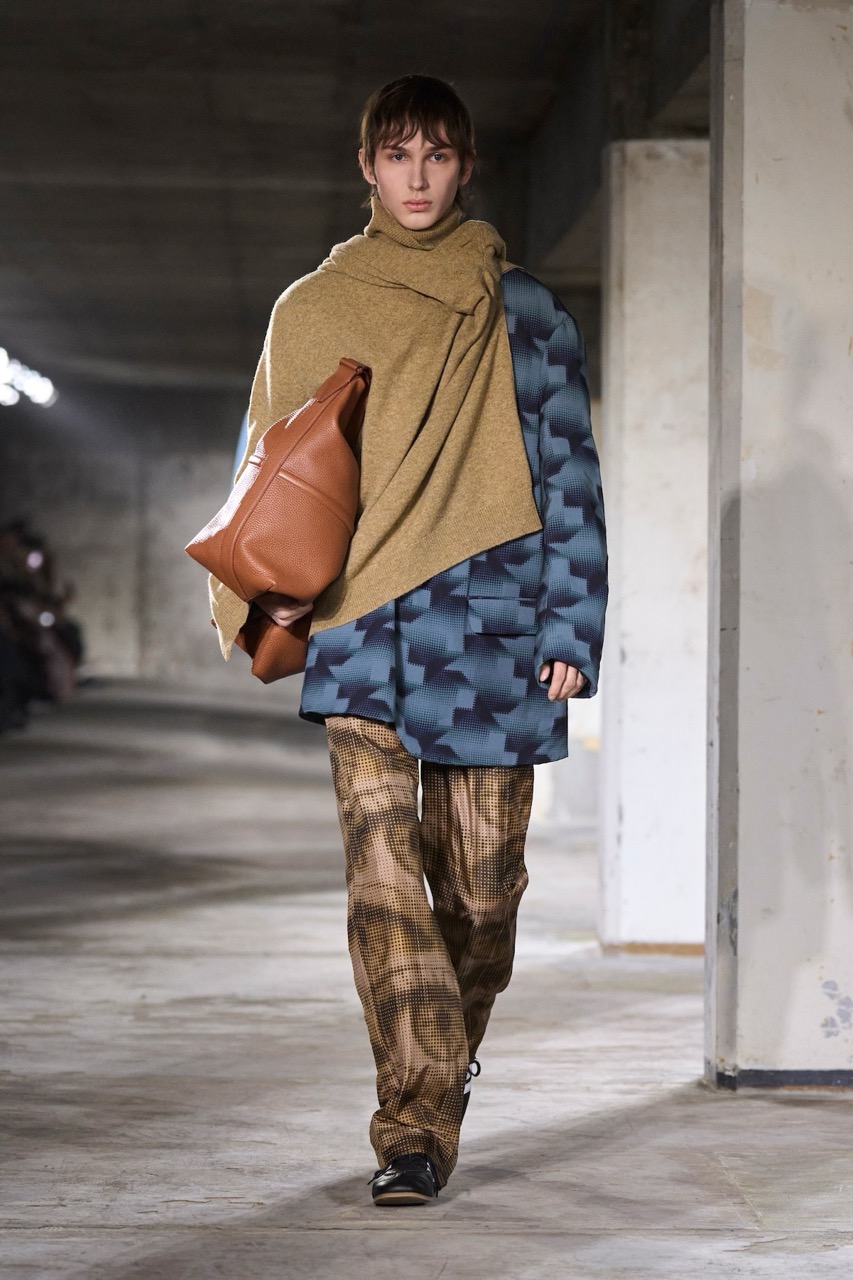
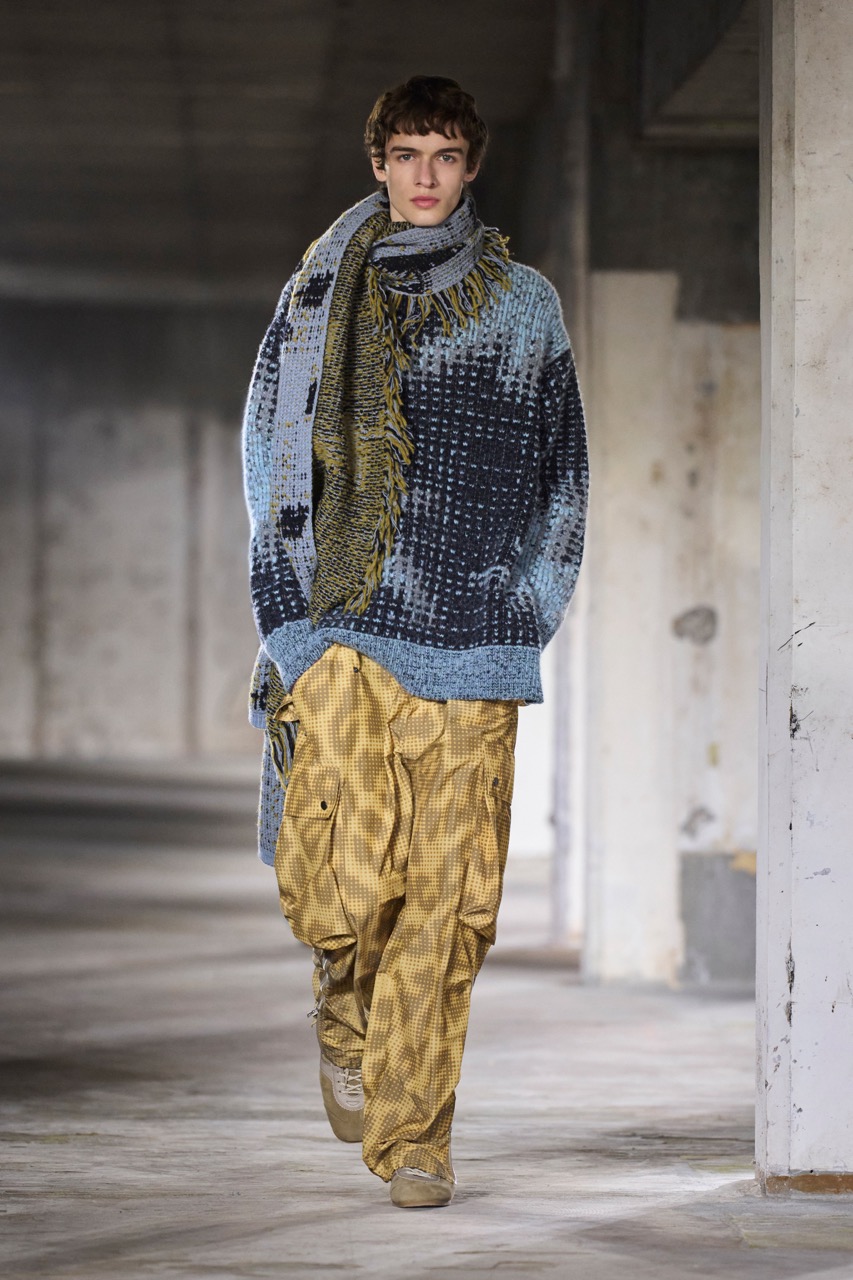
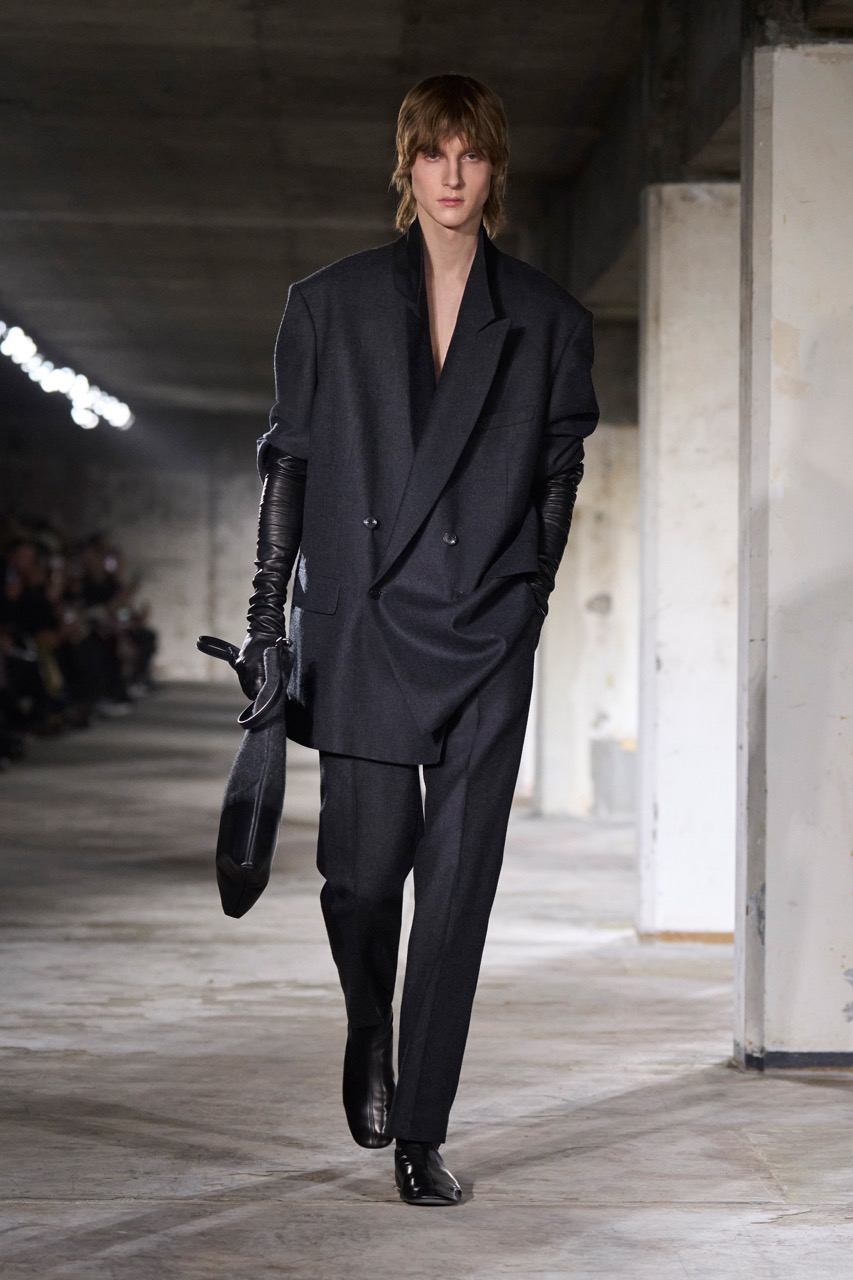
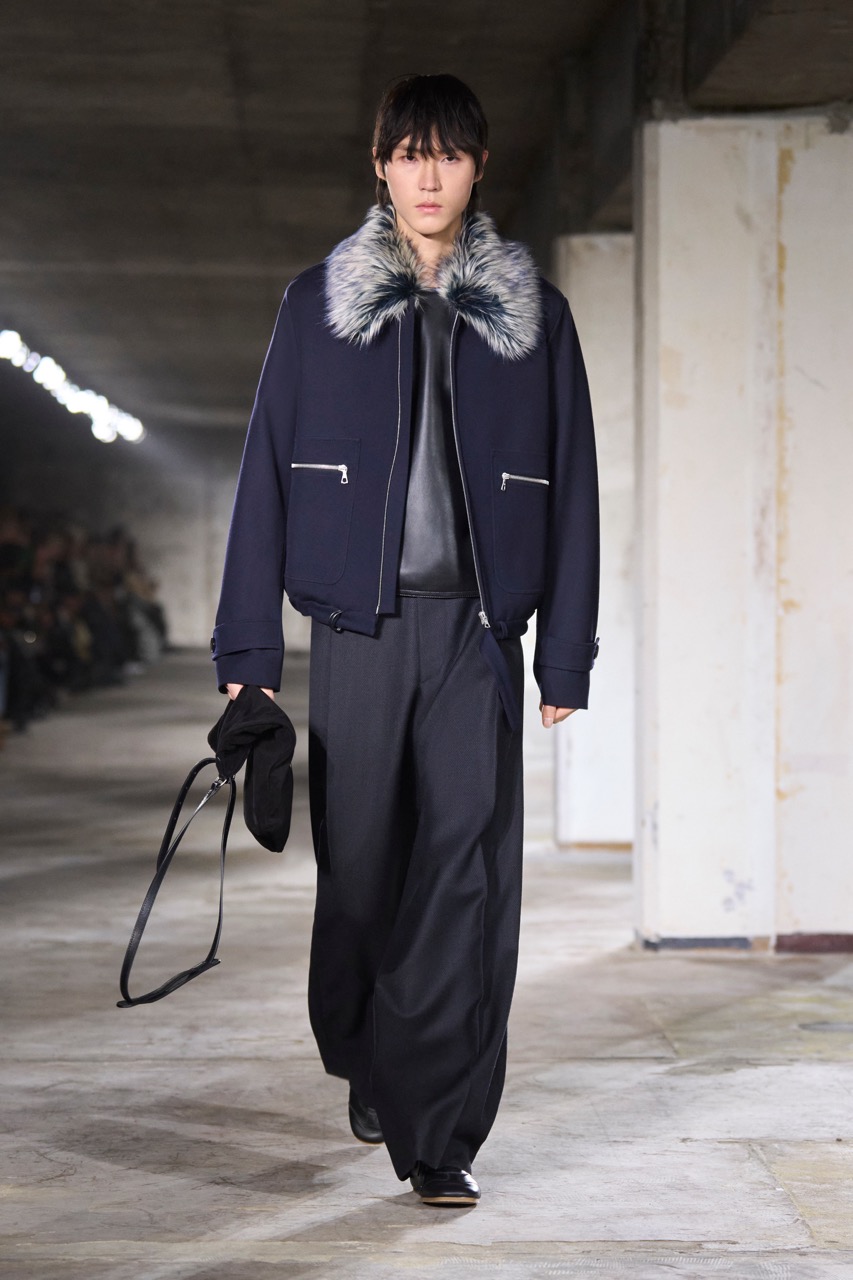
Images courtesy of Dries Van Noten
A slouchy verve that ran through Undercover’s slew of staples, and stretched to Dries Van Noten’s outing that nodded to the “elegance of the unexpected”, even though the tailoring template had no much distinction than most of its peers. Staples had definitely a classical rigor about them, but if made for a complete wardrobe. There was delicacy in the balance of the crisp suiting and functional separates, but the most (if we must name it) “encouraging” aspect of the collection might have been a poised layering with a tongue-in-cheek volume play as a result.
Loewe
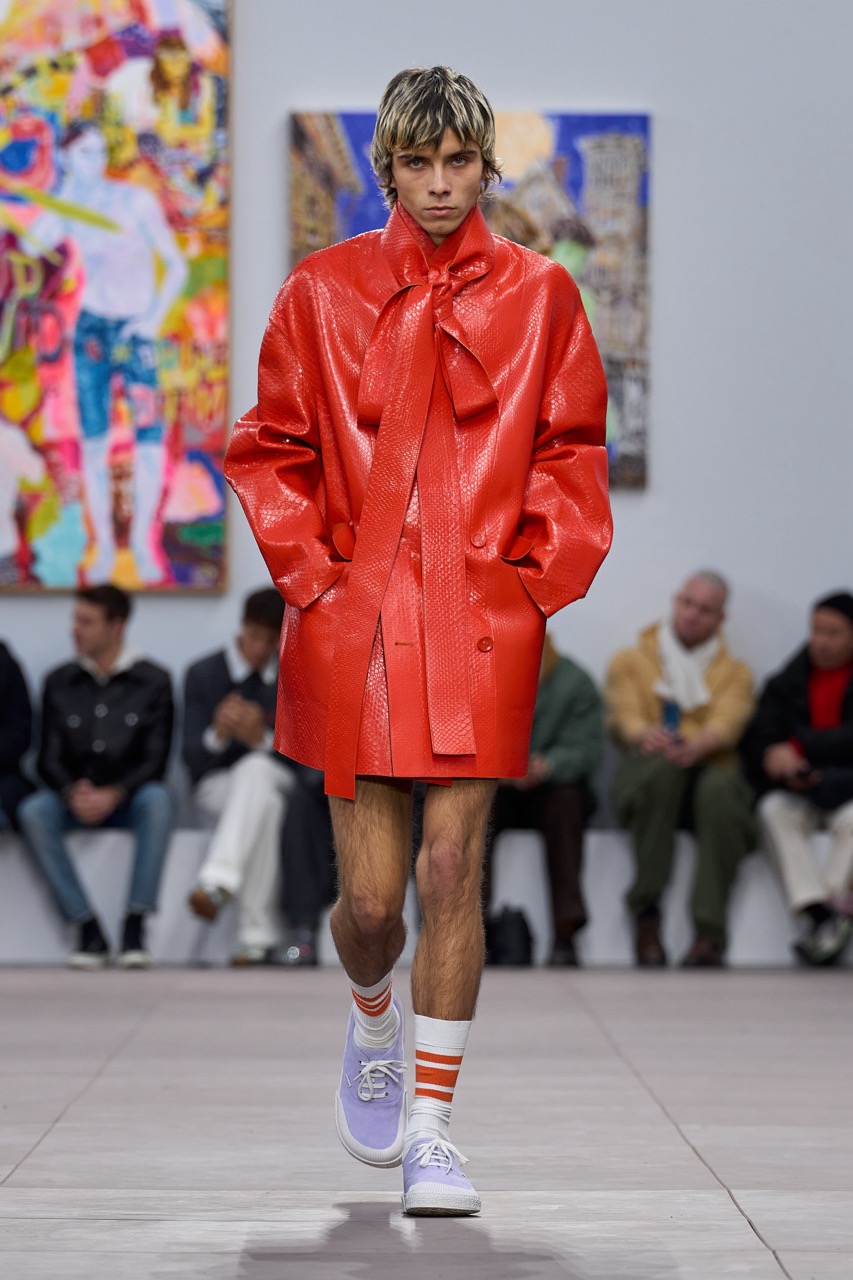
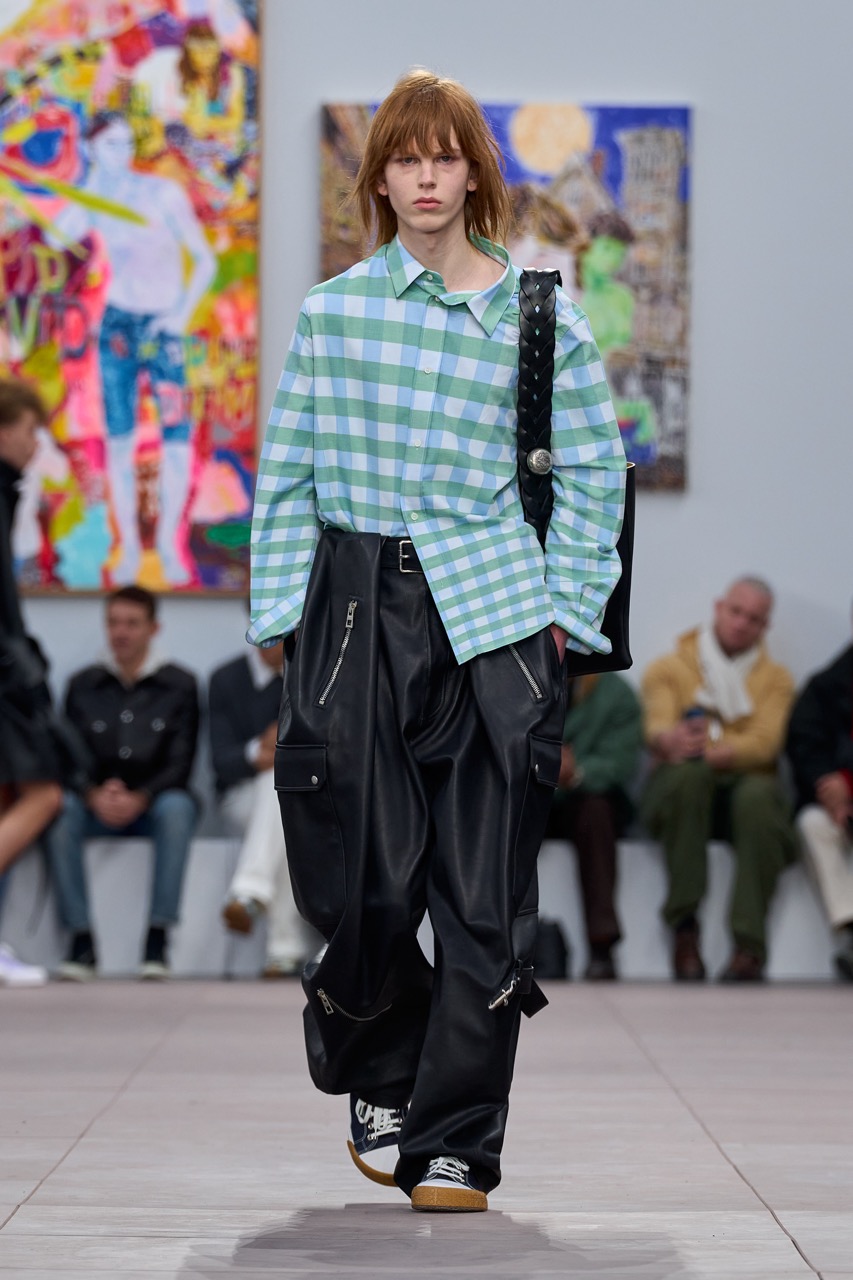
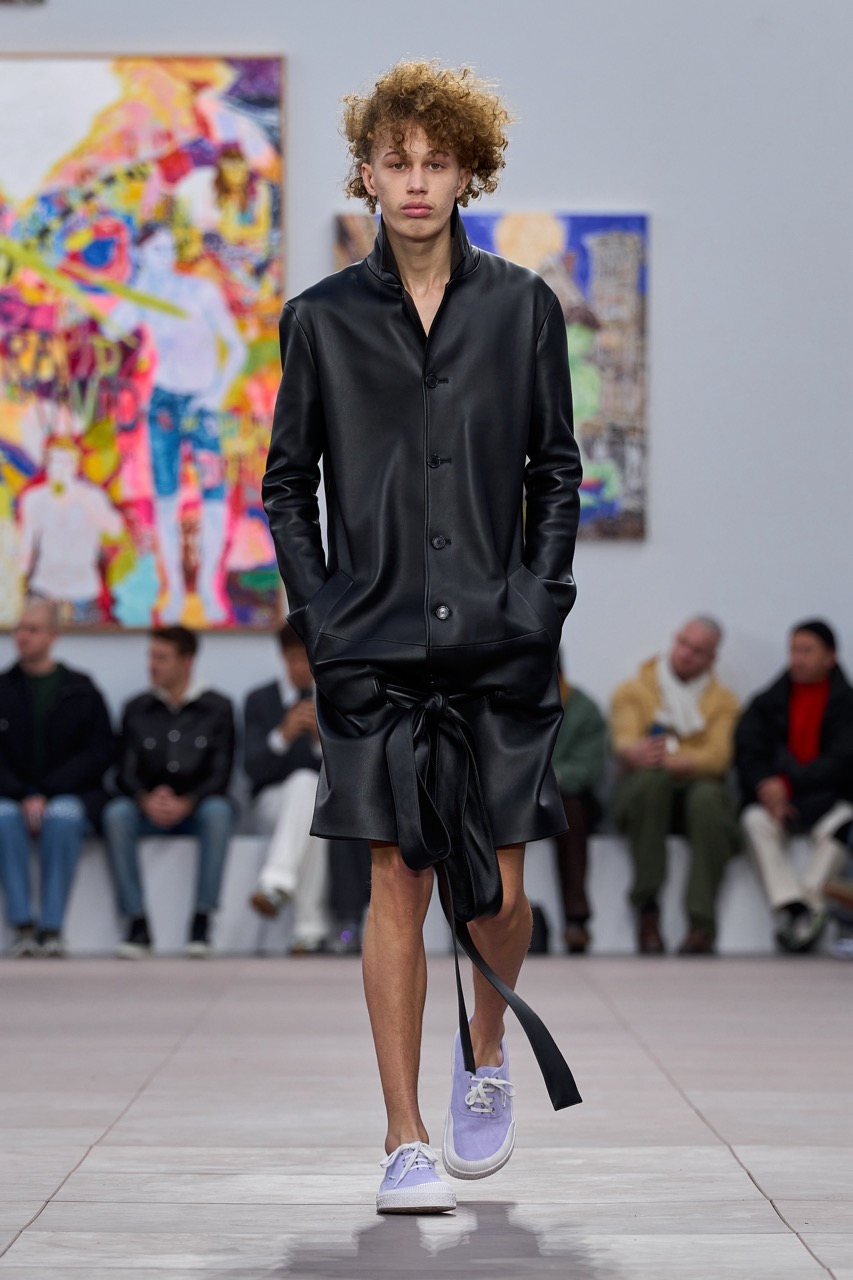
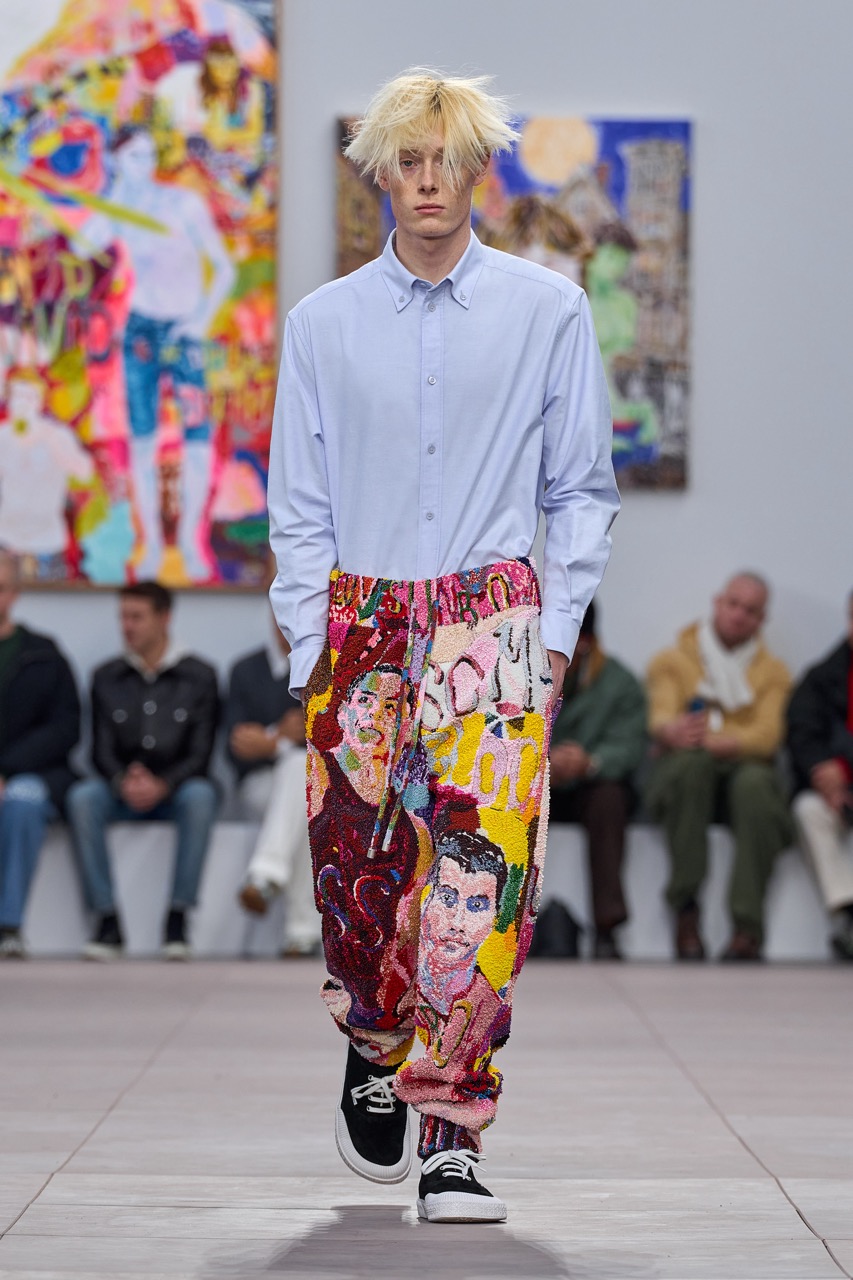
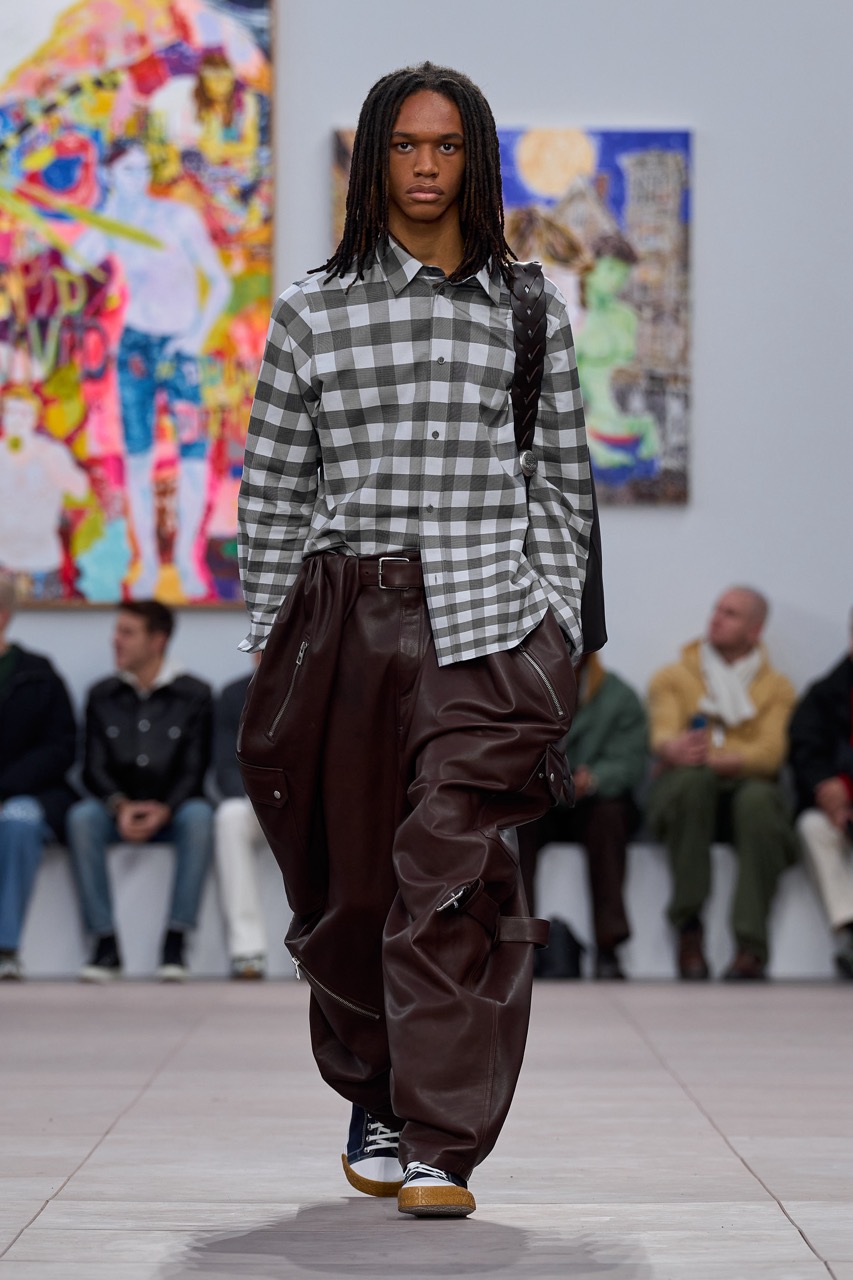
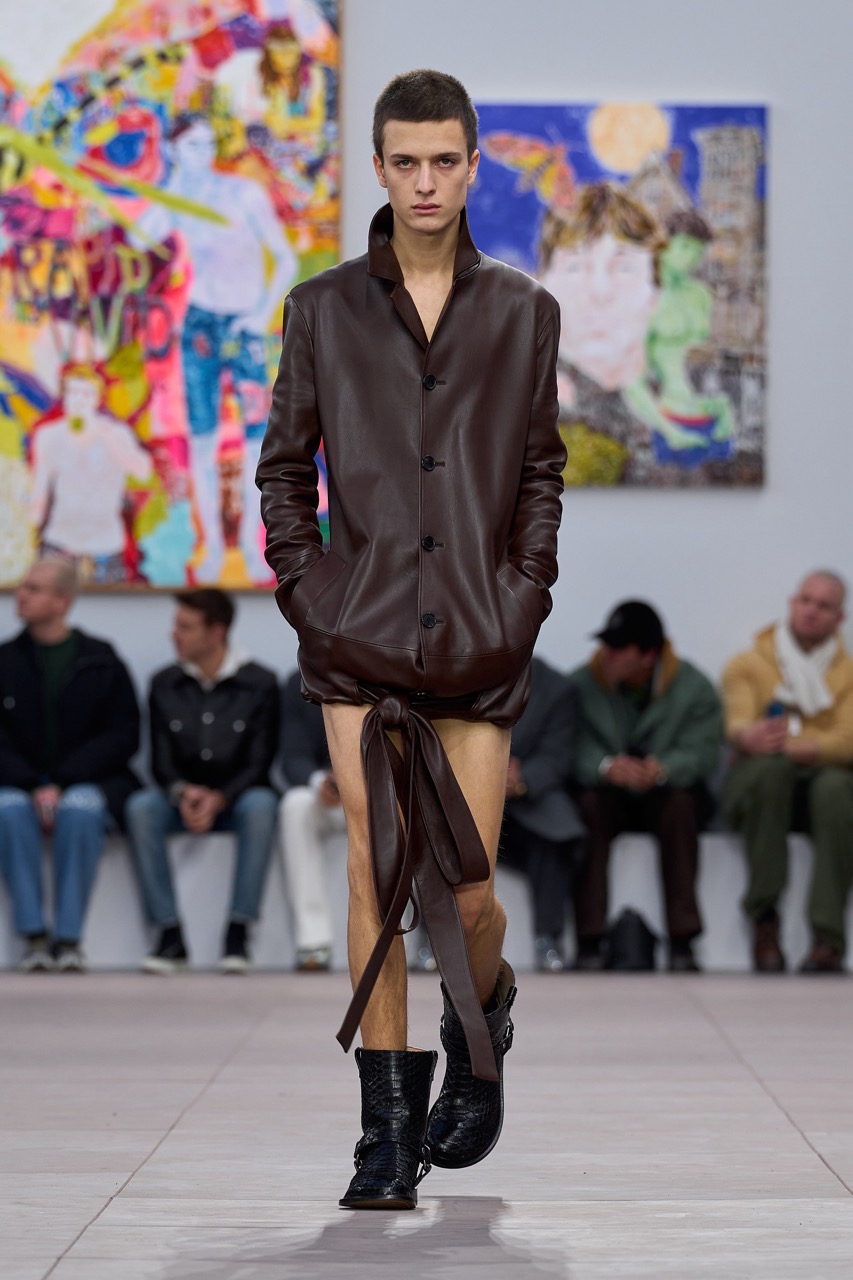
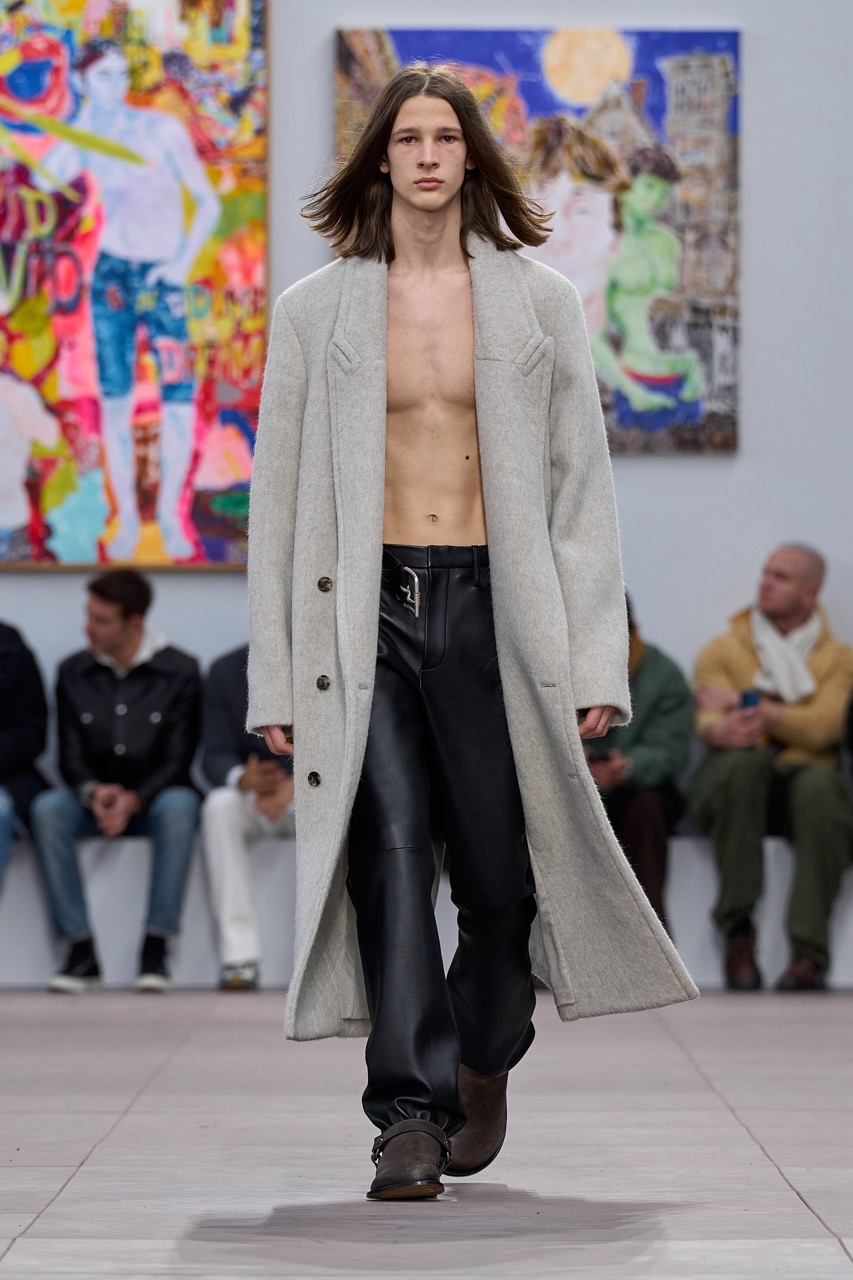
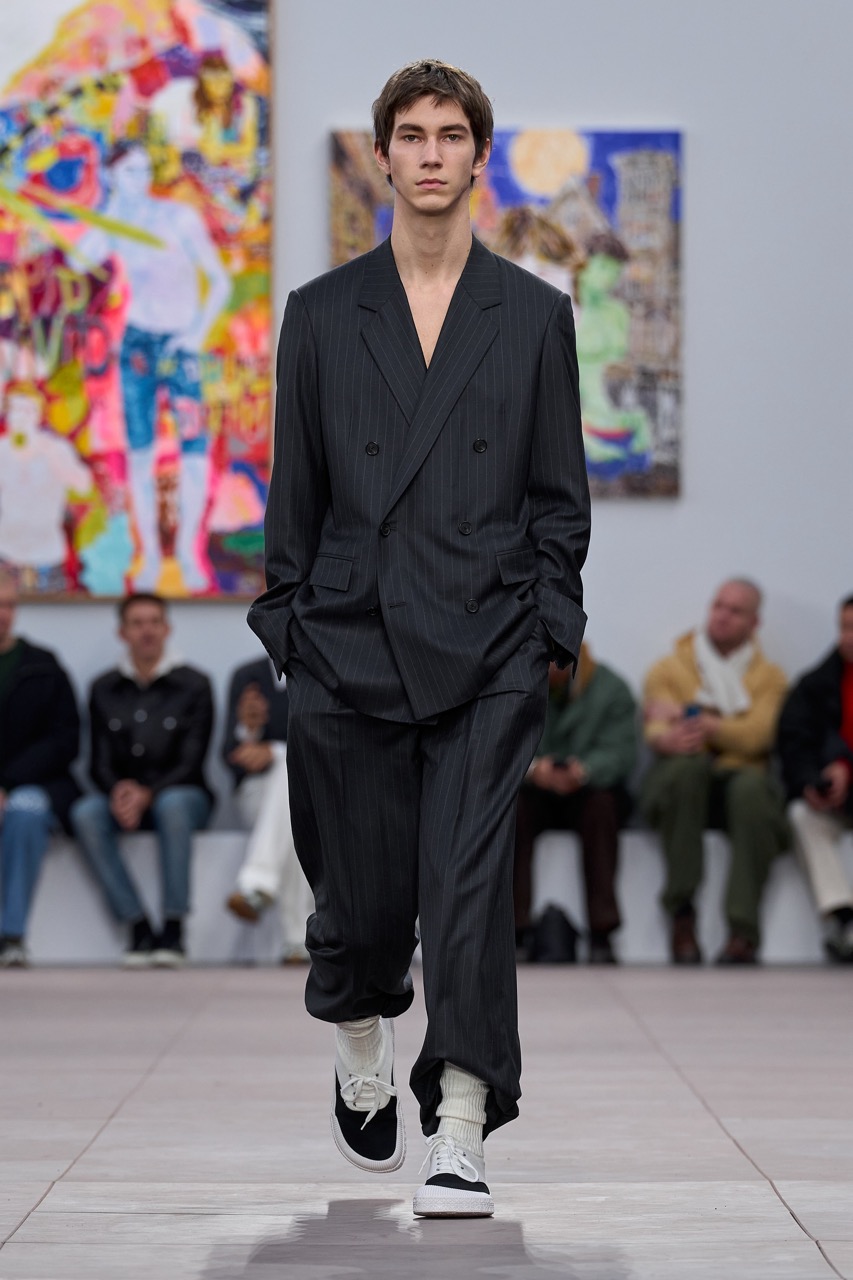
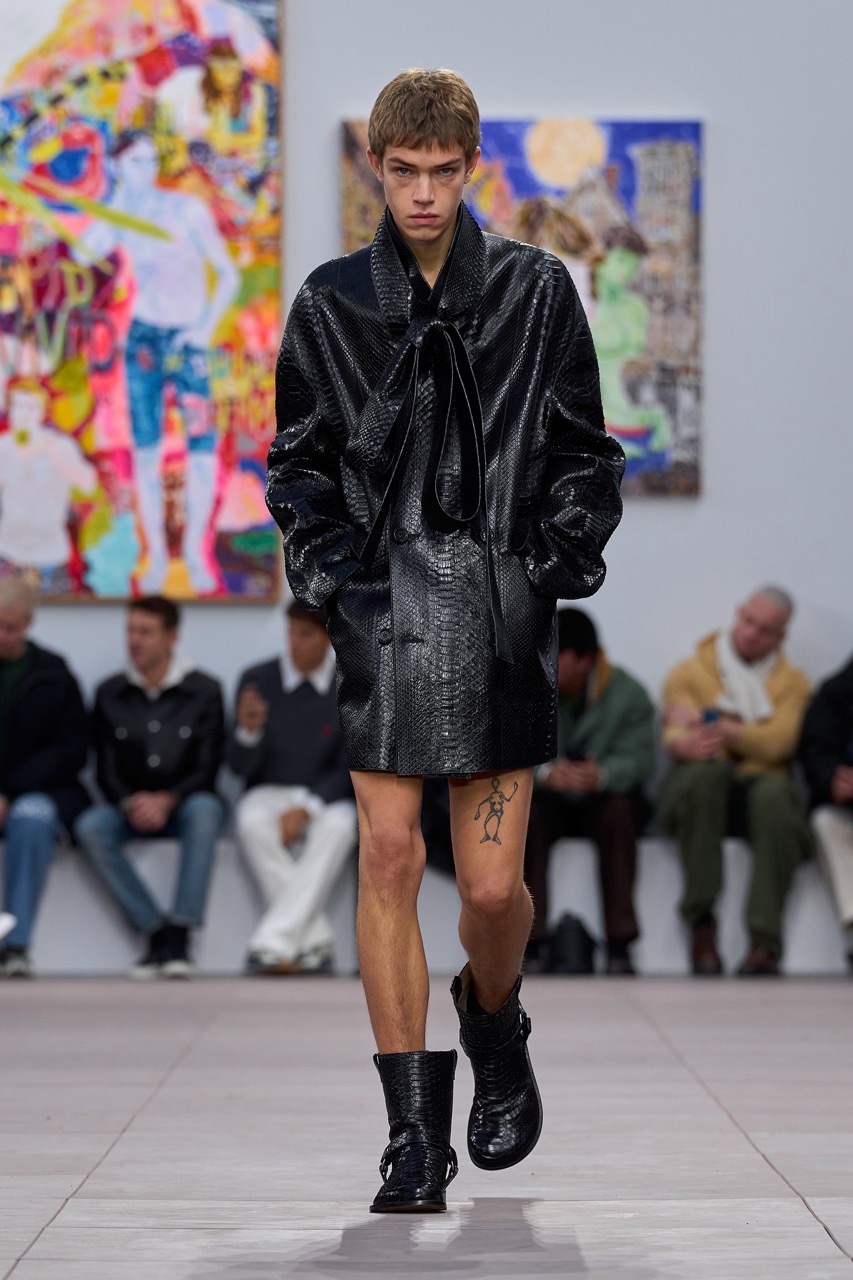
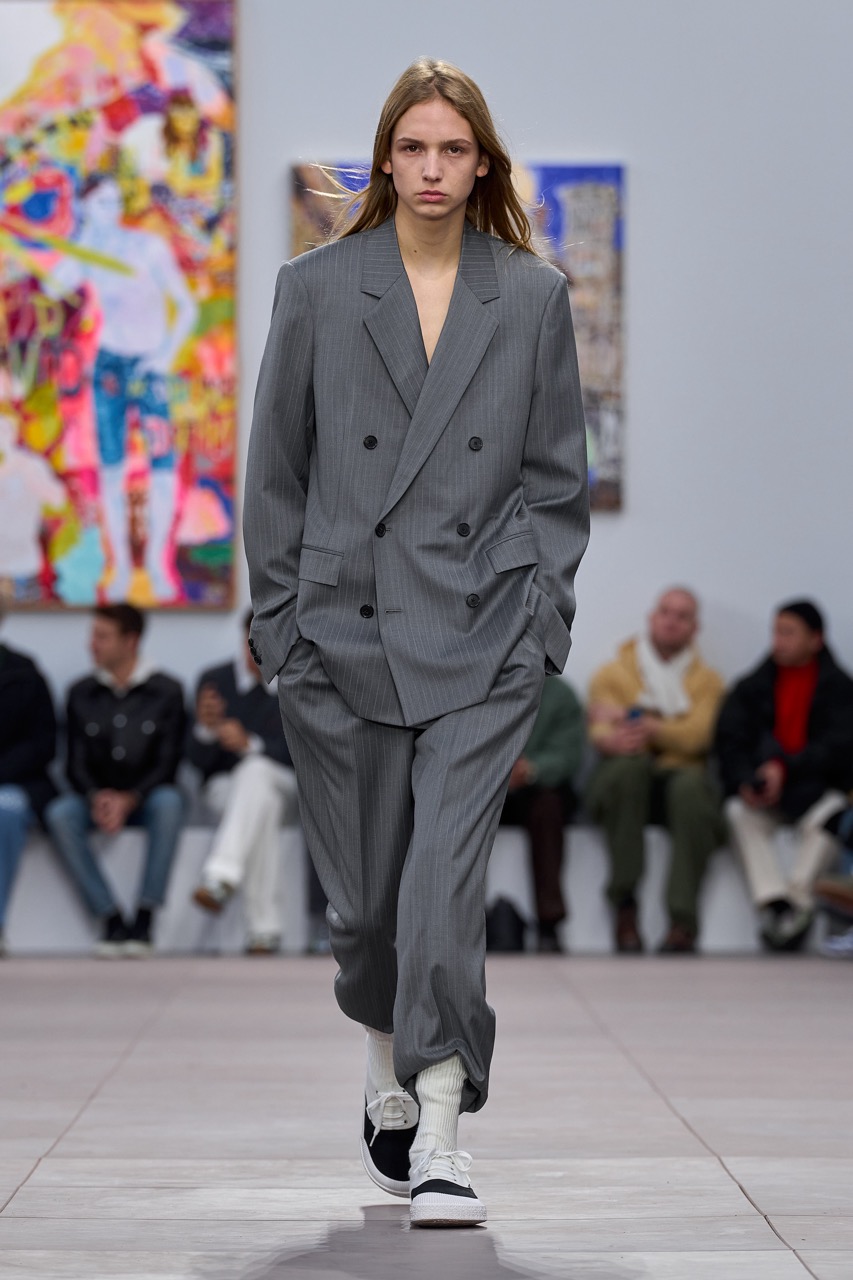
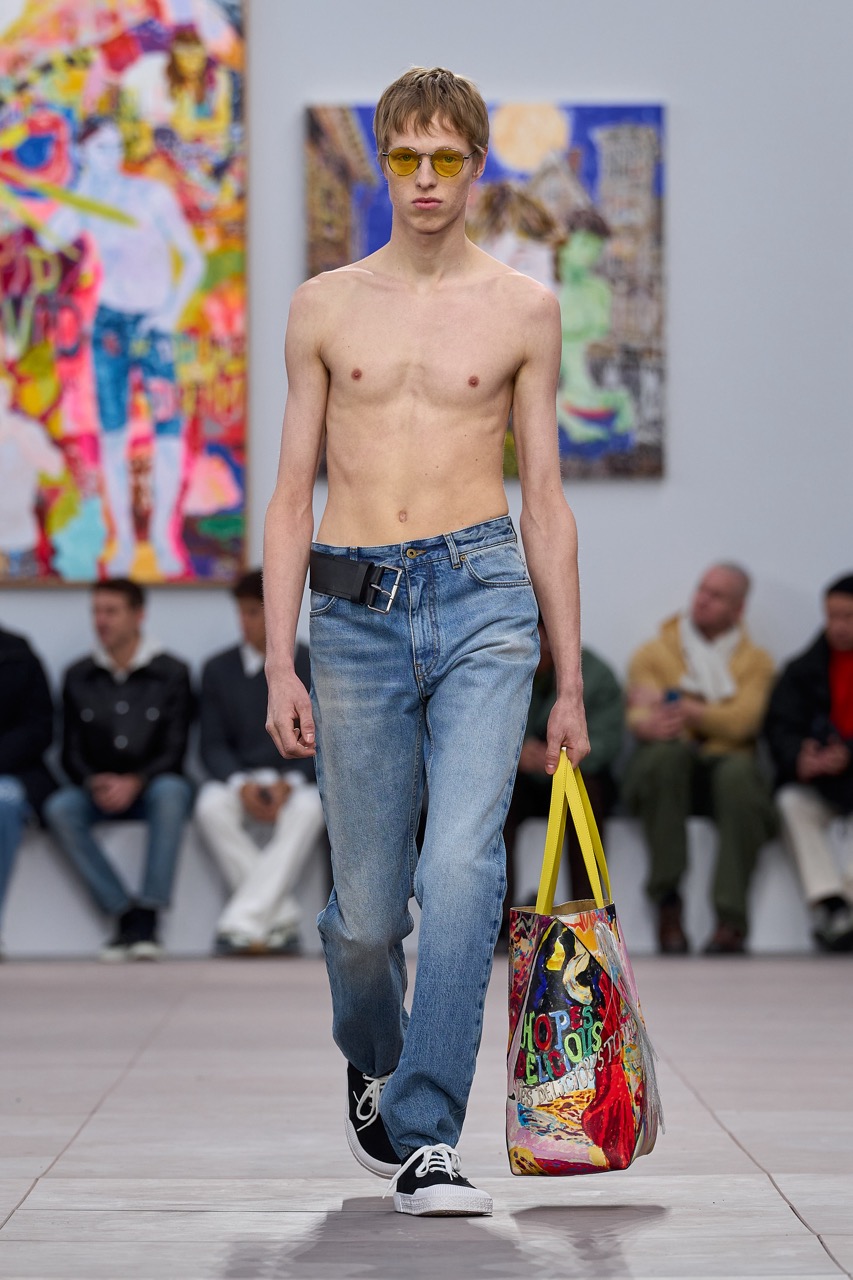
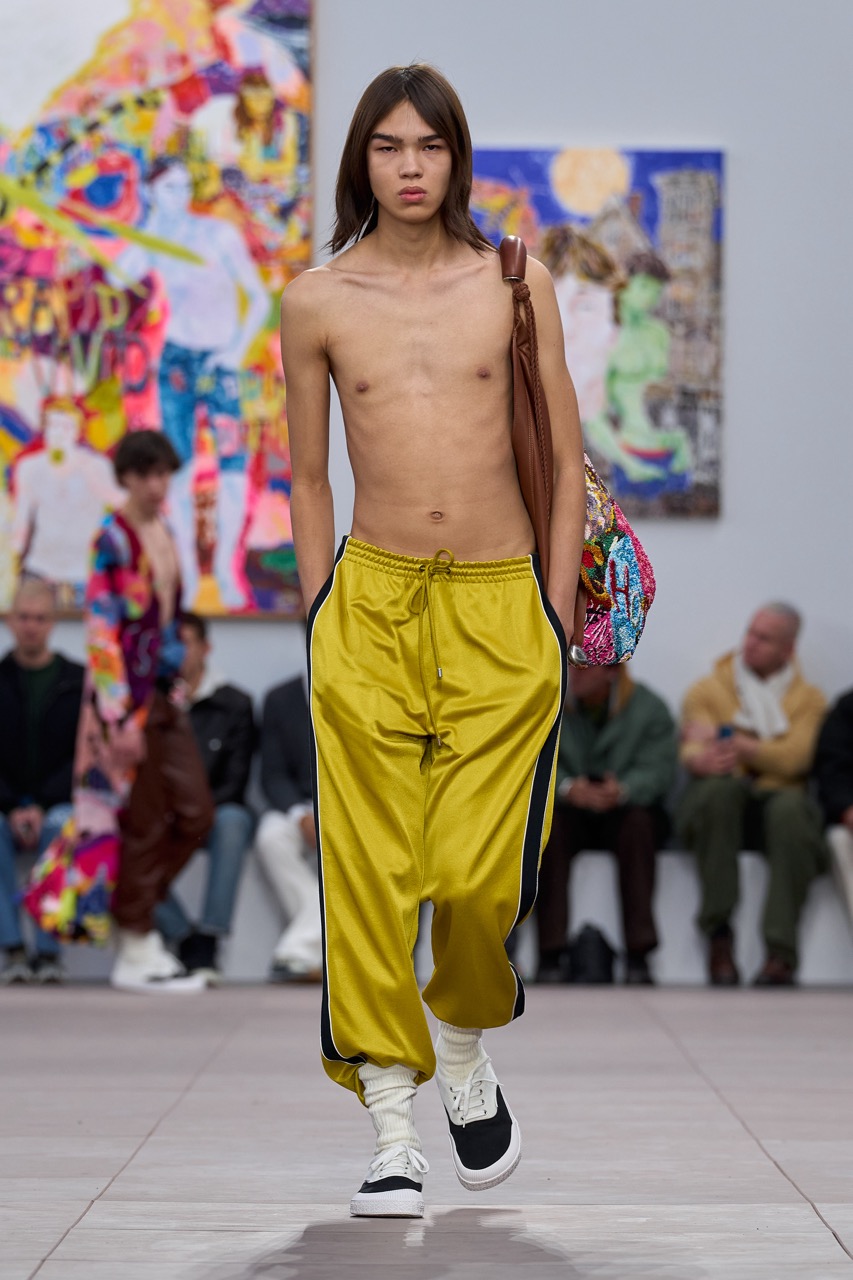

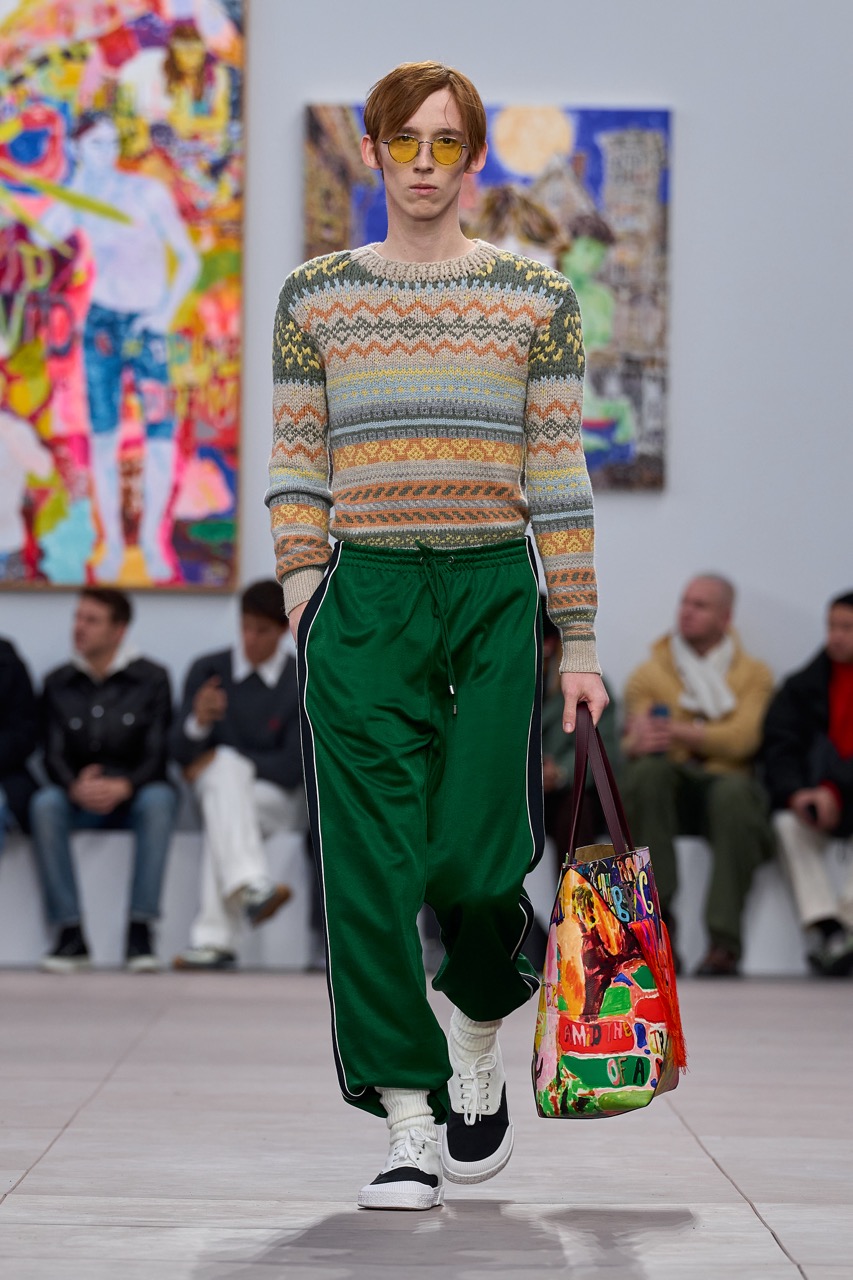
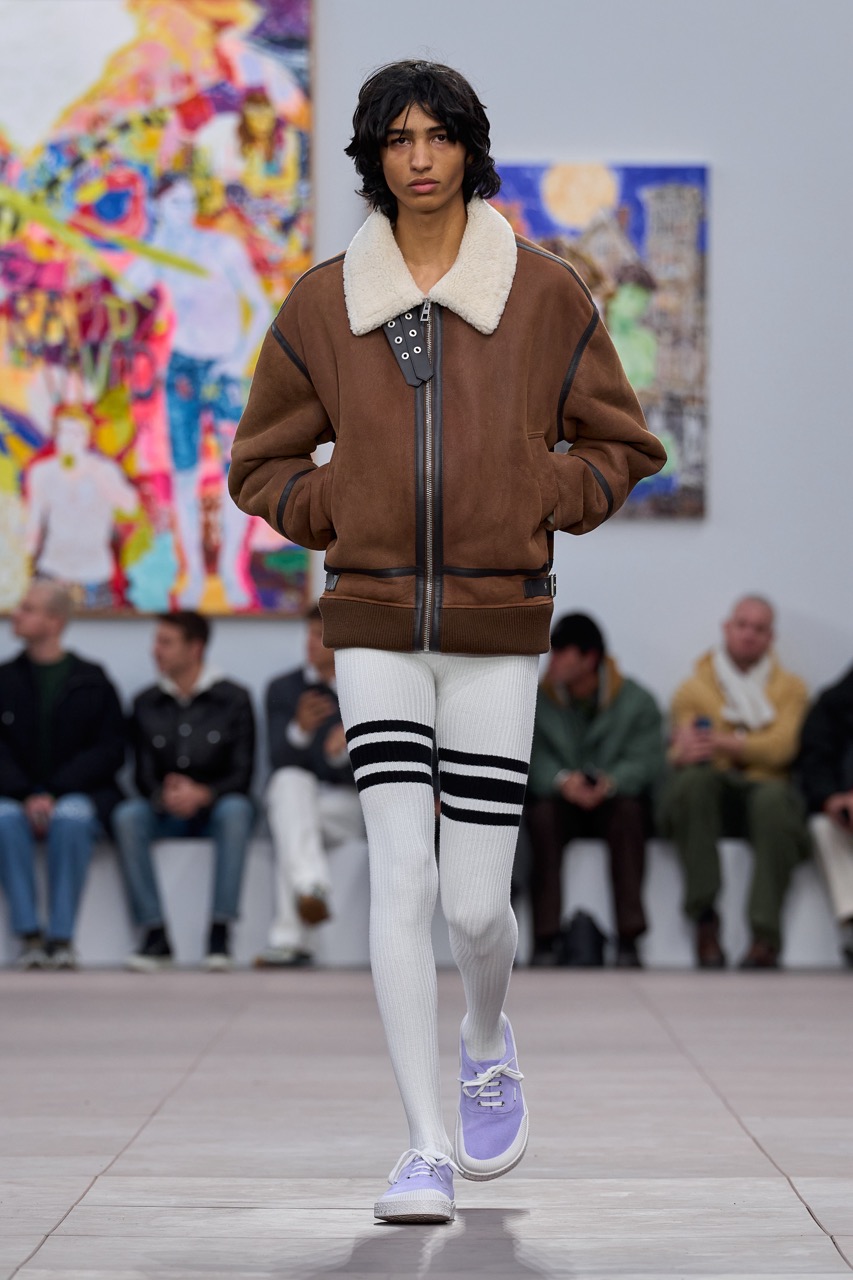
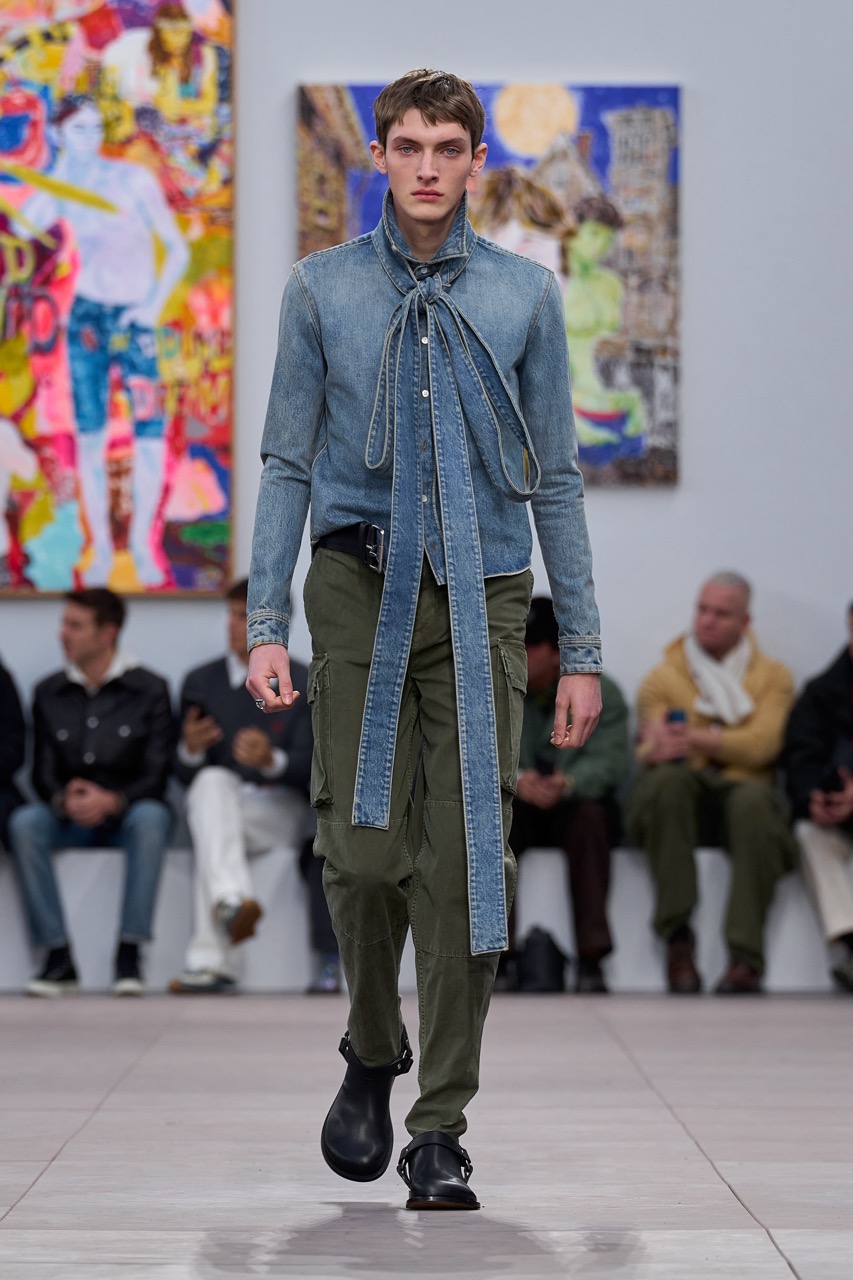
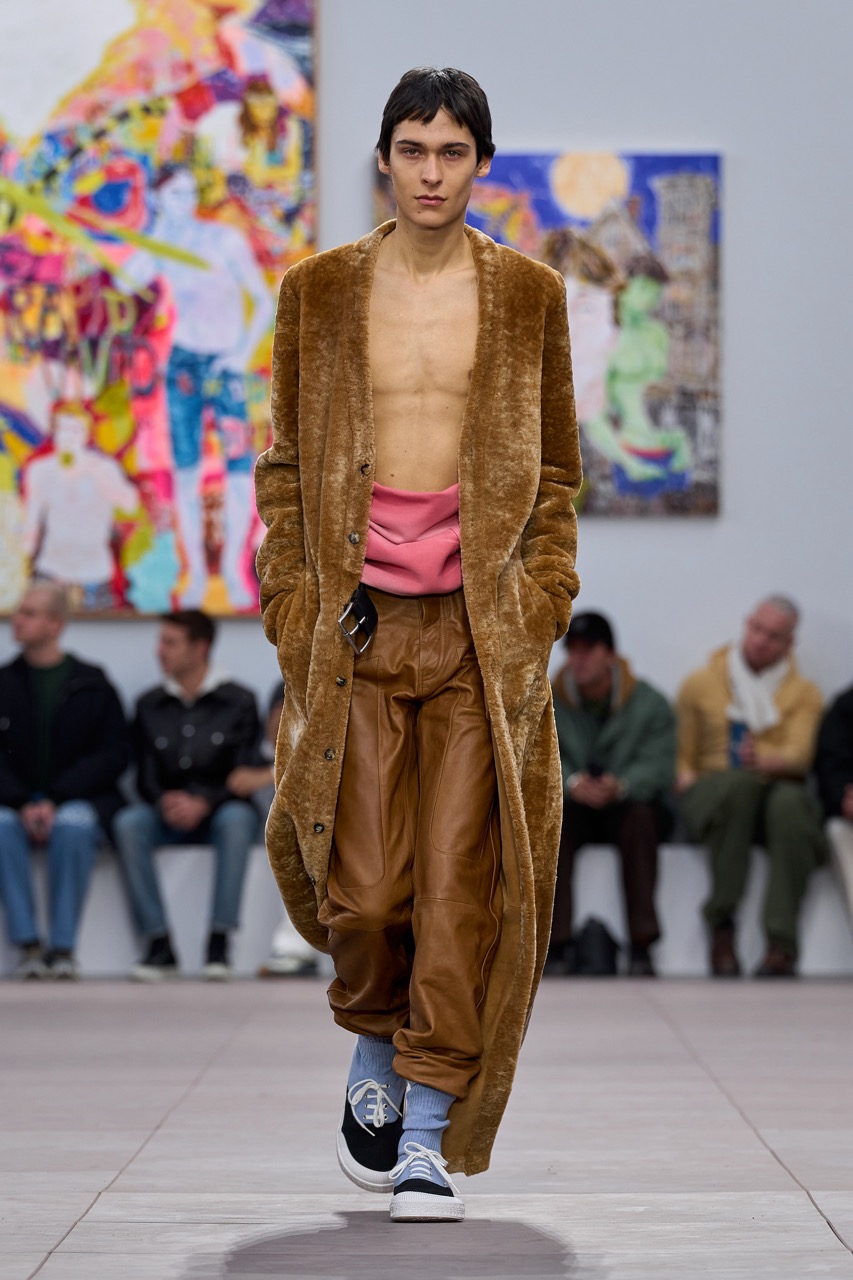
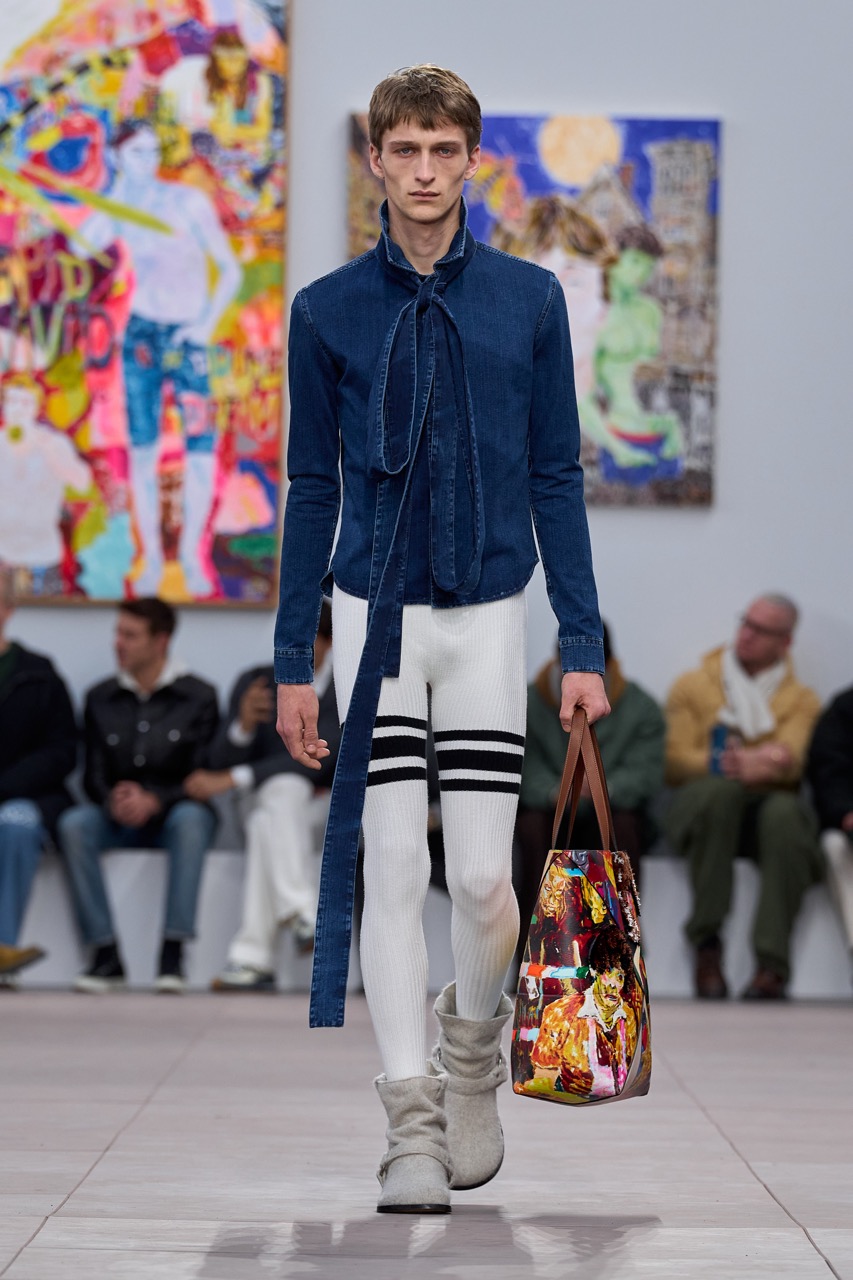
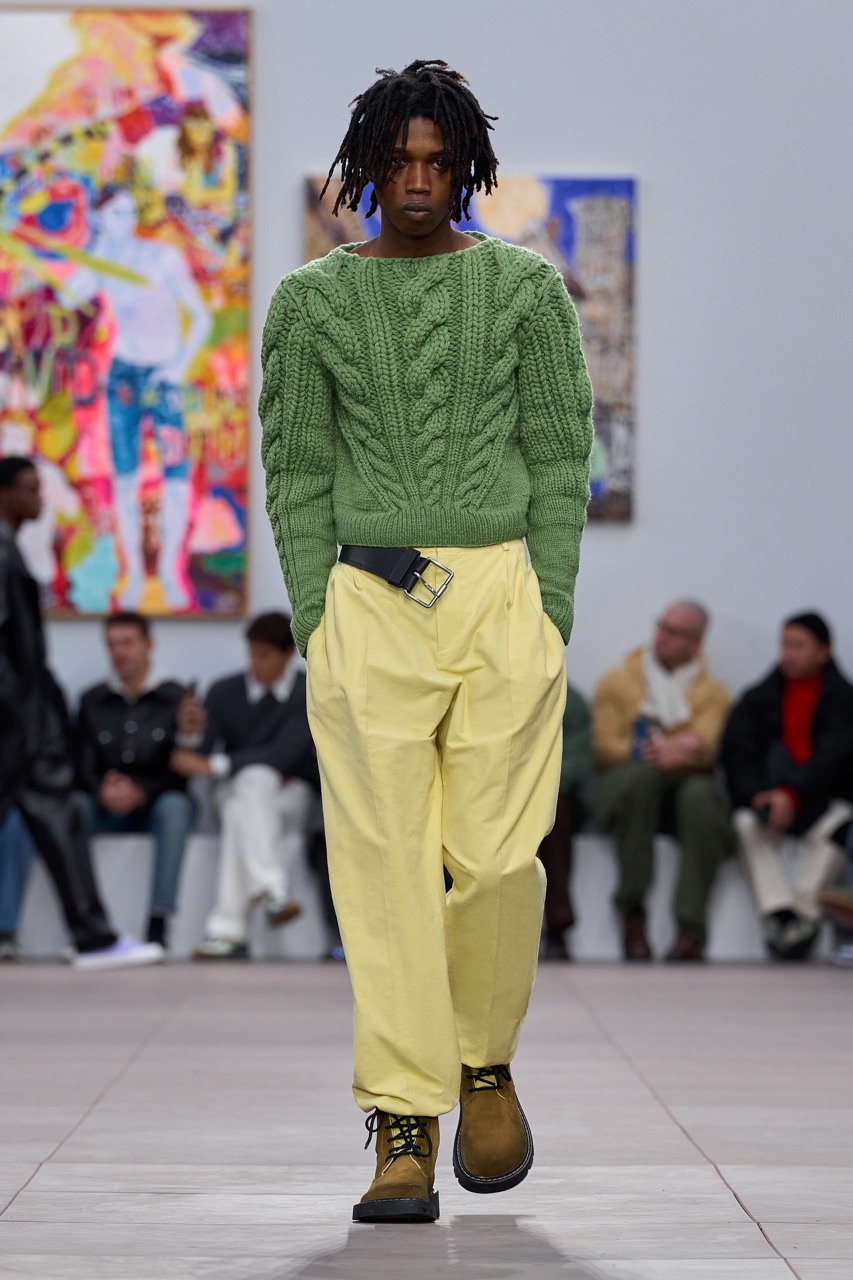
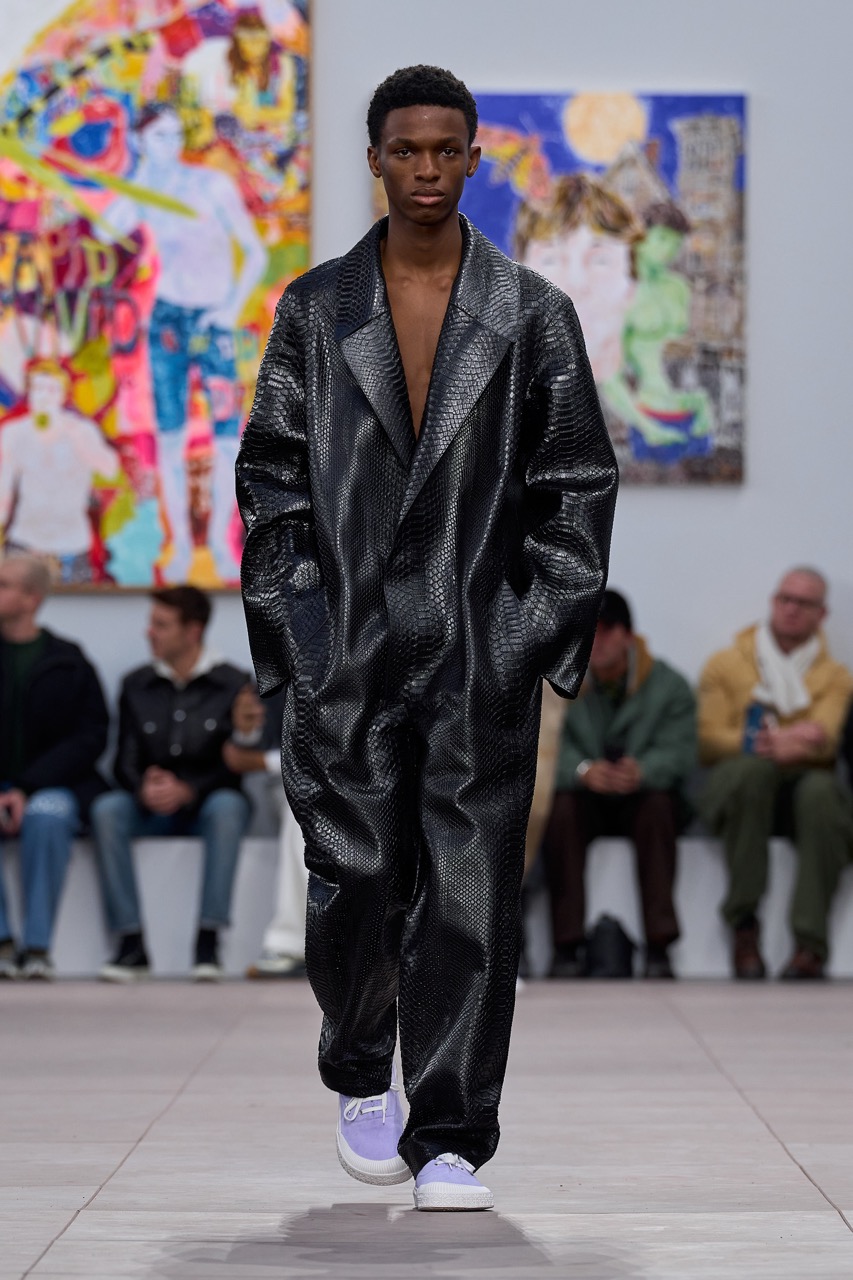
Images courtesy of Loewe
And what harmonious results Jonathan Anderson produced for Loewe, whose constant pursuit is to harmonize the irregular, adding a streak of cool to the sinuously-crafted pieces that Anderson blends every season: Breaking away from formality, a wealth of characters become the central focus, with a restlessness running throughout. Lots of quirk goes on in there, which, in part, lacked stylistic cohesion. But kudos to Anderson for the lovely interplay of Fall offerings that are attached one to the other: shoes to socks, socks to trousers, trousers to jacket or coat, belt to waist, in an attempt to impose rather than propose, much like “what happens in the collaged reality we are all living in.”
Junya Watanabe’s vision sits closely to Anderson’s technicality, with a knack that nods to small gestures and puts in sharp relief the severe frivolousness of some of the sartorial code paraded across menswear today. The designer’s focus, as always, was on volume and cut. Blazers were heavily structured, waists were cinched and jackets had a more practical swagger, thanks to the pairing with oversized denim pants, simple coats and accessorized by hooded toppers.
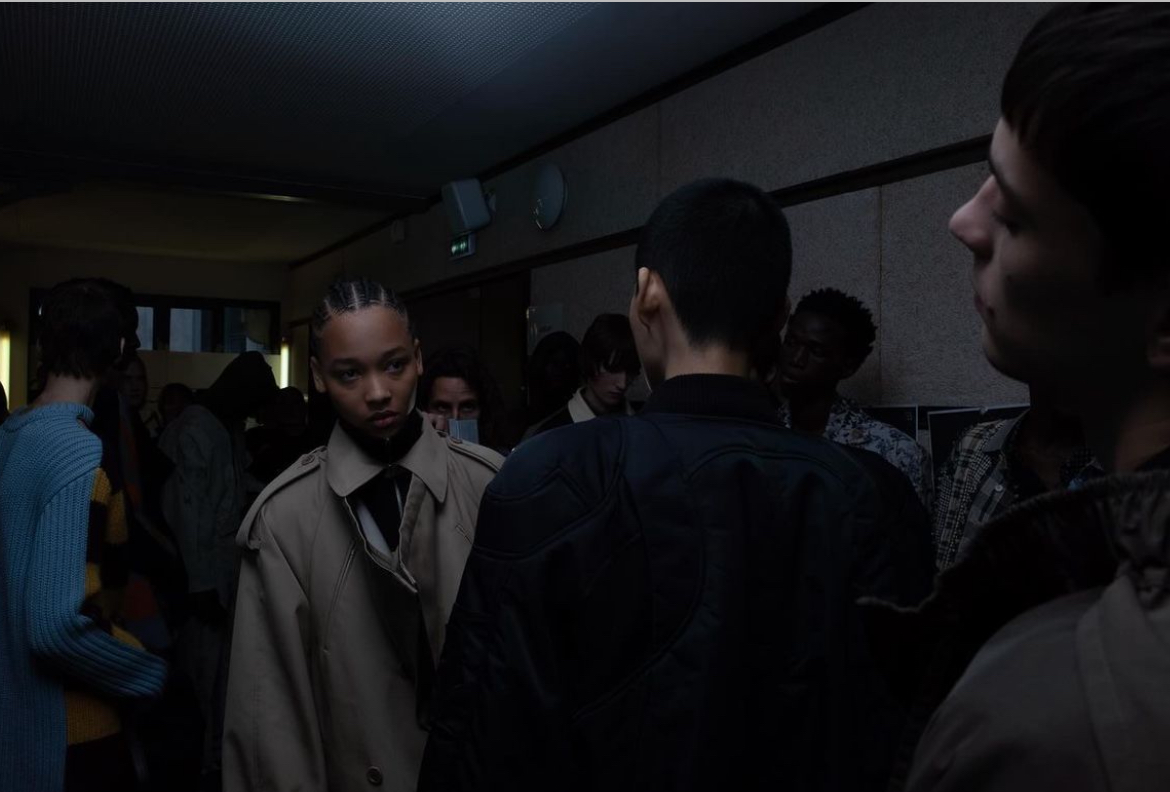
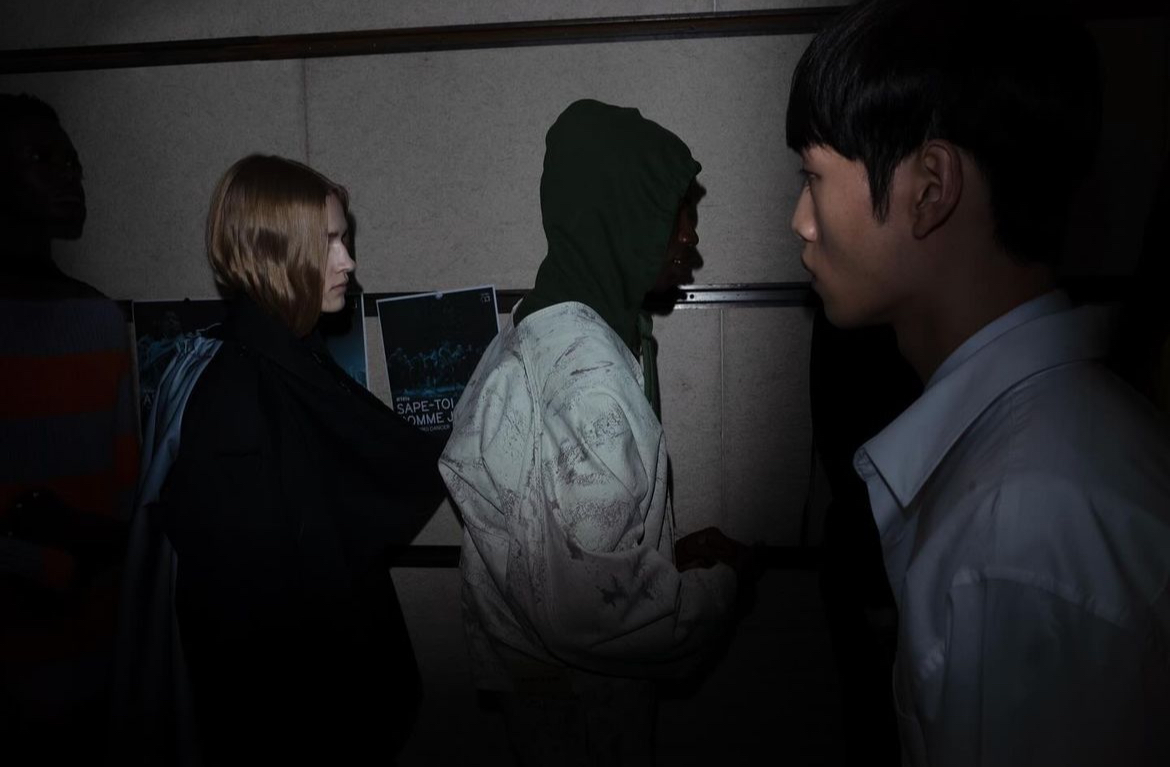
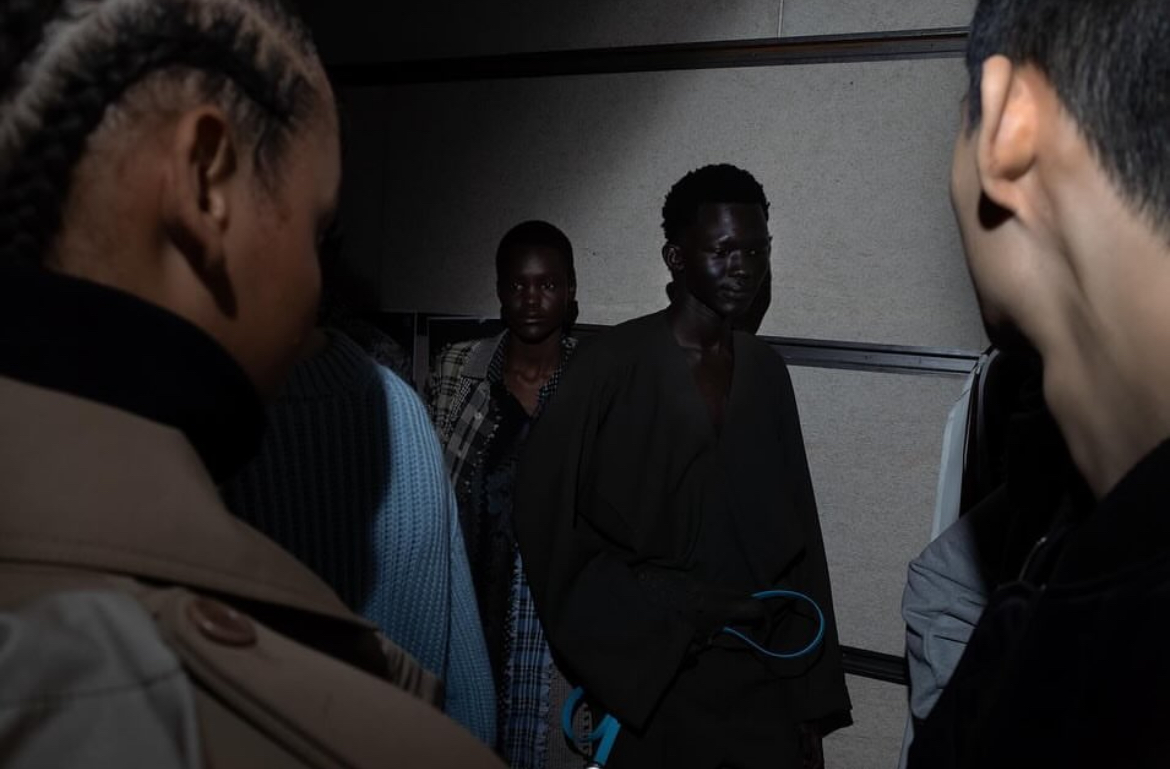
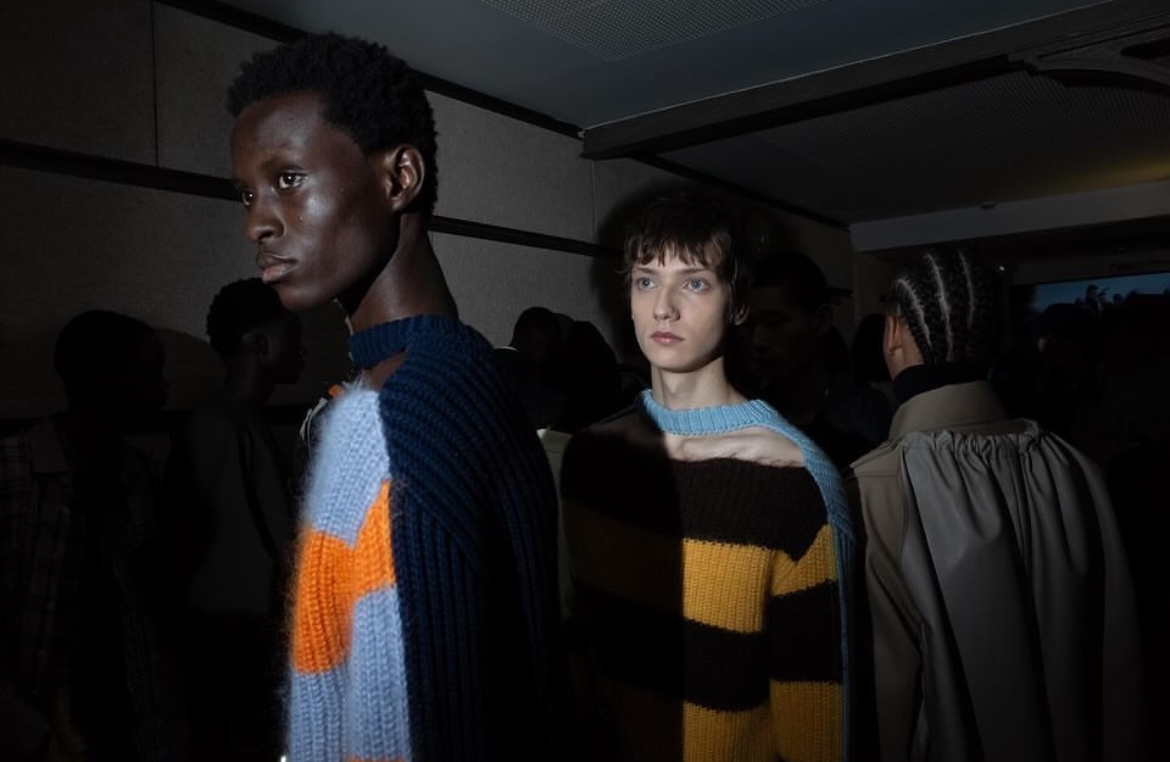
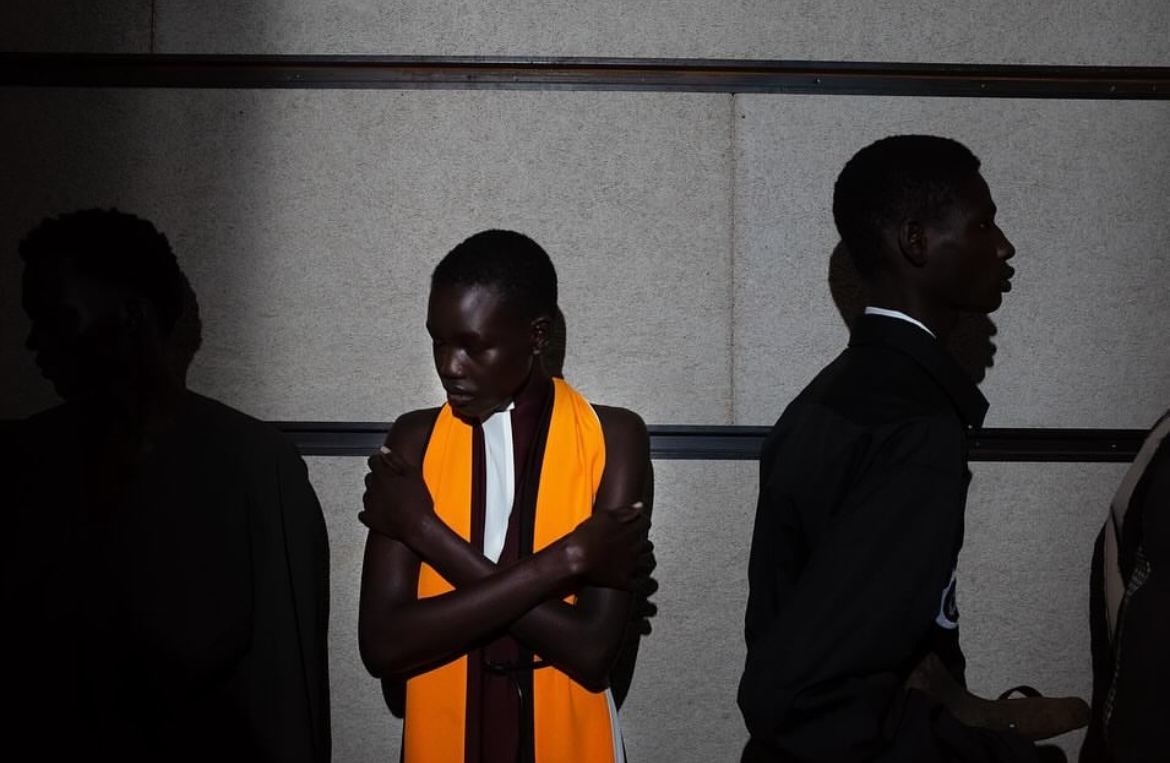
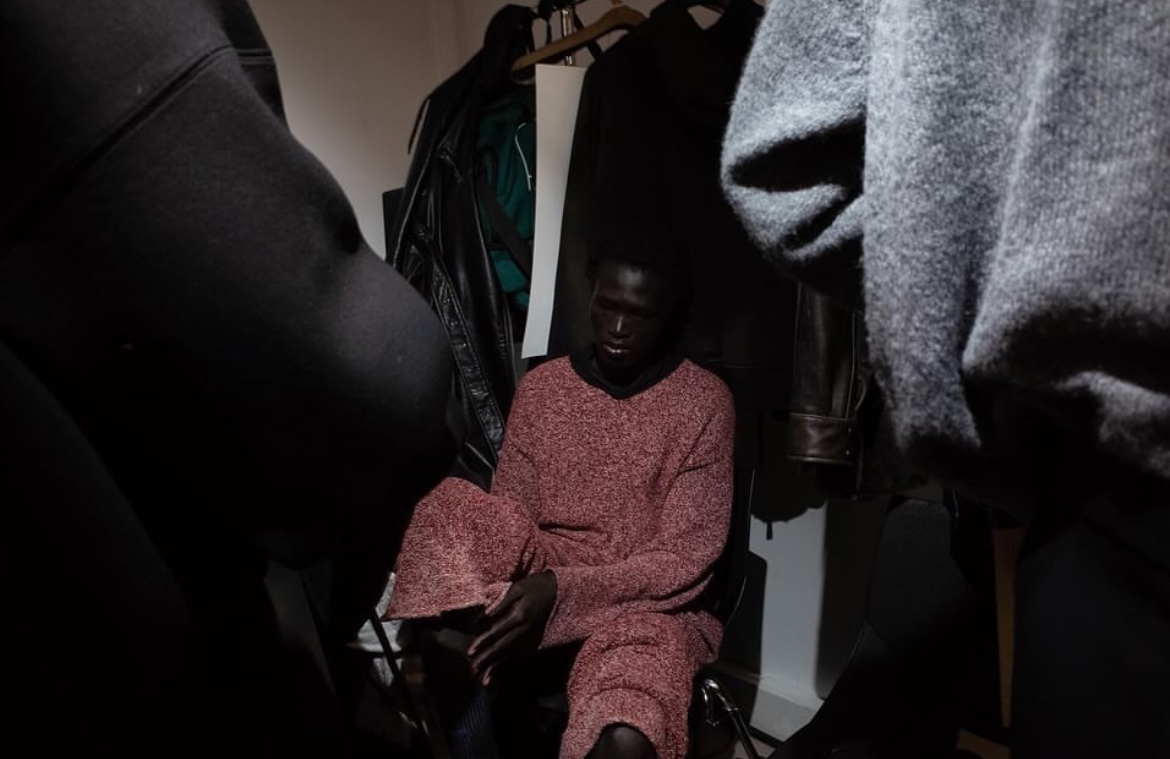
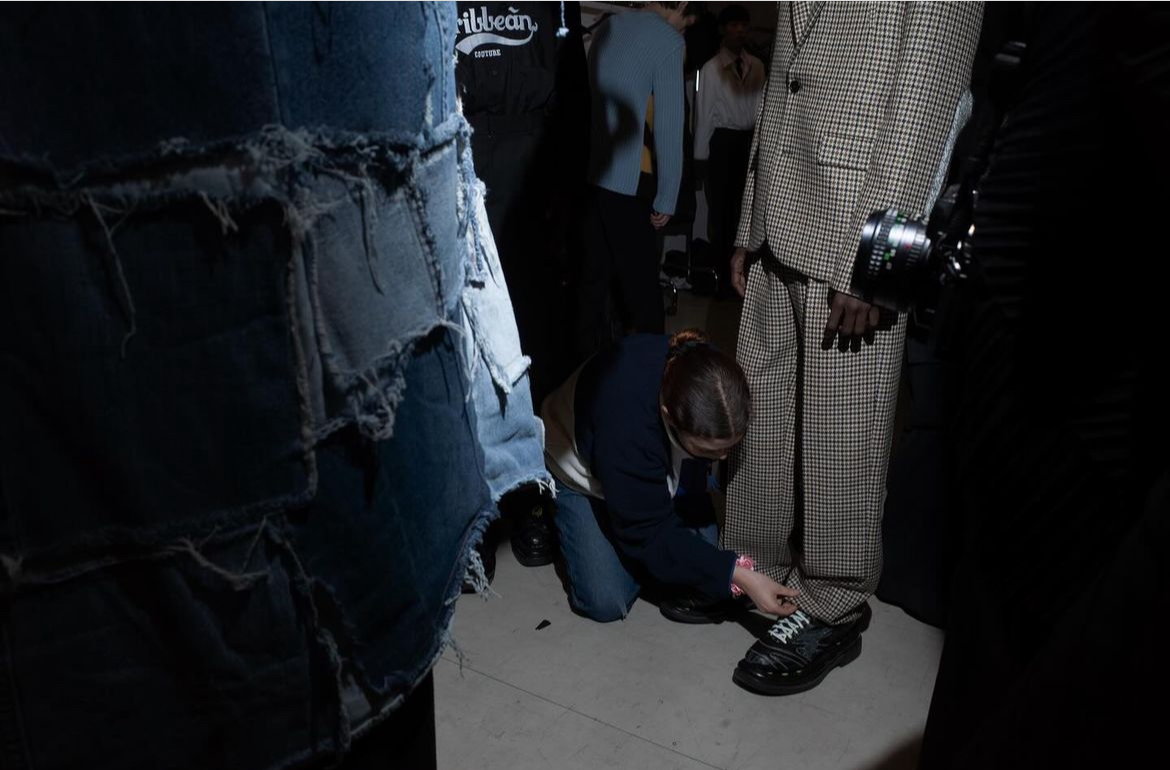
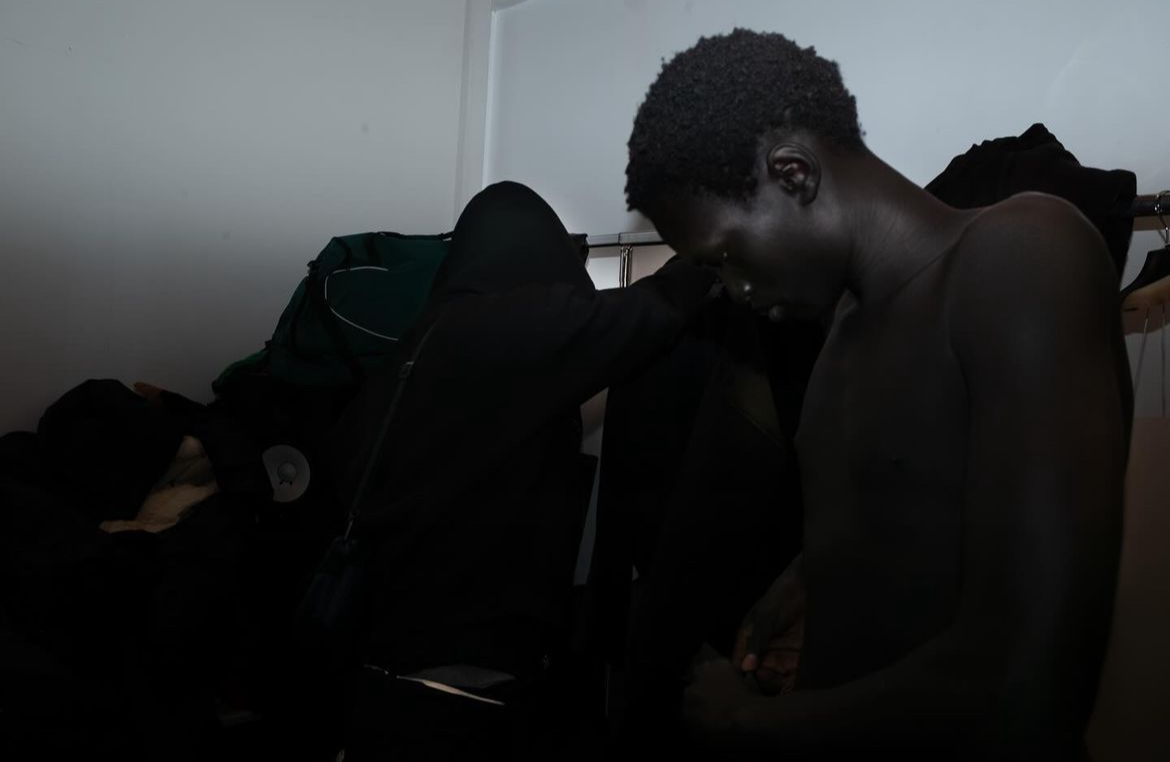
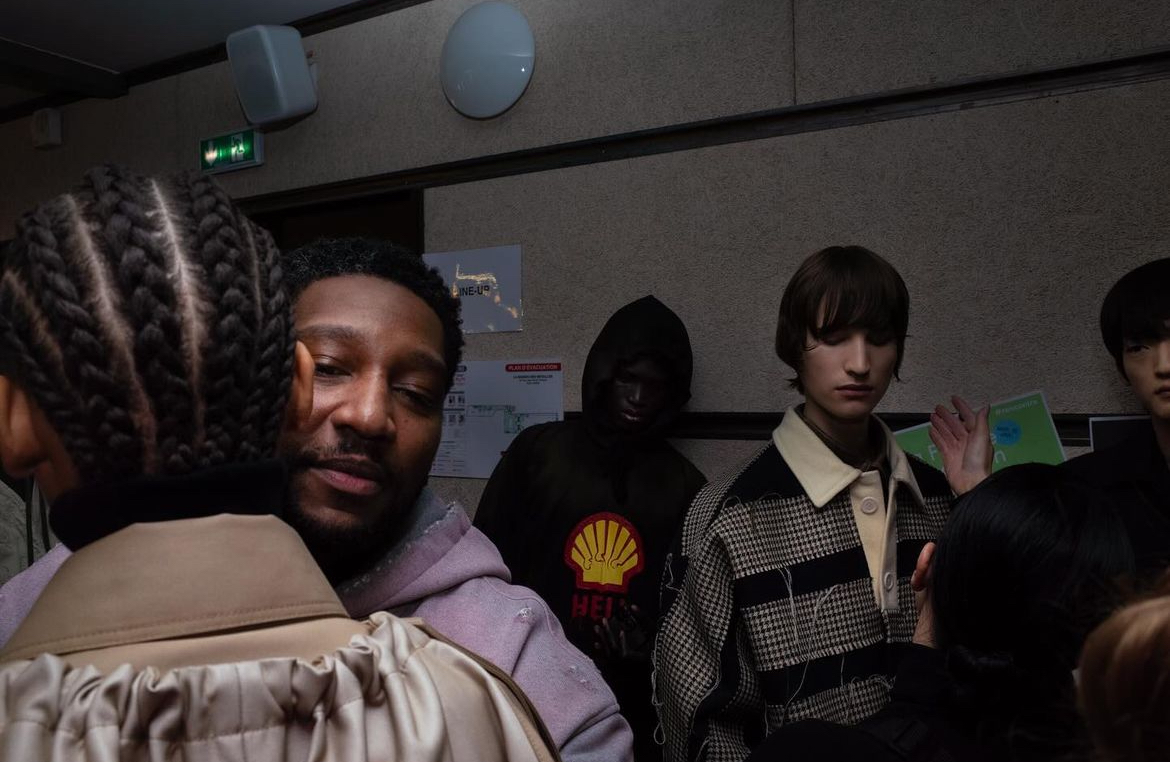
Images by Christopher Yellen
Rigor is this season’s stock in trade, but if teamed with a a bit of fun, a new sense of utility-wear abounds: that of Botter, where designers Rushemy Botter and Lisi Herrebrug reflected their cultural background for Fall (his, Curaçao; hers, the Dominican Republic). At first glance, the results were effortless and focused on wardrobe classics, and with this lineup the key elements were the clothes that had a sports-like appeal that added a dose of cool to their all-wearable — and commercially covetable — essence. Moving onto more hype-filled territory, the fashion system’s conglomerates love investing in (drumroll, please…) hype.
Louis Vuitton
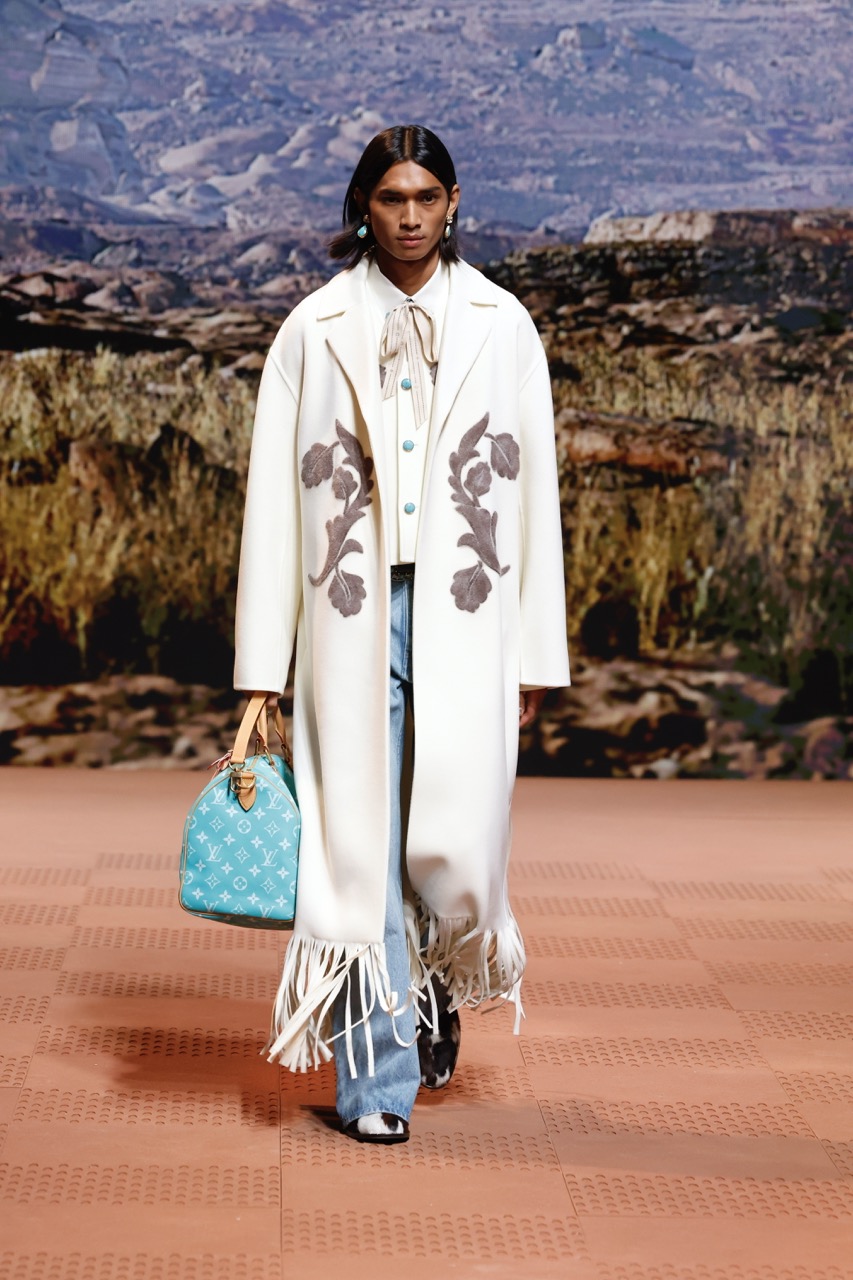
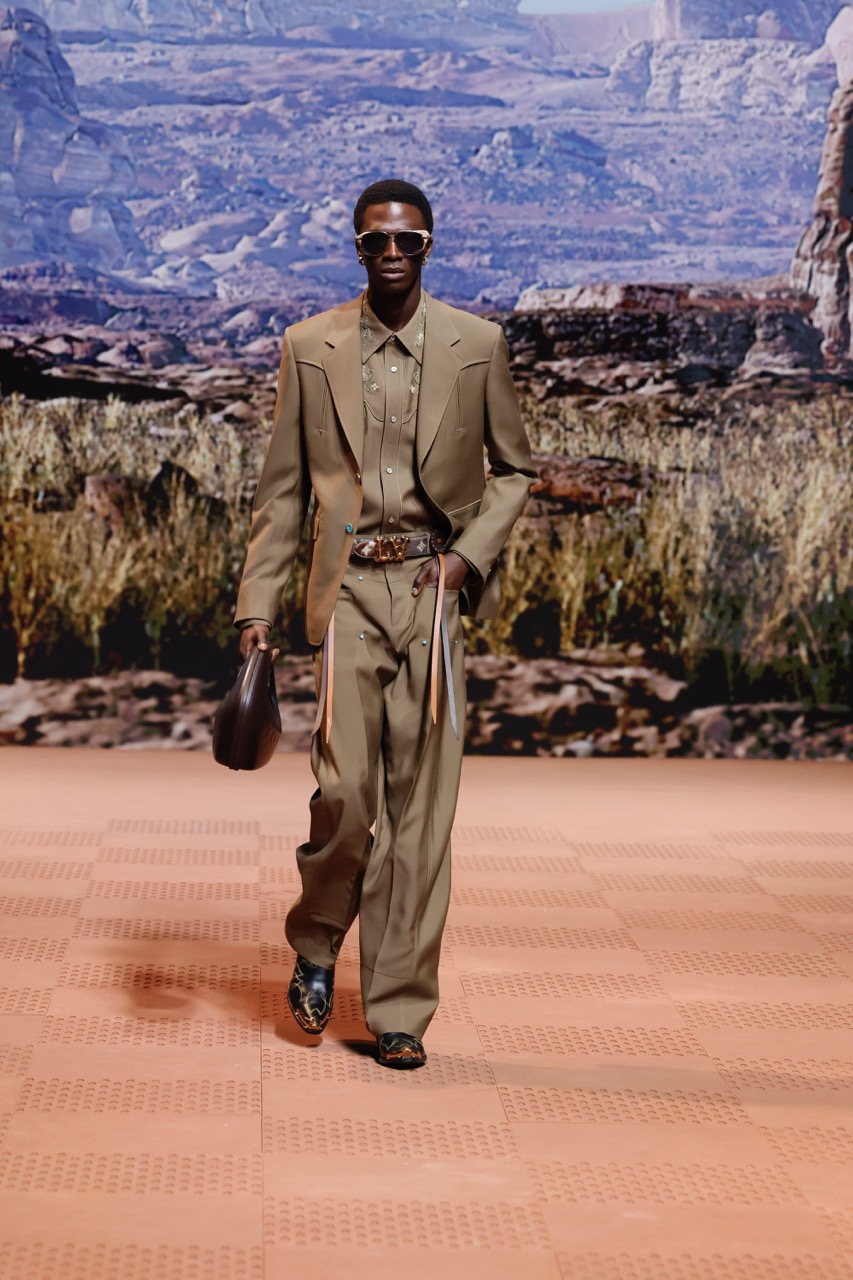
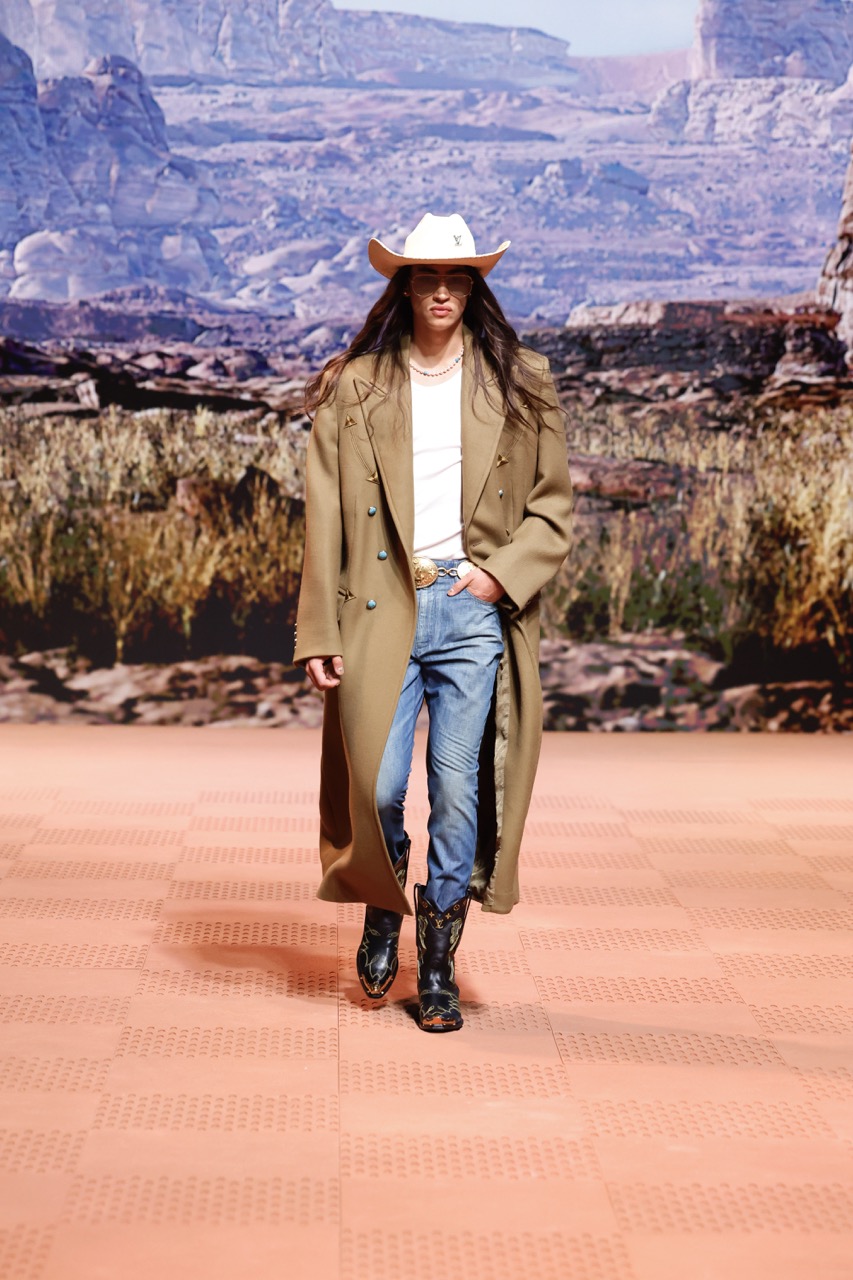
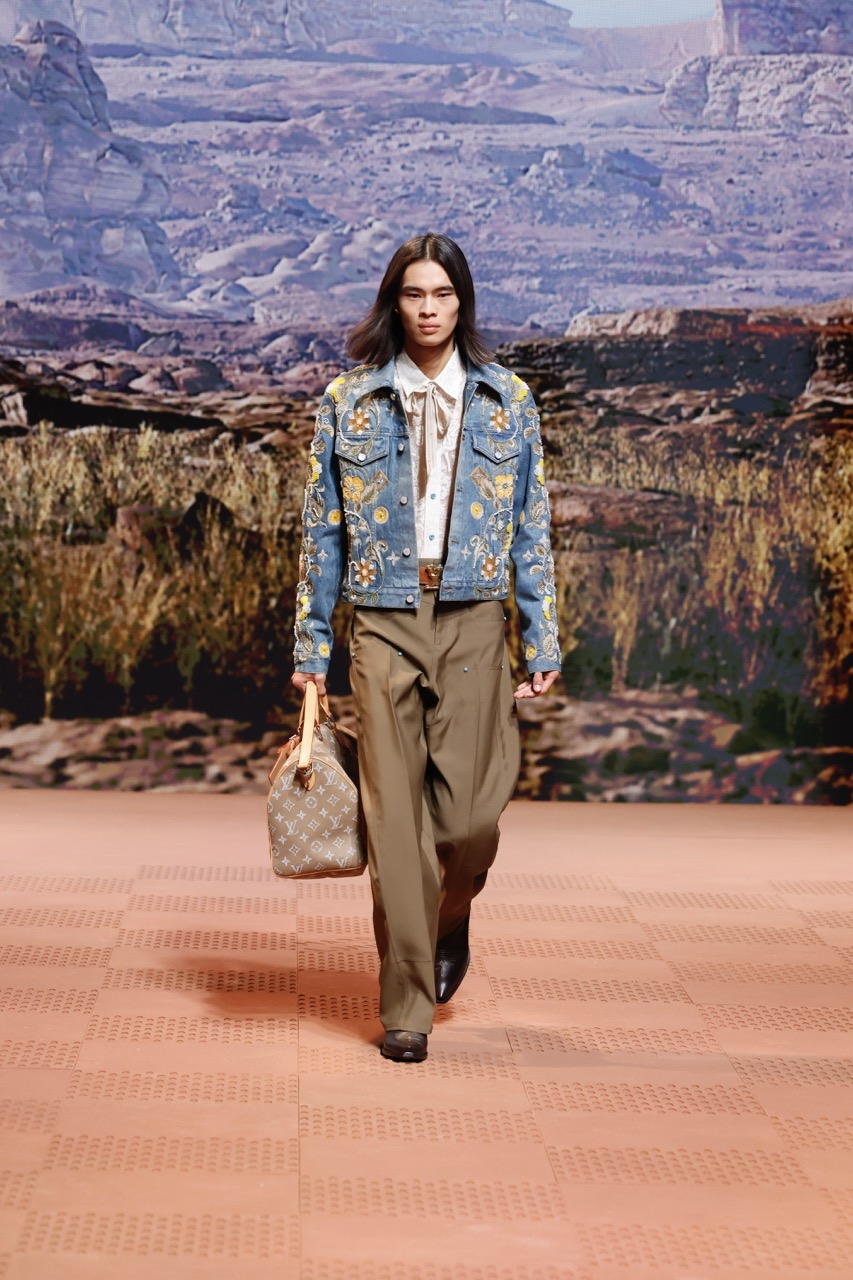
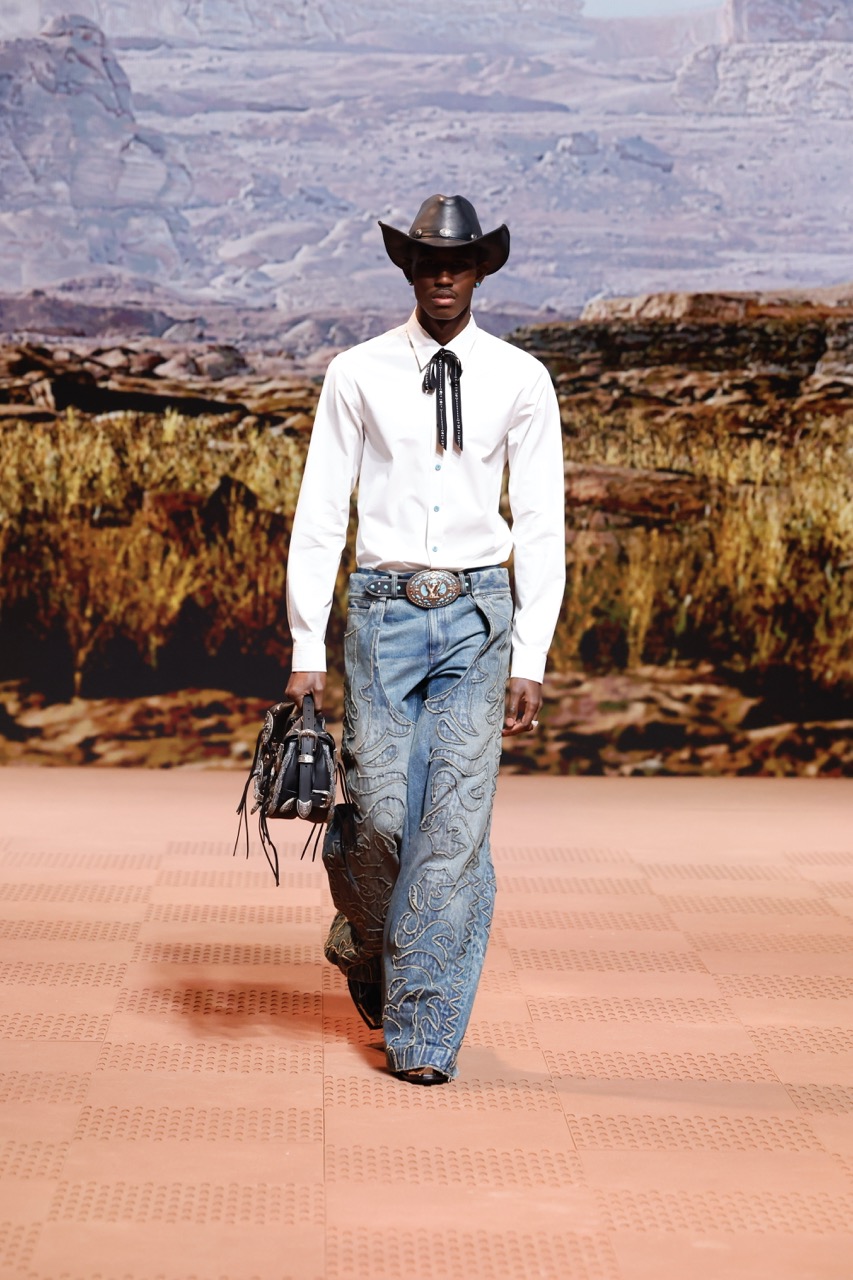
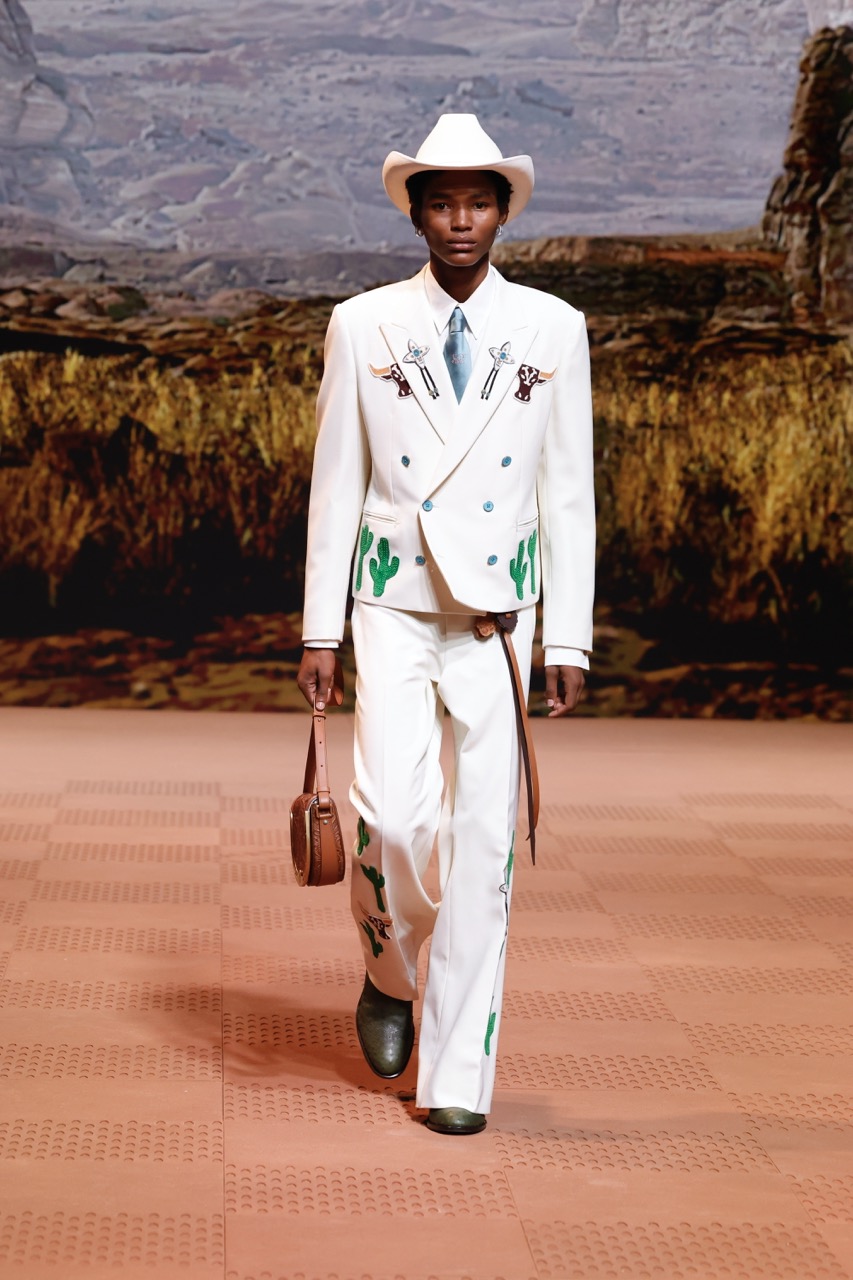
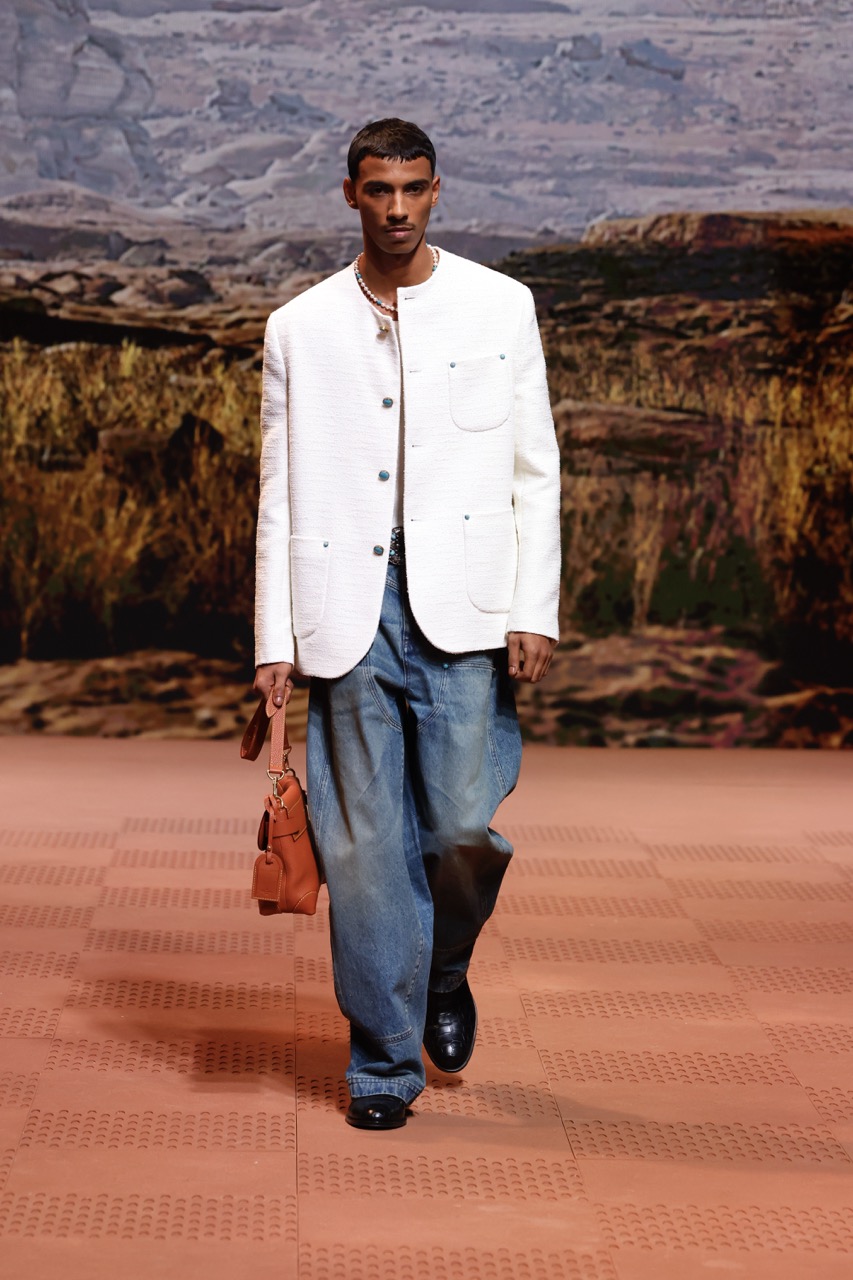
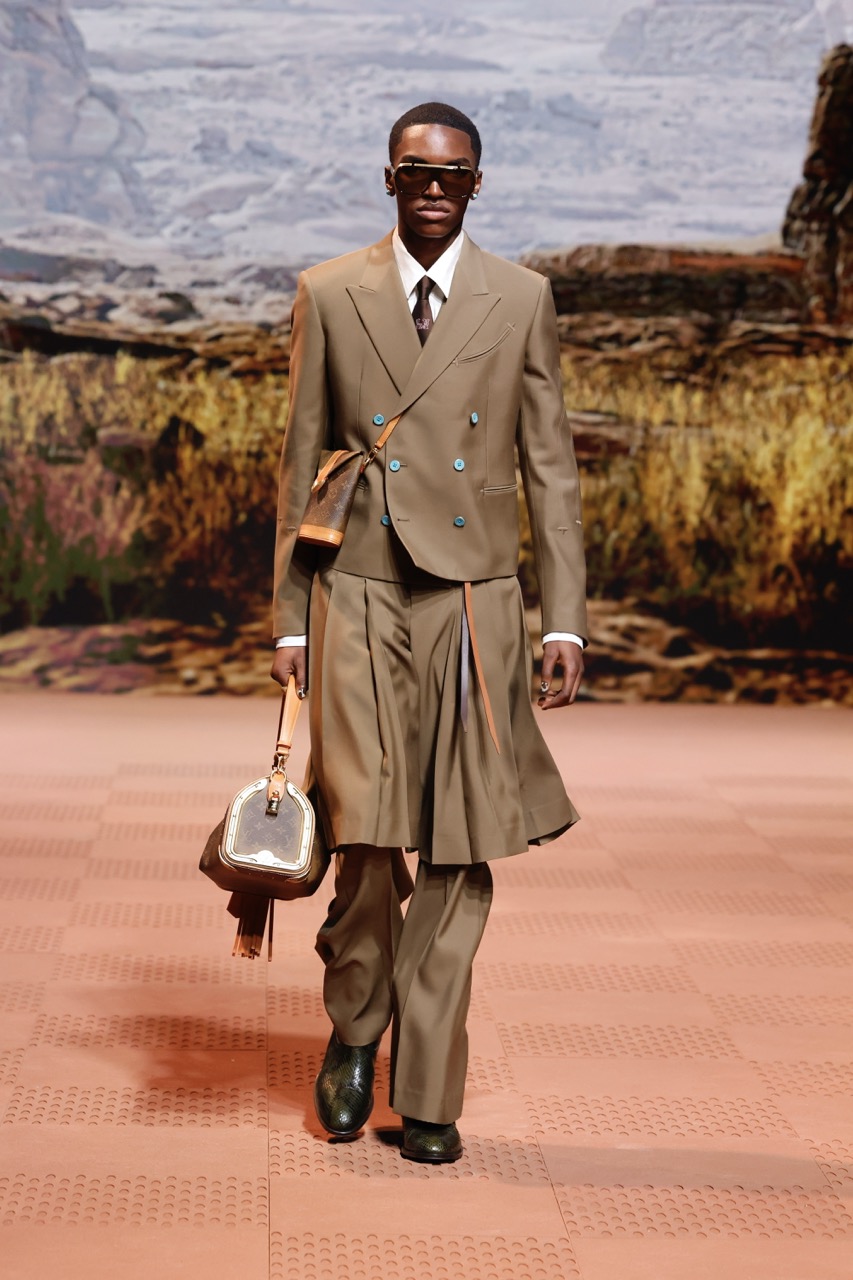
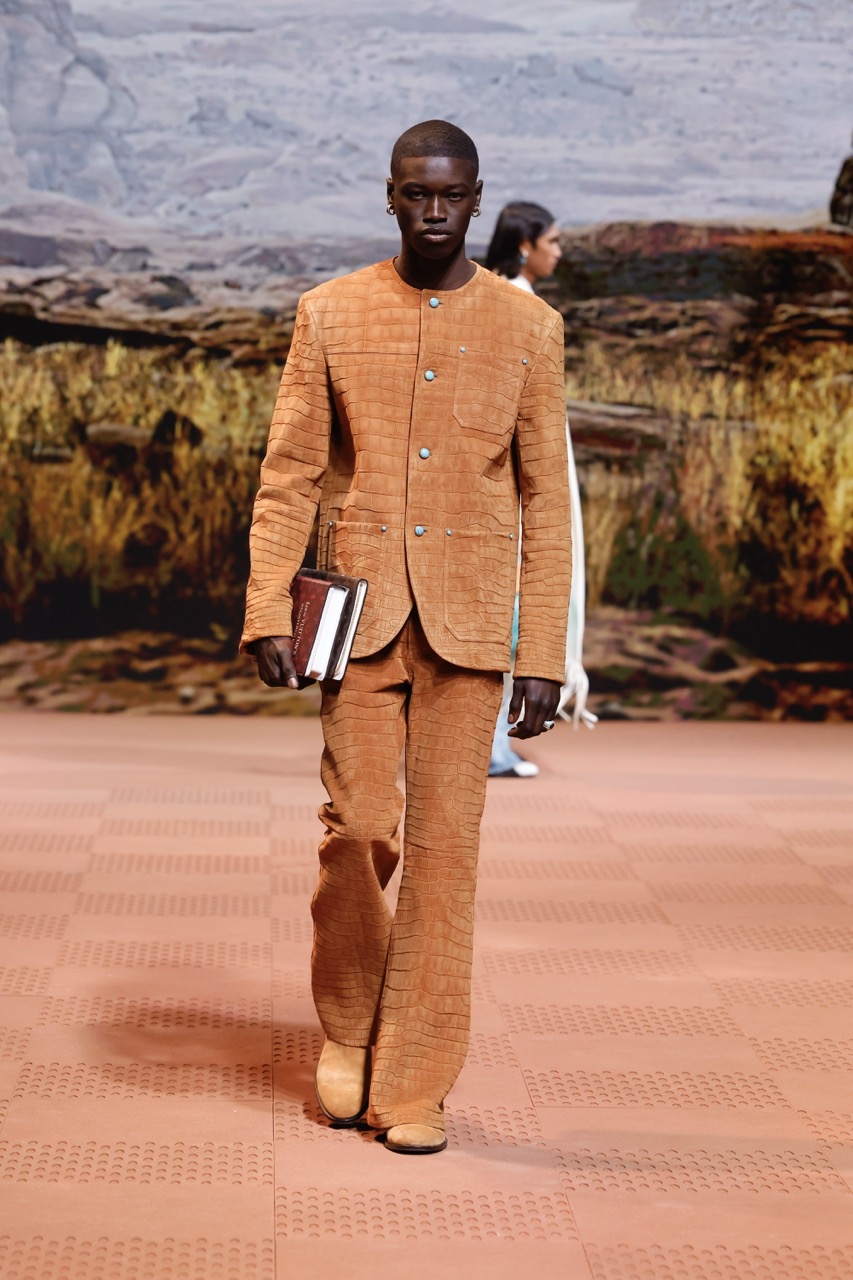
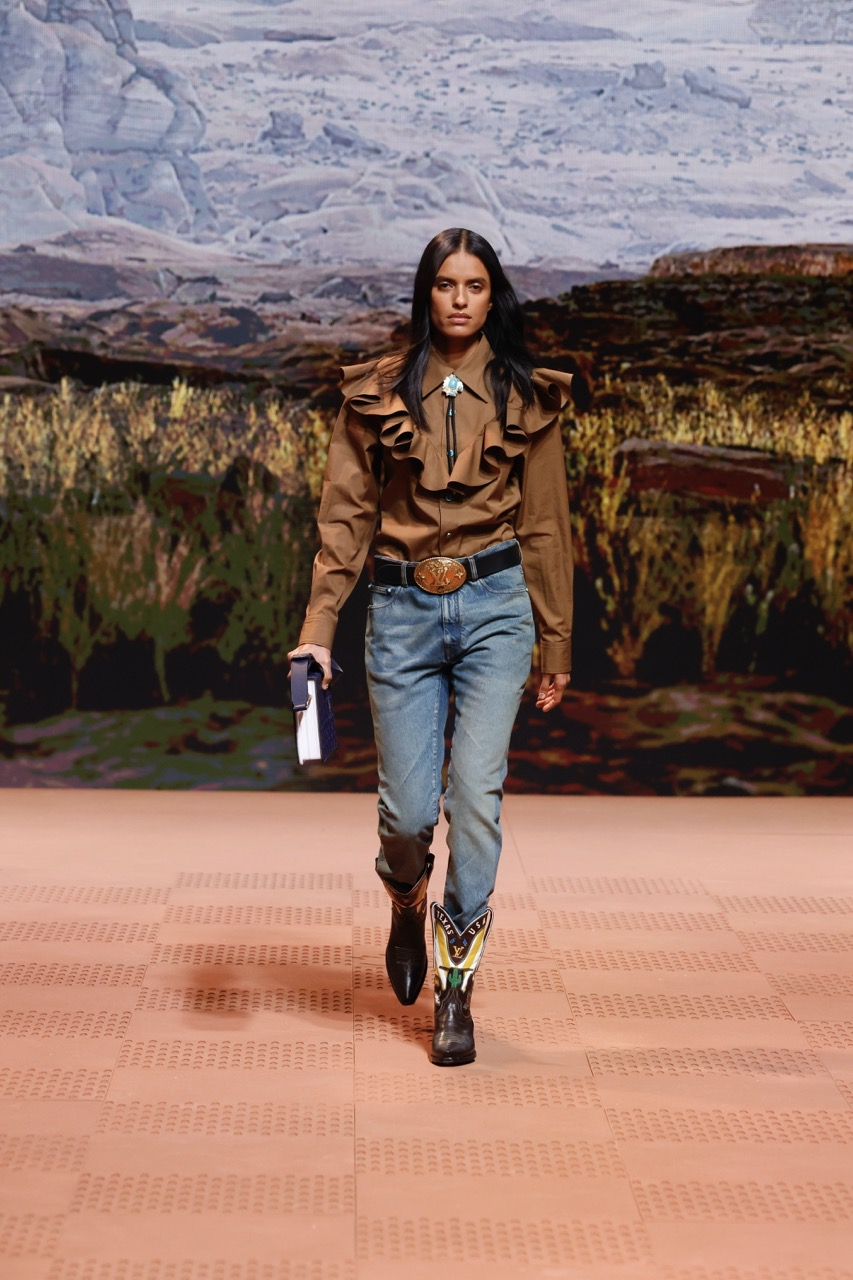
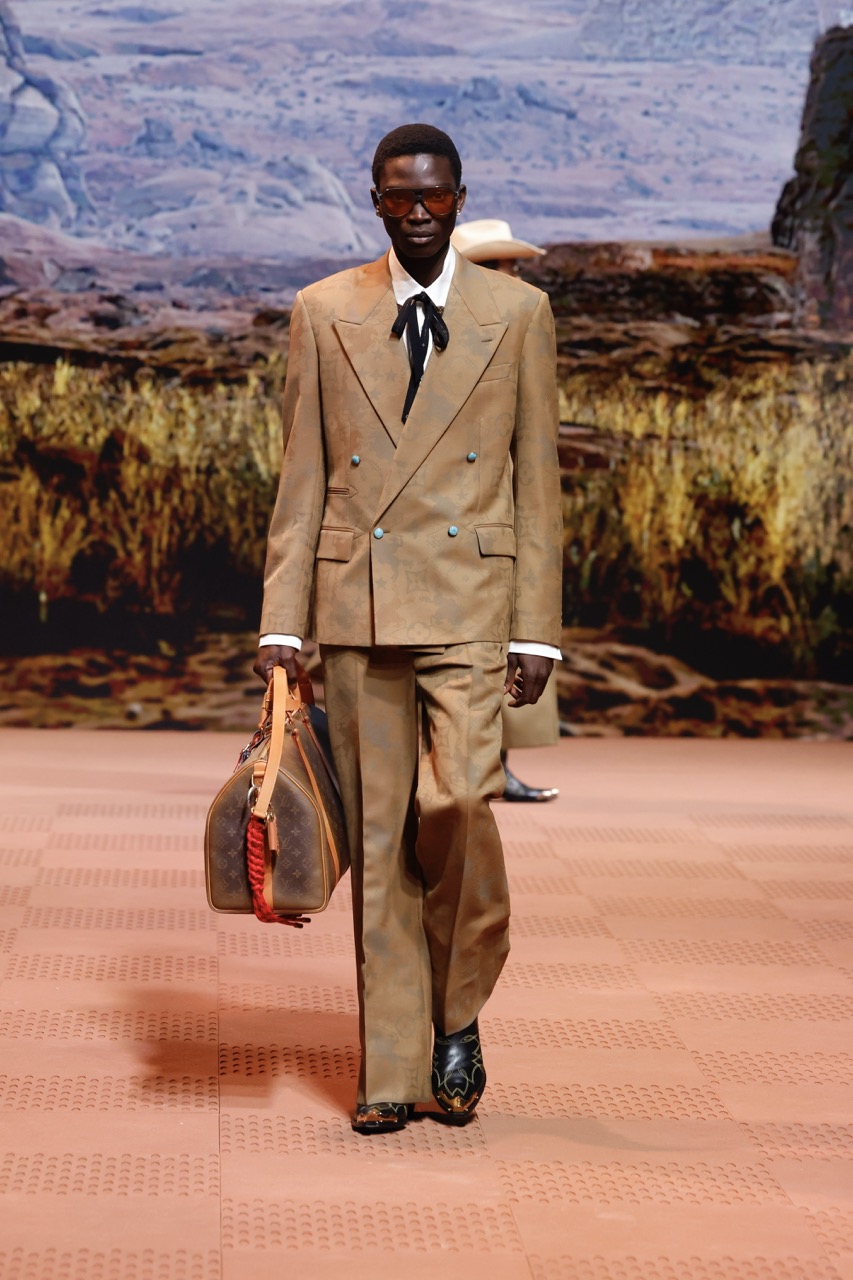
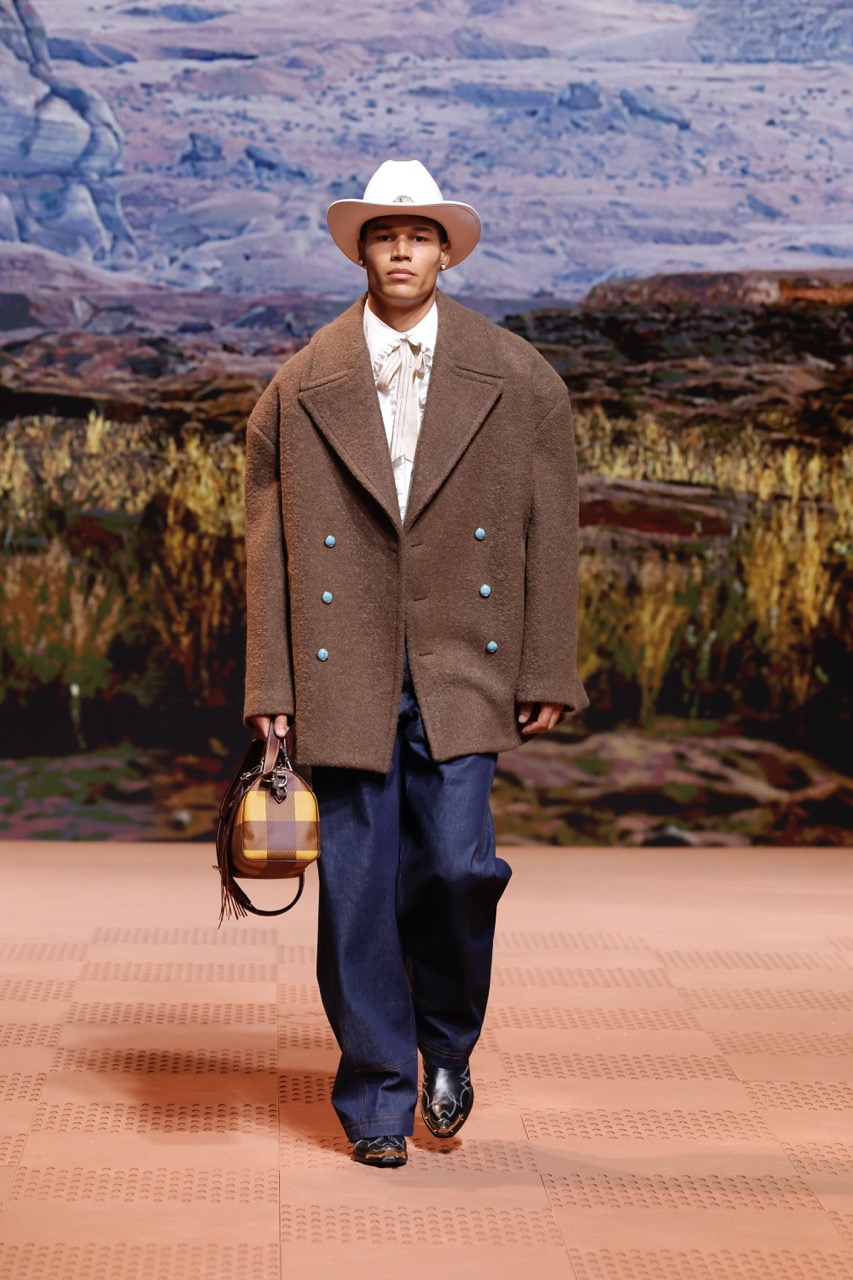
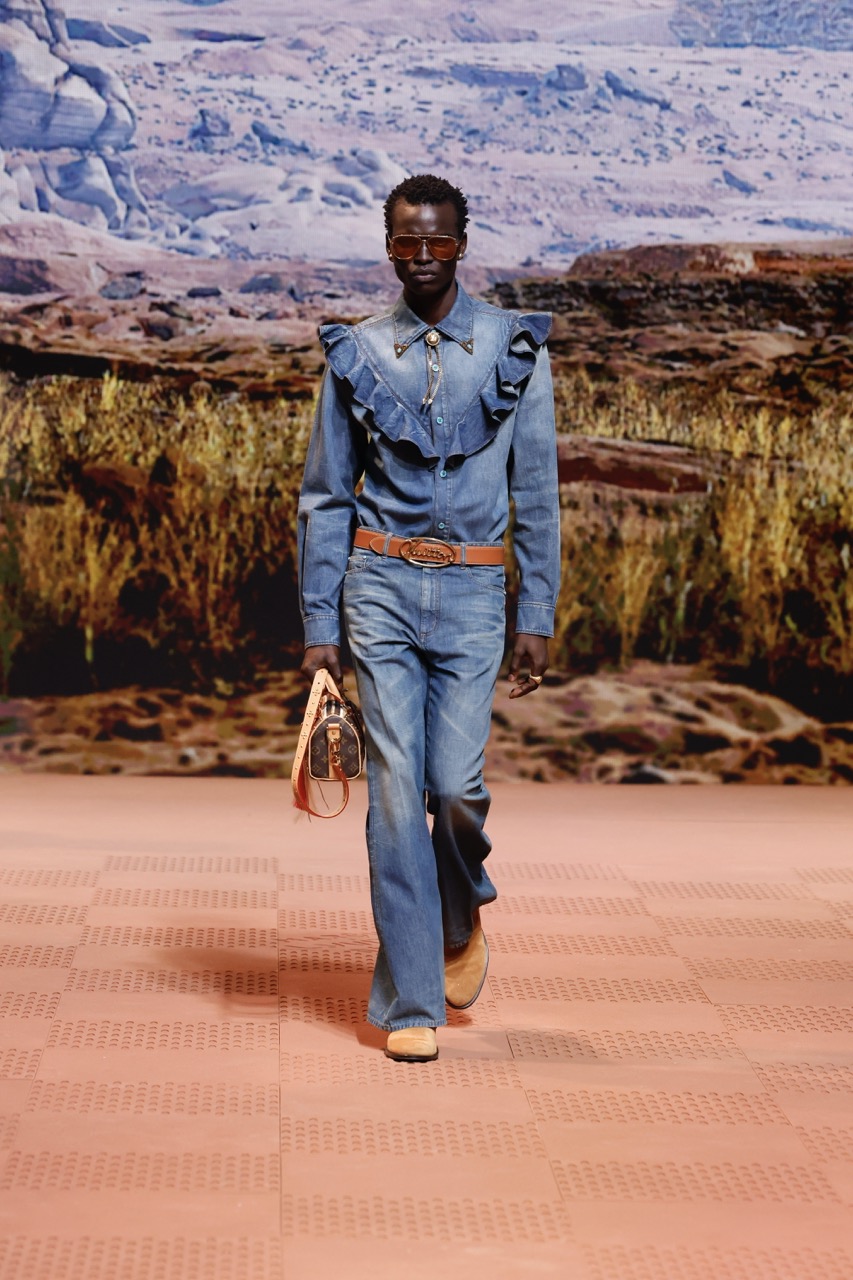
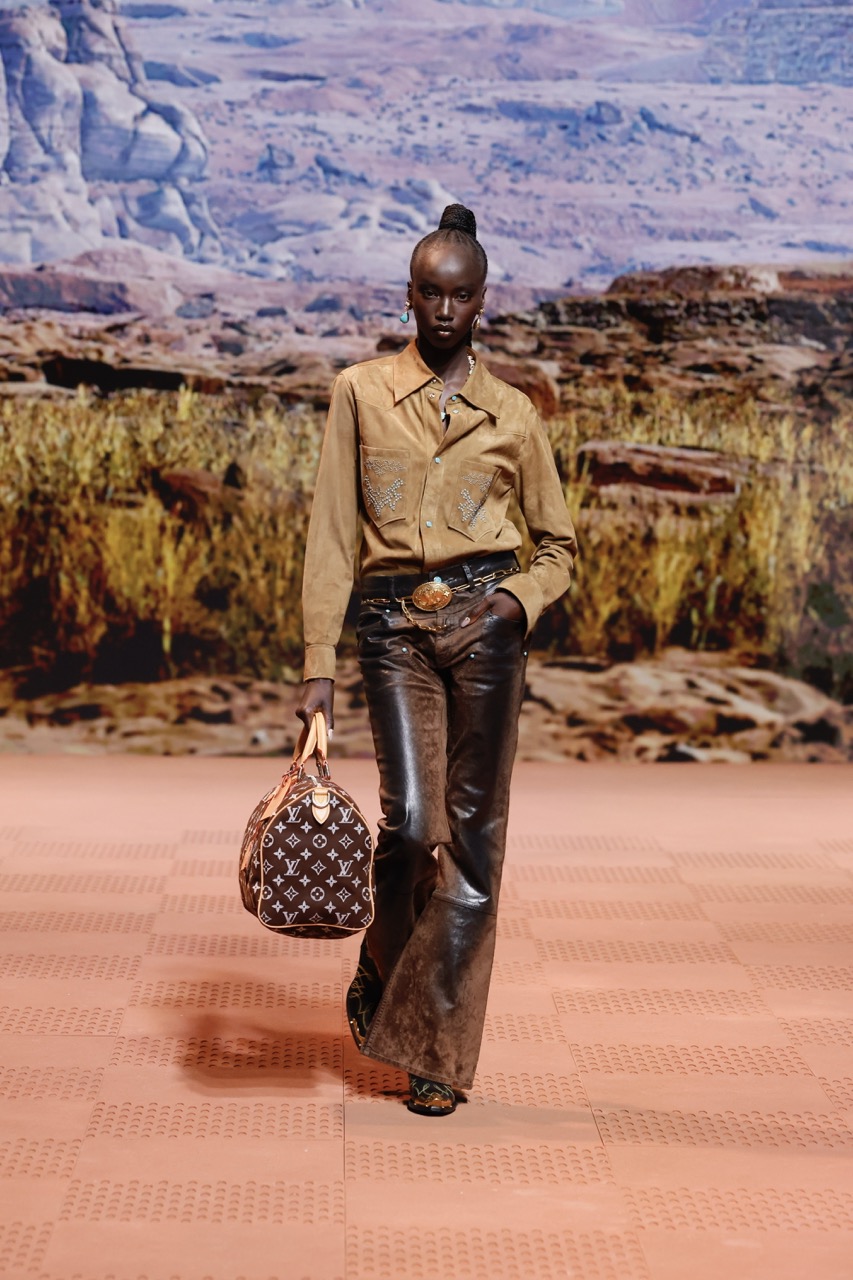
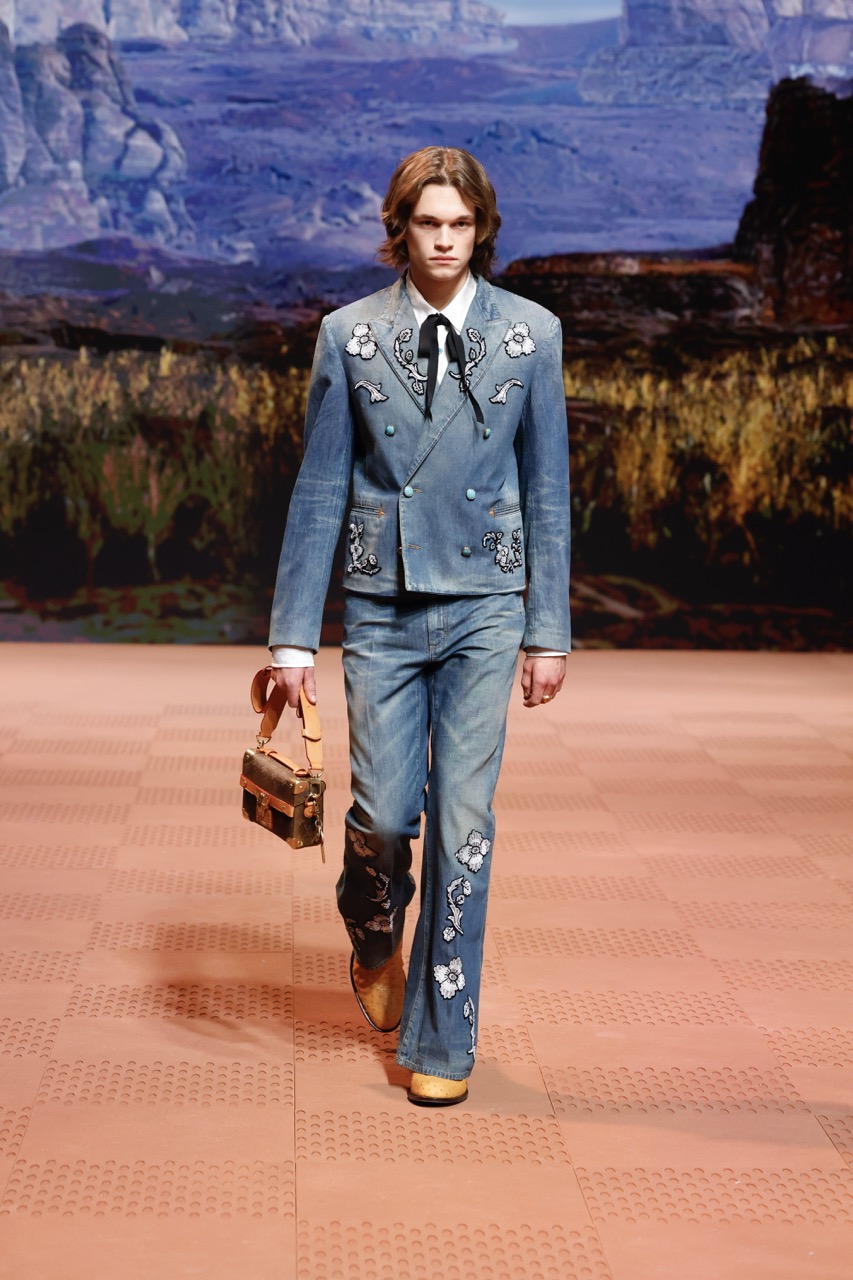
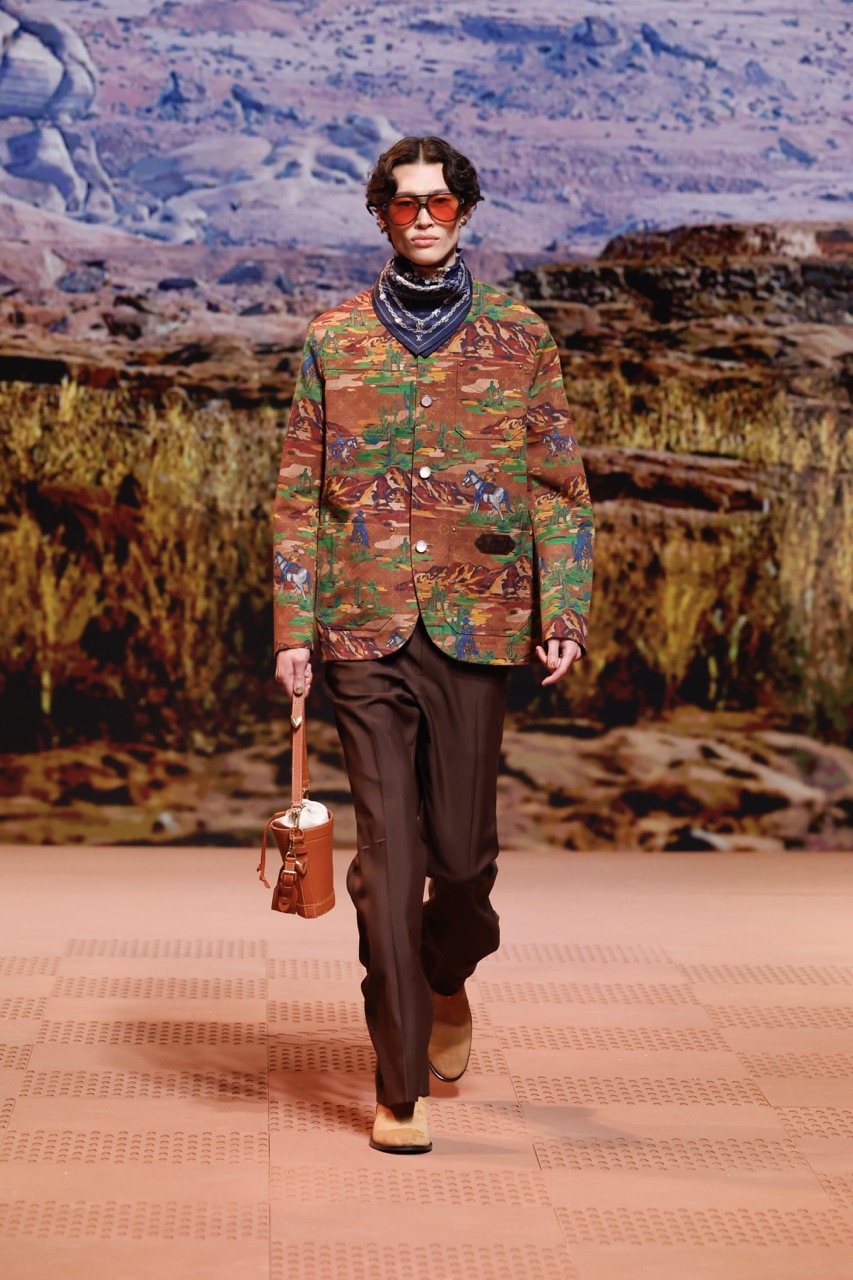
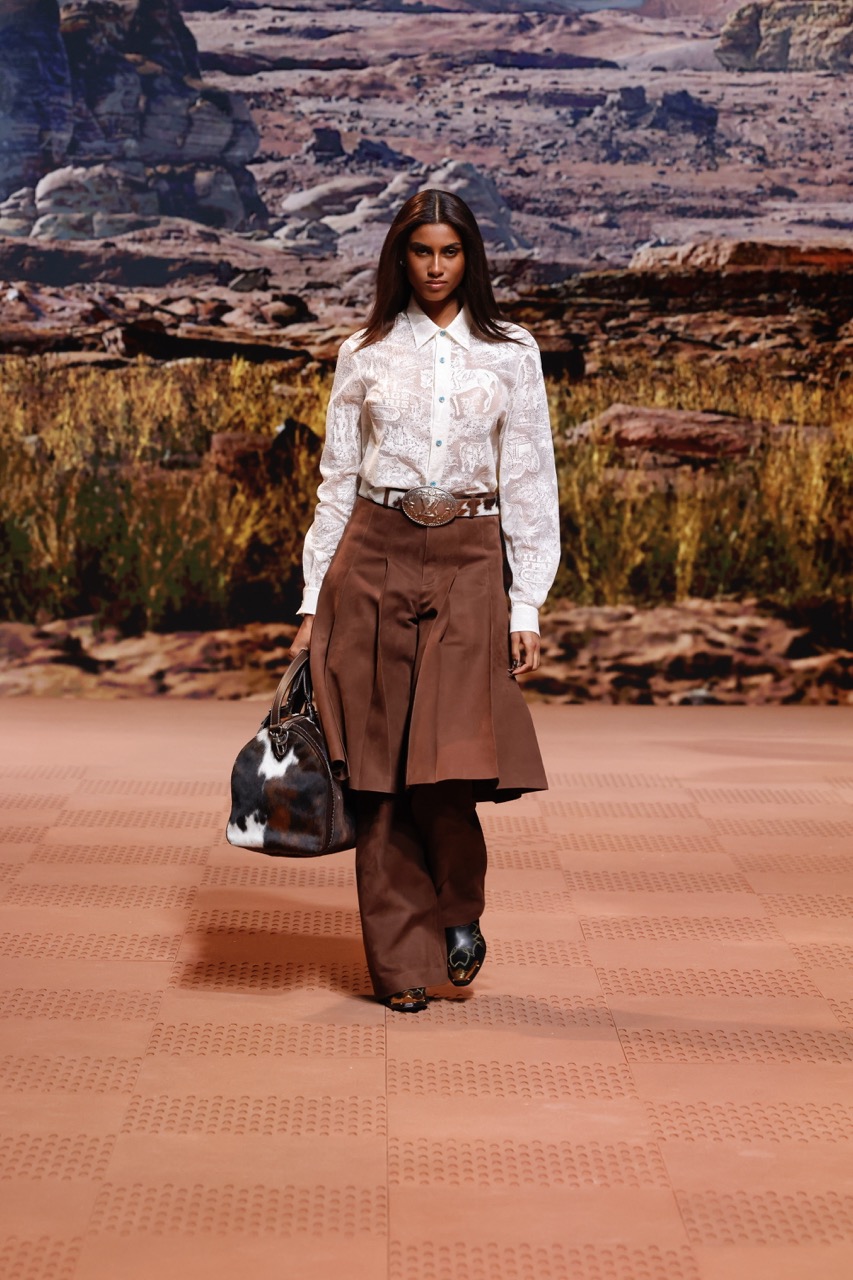
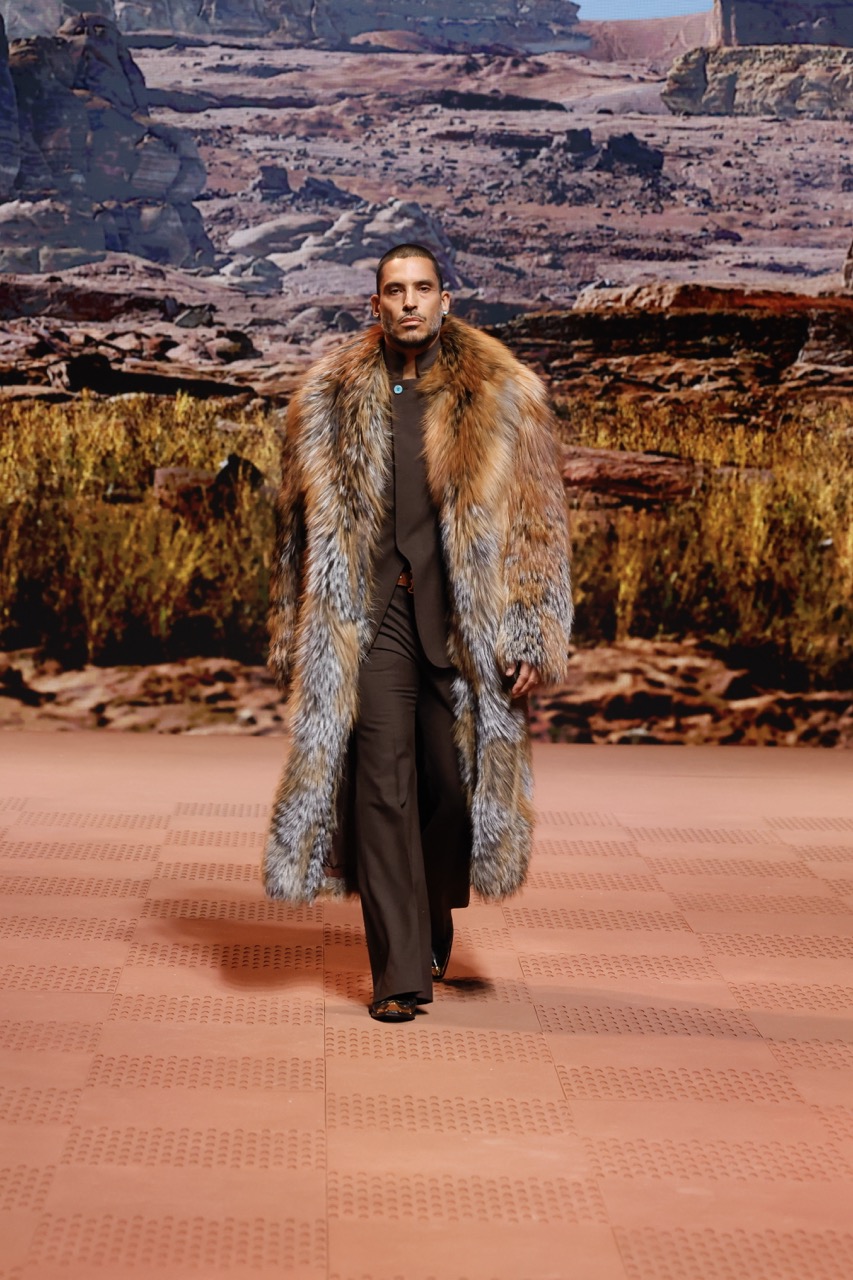
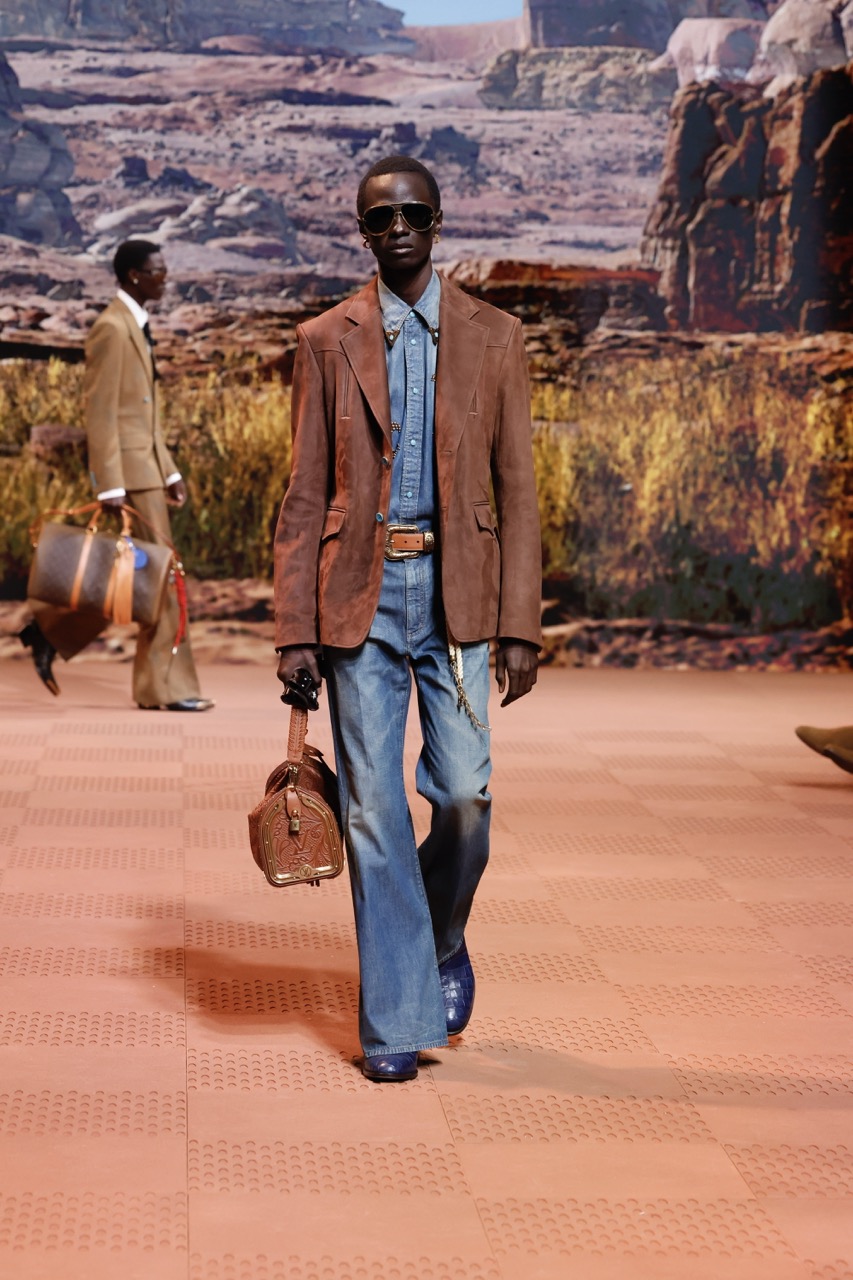
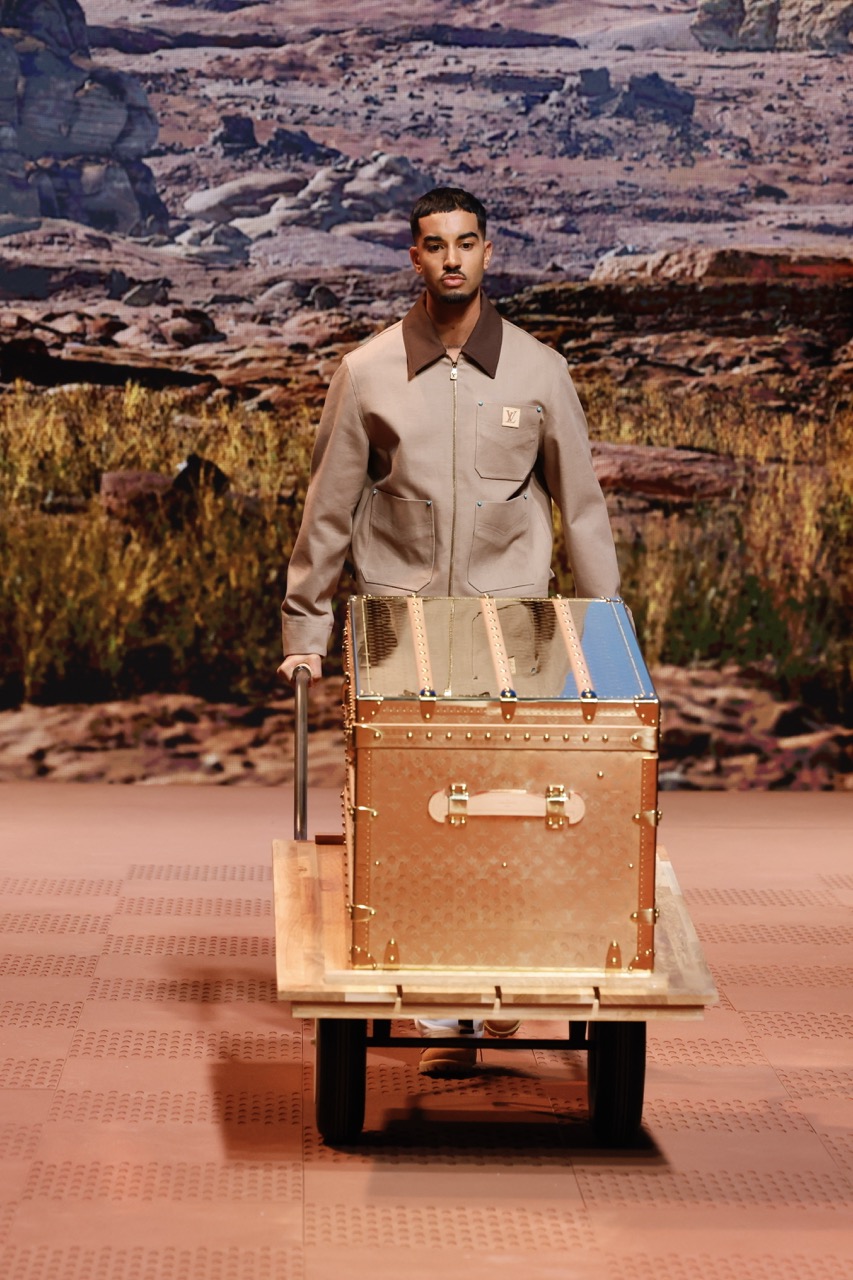
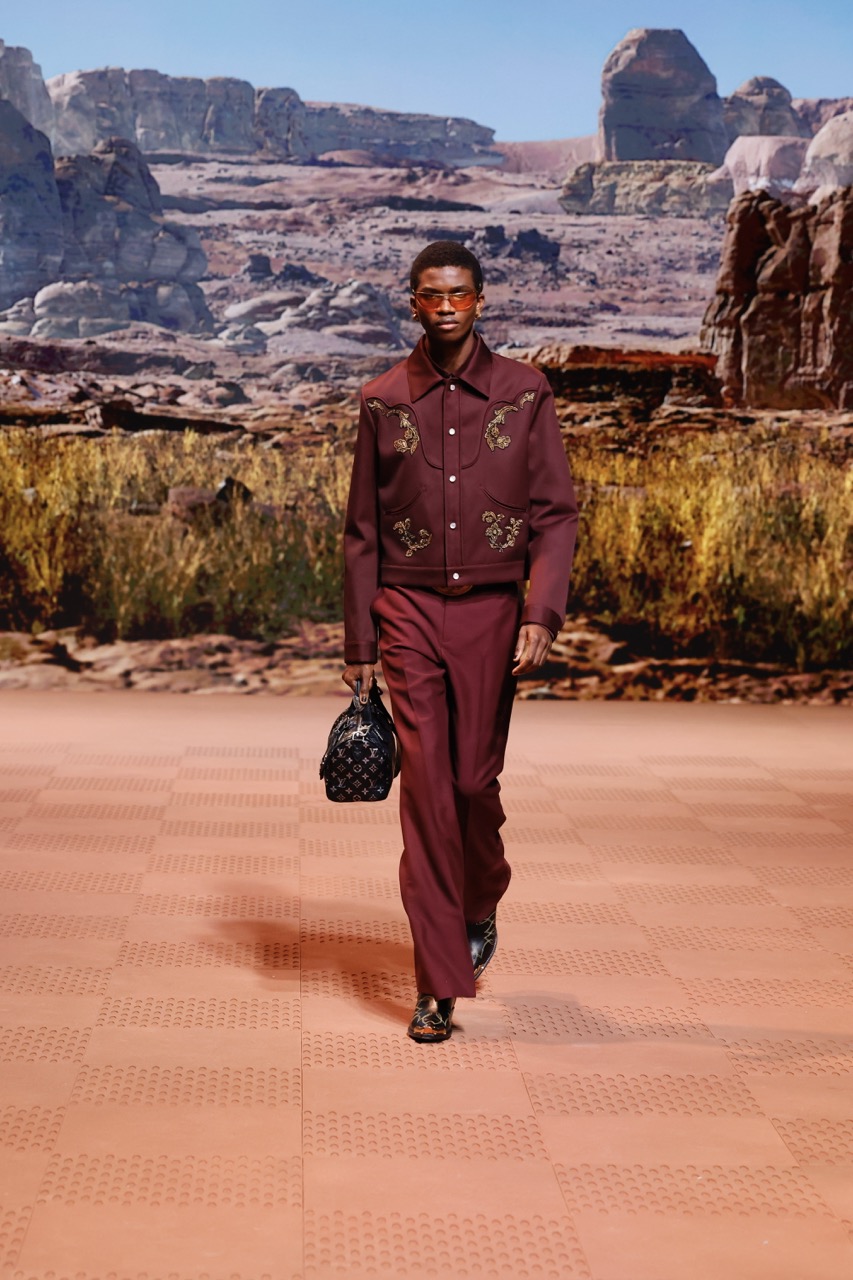
Images courtesy of Louis Vuitton
But Pharrell William’s outing for Louis Vuitton for Fall leaves us in a state of perplexity: is it one of them worth getting excited about? Really excited, if you’re the kind of customer who can appreciate an embroidered texture, a perfectly cut trouser, a knee-long coat or a Western-inspired hat. Williams’ collection was a clever diffusion of Cowboy Americana: workwear touches, attainable buzz and opulent fabrics, with a fresh spirit that collided with his musical flair and the house’s sartorial polish. But despite the creative and community-like spectacle, references looked too literal and far from avant-garde. What was really notable, however, was the collection’s thumping energy. Not only in terms of offerings (parfleche blankets and scarves were created with artists and artisans of the Dakota and Lakota nations) and silhouette (shirts appear in cowboy Monogram jacquard, cowboy lace, Western prints, or soutache embroidery on chambray) but also on proportions.
All in all, timeless classics are the Frenchman's ideal wardrobe, embodying — like their Italian counterparts — an exercise in poise and seduction. “Don’t reveal too much!” Jonathan Anderson told me in Milan. “Leave them wanting more!”. And just like that, I very much believe the French abide by that mantra.